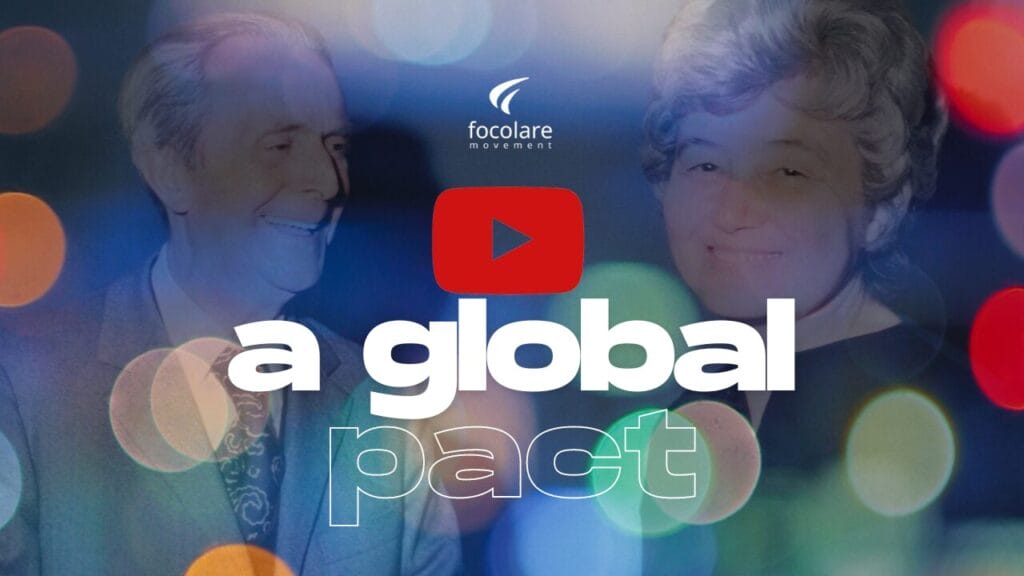Give away what is surplus
Give away what is surplus
Give away what is surplus
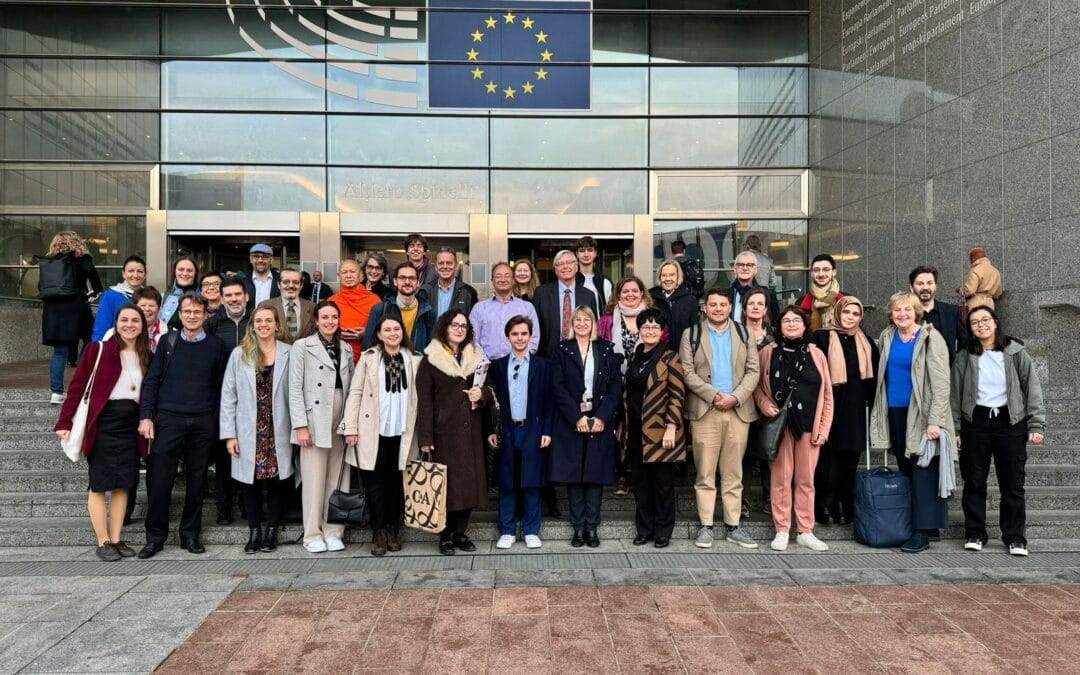
On October 16, 2024, the final conference of the DialogUE project, an initiative to promote intercultural and interreligious dialogue in Europe, was held at the European Parliament building in Brussels, Belgium. The event was hosted by MEP Catarina Martins (GUE-NGL) and was attended by 50 representatives of the project partners, European institutions, religious leaders and members of civil society.
Focus of the event was the presentation of recommendations for the European Union from the DialogUE project – “Diverse Identities Allied, Open, to Generate a United Europe” on issues crucial to the current European and world situation, summarized in the “DialogUE Kit” brochure.
“You can see with the naked eye that something happens when people of peace talk,” said MEP Catarina Martins of the European Left, who opened the meeting in a hall of the European Parliament. “And this is just such a moment. Dialogue is a powerful tool for peace.”
The project stems from the decades-long commitment of New Humanity, an expression of the Focolare Movement, which has significantly promoted good practices in interreligious and intercultural dialogue. The approach fosters mutual respect and trust, essential elements for fruitful dialogue and collaborative efforts.
Francisco Canzani, general counselor for the Culture and Study area of the Focolare Movement emphasized in his speech that dialogue is built from three elements: attitudes, tools, and method. On the latter, the method of differentiated consensus and qualified dissent, which originated within the platform between Christians and Marxists DIALOP, is now a source of inspiration and practice for other dialogue groups.
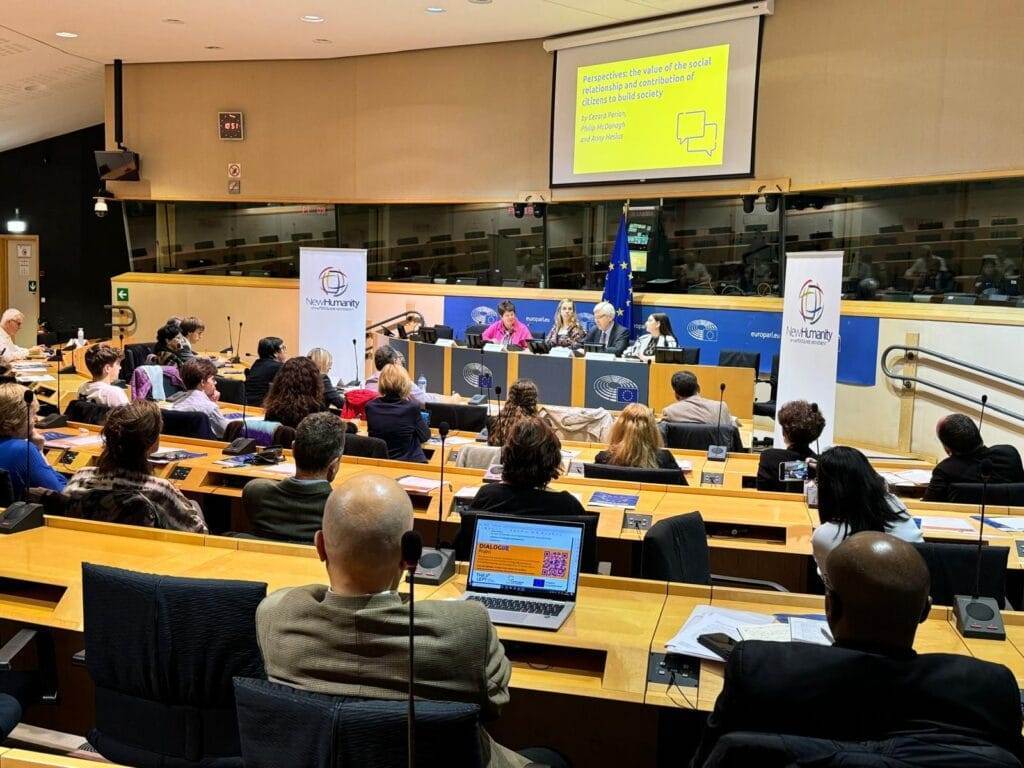
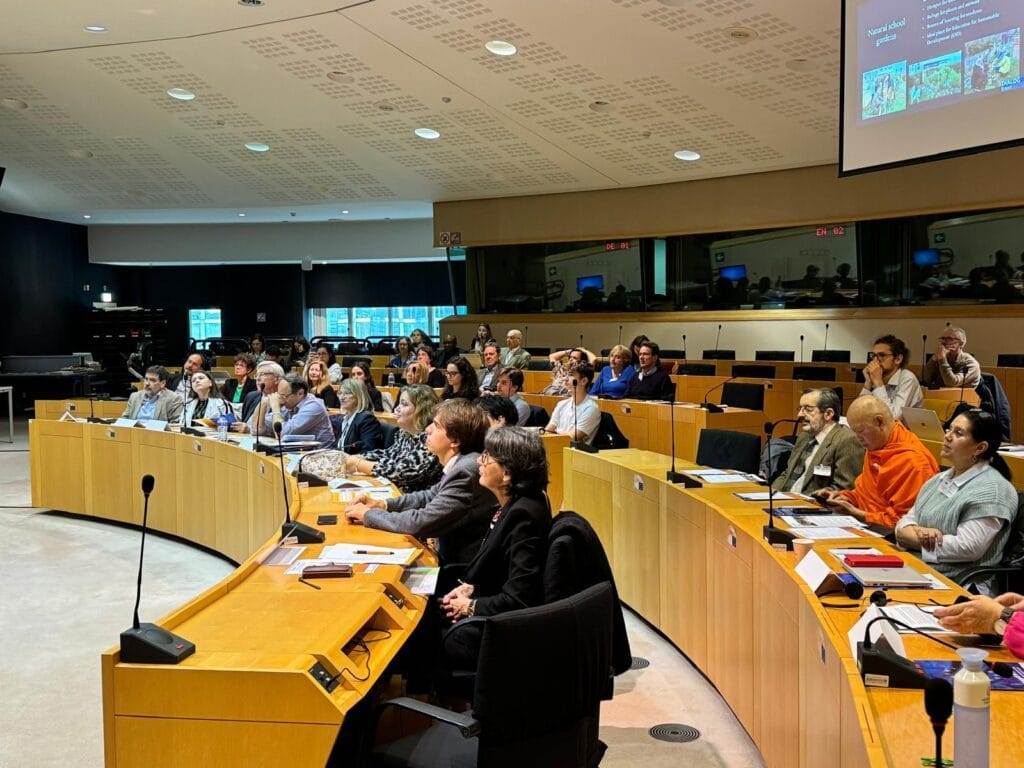
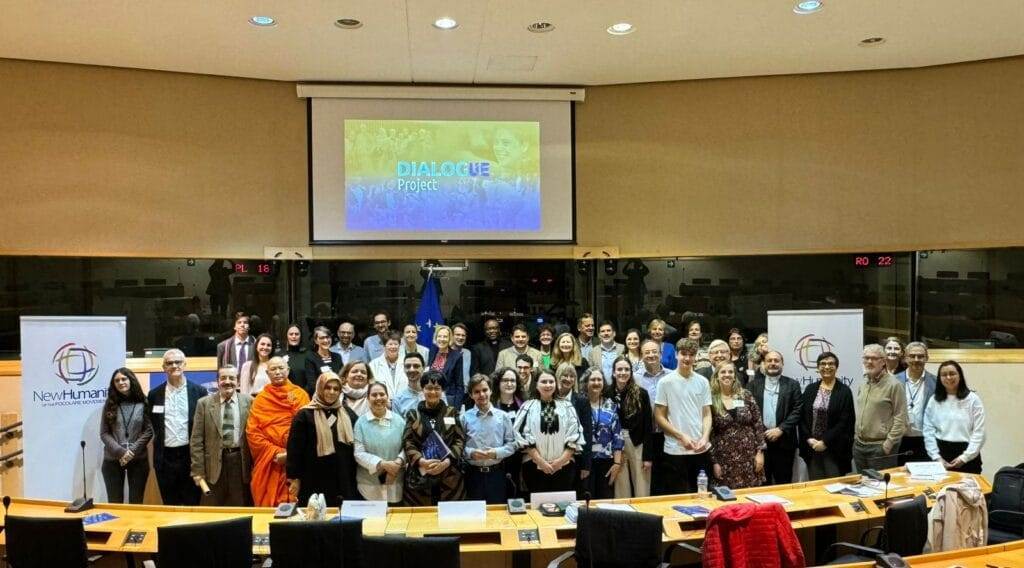
In 2023 and 2024, the project involved 4 dialogue groups in 3 main areas: Communication, Ecology and Social Policy. The dialogue groups were:
The project mainly facilitated the dissemination of the meaning and methodologies necessary for effective dialogue. It also brought together international experts on these three key challenges, who helped participants understand the main EU documents on these topics and explore the different dimensions of each theme.
The groups worked together to identify shared principles and common proposals. Their work led to recommendations that were submitted to the European Parliament.
The DialogUE project — was promoted by a consortium of 14 civil society organizations from 9 EU member countries.
Among the main results achieved by the project: 12 international meetings and a training for facilitators and experts; the direct involvement of 1,200 citizens and more than 10,000 indirectly; and the creation of the “Dialogue Kit,” intended for educators, NGOs, and policymakers to promote dialogue and social cohesion. These meetings resulted in shared recommendations for EU decision makers to promote more inclusive and sustainable policies.
In the afternoon of October 16, a discussion group hosted by KU Leuven (University of Leuven) in Brussels was held, during which participants analyzed some good practices that emerged from the project and discussed how to further disseminate these initiatives through the ‘Dialogue Kit.
Ana Clara Giovani – Tomaso Comazzi e Luisa Sello
Photo: ©Marcelo Pardo
For information about the project: https://www.new-humanity.org/en/project/dialogue/
To review the event click here:
Empathise with others
Have a kindly attitude
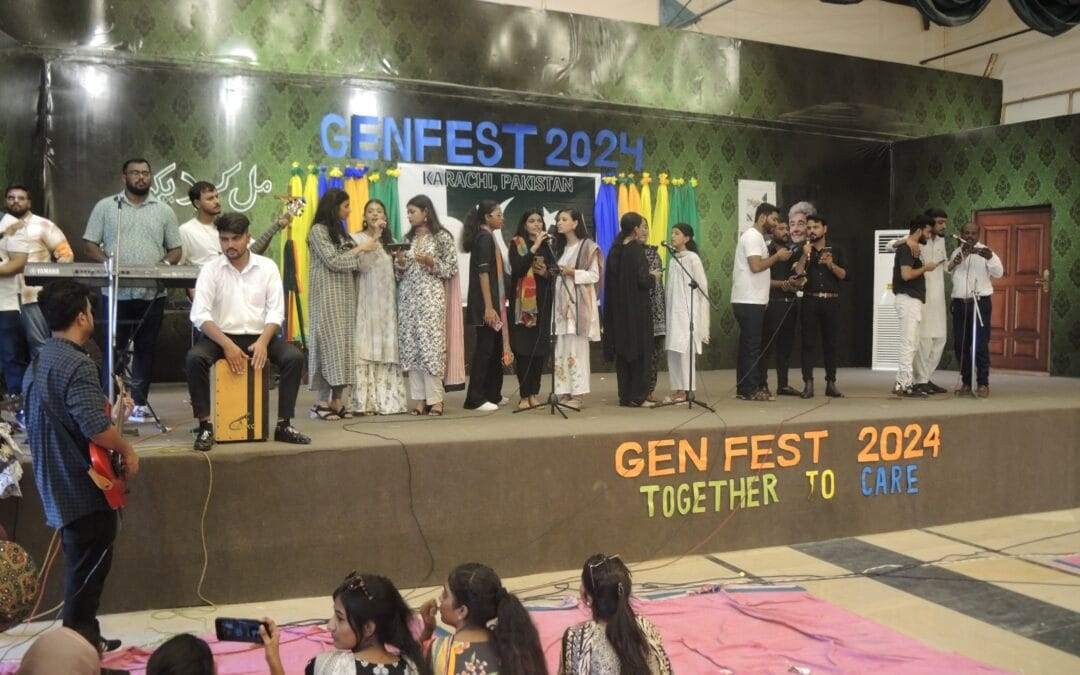
The young people of the Focolare Movement, in conjunction with the Genfest in Brazil, also organised 44 local editions of the Genfest in various countries around the world. Here are some pictures of the events in the various countries and some short testimonies from Ivory Coast, Ethiopia, Egypt, Jordan, Slovakia and Korea.
Make other people’s concerns your own
Highlight the others
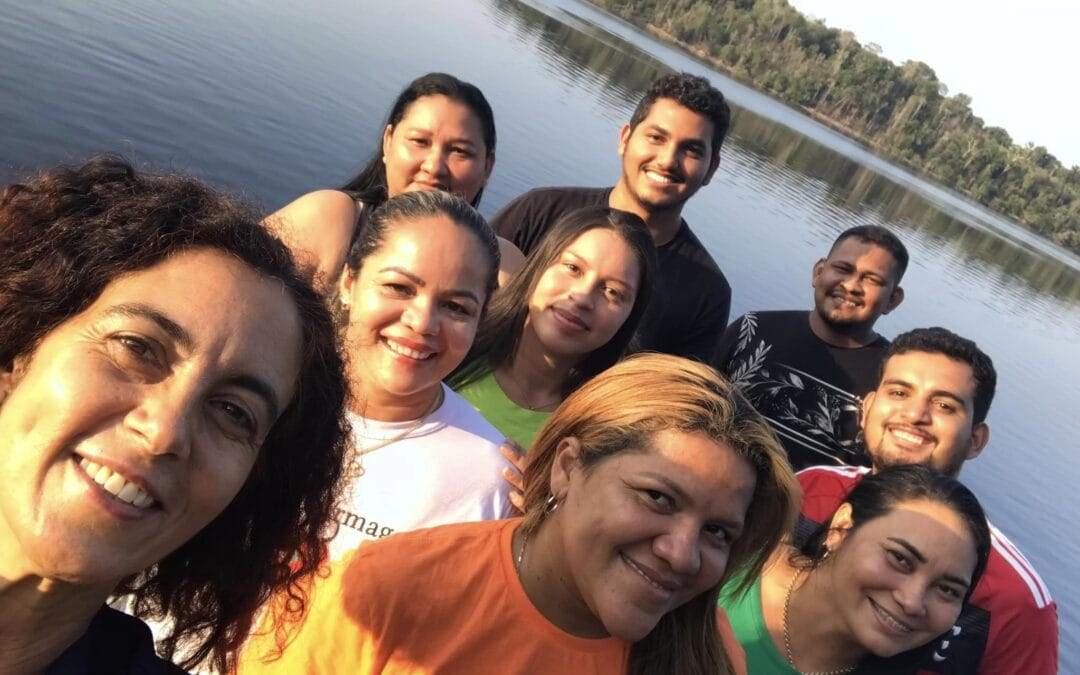
Paola Iaccarino Idelson is a nutritionist biologist and expert in nutrition. She lives in Naples, southern Italy. I learned from a friend that she went to Brazil during this summer 2024. Intrigued, I tried to find her on social networks. I was amazed by the beautiful photos she had taken during her trip and by the powerful stories, which revealed a profound experience. I therefore decided to contact her for an interview.
Paola, from Naples to Brazil: why did you choose to make this journey?
It is a very long story. I was in Brazil for the first time fourteen years ago in Florianópolis. I went there because I have a passion for the Brazilian language. But I didn’t want to go there as a tourist, so through a doctor friend, I went to help a colleague of hers as a volunteer. We supported a priest in his daily mission. He had opened a school to help children prevent delinquency, and started a surfboard repair shop to provide decent work for local youth. For three weeks I weighed and measured the height of the children in that school: it was such a strong, intense and beautiful experience that when I returned to Italy I had to remove it from my mind so that I could continue living my life as before.
And then? What happened?
Last year I broke up with my boyfriend who didn’t like Brazil. So I said to myself: the time has come to take up this dream once more. But again I wanted to experience it not as a tourist, but by helping the local community in some way. I talked about it with a focolarina friend and she put me in touch with the Focolare community in Amazonia.
I would have liked to volunteer as a nutritionist, my profession, but I was willing to do anything. One of the focolarine in Brazil, Leda, told me about the hospital ship ‘Papa Francisco’ where I could work. So I finally left in August 2024. Leda was an angel, she organised my whole itinerary, put me in touch with the Focolare community and took care of me for the whole time there in Brazil.
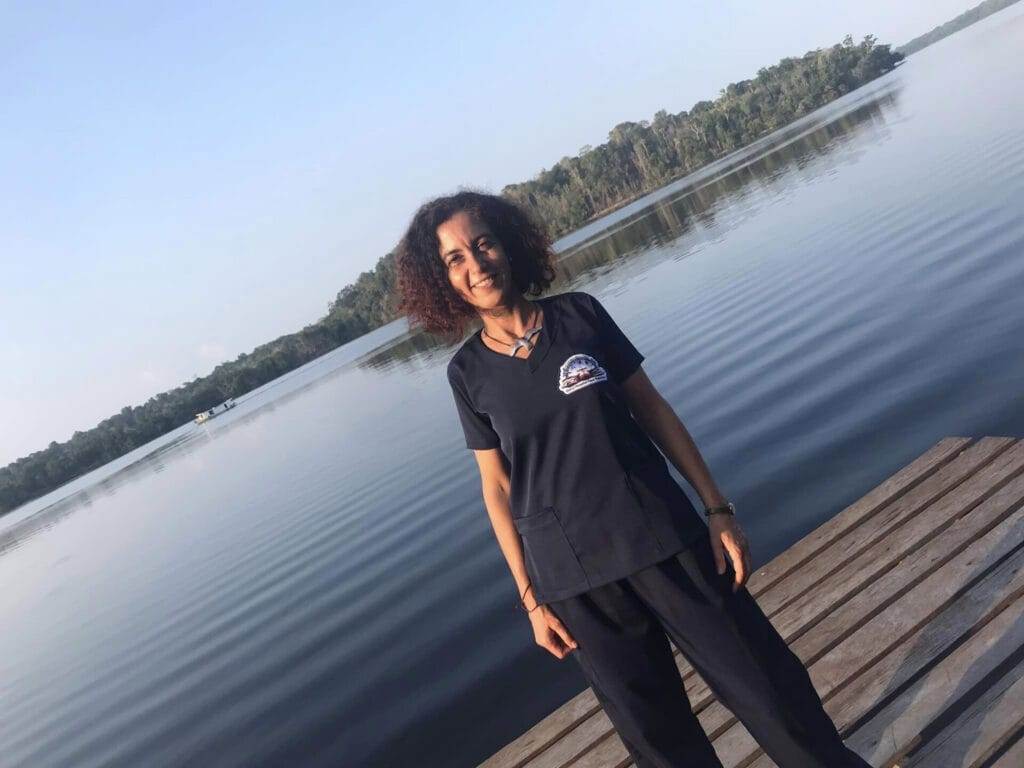
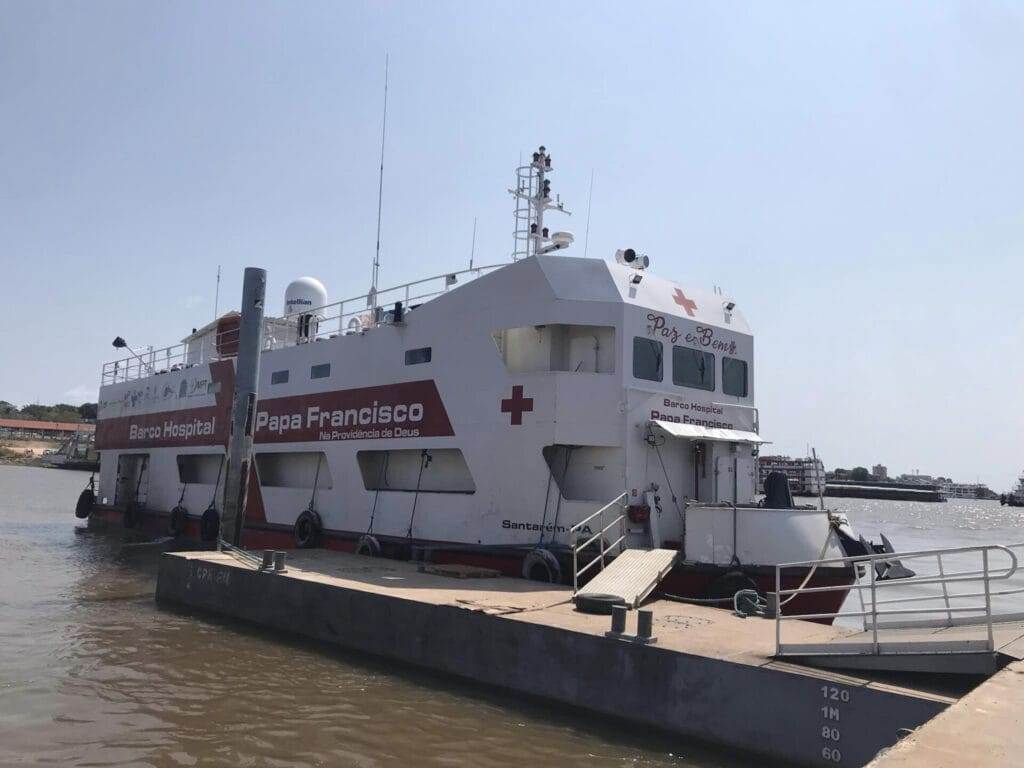
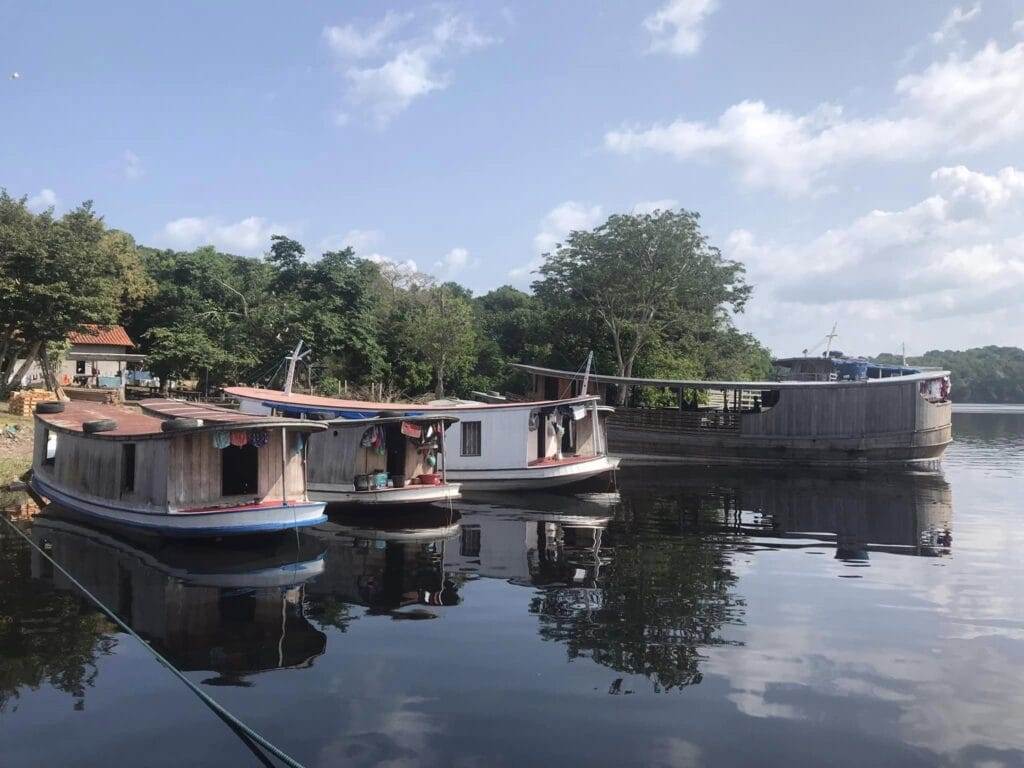
The hospital ship Papa Francisco: what did you do there?
There was no specific task for me, as an expert in nutrition. There were about ten doctors, each with their own consulting room. I helped where I could. The alarm clock was set for 6 am as by 6.30 people were already arriving from neighbouring villages to be treated. We had to do reception, register the arrivals and manage the influx. I also did nutritional counselling and realised that there was an overweight and obesity problem, especially in women. I wondered a lot about the reasons for such conditions as it was quite a common problem there. Talking to someone, I realised the problem was a lack of physical activity and widespread use of sugary drinks, sweets and meat.
You were also able to experience first hand a lot of poverty….
I saw really poor but very dignified people who manage to get their children to study. I was very impressed by one family. There are 10 children, you could see that they live in very poor conditions. The father also has some health problems. Despite that, the parents managed to get their children to study, and one of the daughters is about to become a photographer. Great dignity despite those living conditions.
You saw an abundance of diversity, from the natural environment to the colours of people’s skin, from food to smells to tastes…
It was one of the things that struck me most about this trip and that I carry with me. A huge diversity in the way of life, especially in the incredible variety of fruits, vegetables, grains, flowers, plants, the colours of the rivers, the animals, the people. When I registered the arrivals for the visits, in the computer you had to write the colour of the skin and I had four options related to the diversity of ethnicities, origins, skin colour… This diversity was a strong experience and I am convinced that it is a great richness.
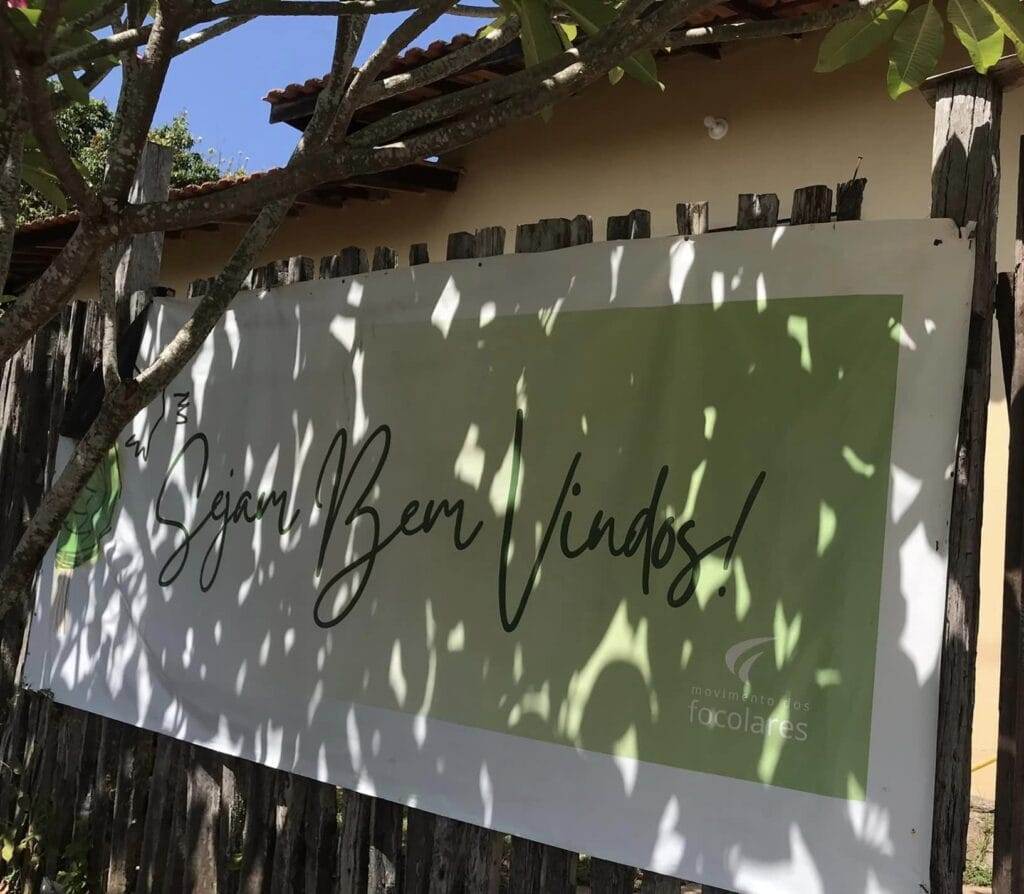
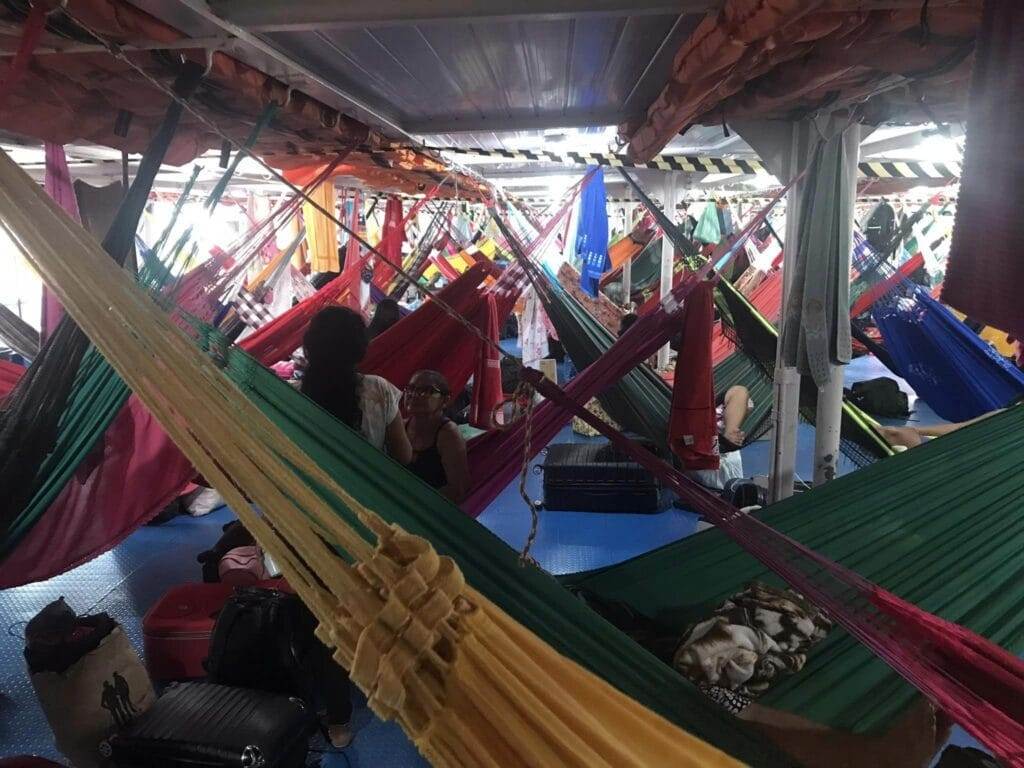
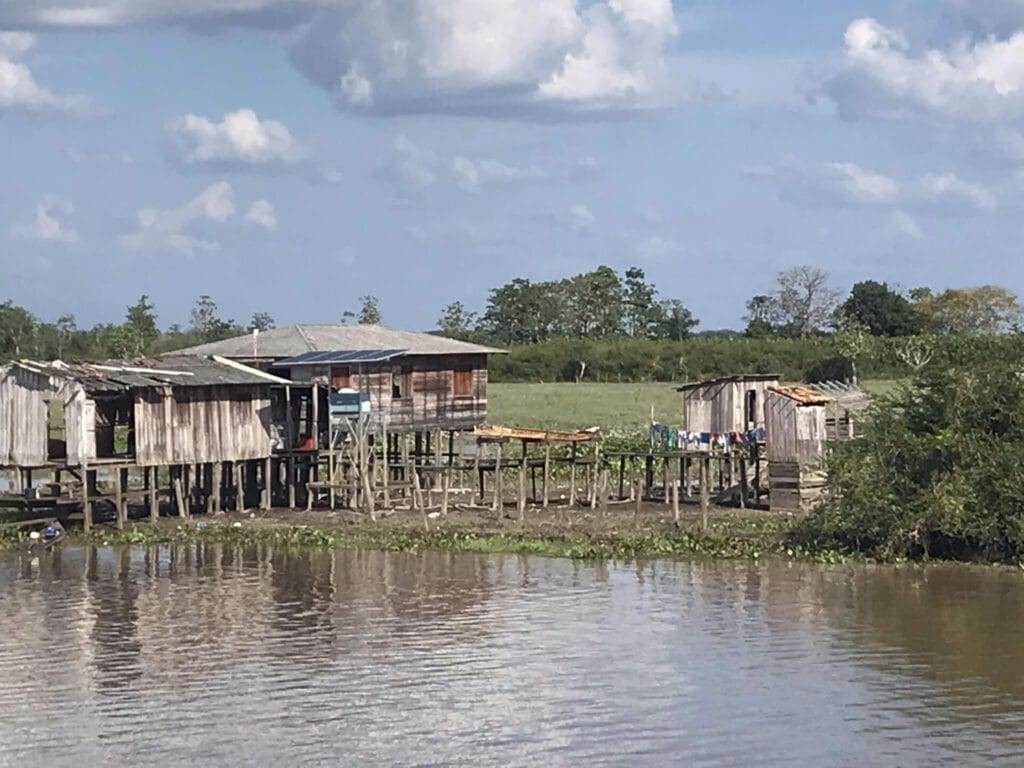
How did the Focolare community welcome you and help you in this experience?
It was fundamental. I felt welcomed in every place I went. Loving everyone was not a slogan, it was real. I felt loved, people were so open and selfless. It did me a lot of good, a very moving welcome.
You went there to give of your time and professionalism but you received so much more. Has this trip changed your life a bit?
Look, I am fifty years old, not twenty. But why am I saying this? Because in my twenties, or even perhaps in my thirties, I still had the idea of going somewhere to give. Now it is very, very clear to me that the possibility of giving of myself in fact gives me something back. I knew very well that the word ‘volunteering’ included so much. Giving one’s time to others is good. First of all for the giver. I certainly had a very strong experience of sharing with the Focolare community. Although I don’t know the Focolare as a spirituality, I greatly appreciate all its other forms of expression of concrete love. I think it was a very, very beautiful experience. This idea of being able to live together, pooling everything you have, is precisely the idea of community. Being able to do good to others and live with others is something I really like.
This trip has enriched me a lot. It has had and will have a big impact on my life. I have come across wonderful people, realities completely different from my own. I now know that sharing is really possible.
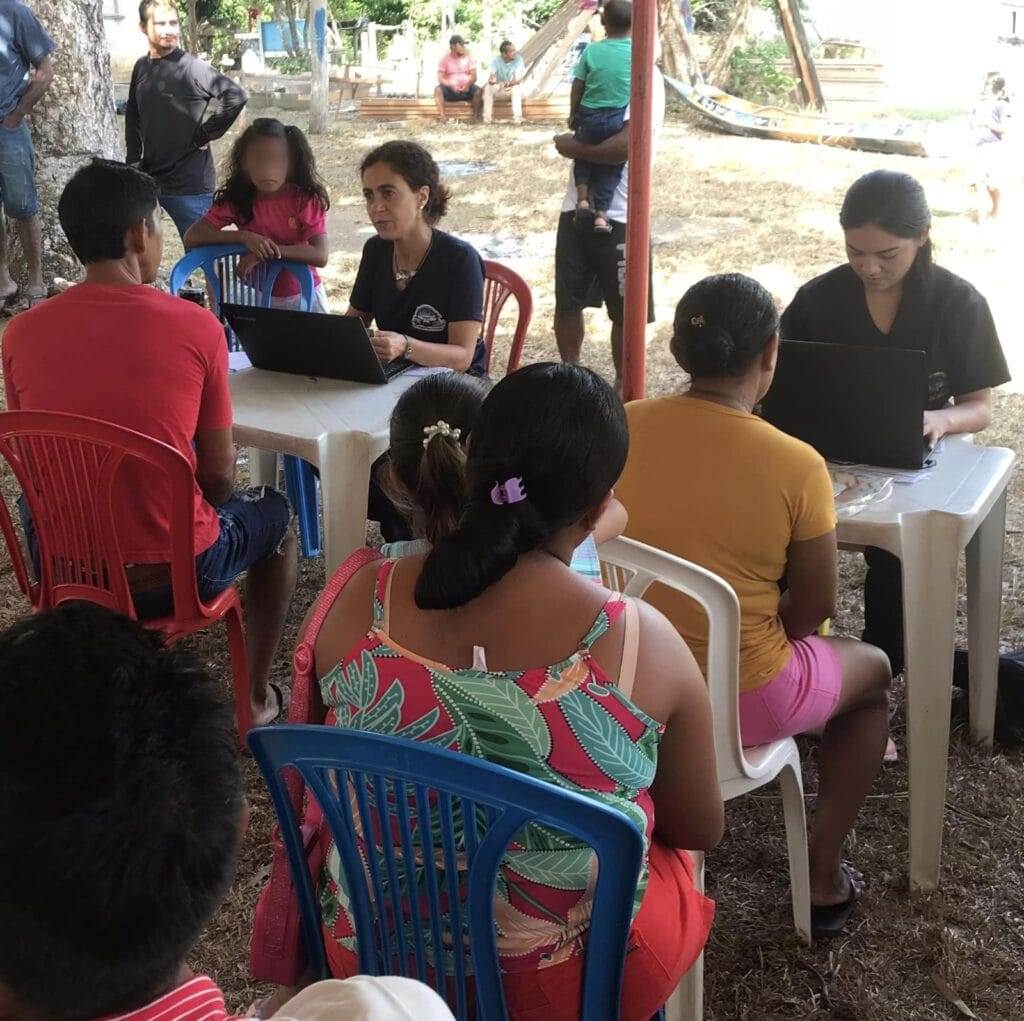
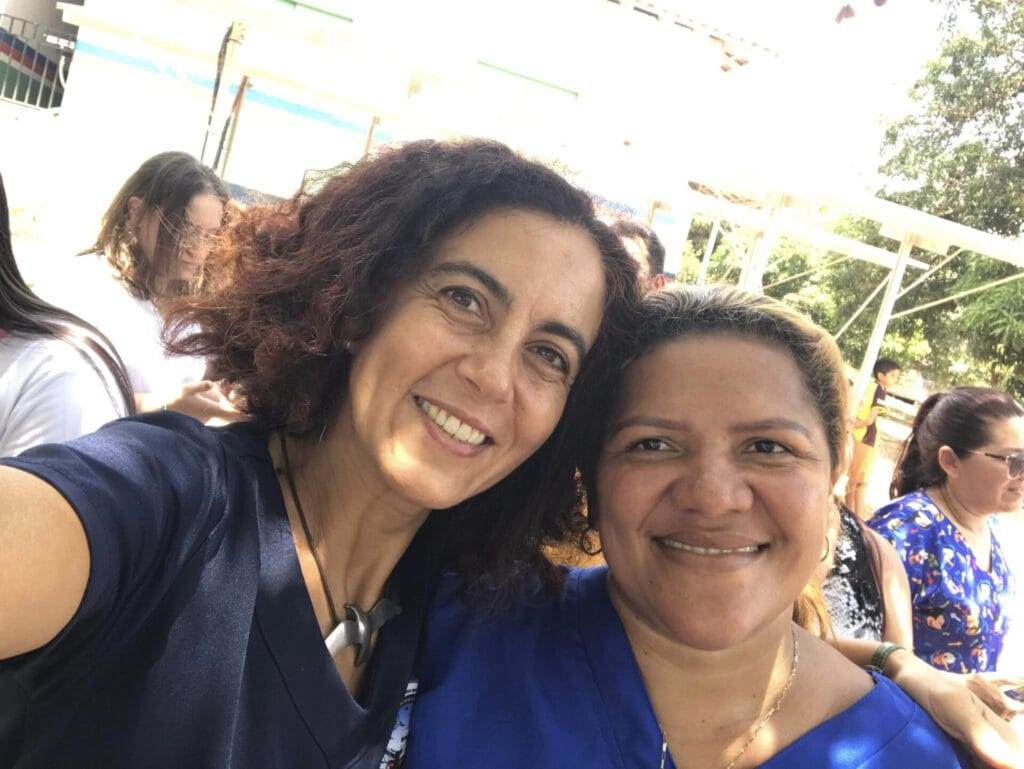
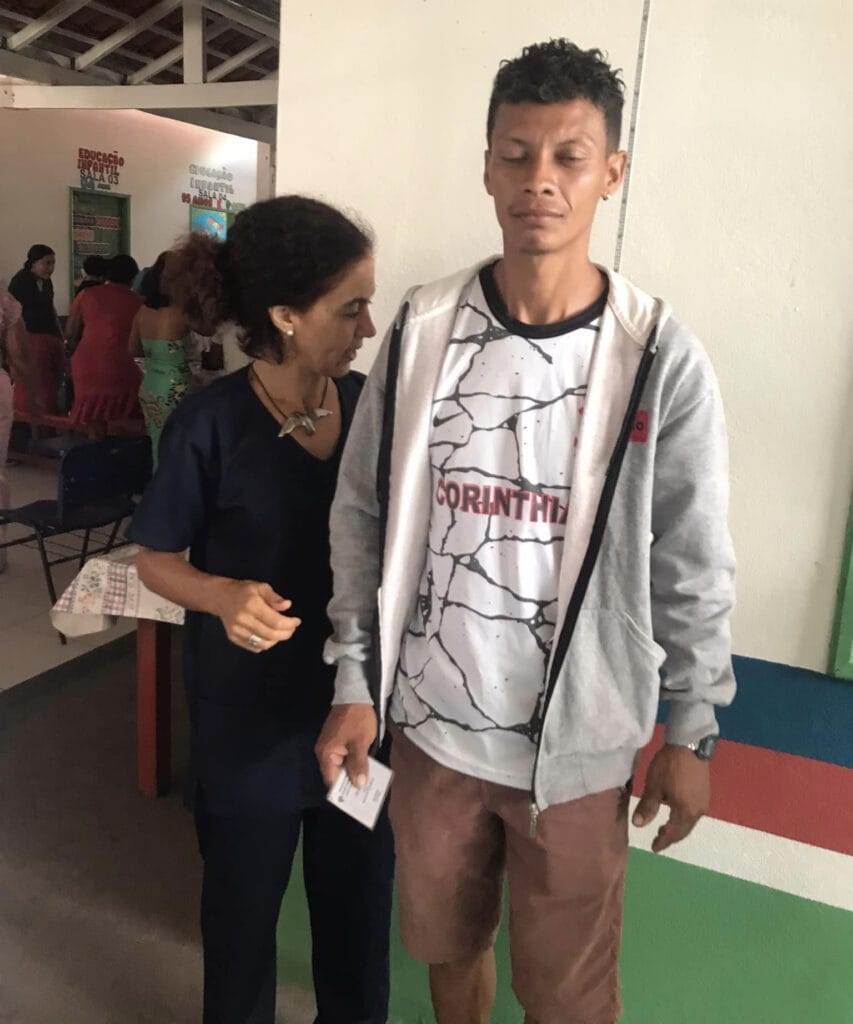
You then returned to Naples and had an unexpected welcome!
Yes, indeed many people I met on my return and who I still meet today, tell me they have read my travel diaries on social media, they thank me for sharing this experience. Many also thank me and some want to know more about this trip. So I got the idea to arrange photo prints and show them at an evening event, where I can also tell them more about the experience. This really struck me: we live in a society where there is never time for relationships. To be asked to spend time together to learn more about my experience is a beautiful thing.
In closing, let’s wind the tape back and look at both your first and second trip to Brazil: how do you live your life today?
My first Brazilian experience many years ago, as I said, had to be removed from my life. Now I am trying really hard not to remove this last trip, not to forget, to keep this experience in my life in Naples and Italy. I want to keep this memory alive. Why? Because it gives me a sense of purpose and strength and it is very gratifying.
The first thing I did, back in Naples, was to contact my Portuguese teacher, who is Brazilian, to learn the language better. But another thing I would like to achieve is a twinning between a Neapolitan kindergarten and a Brazilian one, which is under construction. It would be nice to help those children by sending backpacks and all the necessary school material. Above all, I would love to see Brazilian children and Neapolitan children share their experiences.
Lorenzo Russo
(photo: © Paola Iaccarino Idelson)
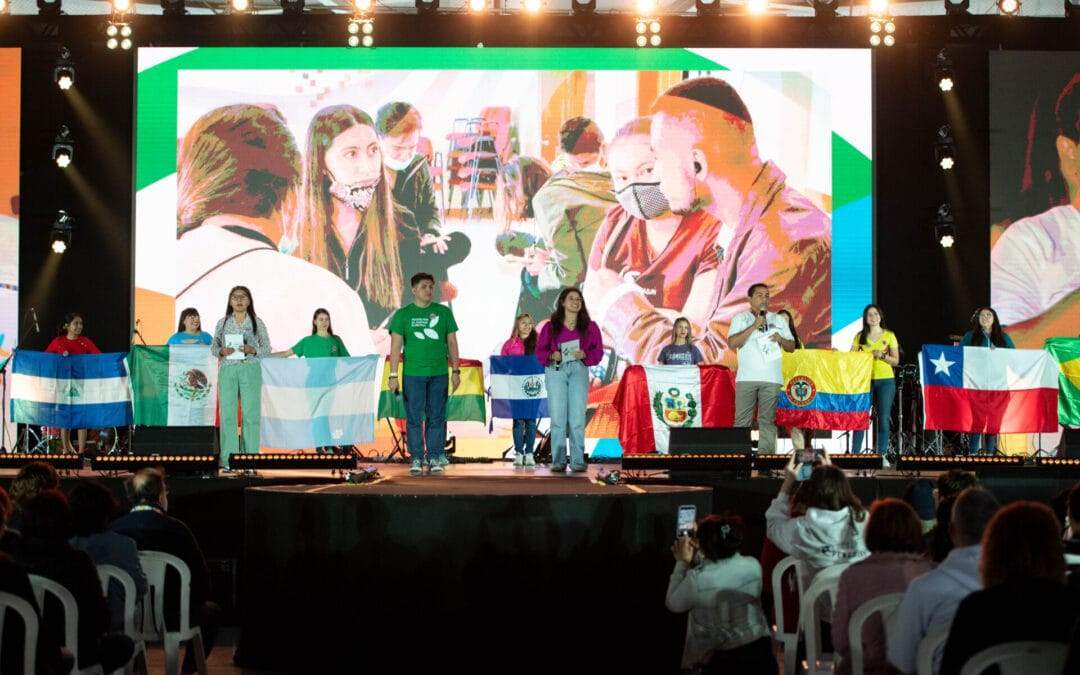
Genfest 2024, an international event promoted by the young people of the Focolare Movement, took place in Brazil in July and was attended by over 4,000 young people from all over the world. This event was divided into three phases.
In the first, the young people volunteered in some social projects in various countries of Latin America.
In the second phase the young people gathered together in the big arena of Aparecida to experience two days of celebration and sharing testimonies of life.
In phase three they then divided into small communities according to their professional experience to put into practice the ideal of unity and fraternity of Chiara Lubich.
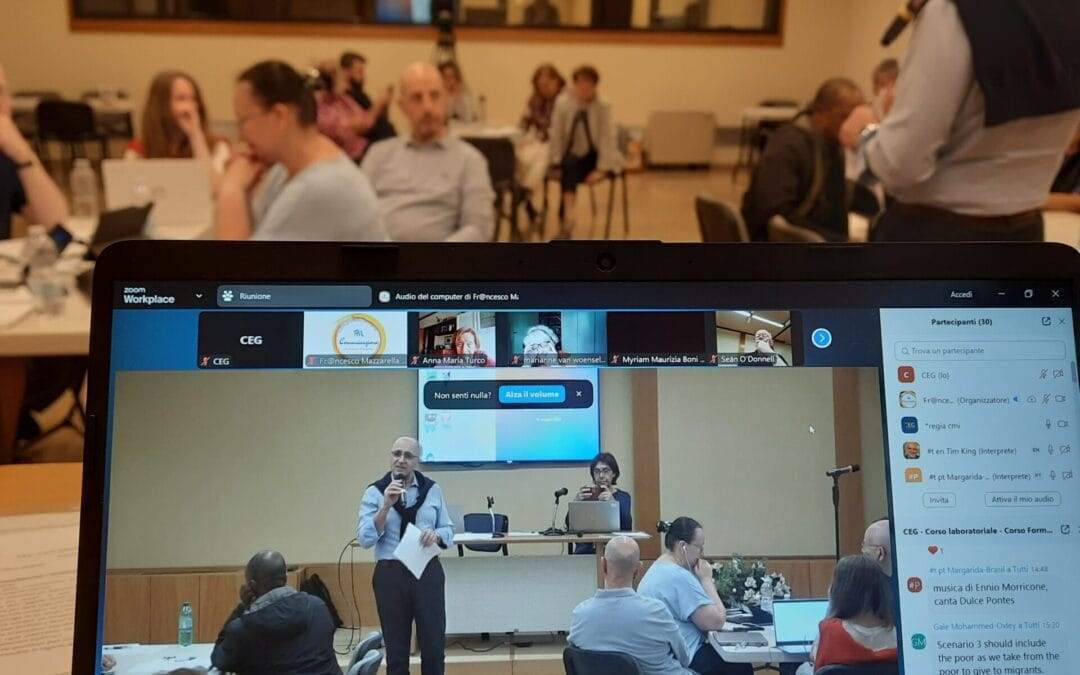
The third synodality training course organized by the Evangelii Gaudium Center of Sophia University Institute will soon begin its third edition. What kind of assessment can one make?
We are on our third edition, and so far this course has seen hundreds of participants from all over the world and dozens of faculty from various disciplines. It is an intercultural, interlingual and interdisciplinary course. The classes themselves are mini-workshops because an integral part of them are group meetings.
Thanks to online platforms, it is possible to take the course from anywhere in the world. The time for Europe is in the evening (6 p.m. to 9 p.m. Rome time) but some people connect at 3 a.m. from Singapore and Malaysia; some at lunchtime from the Americas.
We have had good participation. A total of 380 enrolled. Students can either just attend the lectures or engage with final papers and get academic credits from Sophia University Institute. We work in conjunction with the General Secretariat of the Synod, which is among the sponsors of the course.
It was interesting for us and a nice encouragement that during the press conference presenting the Instrumentum Laboris for the phase of the Synod Assembly that just began on October 1, 2024, Cardinal Hollerich said: “I would like to recall the many initiatives of formation on synodality (…) At the international level we recall the MOOC of Boston College that has seen the collaboration of many experts of the Synod or again the university course proposed by the Evangelii Gaudium Center of Sophia University here in Italy.” (Press conference 09-07-20249)
After two years, what are the prospects for this third edition?
It seems to us that the course has made a small contribution to help create communities of people committed to living and spreading synodality where they are. There are those who propose it to their diocese, organizing formation actions; those who live it in their parish or religious community… Very important is the multiplier effect of the course and the networks that are being created. Networks that are intertwined with many others from different church movements, universities or the Church itself.
Particularly interesting are the workshops that take place during the course, which can be joined via zoom or in-person.
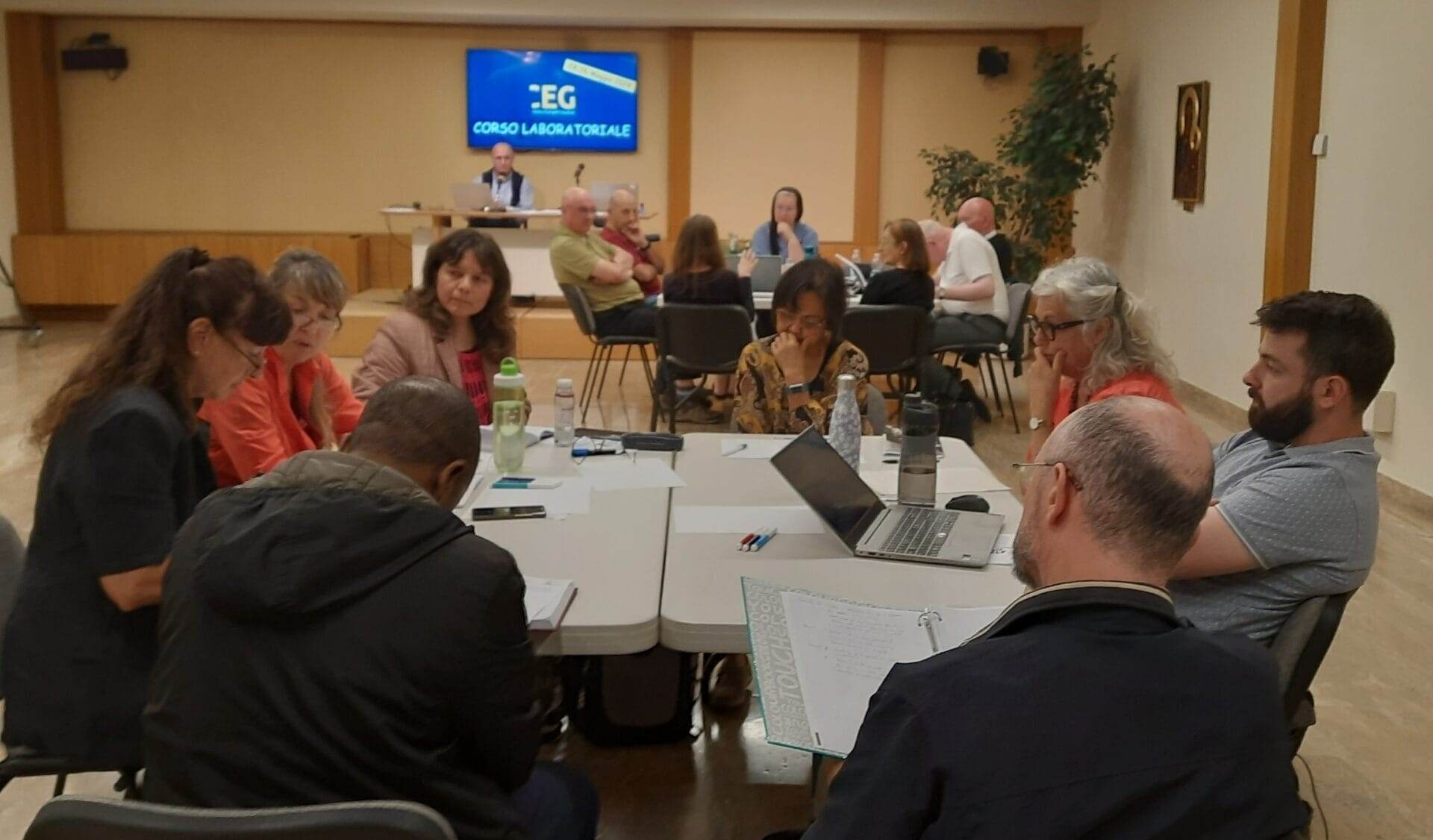
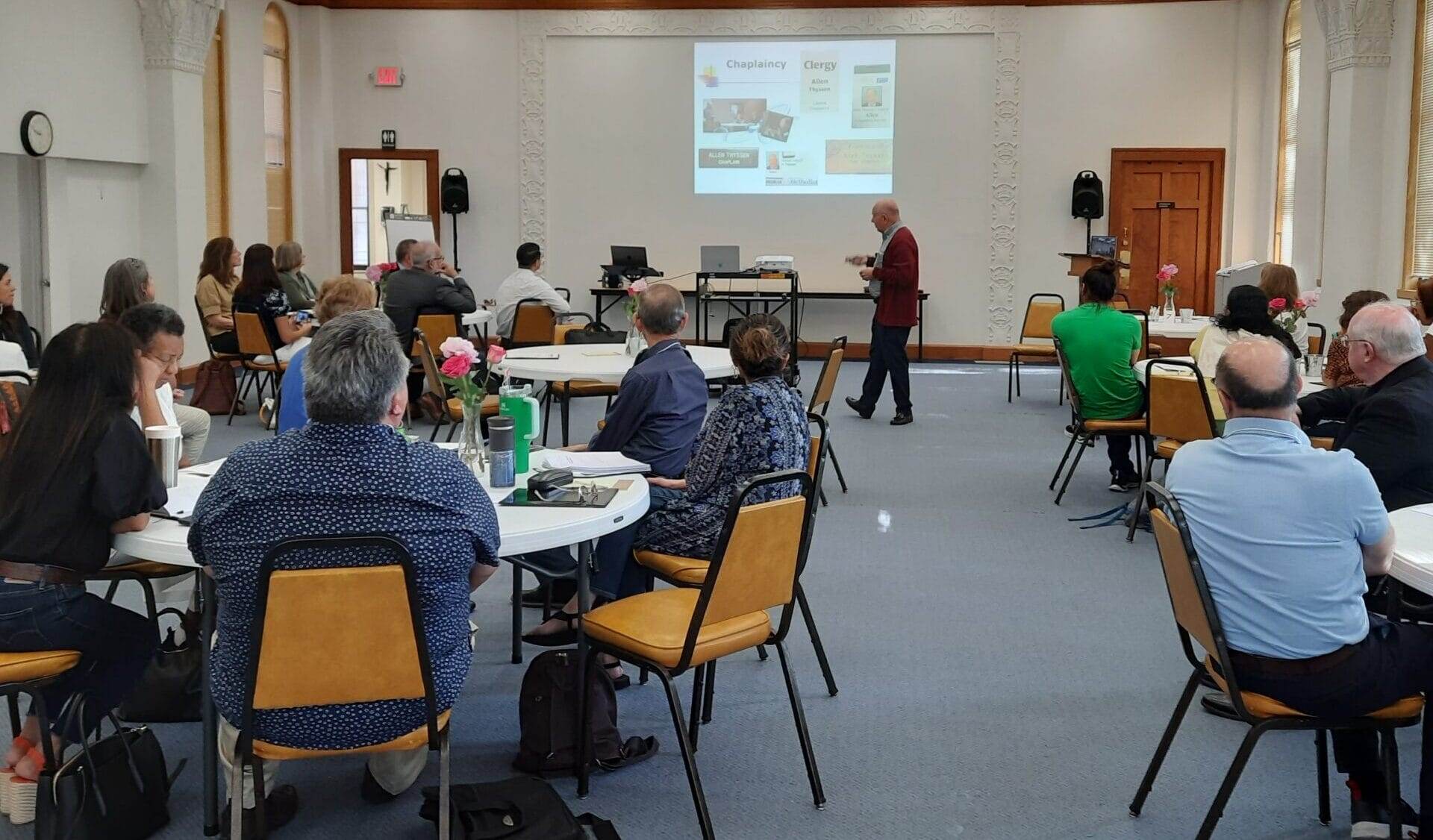
After the first year, a student from the U.S. proposed in her parish to take the course the following year: 12 signed up. At the end of the year, they asked to do the in-presence workshop in San Antonio. Forty people from various dioceses and the Oblate School of Theology in San Antonio participated.
The number of formation actions carried out are countless because they are done by the students themselves using the content and method of the lessons: in Ireland for an entire parish, in Italy in several dioceses as well as in Australia, in Sydney; while in the Democratic Republic of Congo recently an action was done for more than a hundred priests from 8 dioceses, and in Angola for all the clergy of the diocese of Viana.
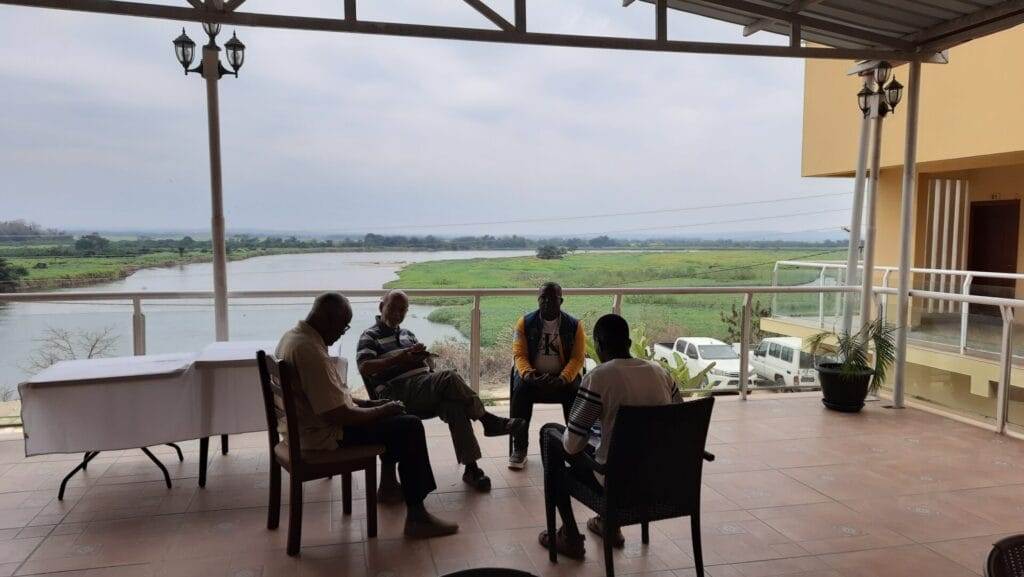
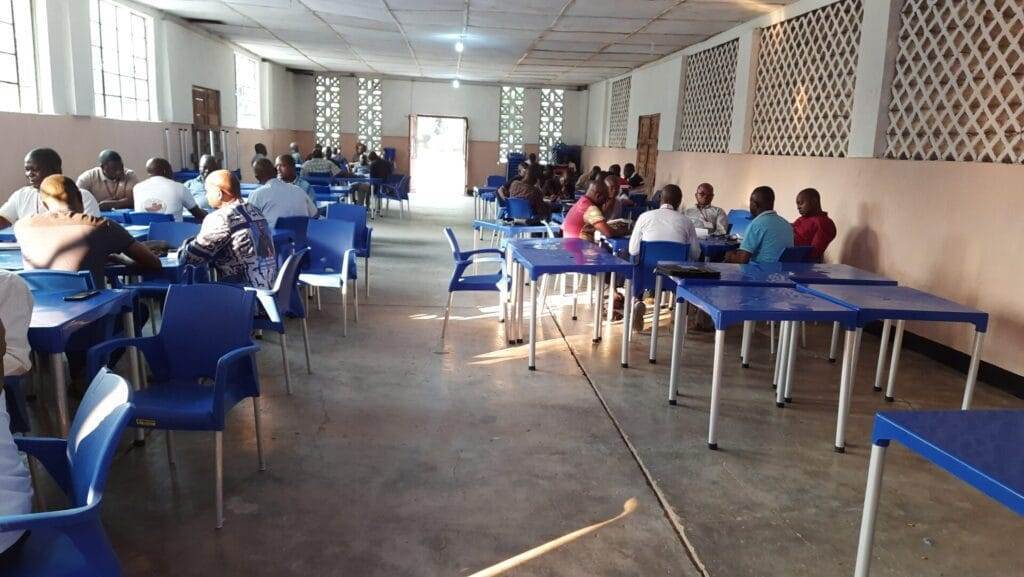
What will be the themes of the course that will start soon?
The next course will begin on Nov. 4, 2024, in the aftermath of the Assembly, with speeches by the Synod’s Secretary General himself, Msgr. Mario Grech, and the subsecretaries, Msgr. Luis Marin and Sr. Nathalie Becquart, theologian Piero Coda, and Margaret Karram, President of the Focolare Movement and special invitee to the Synodal Assembly.
The themes of the course will be those that emerged from the Assembly itself: paths opened by the 16th Ordinary Assembly of the Synod: new practices in a synodal and missionary Church; Christian initiation and transmission of faith in synodal style. It will conclude with an in-person workshop.
Why this commitment of the Evangelii Gaudium center to synodality? In the past you have devoted yourselves to other issues, such as training on abuse or training pastoral workers.
It seems to us that synodality is not a slogan destined to pass away. Synodality has always been part of the Church’s being, as is well understood even when reading the Acts of the Apostles. On the other hand, it is also the actualization of those reforms that the Second Vatican Council indicated for the Church but which, as can be understood, have struggled and are struggling to be implemented.
Pope Francis himself said in the celebration of the 50th anniversary of the establishment of the Synod of Bishops on Oct. 17, 2015: “The journey of synodality is the path God expects from the Church of the third millennium.”. And on October 9, 2021, he himself initiated the process of synod that today seeks to make its way throughout the Church.
From that point, we have been engaged in the formation and promotion of synodality through scholarships, seminars, trainings and networking around the world with other faculties and associations.
Synodality is also a style that is very much in keeping with the spirituality of communion that inspires the Sophia Center and Sophia University Institute. Card. Petrocchi, president of the Evangelii Gaudium Center’s Scientific Council, says we must come to “synodalize” our minds, both as individuals and as a church group, but also as a civil society group. Let us try to do our part, small but, we hope, effective.
Carlos Mana
Info: ceg@sophiauniversity.org
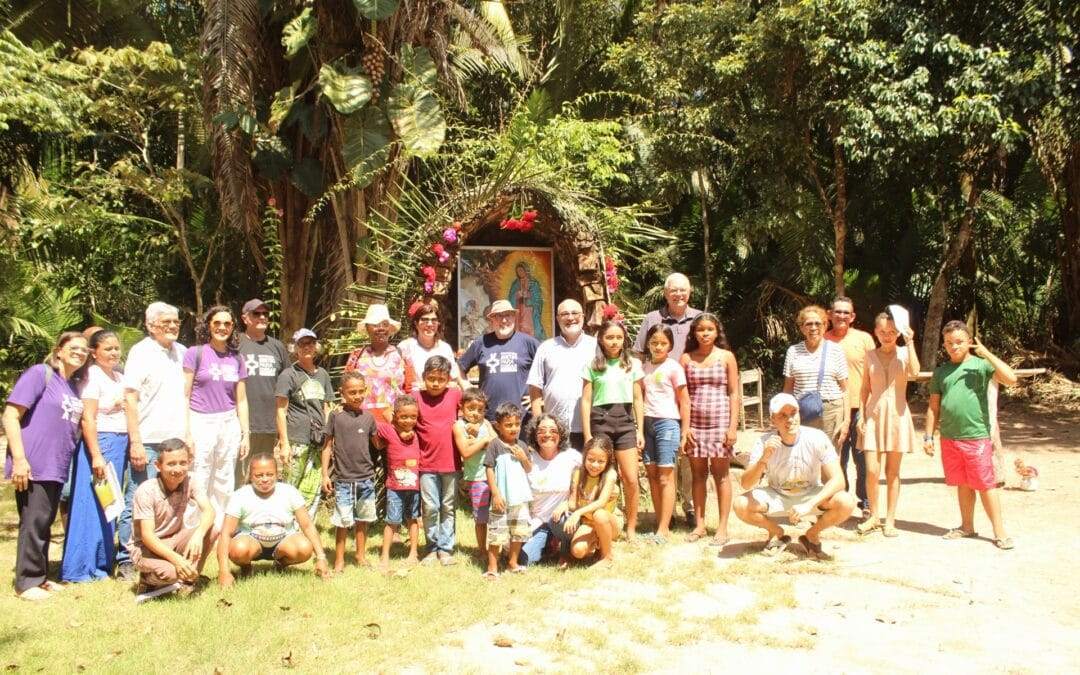
The President and Co-president of the Focolare Movement spent a month in Brazil to meet the local communities and live the experience of the Genfest, a worldwide event promoted by the young people of the Movement. Care, horizontal solidarity, believing in it: these are the 3 words that sum up the powerful experience lived during July 2024.
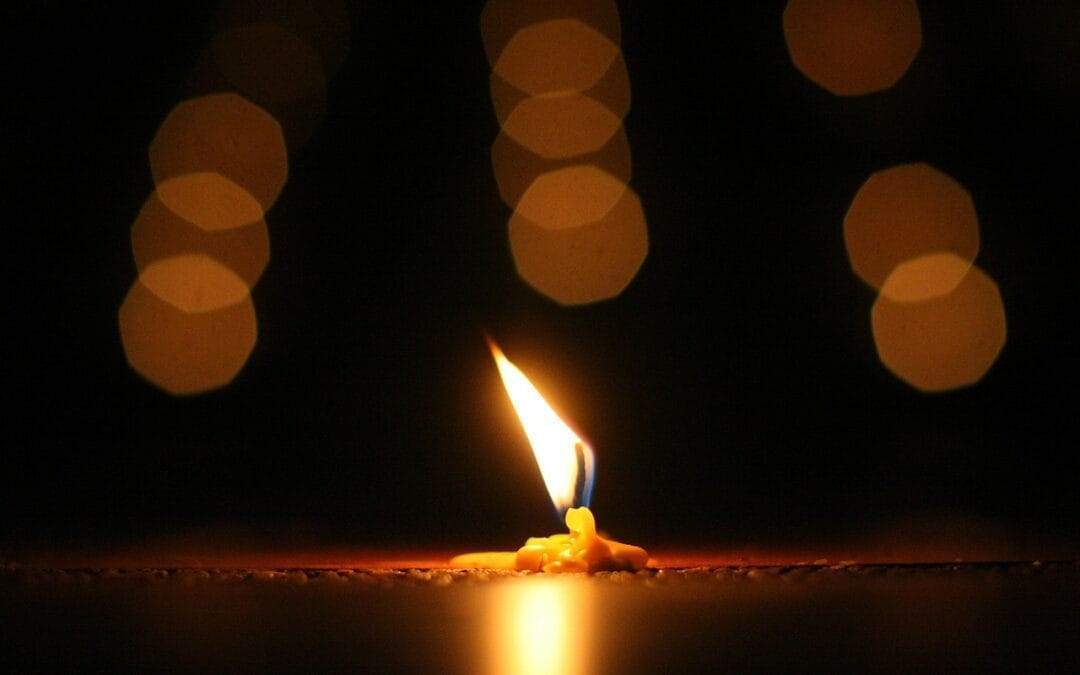
You strive and work for a united world (a world of peace and fraternity).
What are you doing to reach this goal? You are involved in activities that might appear to be small and, although meaningful, out of proportion with your proposed objective. When you are older, perhaps some of you will be more directly involved in the various organizations aimed at building a united world.
I believe that, although all that you do will be very helpful, it is not one activity or another that will play a decisive role towards this goal.
Instead, the deciding factor is that of offering a soul to the world. And this soul is love. …
Today we must “be love”, we must feel what the other person is feeling, live the other, the others, and aim at achieving unity … all over the globe. …
Therefore, we must build relationships of unity, solidarity, which are rooted in love.
You must live out this love first of all among yourselves.
So as to reach the point of living it with many, many others, wherever you go; when you meet ordinary people for example and with those who govern their future or those in public institutions, and in the smaller or bigger organizations of the world… everywhere. Only then will they fulfil the purpose for which they were established and truly work for a united world, (a world of peace).
Chiara Lubich
This thought was read by Margaret Karram, President of the Focolare Movement, during Connection on 28 September 2024. It can be seen by clicking here.
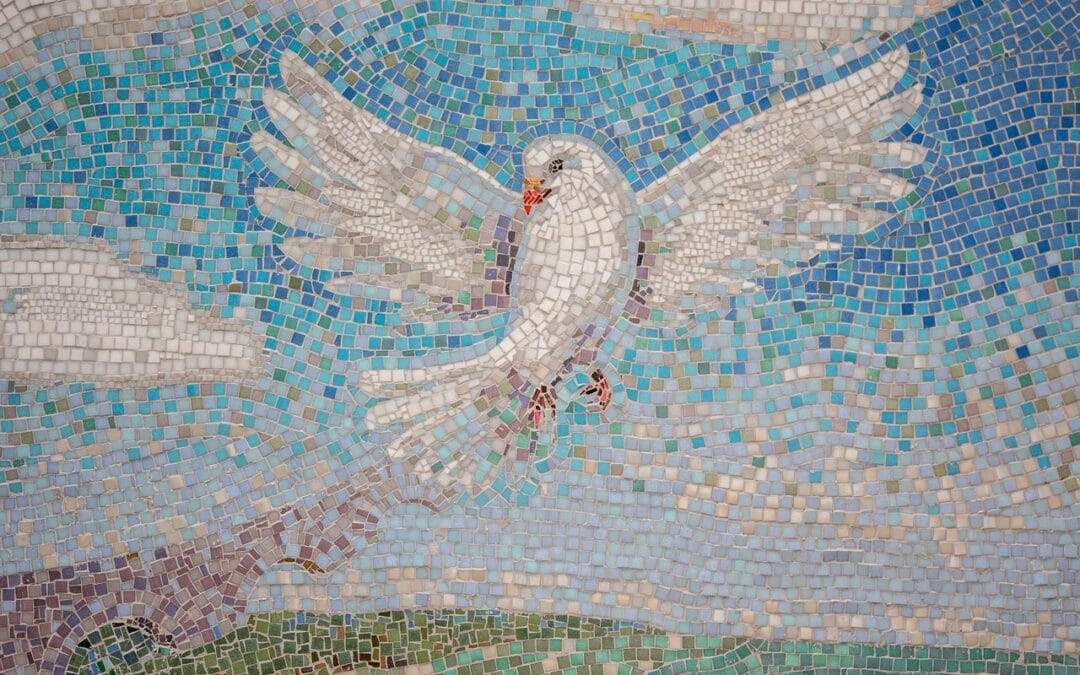
In the growing tensions in the Middle East powder keg, under the falling bombs and missiles into the ‘martyred’ Ukraine, amidst the great number of the conflicts that lacerate and starve the peoples of Africa, while ‘the winds of war and the fires of violence continue to upset entire peoples and nations’, Pope Francis calls to the ‘weapons’ of fasting and prayer – those which the Church indicates as powerful – millions of believers from all continents to implore from God the gift of peace in a world on the brink of abyss.
As he had already done for the conflicts in Syria, the Democratic Republic of Congo and South Sudan, Lebanon, Afghanistan, Ukraine and the Holy Land from 2013 to 2023, Pope Francis called for a new day of prayer and abstention from food to invoke the gift of peace for Monday 7 October 2024, also announcing his visit on Sunday 6 October 2024 to the Basilica of Santa Maria Maggiore in Rome to pray the Rosary and pray to Our Lady, asking for the participation of all members of the Synod.
‘We cannot but call once again on the rulers and those who have the grave responsibility for decisions,’ wrote Card. Pierbattista Pizzaballa, Patriarch of Jerusalem of the Latins in a letter to his diocese adhering to the Pope’s appeal – to a commitment to justice and respect for everyone’s right to freedom, dignity and peace’. The Patriarch went on to reiterate the importance of everyone’s commitment to building peace in their own hearts and in community contexts, supporting ‘those in need, helping those who are working to alleviate the suffering of those affected by this war and promoting every action of peace, reconciliation and encounter. But we also need to pray, to bring to God our pain and our desire for peace. We need to convert, to do penance, to implore forgiveness’.
Edited by Carlos Mana
Source: vaticannews.va
Photo: © Pixabay

On Oct. 4, the day of St. Francis of Assisi, ends the period of the Season of Creation, a period in which it is proposed to deepen dialogue with God through prayer, associated with concrete actions for the care of the planet. The Focolare Movement has always supported the initiative by participating and organizing events in various parts of the world. Here are some initiatives from the Season of creation 2024.
In Leonessa, at the center Italy, a nature walk was held. The event, entitled Breaths of Nature: together for our planet, was attended by young and old alike. The group of participants departed from the Capuchin friars’ monastery, led by the friars themselves together with the forest police, the Italian Alpine Club and Prof. Andrea Conte, astrophysicist and Italian coordinator of EcoOne, the Focolare Movement’s Ecology network. The excursion culminated at a spring, where Prof. Conte led an evocative meditation on the journey of a carbon atom in the environment. Conte then showed how to turn ordinary waste into tools for scientific experiments, demonstrating how science can be fun and affordable for everyone.
Following this, topics such as environmental awareness, the effects of climate change and the importance of education for sustainability were discussed in depth at the town’s Auditorium. Prof. Luca Fiorani, from the EcoOne International Commission, offered an in-depth analysis of Pope Francis’ encyclical Laudato Si’, the concept of integral ecology and relational sustainability. The large attendance and the attention shown by those in attendance is proof of a growing interest in environmental issues and a growing awareness of the importance of taking action to protect our planet.
In Oceania, this is the fourth year that the Focolare community has contributed to ecumenical prayer for the Season of Creation. “We have been praying and witnessing through various actions of caring for our common home,” they recount. ”This prayer service is our effort to give hope to our vast area that stretches 7,000 km from Perth, Western Australia, to Suva, Fiji, the largest island nation in the heart of the Pacific. This was followed by a reflection by Jacqui Remond, co-founder of the Laudato Si’ Movement and professor at the Australian Catholic University, who spoke about the need to change hearts for ecological conversion.
Archbishop Peter Loy Chong of the Archdiocese of Suva in Fiji could not join them because he was welcoming Pope Francis in Papua New Guinea. But he sent a message emphasizing in particular the importance of the word “Tagi,” which means “the cry of the peoples of Oceania.” It is the cry of the small Pacific islands in the face of climate change, which has not yet affected the world. Or rather: the world has not yet listened deeply to the voices and particularly the cry of the people of Oceania.
Various experiences followed such as the creation of an Aboriginal reconciliation garden at the Mariapolis Center in St Paul. Horticulture students and their teachers who use the center for their classes were invited here. They are all migrants and were very interested in learning about the important indigenous food plants.
Young people from Sydney, Canberra and Melbourne, on the other hand, joined with an Aboriginal elder for a walk in the countryside where they learned how to relate to and care for creation.
In Mexico, a course was held on ecological conversion and spirituality, an open dialogue for the care of the Common Home. It was an initiative of the Evangelii Gaudium Mexico Center, Sophia ALC University together with the Focolare Movement. Five online sessions – one each week during the Season of Creation – by Prof. Lucas Cerviño, focolarino theologian and missiologist. 87 participated from different Latin American countries, from Mexico to Argentina. Here are some of the themes addressed: the ecological crisis and conversion; metamorphosis of the sacred and spirituality; God is love as a fabric of life in love; listening to the cry of the earth and the poor as love for Jesus forsaken and crucified; unity looked at as cosmic fraternity to care for the Common Home; Mary as Queen of Creation and the presence of Mary’s mystical body.
Finally, in Italy, in the city of Padua, the “Path of the 5Cs of Laudato Sì” was inaugurated thanks to the network Nuovi Stili di Vita made up of civil, religious, and lay associations-including the Focolare Movement-that care about promoting lifestyles that are moderate and respectful of nature, sustainable economy, and that stimulate communities with initiatives and proposals to achieve the common good together.
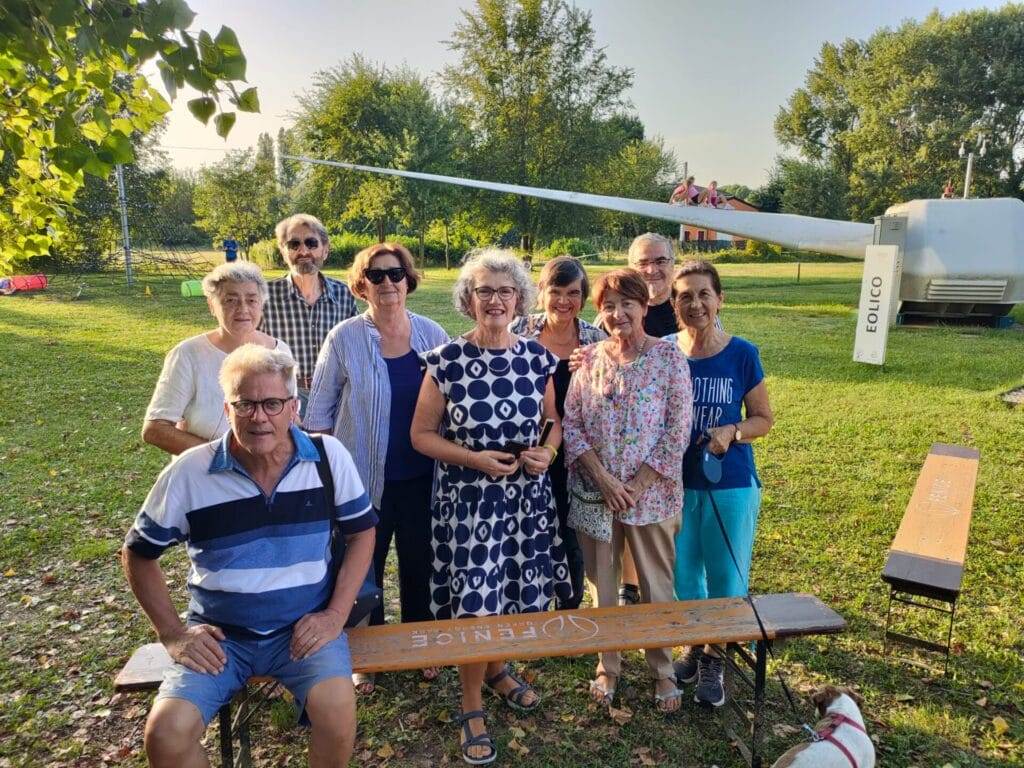
The 5Cs path was installed at a flowerbed where in 2011 the five Ecumenical Churches, (Catholic, Orthodox, Lutheran, Methodist and Evangelical), celebrated the Day for the Custody of Creation by planting five beech trees together. It was preceded by a short concert by a young singer-songwriter from Vicenza who communicated to us the sensitivity and dreams of today’s youth toward a future of hope.
The 5Cs highlight five terms taken from Pope Francis’ encyclical: custody, conversion, community, care, change. The event was lived with intensity and was a spur for resolutions of concrete commitment to achieve a better, more just and equitable world, in harmony with the Earth we inhabit.
Lorenzo Russo
Photo: © Pexels and Focolari Padova
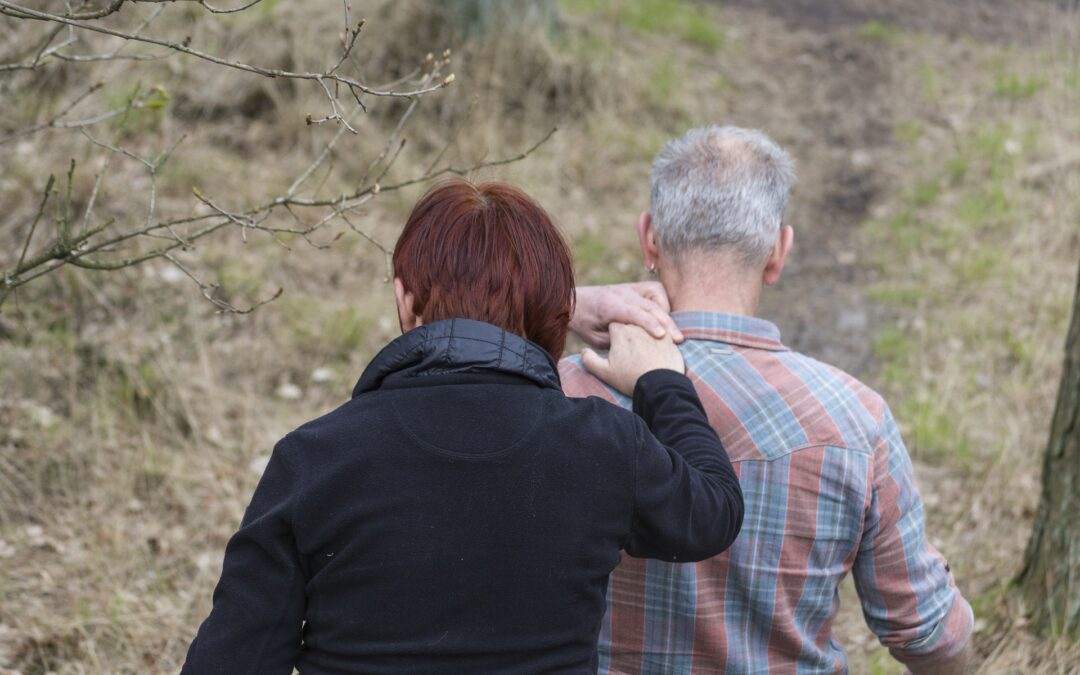
Jesus is on his way to Jerusalem and, for the third time, he tries to prepare his disciples for the dramatic event of his passion and death but those who have followed him most closely are very ones who seem unable to understand what is about to happen.
Infact, conflict arises among the apostles themselves: James and John ask to occupy places of honour ‘in his glory’ [1] and the other ten become indignant and start to complain. In short, the group is divided..
Then Jesus patiently calls them and repeats what he has proclaimed. His words are so new that they create a sense of shock.
Whoever wants to become great among you must be your servant, and whoever wants to be first must be slave of all.
In this phrase from Mark’s gospel, the image of the servant-slave reaches a crescendo. Jesus leads us from having an attitude of simple availability within the limited and affirming groups to which we may belong to being totally dedicated to everyone, with no exception.
This is a completely alternative and countercultural proposal when compared to the usual human understanding of authority and governance which possibly fascinated the apostles themselves and impacts upon us too.
Perhaps this is the secret of Christian love?
‘One word in the Gospel that is not emphasized enough by Christians is “serve”. It may seem old-fashioned to us, unworthy of the dignity of human beings who both give and receive. Yet it is central to the Gospel which is all about love. And to love means to serve. Jesus did not come to command but to serve. To serve, to serve one another is the heart of Christianity, and whoever lives this with simplicity – and everyone can do so – has done all that is necessary. Doing so ensures that people do not remain alone because since love is the essence of Christian life, it spreads like fire.’ [2]
Whoever wants to become great among you must be your servant, and whoever wants to be first must be slave of all.
The encounter with Jesus in his Word opens our eyes, just as it did for the blind man, Bartimaeus, whose story is found immediately after this Word of Life. [3]Jesus frees us from our narrow vision and allows us to contemplate the horizons of God himself, of his plan for ‘new heavens and a new earth.’ [4]
Jesus washed the feet of others [5] and by his example overturned the often rigid practice in society, and even in religious environments, of relegating the task of practical service to a certain class of people.
Christians, therefore, should imitate Jesus’ example and learn from him a new style of life in society. This means being a ‘true neighbour’ to each person we encounter, whatever their social or cultural condition may be.
As John Anziani, a Methodist pastor of the Waldensian Church, suggests, ‘By agreeing to place our trust and our hope in the Lord, who is the servant of many, the Word of God asks us to act in our world and in the midst of all its contradictions, as people who work for peace and justice, as bridgebuilders who facilitate reconciliation among nations.’ [6]
This is also how Igino Giordani, writer, journalist, politician and family man, lived during a time marked by dictatorship. To describe his experience, he wrote: ‘Politics is – in the most dignified Christian sense – a “servant” and must not become a “master”: nor should it abuse, dominate or dictate. Its function and dignity is to be of service to society, to be charity in action, to be the highest form of love for one’s homeland.’[7]
Through the witness of his life, Jesus proposes to us a conscious and free choice. Rather than living closed in on ourselves and our own interests, we are asked to ‘live the life of the other person,’ feeling what they feel, carrying their burdens and sharing their joys.
We all have small or large responsibilities and spheres of authority. These may be in the field of politics or in other areas of society such as within our families, schools or faith communities. Let’s take advantage of our ‘places of honour’ to put ourselves at the service of the common good, creating just and compassionate human relationships with everyone.
Edited by Patrizia Mazzola and the Word of Life Team
Photo: © Pixabay
[1] Cf. Mc 10,37.
[2] C. Lubich, Servire, in «Città Nuova» 17 (1973/12), p. 13.
[3] Cf. Mc 10, 46-52.
[4] Cf. Is 65, 17 e 66, 22, ripreso in 2 Pt 3,13.
[5] Cf. Gv 13,14
[6] https://www.chiesavaldese.org/marco-1043-44/
[7] P. Mazzola (a cura di), Perle di Igino Giordani, Effatà editrice Torino 2019, p. 112.
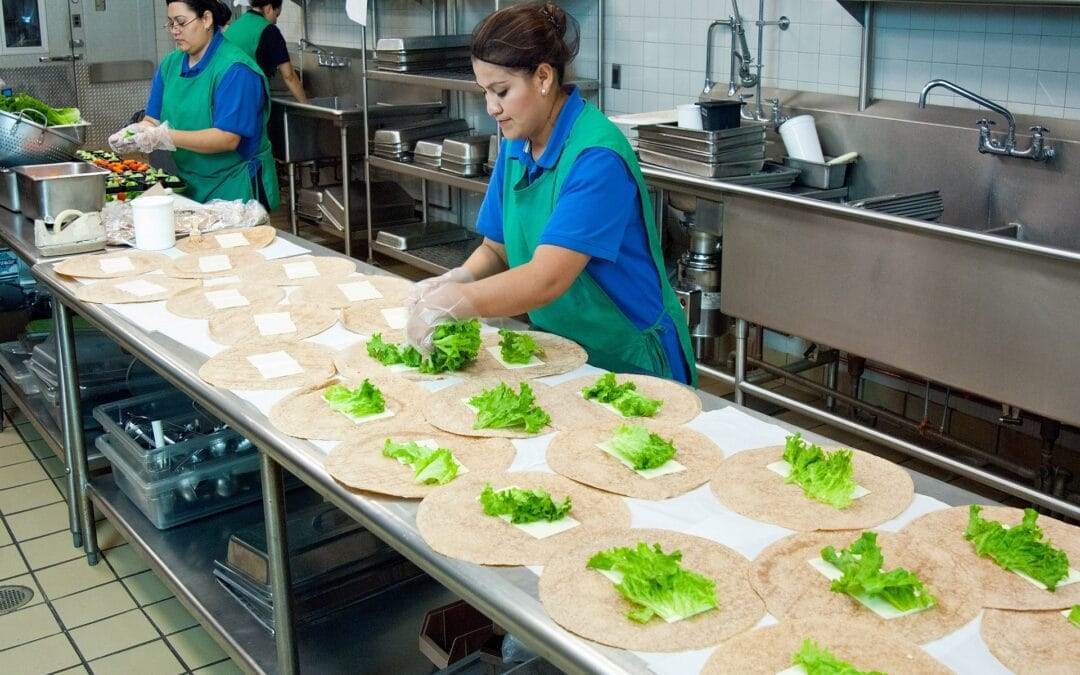
“Service” is a word that may seem old-fashioned in certain contexts. Servitude is certainly
unworthy of human beings when it is imposed or endured because of poverty or discrimination.
Instead, the “spirit of service,” especially when it is reciprocal in a community of any kind, is
a witness to changing social relationships that break down old patterns of behaviour and new
power structures. Indeed, service lived with humility characterizes protagonists of real progress.
Nitin Nohria, former dean of Harvard Business School, says that in the future, being a good leader will require learning about humility. He believes this “future” has already begun. According to him, humility will have to become a key word in the profiles of the next generation of aspiring managers andhe does not lack experience in this field. He says this because he realizes that the current trend of being increasingly competitive is producing results completely opposite to expectations. It is creating people who are psychologically fragile, needy, narcissistic and obsessed with appearance (1).
After all, great women and men are recognized through their small actions, just as ancient Eastern wisdom reminds us: “The largest tree is born from a small shoot. The tallest tower is born from a mound of earth. A journey of a thousand miles begins with a single step.” (2)
Living this way requires a conscious and free choice: it demands that we do not liveclosed in on ourselves and our own interests, but that we“live the other”,and feel whatever they feel, carry their burdens and share their joys. We all have responsibilities, bothlarge or small, and areas of authority. They may be in the political or social fields or within our family, school or community. Let us take advantage of our “places of honour” to put ourselves at the service of the common good, building just and supportive human relationships.
This is also how Igino Giordani, writer, journalist, politician and family man, lived during a time marked by dictatorship. To describe his experience, he wrote: ‘Politics is – in the most dignified
Christian sense – a “servant” and must not become a “master”: nor should it abuse, dominate or dictate. Its function and dignity is to be of service to society, to be charity (3) in action, to be the highest form of love for one’s homeland.
It was probably the personal relationship that Chiara Lubich had with this man who was
rooted in his time but also saw beyond its barriers and walls that led her to remind usmore than
once that true politics is “the Love of Loves,” because it is the means of the most authentic and
disinterested service to humanity in fraternity.
(1) Michele Genisio “Umiltà” (in press)
(2) Daodejing,64
(3) Giordani uses the word charity not in the ‘welfare’ sense, as it is usually understood, but in the Christian sense, which indicates the highest form of love.
——————
THE IDEA OF THE MONTH iscurrentlyproduced by the Focolare Movement’s “Centre for Dialogue with People of NonreligiousBeliefs”. It is an initiative that began in 2014 in Uruguay to share with non-believing friends the values of the Word of Life, i.e. the phrase from Scripture that members of the Movement strive to put into practice in their daily lives. Currently, THE IDEA OF THE MONTH is translated into 12 languages and distributed in more than 25 countries, with adaptations of the text according to different cultural sensitivities. https://dialogue4unity.focolare.org/en/
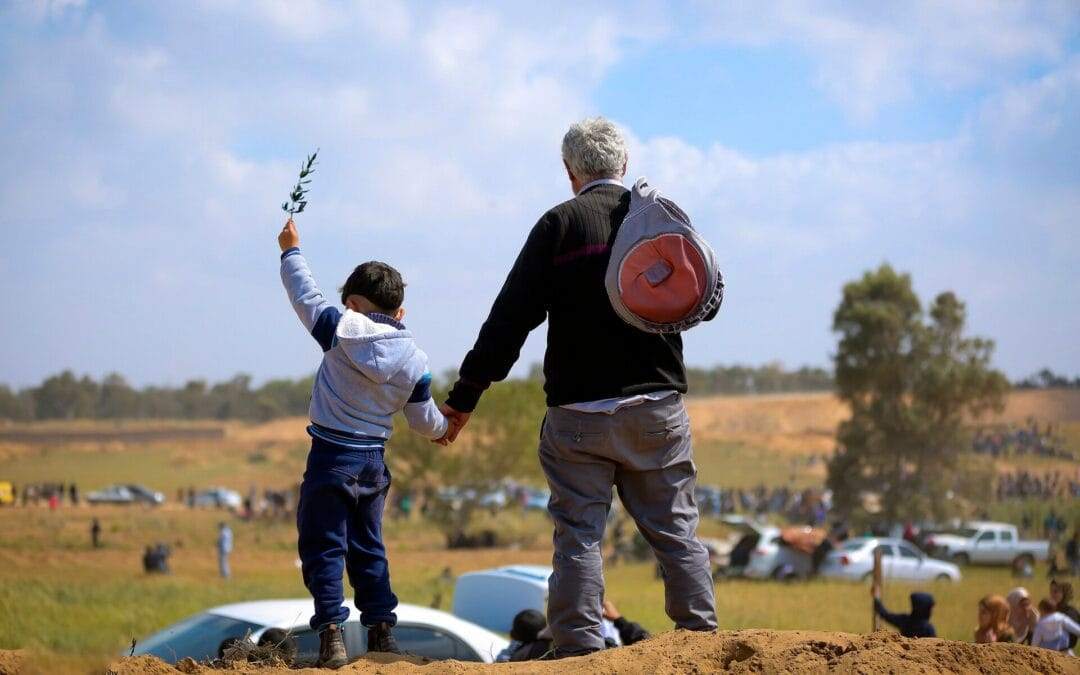
The Emergency Coordination of the Focolare Movement has launched an appeal for the Middle East, to help people in those countries suffering from conflict, through Action for a United World ETS (AMU) and Action for New Families ONLUS (AFN).
You can donate online:
Or by bank transfer to the following accounts:
Azione per un Mondo Unito ETS (AMU) IBAN: IT 58 S 05018 03200 000011204344 at Banca Popolare Etica Codice SWIFT/BIC: ETICIT22XXX
Azione per Famiglie Nuove ONLUS (AFN) IBAN: IT 92 J 05018 03200 000016978561 at Banca Popolare Etica Codice SWIFT/BIC: ETICIT22XXX
Reason for payment: Middle East Emergency
Tax benefits are available for such donations in many EU countries and in other countries around the world, according to different local regulations. Italian contributors will be able to obtain deductions and allowances from income, according to the rules for non-profit organisations
Photo: © Pixabay
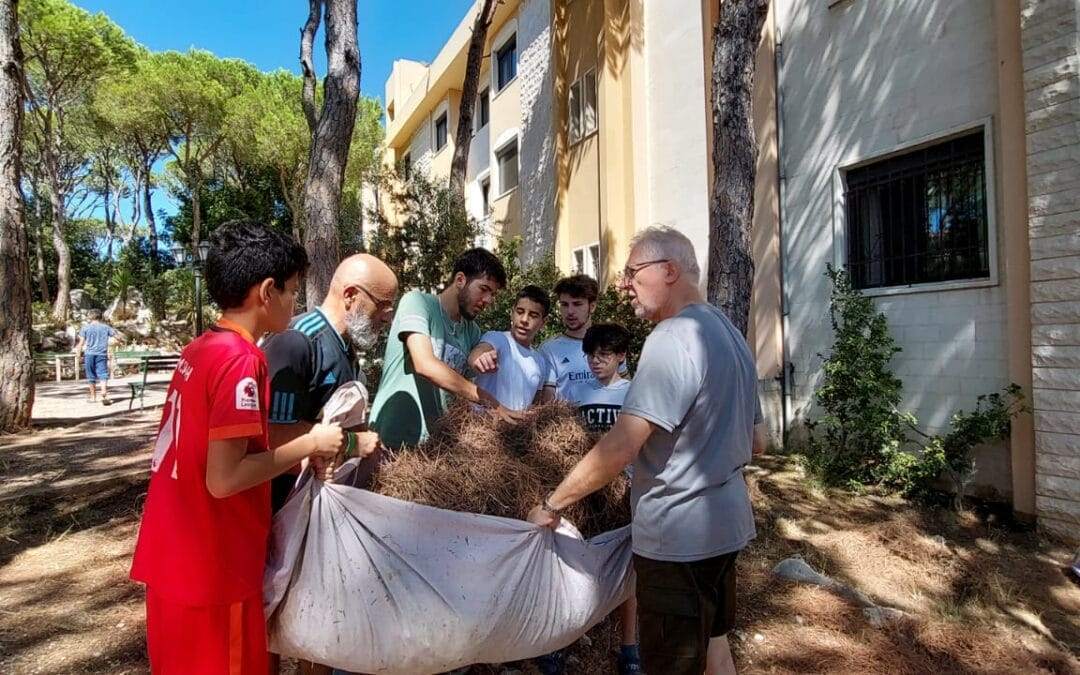
The “La Sorgente” Mariapolis Centre is located in Ain Aar, in a mountainous area, 20 kilometres north of Beirut. Just as it was in 2006, the year of the 34-day military conflict between Israel and Hezbollah, people fleeing the bombs that are devastating the South of the country are arriving here, in this predominantly Christian and asking for hospitality. “It is normal to knock on the door of the Mariapolis Centre and find it wide open,” says R. of the Lebanese community of Focolare. “How could we not welcome them? What would have become of the ideal of brotherhood that we cherish and which should be our hallmark?”
A similar experience occurred in 2006. Then too, Lebanon experienced large-scale movements of families and the Focolare welcomed more than a hundred friends, entire extended families in its Mariapolis Centre. “We met in those conditions and became like brothers and sisters, sharing joys and sorrows, hopes and difficulties, needs and prayer. In a simple and sincere relationship, woven into everyday life, a true experience of brotherhood started and grew, without filters or prejudices”.
No one expected the situation to deteriorate so quickly. “The Lebanese were preparing to return to school, optimistic about this new year”, says R. “Yet an unexpected storm erupted, relentless, threatening and deadly”, with “terrible consequences for a population thirsting for peace, justice and paths of dialogue”. In a few days, or rather hours, military actions hit ordinary neighbourhoods and the people found themselves living “a real nightmare”. According to the Ministry of Public Health, as of 25th September, almost 600 people have been killed in Lebanon, including more than 50 children and 94 women, and about 1,700 others have been injured since 23rd September. Mass displacement continues, reaching around 201,000 internally displaced persons (IDPs), according to data from the International Organization for Migration (IOM).
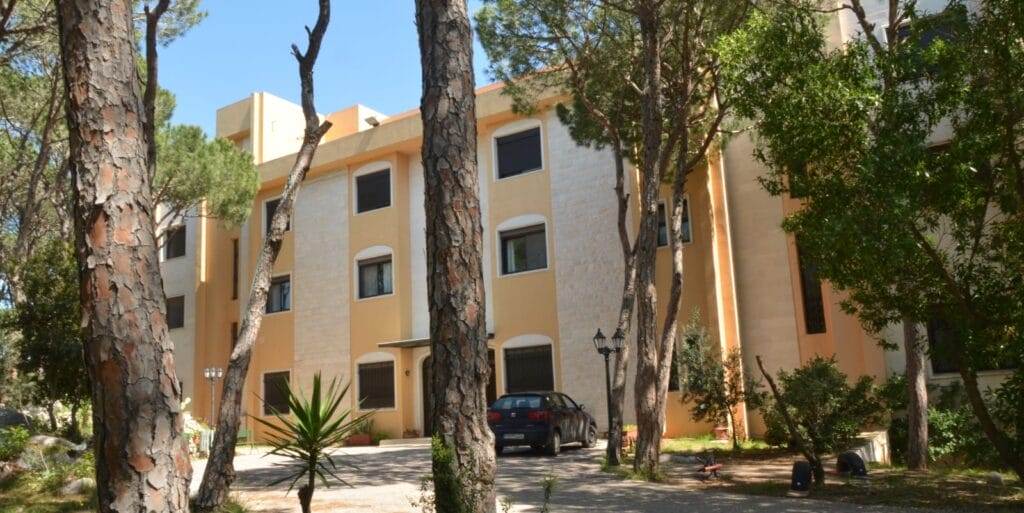
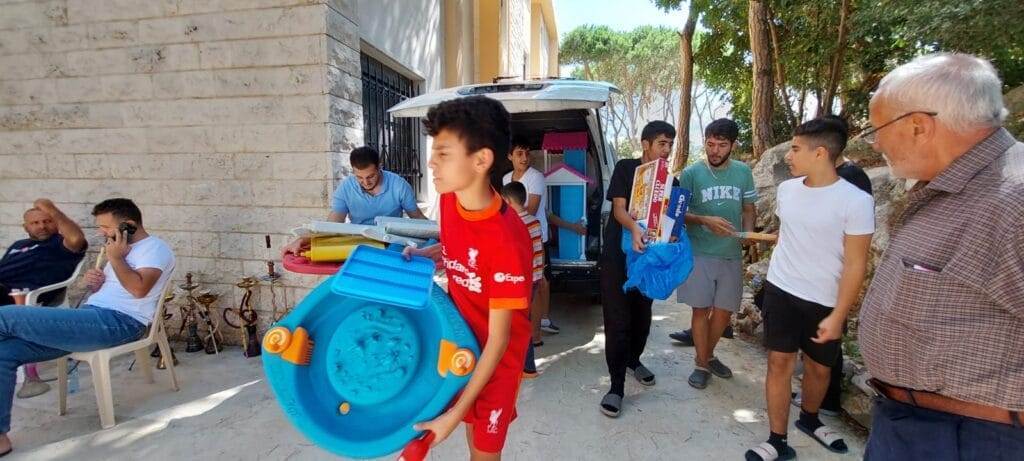
Since Sunday, the “La Sorgente” Mariapolis Centre has also been filled with guests “arrived with their fears, the trauma experienced in their targeted villages and neighbourhoods”. They drove 120 kilometres, taking between 5 to 8 hours. The roads are crowded with cars fleeing the South. They leave the villages before reaching the big cities of Tyre and Sidon. Around them, they see the destruction of the recent bombings. There are currently 128 guests at the Mariapolis Centre in Ain Aar. Some come from the South, others from the popular suburbs of Beirut hit by the latest attacks. It is not easy: “Their presence raises questions in the Christian community of the region”, say the focolarini. “One wonders: are there members of Hezbollah among them who could threaten peace in the region? But the sense of solidarity is stronger than suspicion. “R. adds: “Where could they seek shelter this time too? Where could they go and know that they would be welcomed without reservation?” For the community of the focolare, a new adventure begins. The welcome is coordinated with local, religious and civil authorities.
A “contest” of solidarity is taking place throughout the country. From the parish priest, to the faithful of the parish, to the volunteers. There are those who take care of the children by organising activities and football matches for them. Those who take care of the necessary help for the reception. “People arrive shocked, worried about their future, with the apocalyptic sight of destroyed houses, burned fields, but also news of acquaintances, relatives, neighbours, friends or students who were killed in the attacks and they will never see them again. Together we unite in living the present moment, with the faith that has allowed us to endure adversity for centuries”.
The “La Sorgente” Centre aims to be, along with many other places scattered throughout the country, true “oases of peace”. “The hope, the deepest wish is that we can soon return home. So much blood spilled must make the desert of hearts bloom. We hope that this ordeal we are experiencing will open a breach in the conscience of the powerful and of everyone, showing that war is a defeat for all, as Pope Francis repeats. But above all we believe and hope that from this crucible of pain a message of possible brotherhood for the entire Region can emerge from Lebanon “.
Maria Chiara Biagioni
Source: AgenSir
Photo: Focolare Lebanon
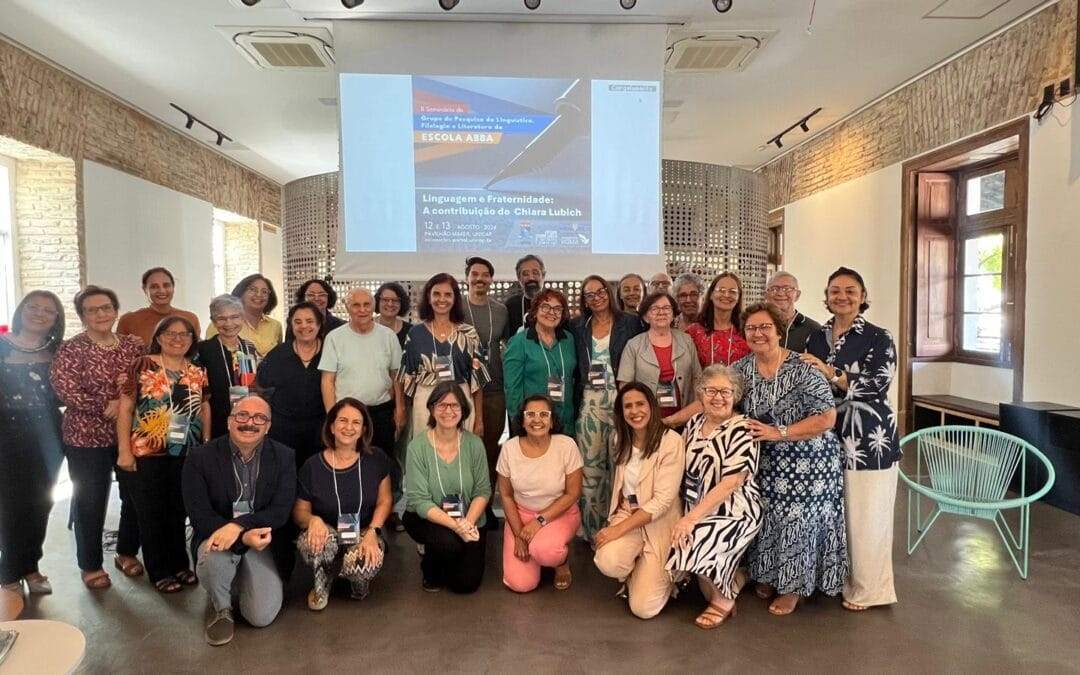
The Seminar, in its second edition after the first one held in 2017 at the Federal University of Paraiba in Joao Pessoa, presented 15 academic papers produced by researchers from six universities, around the Chiara Lubich Chair of Fraternity and Humanism at the Catholic University of Pernambuco (Unicap). The seminar comprised of two days of presentations and dialogue, introduced by a warm greeting from Vice-Rector Prof. Delmar Araújo Cardoso, and followed by live streaming to an audience of about 350 people.
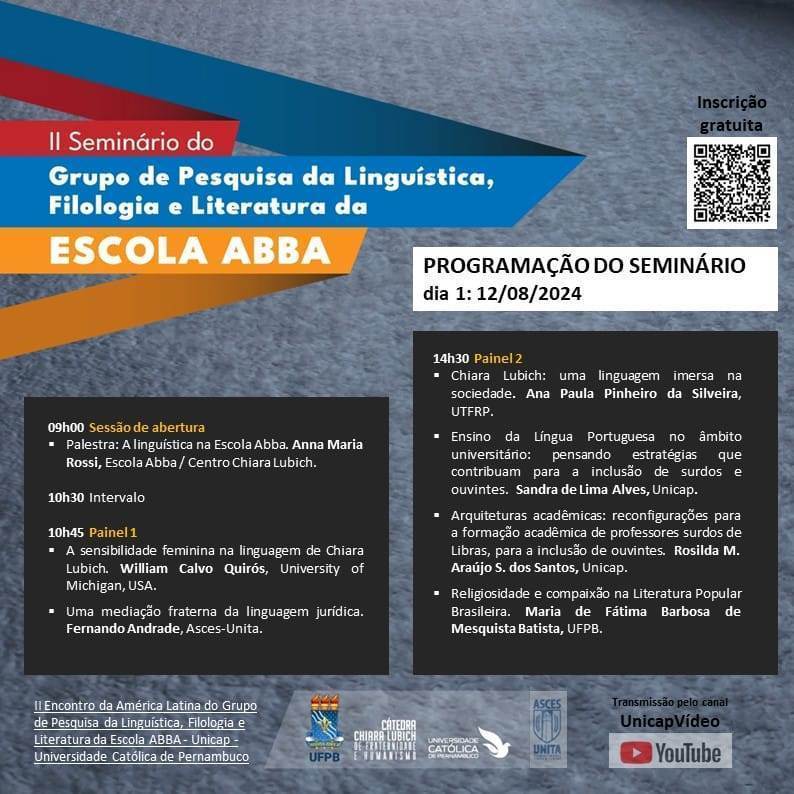
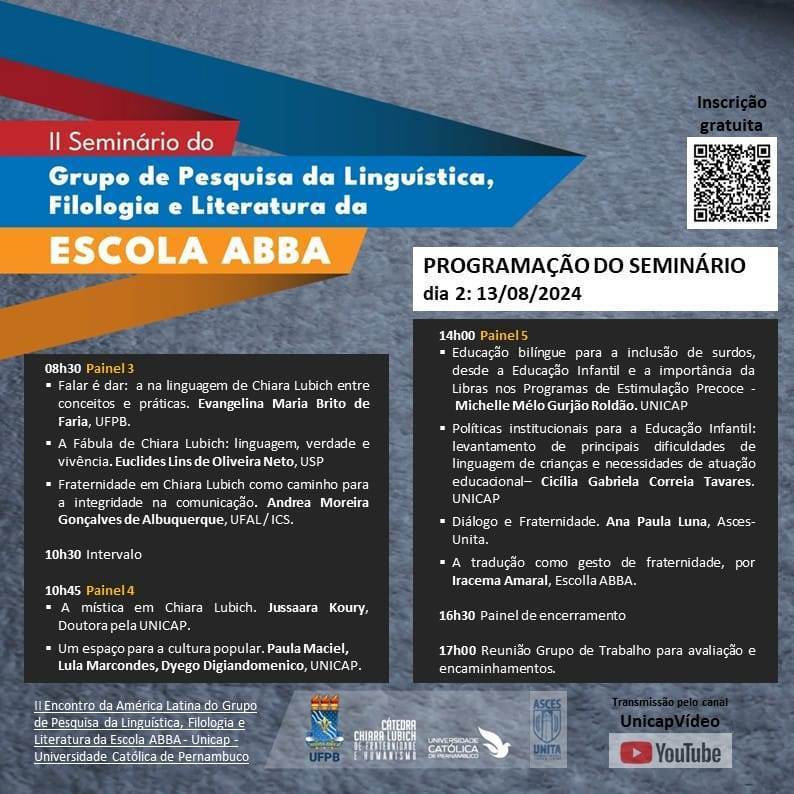
The event, which was organized with the support of the Chiara Lubich Centre, was held mainly in Portuguese and was particularly appreciated for its openness to an international dimension, for the consistent and qualified contribution of the speakers, for the interdisciplinary perspective that brought together papers around the theme of language, not just in the field of linguistics, but also in the fields of law, pedagogy, communication, sociology and architecture.
What emerged, in extreme synthesis, was how a language inspired by love, of which Chiara Lubich was an effective model, can contribute to building a world of peace and fraternity.
Anna Maria Rossi
(1) The Abba School is a Centre of life and study desired and founded by Chiara Lubich in 1990. It is composed of members of the Focolare Movement, united in the name of Jesus and experts in various disciplines, whose aim is to draw out and elaborate the doctrine contained in the charism of unity.
Links to the 2nd Seminar on Linguistics, Philology and Literature:
12/08/24 – Morning: https://www.youtube.com/watch?v=W7bZbiZz_T4
12/08/24 – Afternoon: https://www.youtube.com/watch?v=R65O526wQCE
13/08/24 – Morning: https://www.youtube.com/watch?v=JTnP2OF87xY
13/08/24 – Afternoon: https://www.youtube.com/watch?v=rGtpHakqrvs
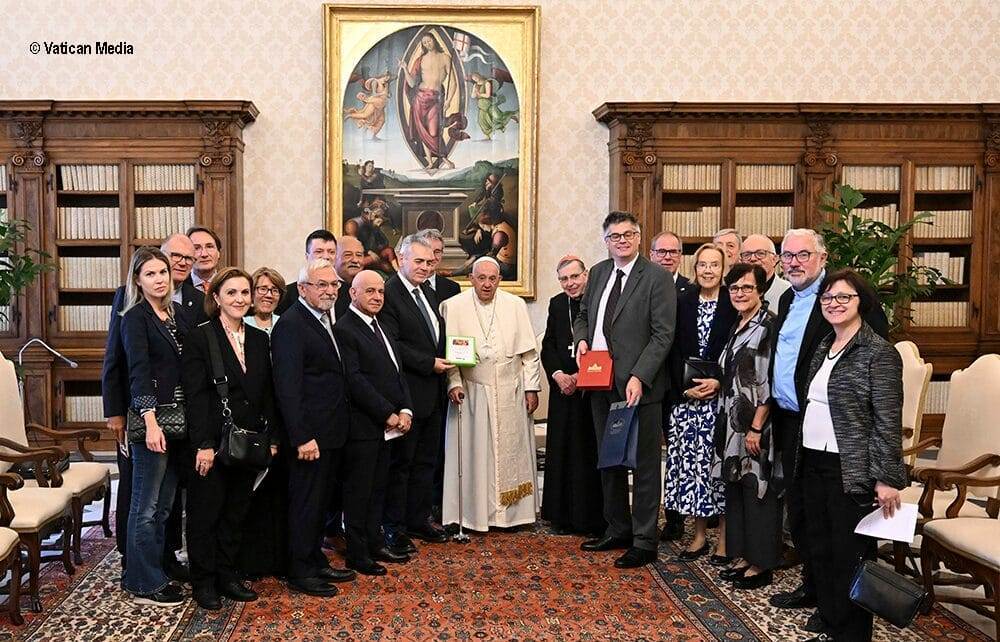
“We are convinced that the cooperation of the Christian world is essential. The common Easter celebration in 2025 of all Christians, together with events for the anniversary of the first Council of Nicaea, can serve as a meaningful starting point to take up the challenges of humanity together and promote joint activities. We hope to organize a meeting with representatives of the Christian world, with your presence, in the place where the Nicaea council originally took place ”.
These words accompanied the ecumenical group “Pasqua Together 2025” (PT2025), that gathers groups and communities of various Christian denominations, first to Istanbul (Turkey), in audience with the Ecumenical Patriarch of Constantinople, Bartholomew I, then in the Vatican with Pope Francis, on the 14th and 19th of September respectively.
The group asked the two Christian leaders for next year’s common celebration of the Resurrection not to be an exception but to become the norm for all Christian Churches: a further step towards unity, in preparation for the upcoming Second Millennium of Redemption in 2033, which will be the 2,000th anniversary of Christ’s resurrection.
“Pasqua Together 2025” began precisely in view of the upcoming exceptional coincidence that, in 2025, the Easter date falls on the same day for the Julian and Gregorian calendars. Christians of the Western and Orthodox churches will, therefore, celebrate Easter on the same day. Moreover, the 1,700th anniversary of the Nicaea Ecumenical Council, which declared the Symbol of faith (the Creed) and addressed the theme of the Easter date, will be remembered.
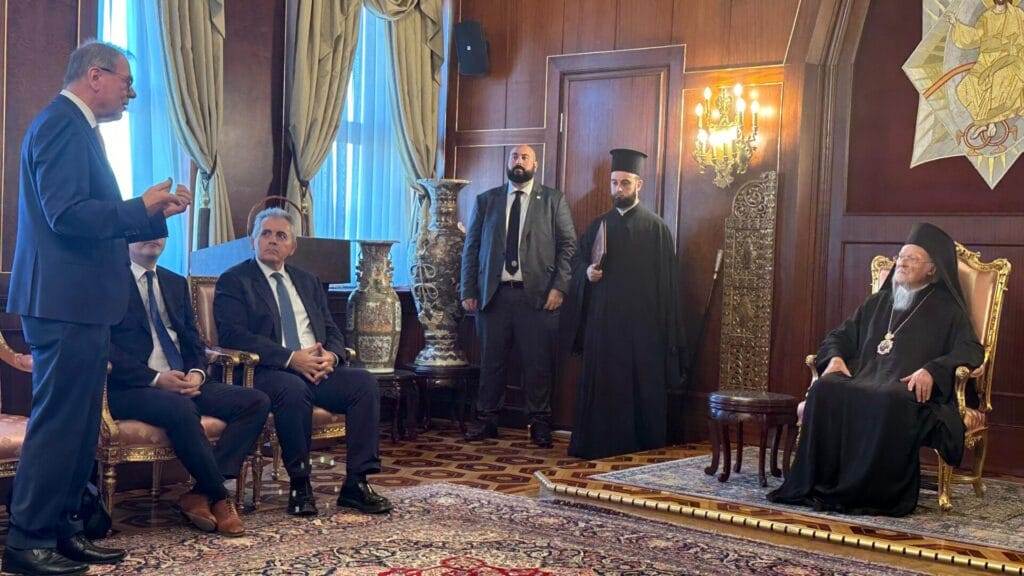
The group is composed of representatives of various Christian churches and Christian political and social movements, like the Interparliamentary Assembly on Orthodoxy (I.A.O.) that was the promoter; the “Together for Europe” project, the “Jesus Christ 2033” movement and the “Centro Uno” of the Focolare Movement. The group has been following a common path for two years which has led them to signing a joint declaration that brought about the commitment to work so that all Christian churches may celebrate Easter together. Besides the Patriarch of Constantinople and Pope Francis, the document had been previously sent to the General Secretary of the World Council of Churches, Rev. Jerry Pillay and the former General Secretary of the World Evangelical Alliance, Bishop Thomas Schirrmacher. Contacts with other Christian leaders will take place soon.
Patriarch Bartholomew I announced that a joint commission made up of four Orthodox and four Roman Catholic members are already working on the programme for the celebration of the 1,700th anniversary of the first Ecumenical Council which will take place precisely in Iznick – the Turkish name of ancient Nicaea. The commission has already gone there to examine the feasibility. The mayor of the city is in favour and ready to collaborate. The invitation was naturally extended to Pope Francis, and this would be their thirteenth meeting.
The Patriarch also highlighted that the Easter date is not a question of dogma or faith, but fruit of an astronomical calculation.
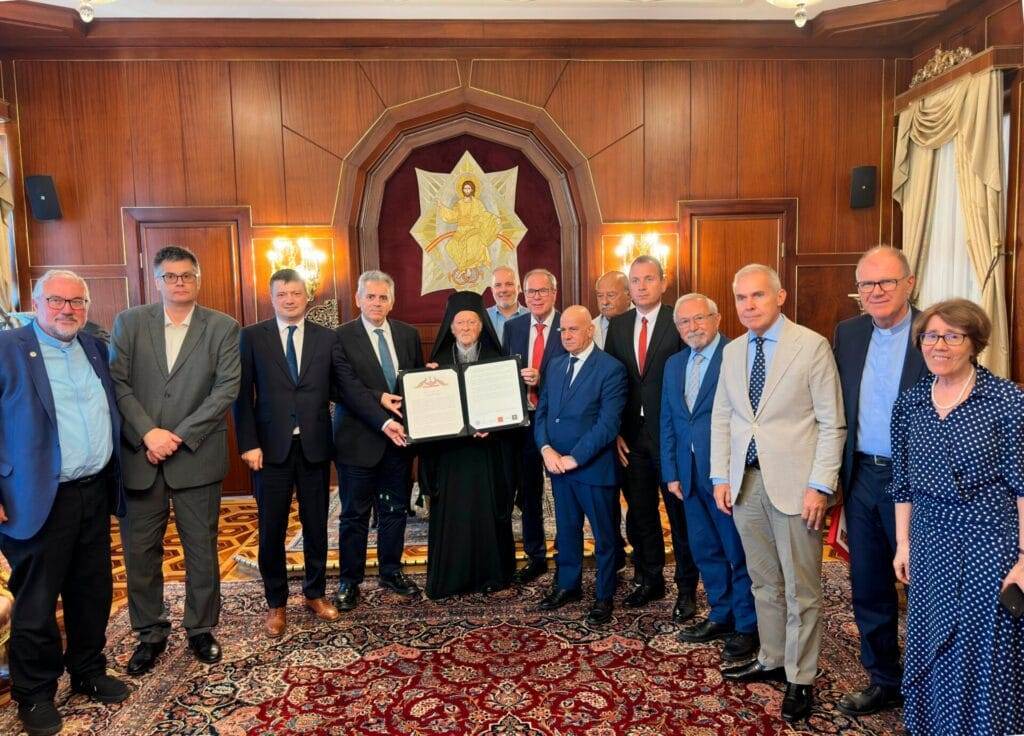
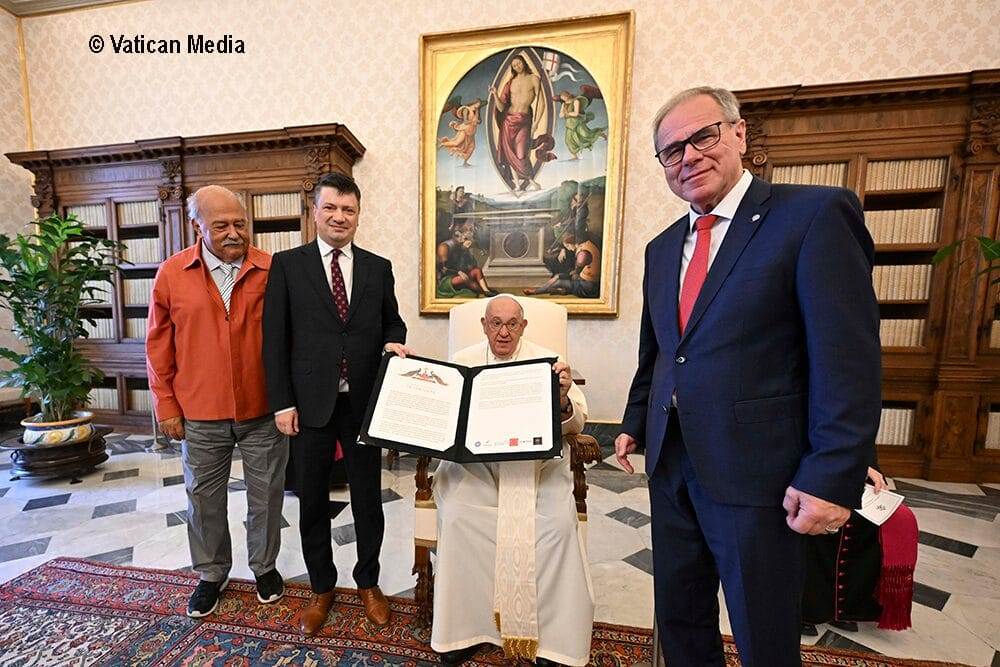
Pope Francis too, in his talk reiterated that “Easter does not take place by our own initiative or by one calendar or another. Easter occurred because God “so loved the world that he gave his only Son, that whoever believes in him should not perish but have eternal life”. Let us not forget the primacy of God, his primerear, his having taken the first step. Let us not close ourselves within our own ideas, plans, calendars, or “our” Easter. Easter belongs to Christ!”
The Pope also invites to share, plan and “walk together” and he launches an invitation: that of beginning “from Jerusalem like the Apostles, who proclaimed the message of the Resurrection to the whole world”. The Pope encourages to “turn, today, to the Prince of Peace in order to pray that he gives us his peace.”
An invitation that echoes what the ecumenical Patriarch Bartholomew I had already expressed by urging the PT2025 group to promote activities defending human rights and a peaceful living together for all peoples, praying in this way: “We implore the Lord to enlighten the hearts of those in authority and to guide them on the path of justice and love, that we may heal these divisions and restore the unity that is at the heart of our faith”.
Stefania Tanesini
Photo: © Vatican Media e Centro Uno
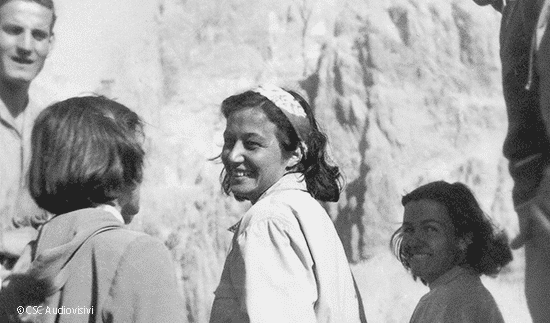
Seventy-five years have passed since the day Chiara Lubich wrote “I have only one spouse on earth”, which we have reproduced here. It’s a writing destined from the very beginning to become a true programmatic manifesto for Chiara and for those who would follow her by adopting the spirituality of unity as their own.
The handwritten manuscript, preserved in the Chiara Lubich Archive (in GAFM) and written on the front and back of a single sheet, records the date of its composition: 20-9-49. Published, in Italian, for the first time in 1957, in an incomplete version and with some modifications, in the magazine “Città Nuova”, it was then reprinted in other publications of Chiara Lubich’s writings, until it was finally included, in its entirety, and according to the original manuscript, in The Cry (New City, London 2001). This is a book that Chiara Lubich wanted to write personally “as a love song” dedicated precisely to Jesus Forsaken.
It began as a sort of diary page, written on the spur of the moment. Considering the unique lyrical tone that permeates it, it could be defined as a “sacred hymn”. This definition seems appropriate if one considers that the term “hymn” originates from the Greek hymnos. The word, although of uncertain etymology, has nevertheless a close relationship with the ancient Hymēn, the Greek god of marriage in whose honour it was sung. Moreover, the spousal aspect in this work is more than ever present, even if – and precisely because – we are within a strongly mystical context. It really is a “song” of love to Jesus Forsaken.
The context of the writing takes us back to the summer of 1949, when Chiara, with her first companions, and the first two men focolarini, was in the mountains – in the Primiero valley, in Trentino-Alto Adige – on holiday. Also, Igino Giordani (Foco) joined the group, for a few days. He had already met Chiara in Parliament a short time before, in September 1948, and he had been fascinated by her Charism.
It was a summer that Chiara herself described as “full of light”. Since then – going back over its stages – she did not hesitate to affirm that it was precisely in that period that she had a better understanding of “many truths of the faith, particularly who Jesus Forsaken was for humanity and for creation – he who recapitulated all things in Himself. Our experience was so powerful,” she noted, “it made us think life would always be like that: light and Heaven.” (The Cry, pages 60-61). But the time had come – urged precisely by Foco – to “come down from the mountains” to meet humanity that is suffering, and to embrace Jesus Forsaken in every expression of pain, in every “abandonment”. Like Him. Only out of love.
So, she wrote: “I have only one spouse on earth: Jesus Forsaken”.
Maria Caterina Atzori
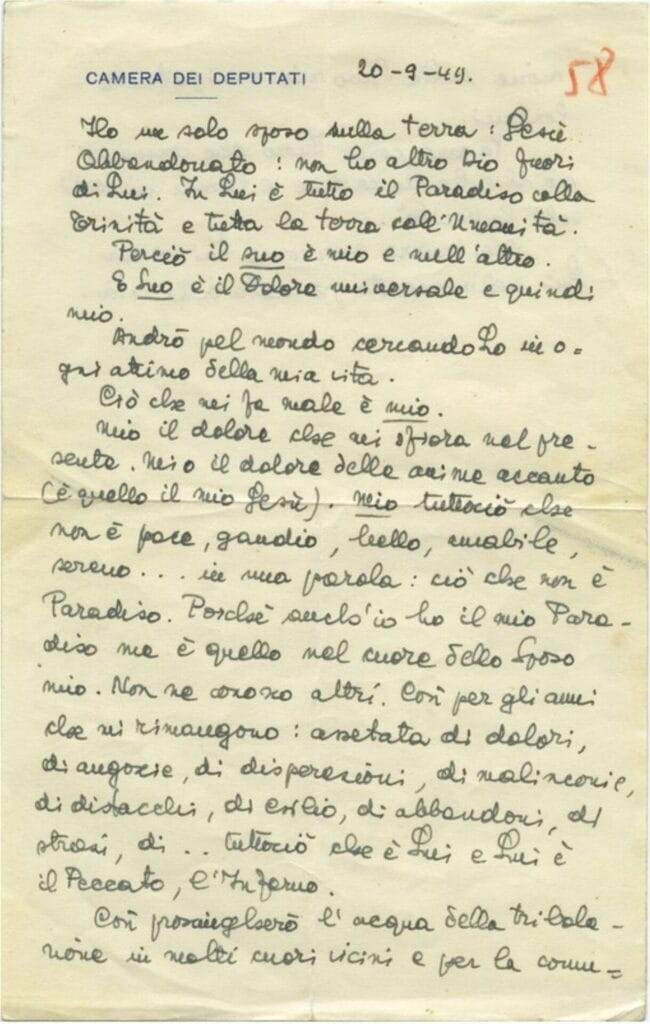
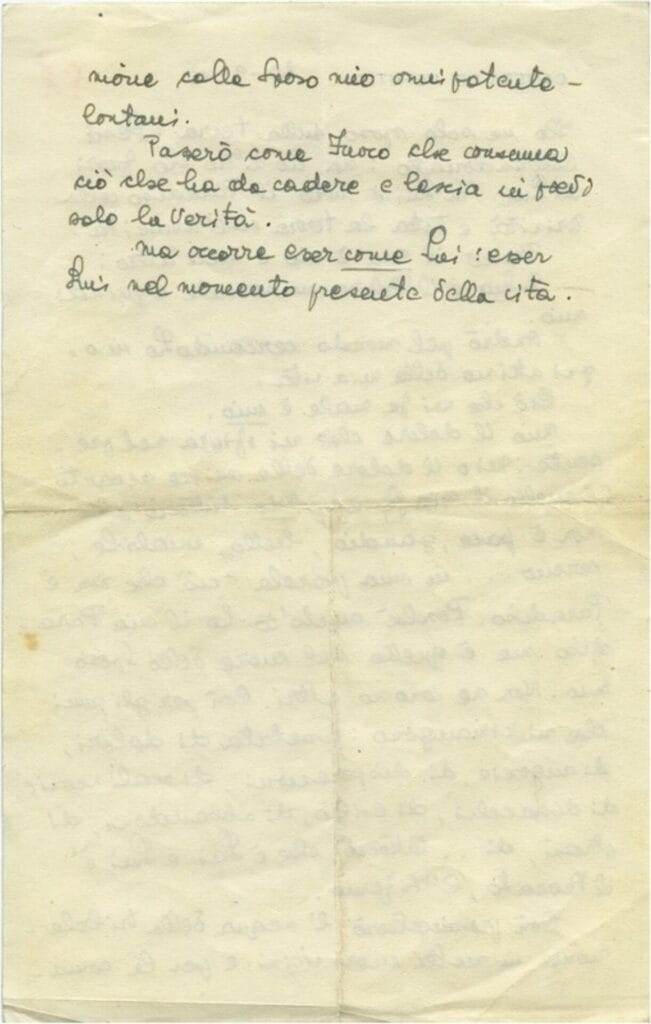
20-9-49
I have only one Spouse on earth: Jesus forsaken. I have no God but him. In him is the whole of paradise with the Trinity and the whole of the earth with humanity.
Therefore, what is his is mine, and nothing else.
And his is universal suffering, and therefore mine.
I will go through the world seeking it in every instant of my life.
What hurts me is mine.
Mine the suffering that grazes me in the present. Mine the suffering of the souls beside me (that is my Jesus). Mine all that is not peace, not joy, not beautiful, not lovable, not serene, in a word, what is not paradise. Because I too have my paradise, but it is that in my Spouse’s heart. I know no other. So it will be for the years I have left: athirst for suffering, anguish, despair, sorrow, exile, forsakenness, torment— for all that is him, and he is sin, hell.
In this way I will dry up the waters of tribulation in many hearts nearby and, through communion with my almighty Spouse, in many faraway.
I shall pass as a fire that consumes all that must fall and leaves standing only the truth.
But it is necessary to be like him: to be him in the present moment of life.
Chiara Lubich
The Cry (New City, London 2001, pages 61-62)
Source: https://chiaralubich.org/
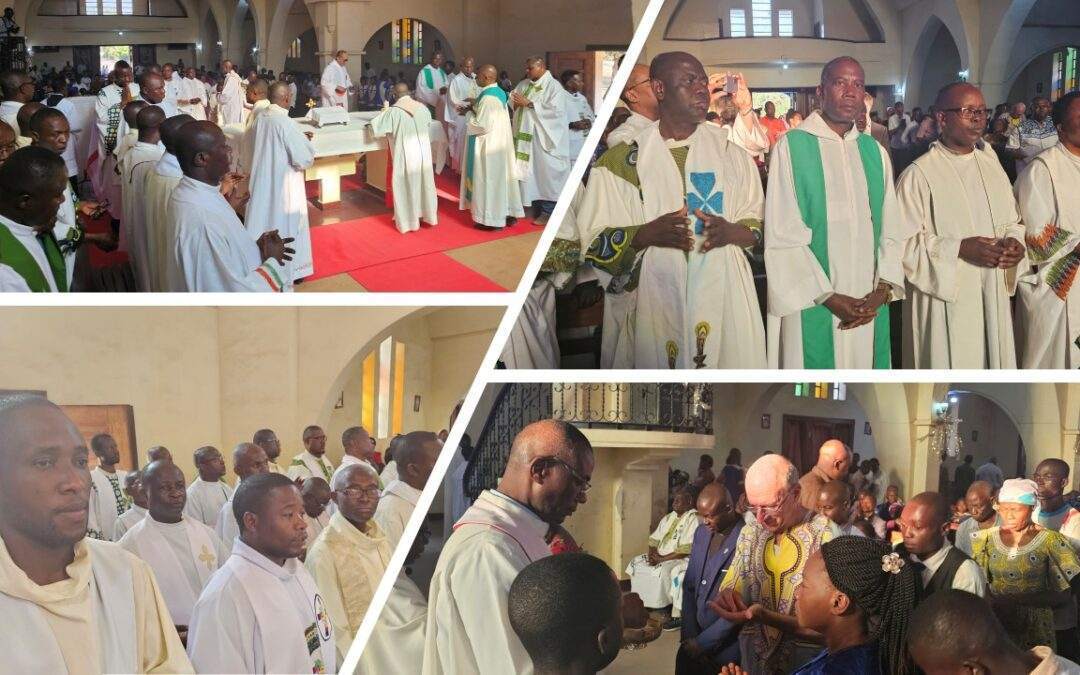
They arrived two by two by motorbike, the most common form of transport for getting to the town of Manono in Katanga province in the south-east of the Democratic Republic of Congo. Ninety-two priests from 8 dioceses of the ecclesiastical province of Lubumbashi met together in this town for one of the Focolare Movement’s periodical retreats. The Bishop of Manono, Mgr Vincent de Paul Kwanga Njubu invited the Focolare to hold the meeting there, as he had been struck by the testimony of his priests who had participated in a similar retreat in Lubumbashi in the past.
Mgr Oscar Ngoy wa Mpanga, the Bishop of Kongolo, a diocese which is 300 km from Manono, who had also been struck by young priests who had participated in similar retreats organised for seminarians, also asked all the priests in his diocese to join this retreat. Forty-three arrived. The local press described the retreat as ‘unforgettable’. At its conclusion, the bishop offered everyone a lunch which the participants subsequently shared with the city hospital bringing great joy to the patients.
Members of the Focolare community of Lubumbashi took care of the organisational part (even transporting all the pots and pans for cooking), and the programme was entrusted to members of the Focolare Movement’s International Centre.
The city of Manono which is about 800 km from Lubumbashi is the third largest city in Congo and represents a mining resource of global importance due to the presence of lithium and other minerals. Unfortunately, however, the population does not benefit from these resources. Entire families spend their days searching for minerals, and children leave school to devote themselves to this work. There is huge exploitation, and very low prices are paid for the minerals. There is even a village where houses are collapsing because minerals are being mined underneath them. The region is in a critical situation, having been devastated in the past by a conflict that destroyed the civil and religious infrastructure and left health facilities and schools in ruins. The school attendance rate is less than 30%. Malnutrition and food insecurity are severely affecting the children, with 15% of them suffering from malnutrition. The Bishop of Manono really wanted the retreat to be held here, and it was the first time that priests came from other dioceses, which was why the presence of such a large number of prelates was greeted with such an atmosphere of celebration. During Sunday Mass, the cathedral’s priest asked all the parishioners to bring water, a rare and precious commodity here, for all those participating in the retreat as a sign of love and welcome. Then the actual meeting days began. There were spiritual themes, meditations on the evangelical counsels and in-depth discussions on synodality. With the participants divided into small groups, there were many moments of communion of life, exchange of testimonies, knowledge, sharing and fraternity.
The spirituality of communion, the discovery of God Love, a new style of ‘synodal’ pastoral work that ‘liberates us from pre-packaged schemes and opens us up to mutual love’ as one person said, were some of the points that struck everyone the most.
Back in Lubumbashi, some members of the Focolare were able to greet a number of Bishops from various dioceses who were there for a meeting of the Bishops’ Conference. The Bishops warmly thanked them for the contribution that the retreats were making to the life of their dioceses. In particular, the Bishop of Manono expressed his gratitude for “the contribution made to the spiritual life of priests and laity, and to a communion among priests that is overflowing onto the lives of the laity, giving them the opportunity to live mutual love and put the word of God into practice“. The Archbishop of Lubumbashi, Archbishop Fulgence Muteba Mugalu, who has just been appointed President of the Bishops’ Conference, also expressed his heartfelt thanks for the retreats that have been held for several years, expressing the hope that this formation which is bearing so much fruit, will continue.
After the retreat, some of the members of the Focolare’s International Centre went to Goma in the north-east, where the focolarini organised two schools of formation attended by 12 young seminarians and 12 priests. The Bishop of Goma, Mgr Willy Ngumbi Ngengele was also present for a liturgical celebration. Several of the guests were unable to attend due to an intensification of clashes near the city. There are 7 million refugees in Congo, including 1.7 million in the North Kivu province where Goma is located. The meeting went into depth on the spirituality of unity and synodality. The programme included a visit to a parish surrounded by thousands of refugees where the parish priest gave a very strong testimony of how the Gospel is being lived. The visit to the “Père Quintard Centre”, run by the Movement and located in the middle of 2 large refugee camps, which offers a service of promotion, education and social development, was also a strong testimony for everyone present. Several saw it as a beacon of hope and asked for similar activities to be initiated in their parishes.
Anna Lisa Innocenti
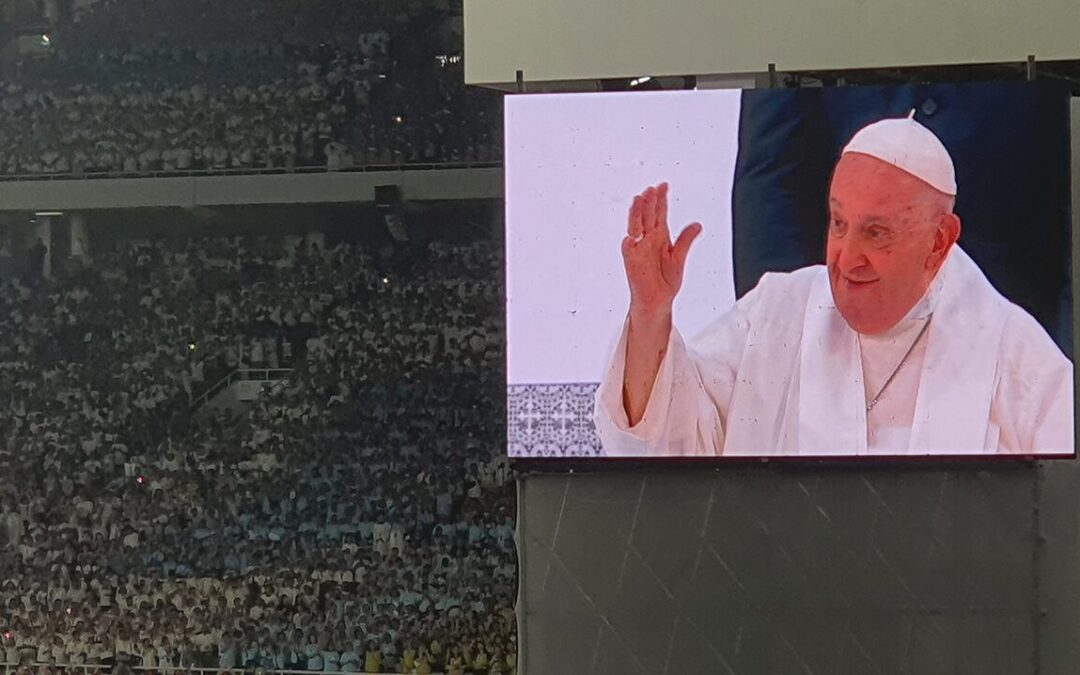
Pope Francis’ latest trip to Asia and Oceania has so far been the farthest, longest and probably the most physically demanding the Pope has ever undertaken. What does this visit mean for the local communities? We asked Paul Segarra, focolarino of the Indonesian community.
Paul, what was the significance of the Pope’s visit to your country?
“This heroic gesture of the Pope is for me an image of God’s love that knows no limits and reaches out to his most distant children, who are certainly not the least-valued in his eyes. The Holy Father took the time to look at them with love, marvel at their giftedness, share their sufferings and longings for justice and peace, then encouraged them to face their challenges together and transcend their limits.
But he did not only utter words that inspired and encouraged. He also demonstrated, by example, the strength in faith, the openness to fraternity and the nearness in compassion that he invites his listeners to acquire. He did this through his planned choices and spontaneous gestures, he acted and lived from the heart”.
“As news of his arrival spread quickly – Paul Segarra recounts -, there were also many comments on various social platforms about his chosen means of transport: a sober white sedan, in which he preferred to sit beside his driver, instead of taking the usual presidential back-seat, I imagined because he wanted to converse with his driver face-to-face. Seeing this gesture of his, I realised with regret that I could have done the same with the driver who brought me to my accommodations in Jakarta that same evening. But thereafter, my rides became undeniably more enjoyable, as I took to the habit of getting to know my hired drivers through friendly conversation”.
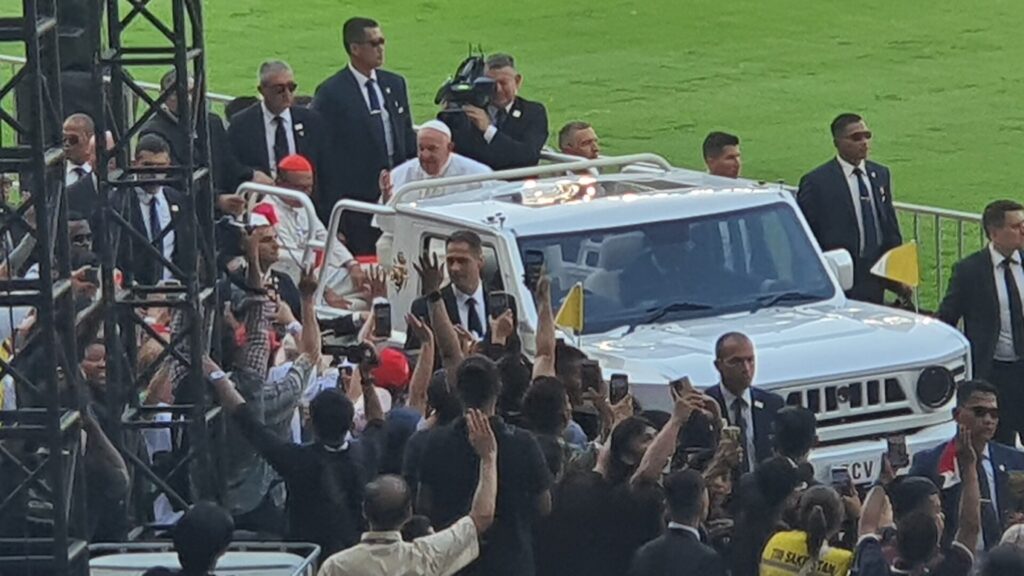
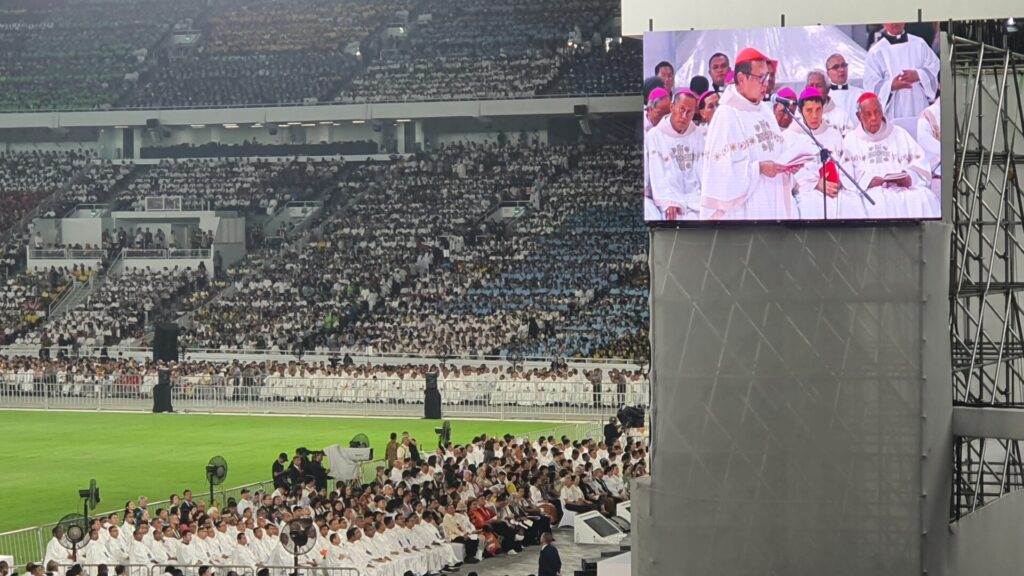
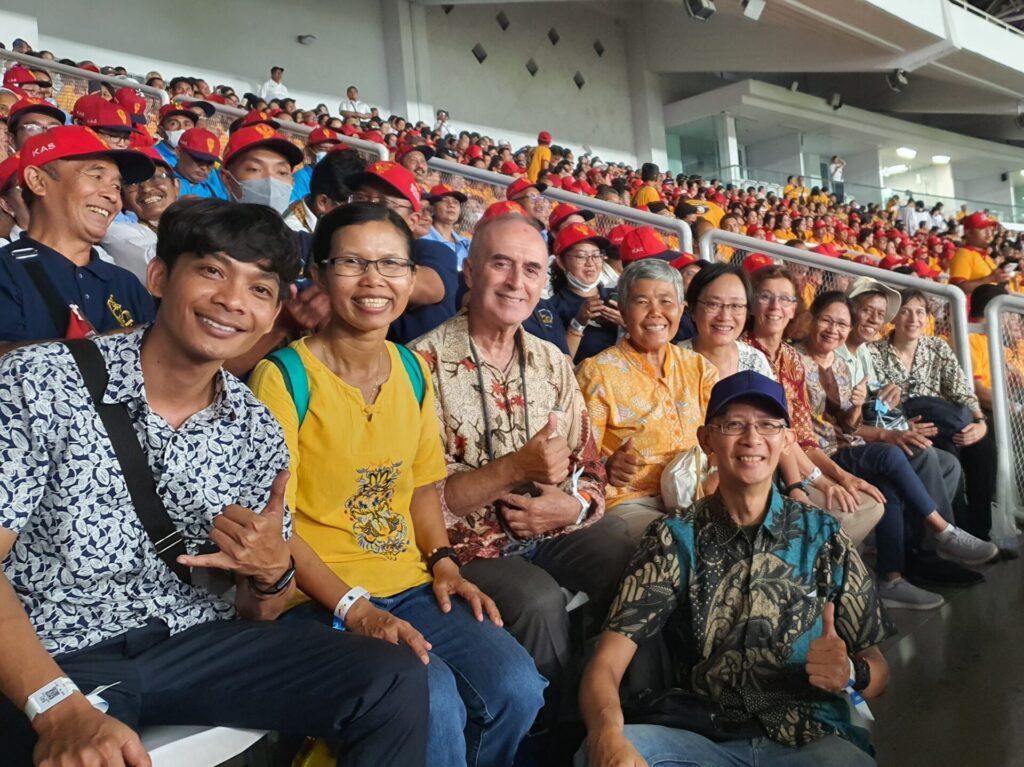
Paul, how did the local Focolare community experience this event?
“Some members of our Focolare communities in Jakarta and Yogyakarta had the privelege of participating in some of the events that were graced by the pope’s presence. At the Jakarta Cathedral (dedicated to Our Lady of the Assumption) the Holy Father acknowledged the work of catechists, describing them as “bridges of the heart that unites all the islands”. We were moved as he drew our attention to a statue of the Virgin Mary, and gave her as a model of faith that welcomes everyone, even as she keeps watch over and protects the people of God as the Mother of Compassion”.
Pope Francis and Imam Umar signed the Joint Declaration. What future do you see for Christians and Muslims together after this signing?
“Tomy, one of our photographers who covered the pope’s visit to the Istiqal Mosque and endured long hours of waiting under the city-heat, was visibly touched as the Holy Father finally arrived and greeted them from his car. Assuming a discreet position just outside the entrance to the underground, pedestrian tunnel that physically connects the Great Mosque to the Cathedral across the street, he managed to capture the moment Pope Francis and High Imam Umar signed the Declaration of Fraternity in front of a small crowd of bishops, imams and other religious figures, and said he had high hopes that this visit would create true harmony between all people of faith. And what is faith, if not seeing, acting and living from the heart?
Lorenzo Russo
Photo: © Paul Segarra – ©Tomy Wijaja
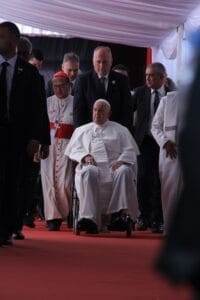
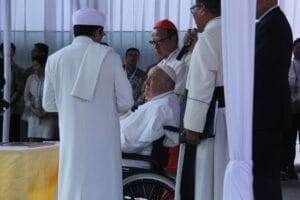
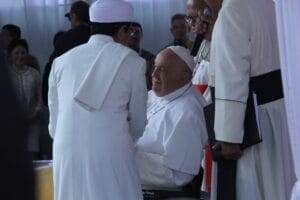
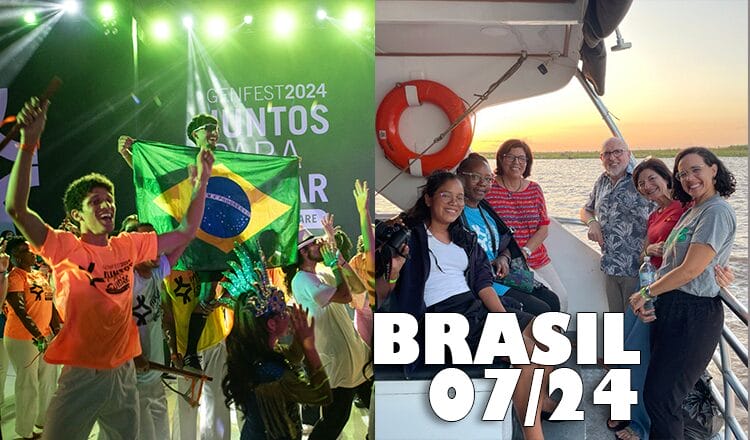
Articles in order of publication
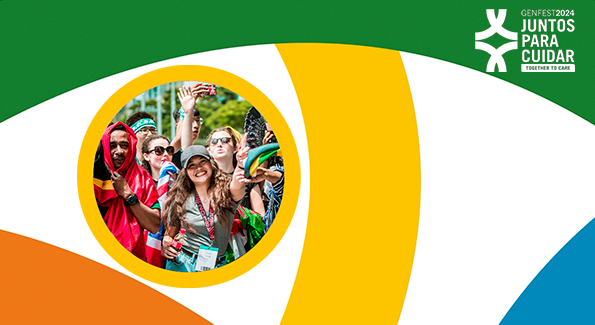 Genfest 2024: Together to care
Genfest 2024: Together to care
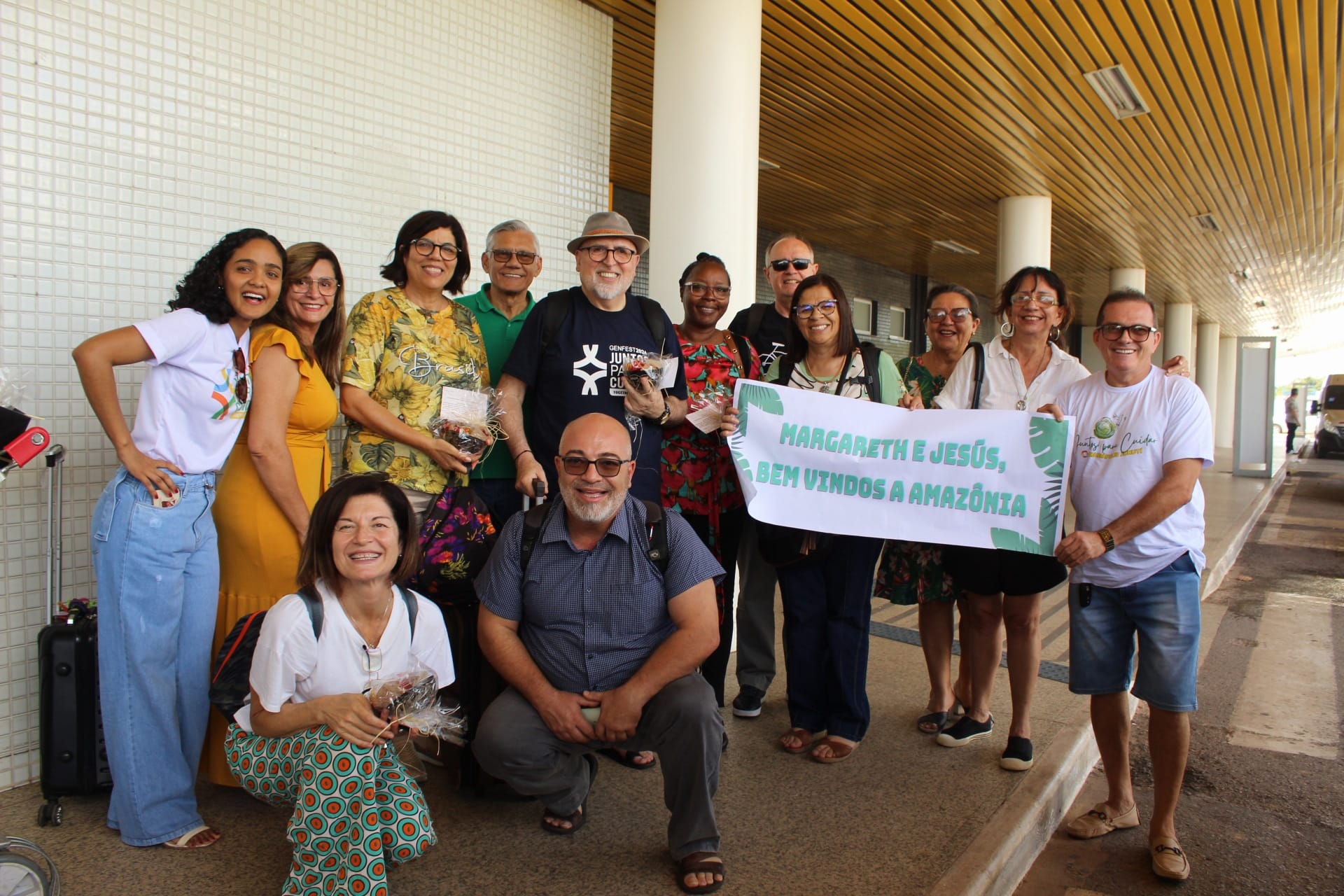 Amazon, land of caring and the future
Amazon, land of caring and the future
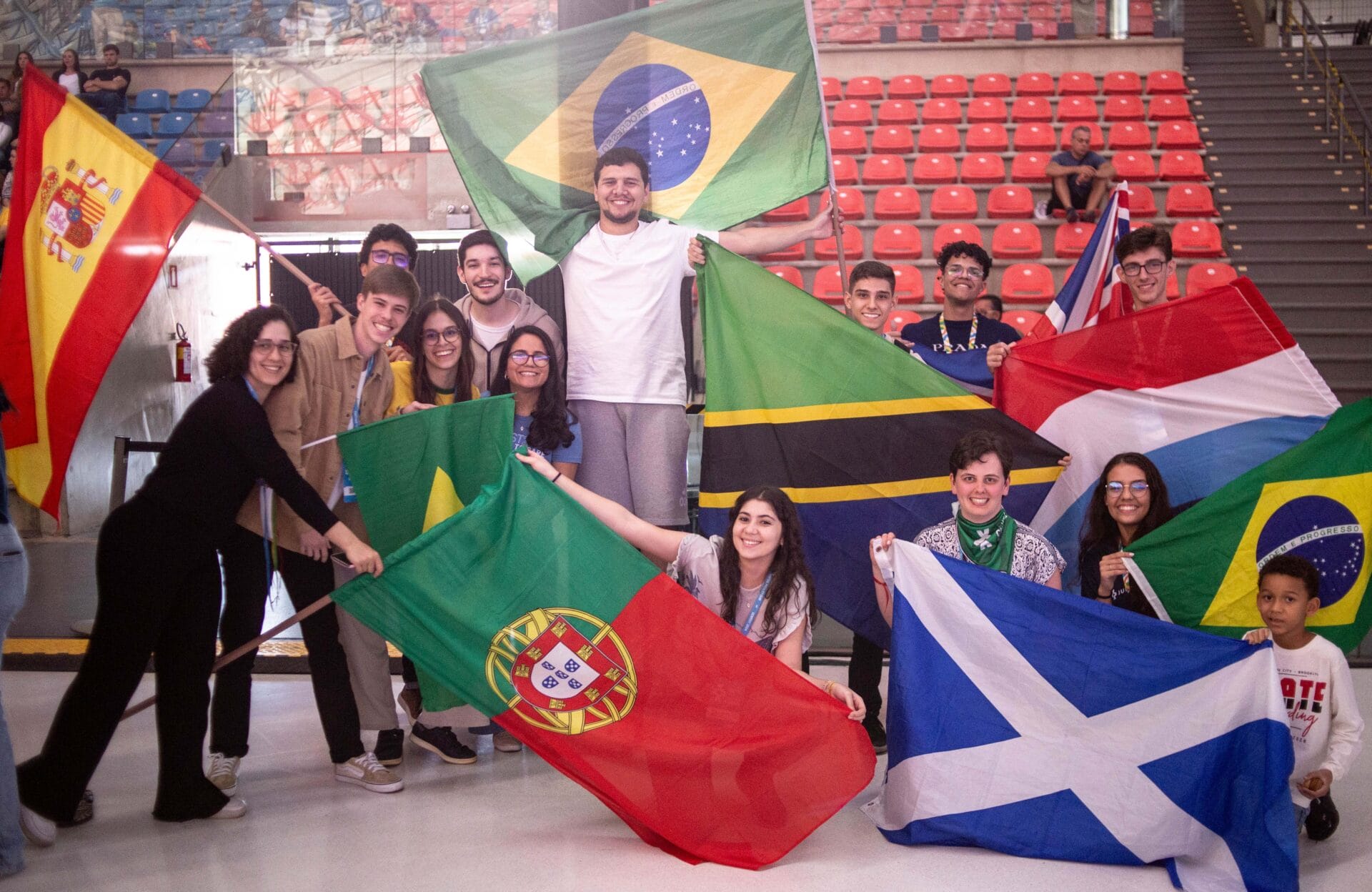 Genfest 2024 concludes second phase: a yes to peace
Genfest 2024 concludes second phase: a yes to peace
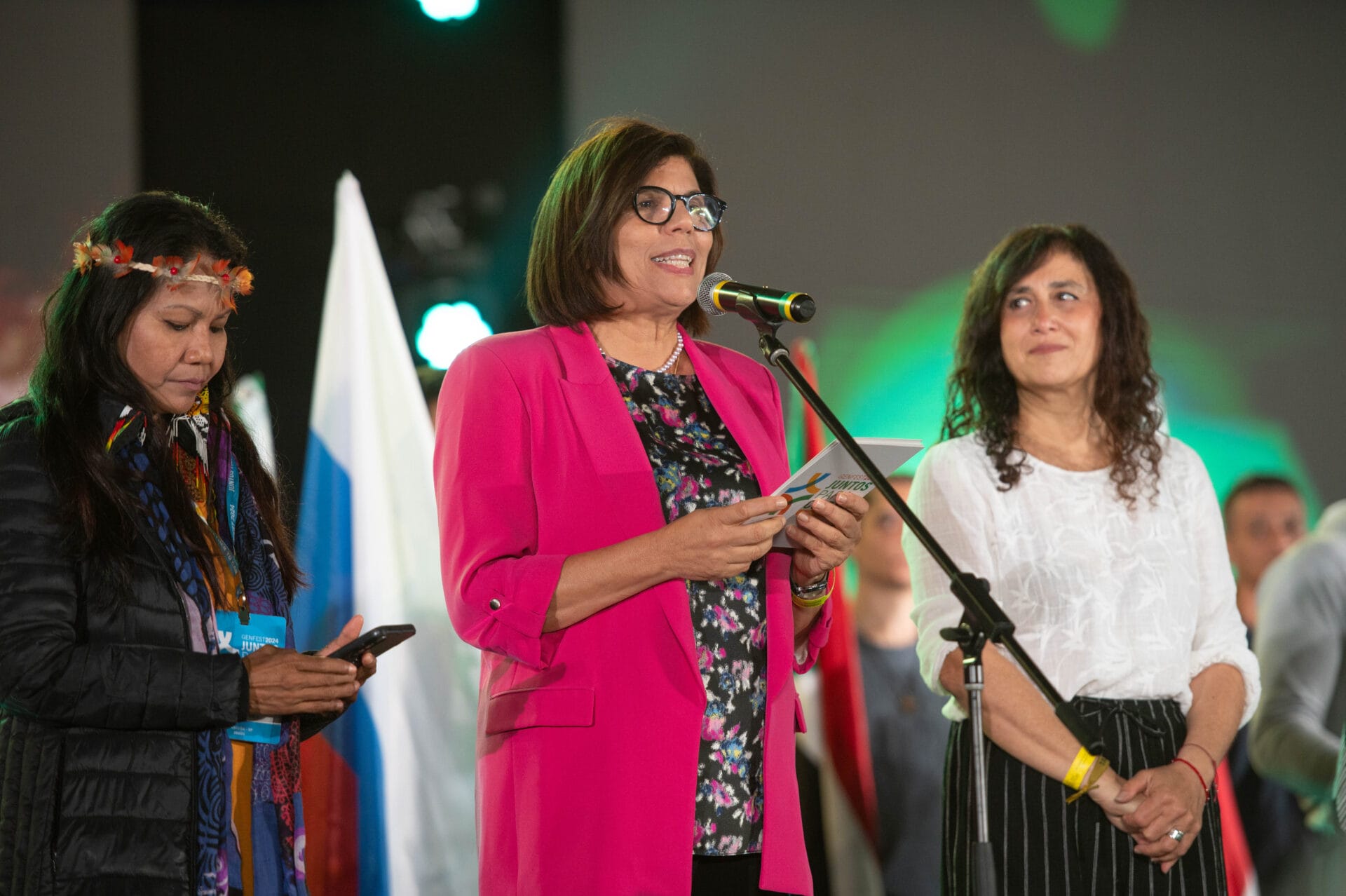 Let us not be at peace until we bring about peace!
Let us not be at peace until we bring about peace!
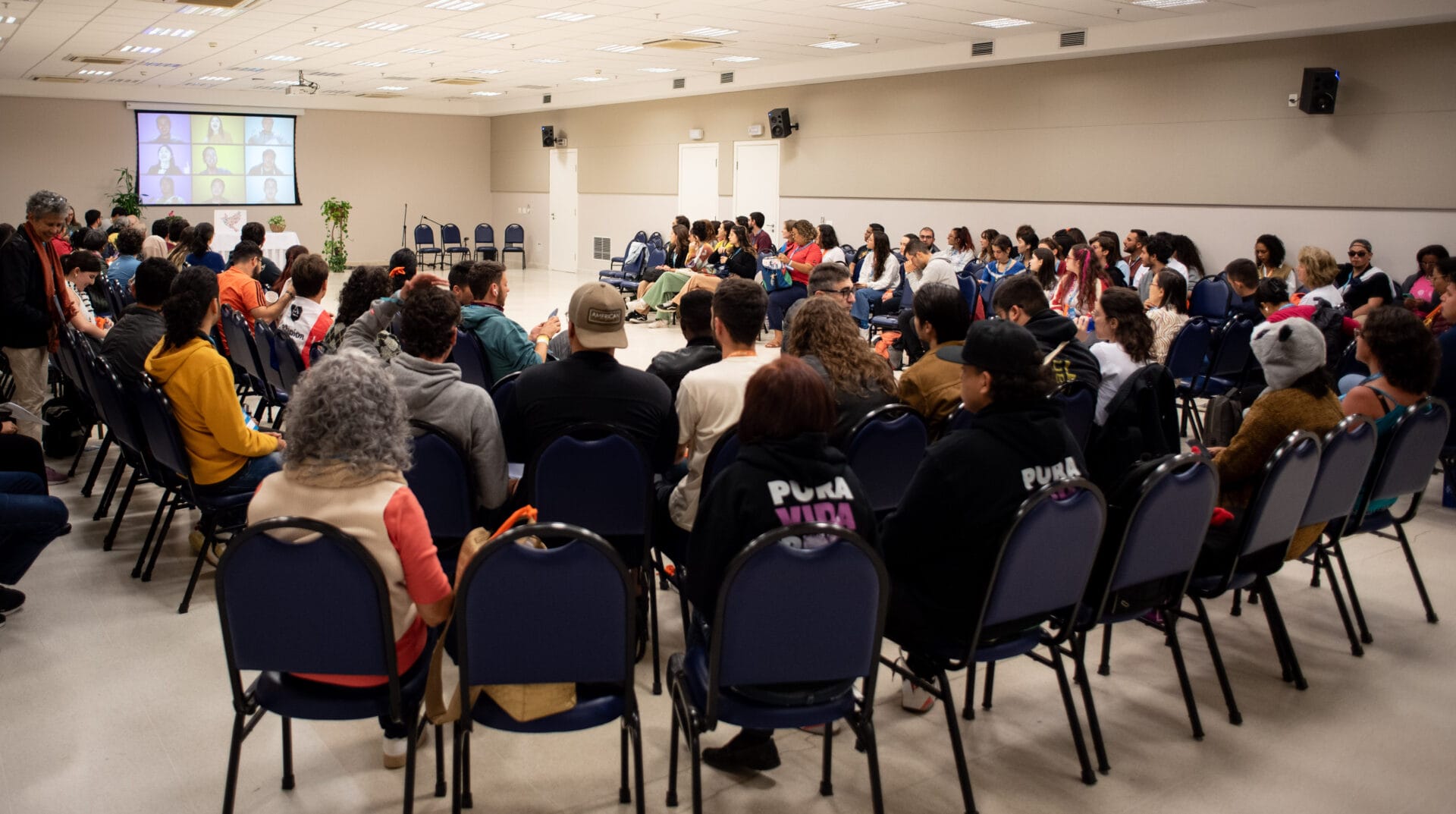 Phase 3 of Genfest 2024 has come to an end, but it is only the beginning…
Phase 3 of Genfest 2024 has come to an end, but it is only the beginning…
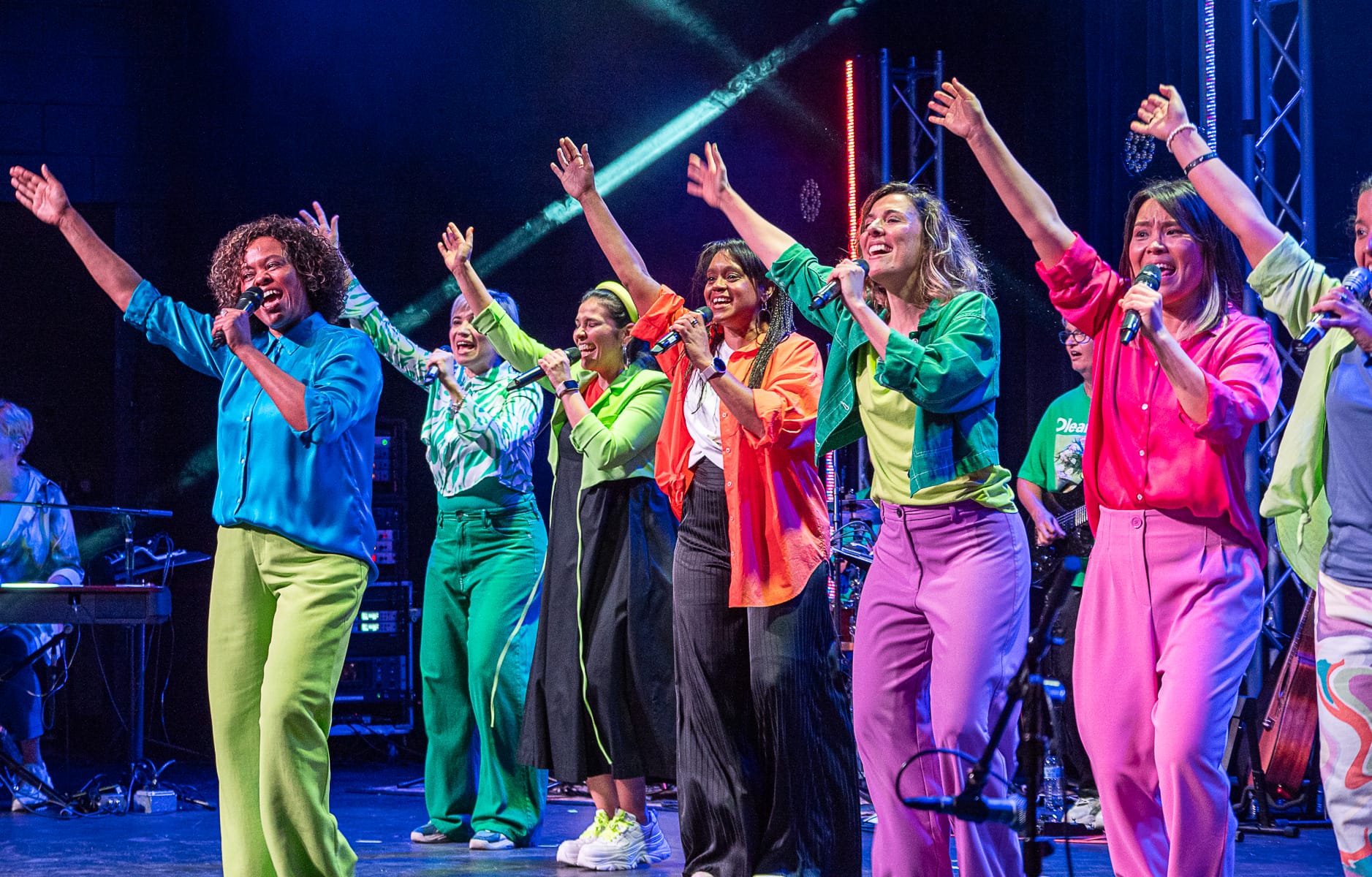 ‘Start Here and Now’ the new single by Gen Verde
‘Start Here and Now’ the new single by Gen Verde
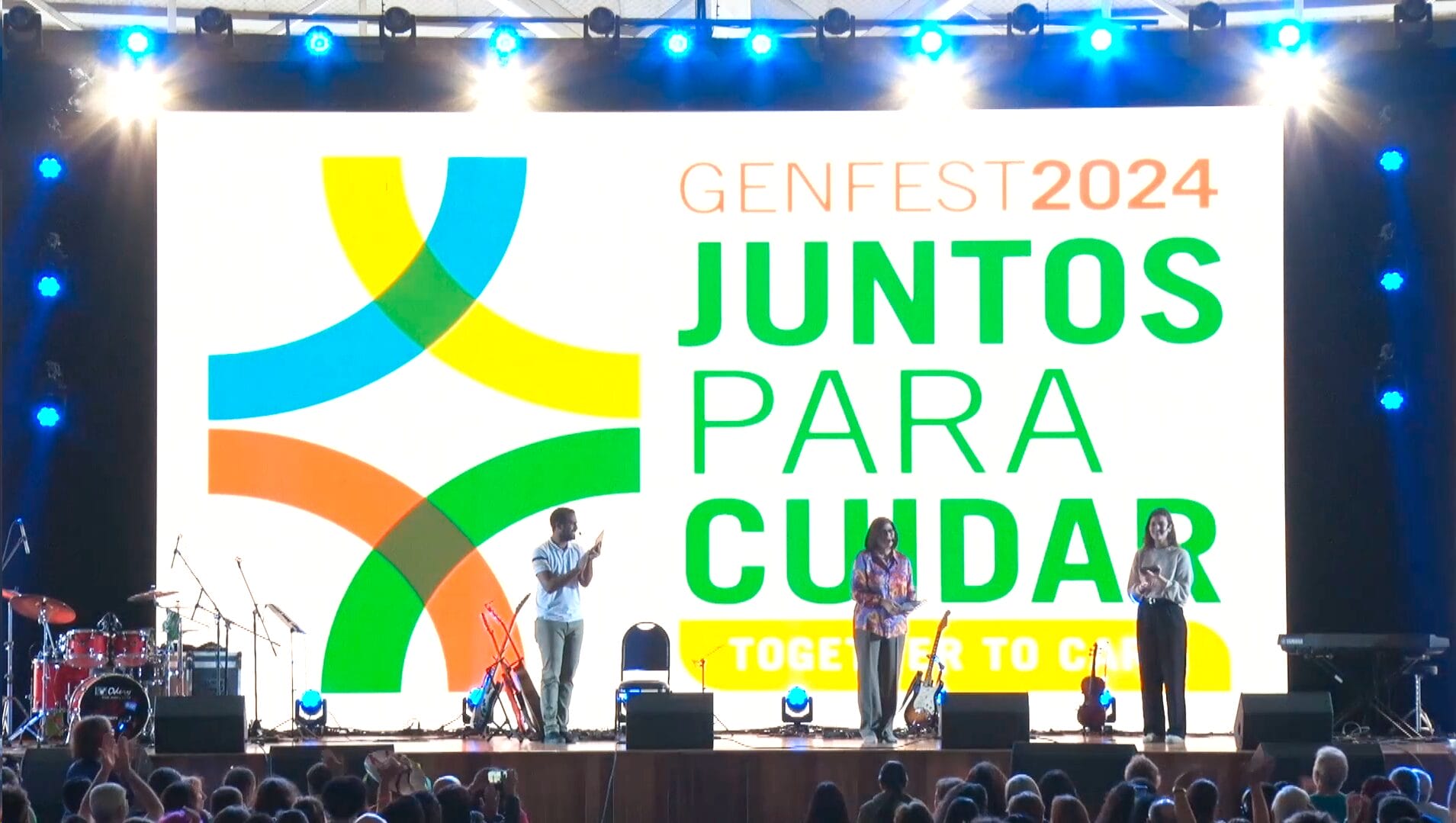 Genfest: the road comes into existence
Genfest: the road comes into existence
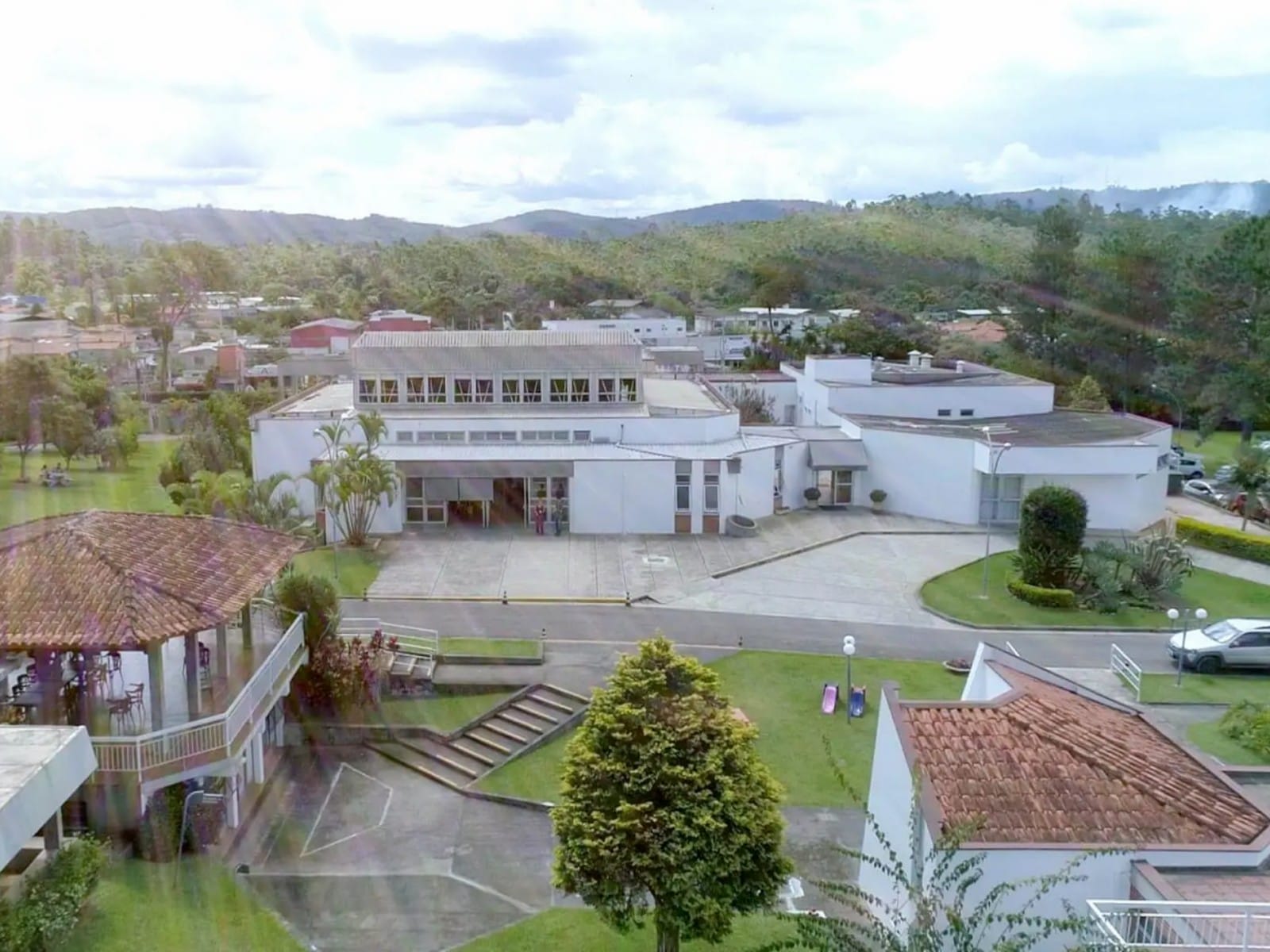 Mariapolis Ginetta and Polo Spartacus: the courage to change
Mariapolis Ginetta and Polo Spartacus: the courage to change
 From the “tri-national” community – a future of fraternity for Latin America
From the “tri-national” community – a future of fraternity for Latin America
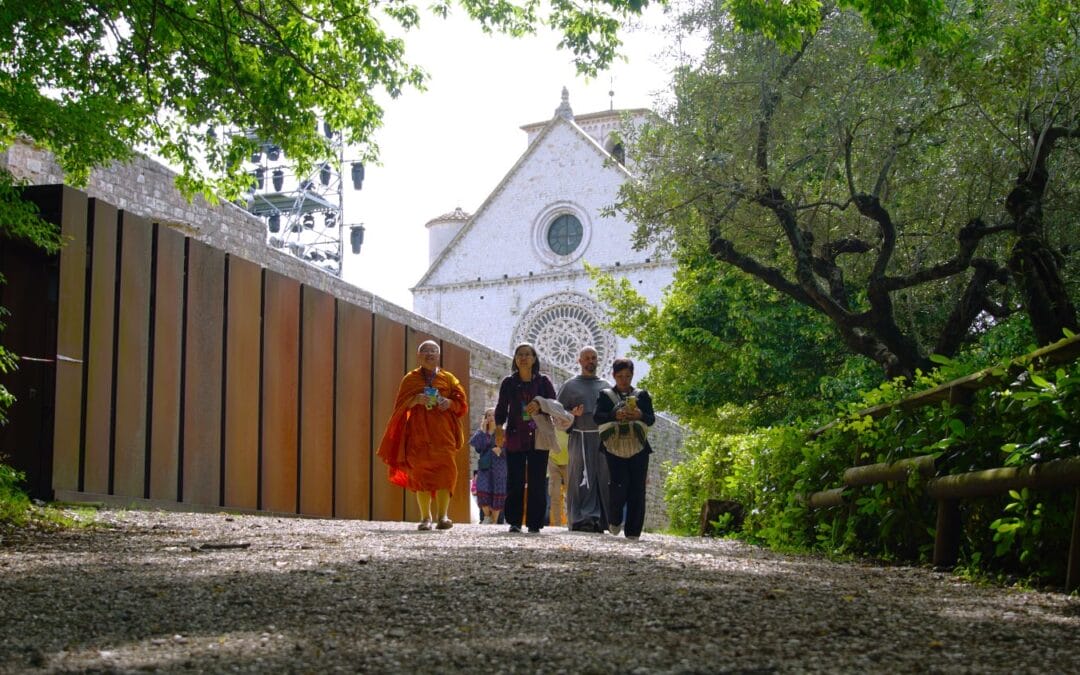
Chiara Lubich Chiara Lubich had an intuition of this in 1977 when she received the Templeton Prize for Progress in Religion in London. Since then, the worldwide expansion of the Focolare spirit has contributed to opening a dialogue with all the major religions of the world. A path that even Chiara had not imagined at the beginning, but that God had revealed to her over time, through events and circumstances; it was a path to pursue towards unity.
In this short excerpt, Chiara, in answering a question on the relationship with other religions, reveals the secret to building true universal fraternity: seeking what unites us in diversity.
The question put to Chiara is read by Giuseppe Maria Zanghì, one of the first focolarini. (From a reply by Chiara Lubich to a meeting of Muslim friends, Castel Gandolfo, 3 November 2002)
Giuseppe Maria Zanghì: This is the question: “We’d like to ask you, Chiara, how do you feel about the relationship with other religions. What does it make you feel within
your heart?”
Chiara Lubich: I’ve always felt very comfortable in my contacts with the faithful of other religions! Even though we are different from one another, we have a lot in common, a lot in common, and this unites us. Instead, diversity attracts us; it arouses our curiosity.
So, I like these contacts for two reasons: because I get to know new things, I enter into the culture of others, and also because I find brothers and sisters who are like me because we have many beliefs in common.
The most important of all – as I told you the last time I was here – is that famous Golden Rule, which says “Do not do to others what you wouldn’t want them to do to you.” This sentence can be found in all the most important religions, in their scriptures, in their sacred books. It’s also in the Gospel for Christians.
This phrase – “Do not do to others what you wouldn’t want them to do to you” – means “treat your brothers and sisters well, have great respect for them, love them.” And so, when they discover this phrase in their scriptures and I discover the same phrase in my scriptures, I love, they love, and so we love one another, and this is the basis, the first step towards universal fraternity So the first thing is to live the “Golden Rule.”
The second part of the question is about what I feel in my heart when I meet a brother or sister of another religion. I immediately feel a great desire to become friends, to build unity, to have this relationship as brothers and sisters. …
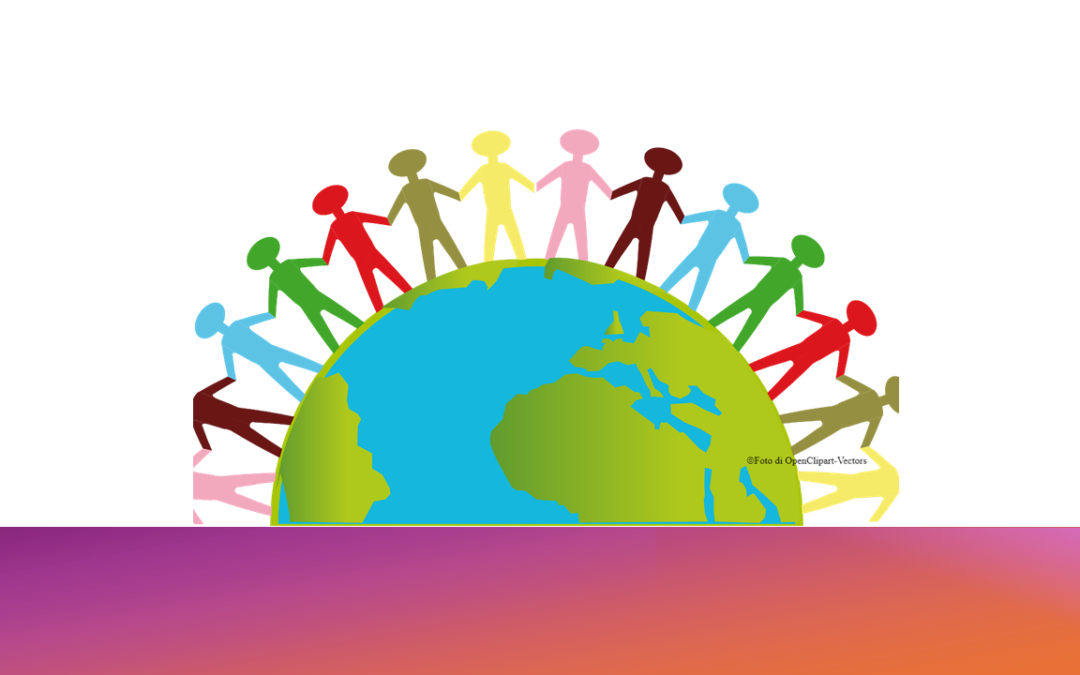
We have probably experienced how, at times, even though there are ideas and beliefs that lie deeply in our hearts and consciences, it is difficult to put them into action. It may help us to live an inspirational thought each day and know that other people all over the world are doing the same. We will not feel alone but part of a worldwide network. This was the intention that led to the development of the Idea of the Month: it was initiated by a few people in Uruguay who were passionate about dialogue and the ideal of unity.
This practice led to groups developing all over the world for people who want to reflect upon the Idea of the Month and share experiences of living it. Infact, in many places, these monthly meetings have become the norm. Could this become just a habit? Could the Idea become simply an all-encompassing good precept that is disseminated online like so many others on virtual groups? Certainly this is the biggest risk for initiatives of this kind. However, it is important that we do not settle for empty words and repeated platitudes. The English have the proverb: ‘Actions speak louder than words’. In the Netherlands, there is the saying: ‘Talk does not fill holes’. These expressions do not come about simply by chance. We can,however remember there is a word that guards against the risk of this happening and that word is ‘consistency’.
In the book entitled The Book Of Joy, the dialogue between the Dalai Lama and Desmond Tutu [1] highlights some points that can help us to live with consistency. First of all, we can listen to our consciences. Each person can assess what is their heart’s desire because this will almost certainly be linked to those human values that give a sense of happiness. We can also ask ourselves if what we want is just for ourselves or will it benefit others too? Will it serve a small number or many people? Now or in the future? When we have thought about these matters, we can formulate an intention for the day, with practical commitments even if they are small. For example, “Today I want to greet everyone; today I will be less judgmental; today I will be more patient…”
But how do you find the courage to follow your conscience? You need to speak to wise people about your ideas and try them out whilst remaining open to the possibility of being wrong. When you finally reach a mature decision, you can begin to put it into practice together but then regularly take time to reassess, renew and strengthen goals. You should not let setbacks, lack of cooperation or established but unhelpful habits put you off track and lose sight of what you hope to achieve.
This was seen in the actions of Piero Taiti when he began to know the Focolare Movement. He was truly a man of dialogue. This was seen in the many journeys he made to the little town of Fontem in Africa and in the personal relationship he built with the ‘focolarini’ for whom he held great respect. He saw that they were people whose actions came before their words and who worked with open minds alongside people, like him, who did not share their faith. He later found that his friendship with Chiara Lubich was a point of deep encounter and sharing of profoundly human values. Until the end of his life, Piero’s actions demonstrated and transmitted the power of this encounter in all areas of his life – as a family man, husband, doctor, politician and trusted friend of so many who recognised his moral calibre.
Not words, but actions. This gives energy to a person and makes them happy within. Living this way, we serve our neighbours.
[1]The Book of Joy: Lasting Happiness in a Changing World, Tenzin Gyatso, the 14th Dalai Lama, and Archbishop Desmond Tutu with Douglas Abram published in 2016 by Cornerstone Publishers
THE IDEA OF THE MONTH, THE IDEA OF THE MONTH is currently produced by the Focolare Movement’s ‘Centre for Dialogue with People of Non-religious Beliefs’. It is an initiative born in 2014 in Uruguay to share with non-believing friends the values of the Word of Life, i.e. the phrase from Scripture that members of the Movement strive to put into practice in their daily lives. Currently THE IDEA OF THE MONTH is translated into 12 languages and distributed in more than 25 countries, with adaptations of the text to different cultural sensitivities. www. dialogue4unity.focolare.org
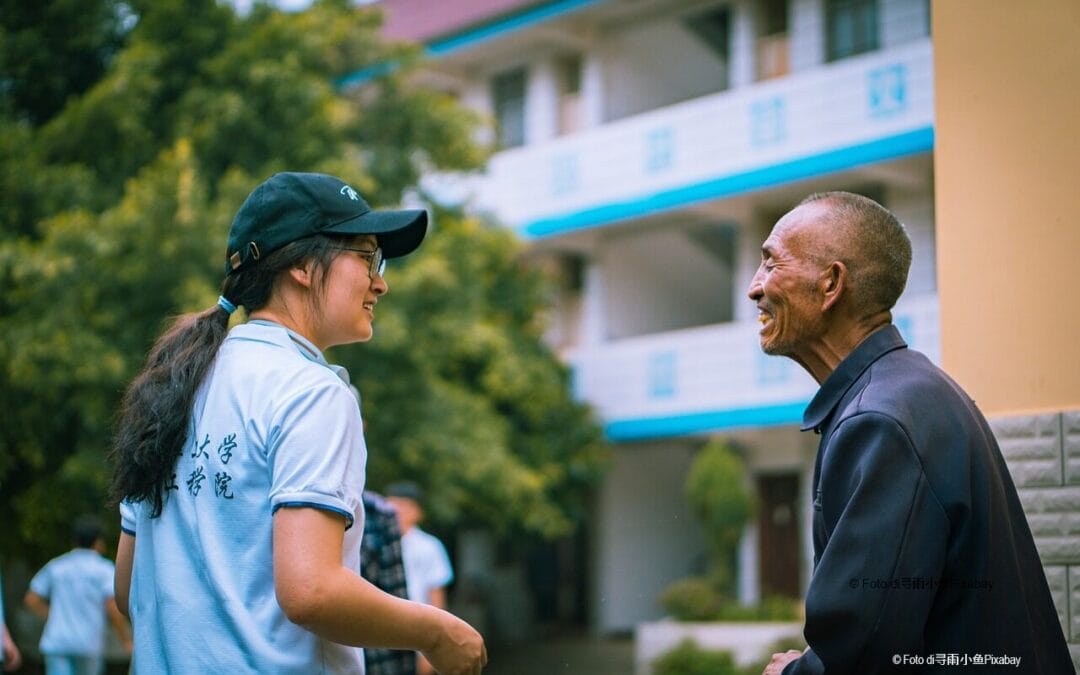
The author of this month’s verse insists upon the fundamental importance of both listening and practice. The letter, in fact, continues: ‘But whoever looks intently into the perfect law that gives freedom, and continues in it – not forgetting what they have heard, but doing it – they will be blessed in what they do.’ (James 1:25) It is precisely this commitment to know God’s Word and to live it that sets us free and gives us joy.
One could say that this month’s Bible verse is the very reason why the practice of the Word of Life has spread throughout the world. Once a week, and then once a month, Chiara Lubich used to choose a sentence from Scripture and comment on it and then groups of people met and shared the fruits that living the Word had brought about in their everyday lives. This created a united community and, in a small way, revealed the social impact that living the Word can have upon society.
‘Despite its simplicity, the initiative made a notable contribution to the rediscovery of the Word of God in the Christian world of the 20th century’ [1] by transmitting a ‘method’ for living the Gospel and sharing its effects.
Do not merely listen to the word, and so deceive yourselves. Do what it says.
The letter of James takes up Jesus’ message that refers to experiencing the presence of the Kingdom of Heaven among us: Jesus declares blessed are those who listen to his Word and keep it; he recognises as his mother and brothers those who listen to it and put it into practice; iii he compares it to the seed that, if it falls on good soil – that is, on those who listen to it with a good and noble heart and keep it – they produce fruit through their perseverance.
‘In each of his words Jesus expresses all his love for us,’ writes Chiara Lubich. ‘Let us make the Word incarnate and make it our own. If we do so, we will experience the powerful life it unleashes in us and around us. Let us fall in love with the Gospel to the point of allowing ourselves to be transformed by it and enable it to overflow onto others… We will be free from ourselves and our limitations.
Furthermore, we will see a revolution of love explode everywhere because Jesus, freed to live in us, will bring about a change in society wherever we live.’[2]
Do not merely listen to the word, and so deceive yourselves. Do what it says.
How can we put the Word into practice? Let us look around us and do everything we can, to serve others in need, through both small and not so small actions. Such gestures transform injustice in society, combat violence, foster peace and reconciliation and increase sensitivity towards respect for our planet.
This can initiate a real revolution in our lives, in our work environments and in the communities in which we live.
Love manifests itself in social and political actions that seek to build a better world. The commitment of a small Focolare community towards the most vulnerable people in society led to the opening of the Chiara Lubich Centre for the Elderly in Lamud, Peru in the Amazon area, 2,330 metres above sea level.
‘The Centre was opened in the midst of the pandemic crisis and houses 50 elderly and lonely people. The building, furniture, crockery and even food came as a gift from the neighbouring community. It was a risk, not without difficulties and obstacles, but in March 2022 the Centre celebrated its first anniversary. It hosted a party and opened its doors to the city; even political representatives took part. The two days of celebrations enlisted new volunteers, adults and children, who want to enlarge their own families by taking care of lonely grandparents.’ [3]
Edited by Patrizia Mazzola and the Word of Life Team.
[1] C. Lubich, Parole di Vita, Introduzione, a cura di Fabio Ciardi, (Opere di Chiara Lubich 5), Città Nuova, Roma 2017, p. 9
[2] Lubich, Parole di Vita, Introduzione, a cura di Fabio Ciardi, (Opere di Chiara Lubich 5), Città Nuova, Roma 2017, p. 790
[3] Mission Report of Communion 2022. Focolare Movement , in https://eyut279xk3q.exactdn.com/wp-content/uploads/2024/02/BdC-2022-DialogoEN.pdf p.67
IDEA OF THE MONTH, based on the Word of Life of the Focolare Movement, was born in Uruguay as part of the dialogue between people of different convictions, whose motto is “building dialogue”. The purpose of this publication is to help promote the ideal of universal fraternity. The IDEA OF THE MONTH is currently translated into 12 languages and distributed in more than 25 countries
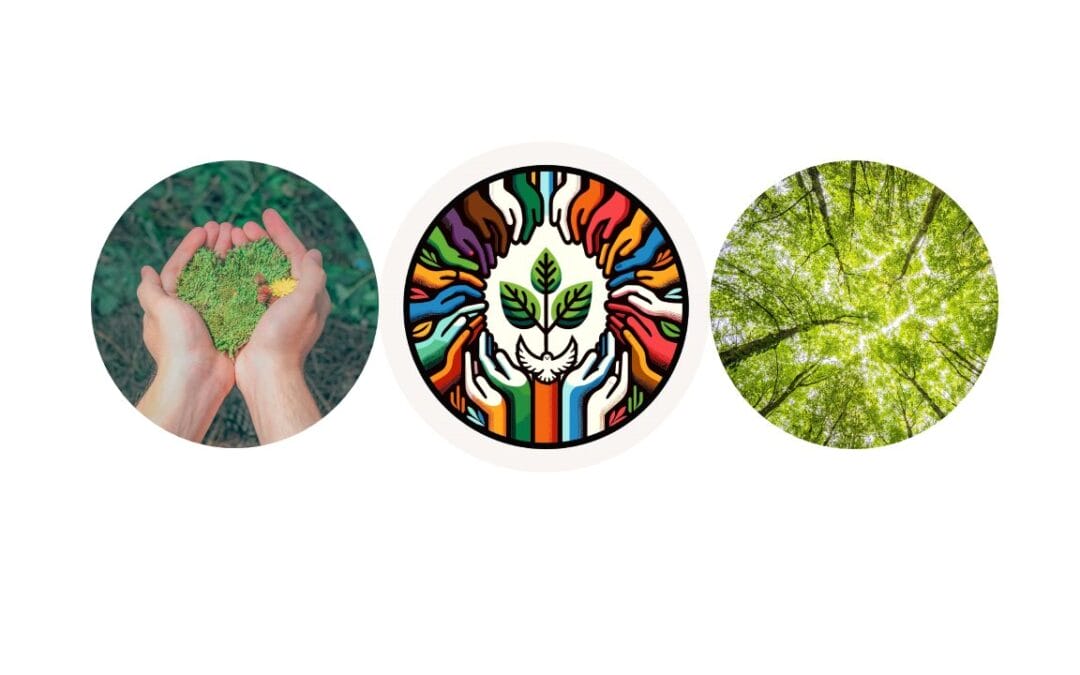
The ecumenical family from around the world comes together to listen and care for our common home. As usual, September 1 begins the Time of Creation, a period of prayer and reflection associated with concrete actions for the care of Planet Earth. This event will conclude on Oct. 4 with the feast of St. Francis of Assisi, the patron saint of ecology beloved by many Christian denominations. The Focolare Movement participates in the initiative. From the Week of Prayer for Christian Unity this January leading up to today, we have experienced the phase of “Preparation” for the Time of Creation, which is essential for creating bonds and relationships, renewing the joy of meeting and cultivating the gifts of communion and peace as the People of God together with our common home.
Theme of 2024
The theme of this year is Hope and act with Creation. Where does this theme originate? In the letter of the apostle Paul to the Romans, the biblical image depicts the Earth as a Mother, groaning as during childbirth (Rom 8:22). St. Francis of Assisi understood this when he referred to the Earth as our sister and mother in his Canticle of Creatures.
Unfortunately, the times in which we live show that we do not relate to the Earth as a gift from our Creator, rather as a resource to be used.
Can there still be hope?
Certainly, there must be, along with an expectation for a better future. Hoping in the biblical context does not mean standing still and remaining silent, but rather groaning, crying and actively striving for new life in the midst of difficulties. Just as during childbirth-taking up the apostle Paul’s depiction-we go through a period of intense pain but a new life is being born.
Hope is a gift from God. Only through hope can we fully realize the gift of freedom, which together with responsibility enable us to make the world a better place. Only when we cooperate with Creation can the first fruits of hope be born.
Hope and act
Hoping is trusting that our action is meaningful, even if the results of this action are not immediately seen. We know how urgent it is to take bold action to contain the climate and ecological crisis, and we also know that ecological conversion is a slow process as human beings are headstrong on changing their minds, hearts and way of life. Sometimes we do not know how our actions should be. There is much we can learn from other cultures and countries about how to hope and act together with Creation.
This year the 1st of September is a Sunday, we are all invited to celebrate the beginning of the Time of Creation in our respective countries and communities.
Lorenzo Russo

“Love your neighbour as yourself”*.
This is a continuous tension because our nature loves itself.
Often we hear news of disasters, earthquakes, hurricanes which claim victims and leave people injured and homeless. But it’s one thing to be one of those affected and another thing to be an onlooker.
Even if we are able to offer some aid to help the others, we are not them.
Tomorrow it could be the other way round: I on my deathbed (if I am given a bed!) and the others out in the sun enjoying life.
All that Christ has commanded us goes beyond our nature as it is now.
But also the gift he gave us, the one mentioned to the Samaritan woman, is not human in nature. So it is possible to share in our brother’s pain, joy or worries because we have in us charity which s of a divine nature.
With this love, that is with Christian love, our brother can be truly comforted and tomorrow I might be comforted by him.
And in this way it is possible to live, because otherwise human life would be very hard and difficult, indeed sometimes it would appear to be impossible.
Chiara Lubich
(1) Cf. Lv 19, 18.
Photo: © Pixabay
(From Chiara Lubich, 1964-1980 Diary, Città Nuova, 2023)
The edition of the Diary of Chiara Lubich was edited by Fabio Ciardi. We invite you to see the interview we conducted at the time of the presentation.
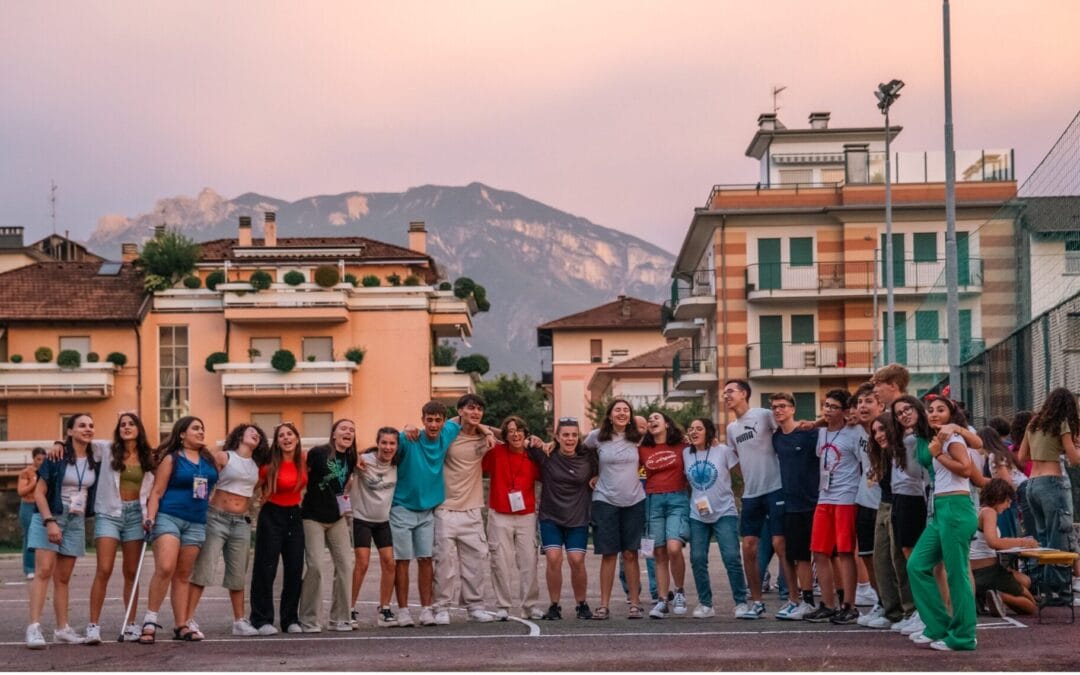
In early August in Trent, Italy, the Foco School, a Focolare Movement congress for the Gen3 boys and girls, the adolescent generation of the Movement, was held.
A total of 350 participants attended – ages 14 to 17 along with assistants ages 18 and older – from 19 nations with 12 different languages. A little over a week to deepen adolescent themes, experience in depth the relationship with God, discover how the Ideal of unity and universal fraternity is possible to live it and build it day by day despite the threat of wars in various parts of the world. There was also a Festival of peoples where each nation could represent itself through songs, dances, outfits, photos, and local food. A way to learn about each other’s culture and build a piece of a world that is more united and fraternal.
Here are some testimonies.
Sofia, Italy: “I decided to attend the Foco school to have a more intimate relationship with Jesus. From this school I learned the way to always love the people around me. I can better cope with moments of difficulty and pain by feeling closer to Jesus.”.
Veronika, Croatia: “I experienced a united spirit that flows from the desire for peace and community, which is based on prayer and dialogue with God. After listening to the testimonies about the violation of peace, about the struggle to keep peace in oneself, in one’s family, in one’s country, the desire to do everything to keep peace in these places was awakened in me.”.
Naomi, India: “I attended the Foco School to improve my relationship with God. At the end what I took home was how I can take comfort during times of difficulty or pain by thinking of Jesus forsaken on the Cross. But I also discovered the power of reconciliation through confession. I will always try to use my whole self to propagate the Gospel and make my city a place of love.”.
Tomás Portugal: “During the Festival of Peoples, I was proud to show our country and at the same time learn about the cultures of other countries. After this school, I miss everything I experienced there, but I also want to live what I learned there every day.”.
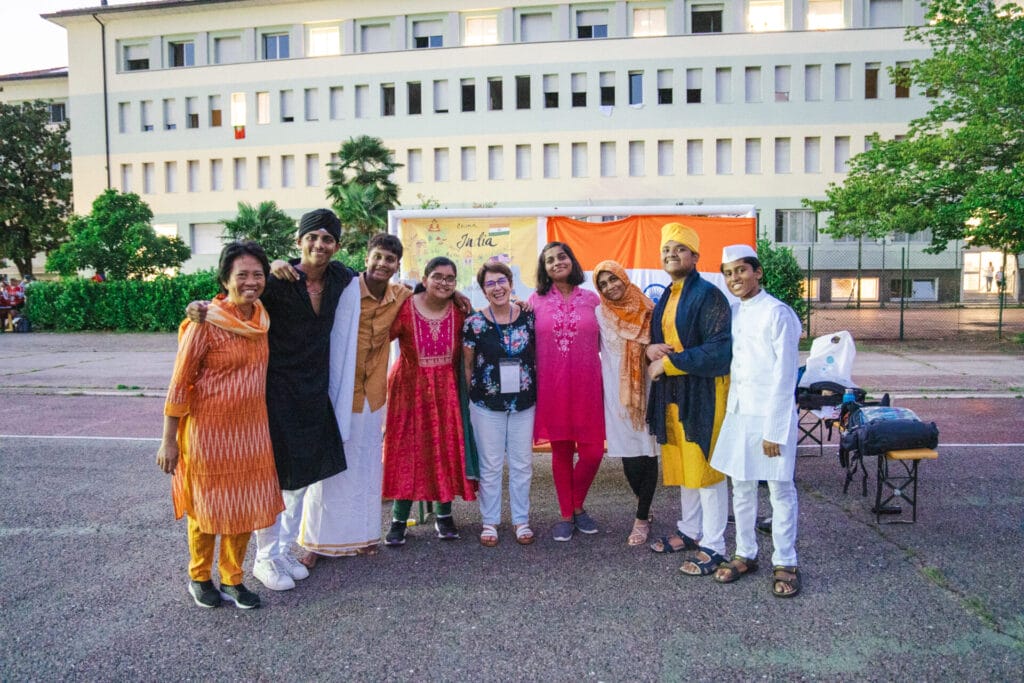
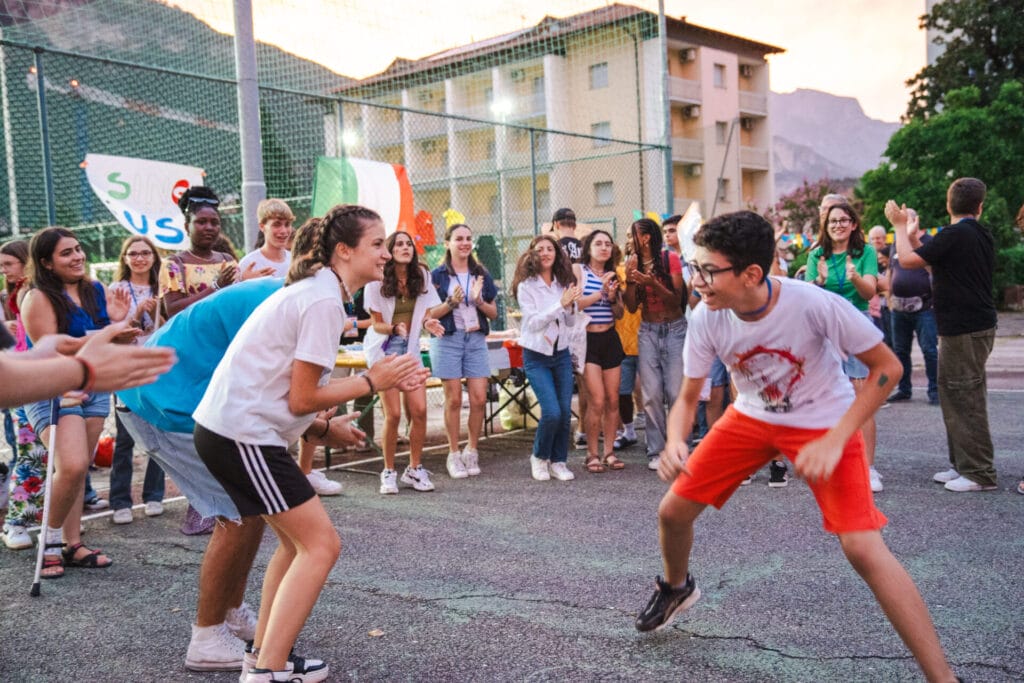
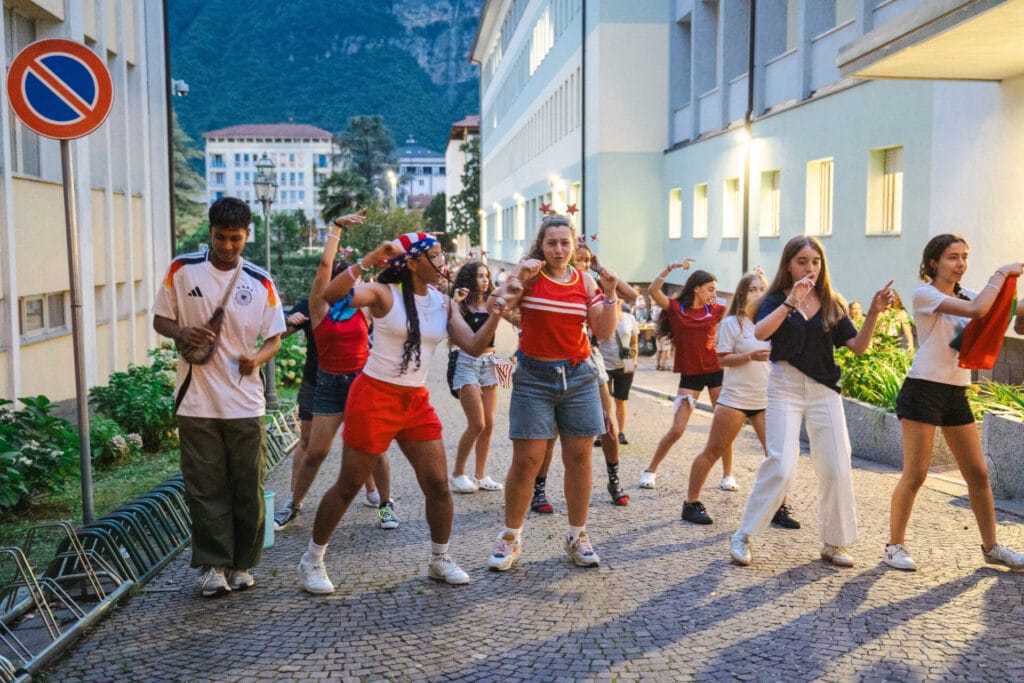
Emanuel, Croatia: “At Foco School, I enjoyed the Festival of Peoples. We were able to learn about different cultures and traditional dishes. I met many friends there and tried various specialties. I would gladly relive this experience 100 more times.”.
Gloria, Brazil: “I have felt changes in my relationship with God. At first I could not connect with Him and feel Him in people, but I know that after all the experiences I have heard and reflections I have experienced, I can easily feel Him in every situation. Also, I have learned to help people I don’t like, to help people with problems and to identify God in everyone.”.
Sarahi, Mexico: “I realized that even though we live in different countries and even on very distant continents, the Ideal of unity can always be lived. It was a very good experience especially to learn about other countries’ culture, food, their clothes, some words and traditions. What I took away from the school is that first of all I stopped being afraid of confession and this made my faith in God grow. Daily Mass has helped me a lot, I hope to continue going every Sunday of my own free will.”.
Sebastian, Croatia: “I liked it when we represented our countries at the Festival of Peoples: everyone showed some tradition of their country. It was a lot of fun when we played soccer in the evening and got to know each other like that. My favorite moment was the final party where we sang and had fun. My life changed after the school, now I try to live the gospel by loving the people around me.”.
Silvia, Italy: “After the school my life turned around and I began to see the world with different eyes. It was the most meaningful experience of my life and made me want to be able to resemble what Chiara Lubich always wanted from the Gen.”.
Anna, Italy: “I highly recommend Gen who have not yet attended a Foco School to do so! You will have a lot of fun, I can guarantee.”.
Jakov, Croatia: “At Foco School, I understood the importance of unity. When I arrived, everyone was welcoming, it felt like one family. Rarely have I experienced this feeling before, maybe never. Also, I understood how to love and want everyone, regardless of who they are and their background. I would like to experience more such encounters, it was an unforgettable experience.”!

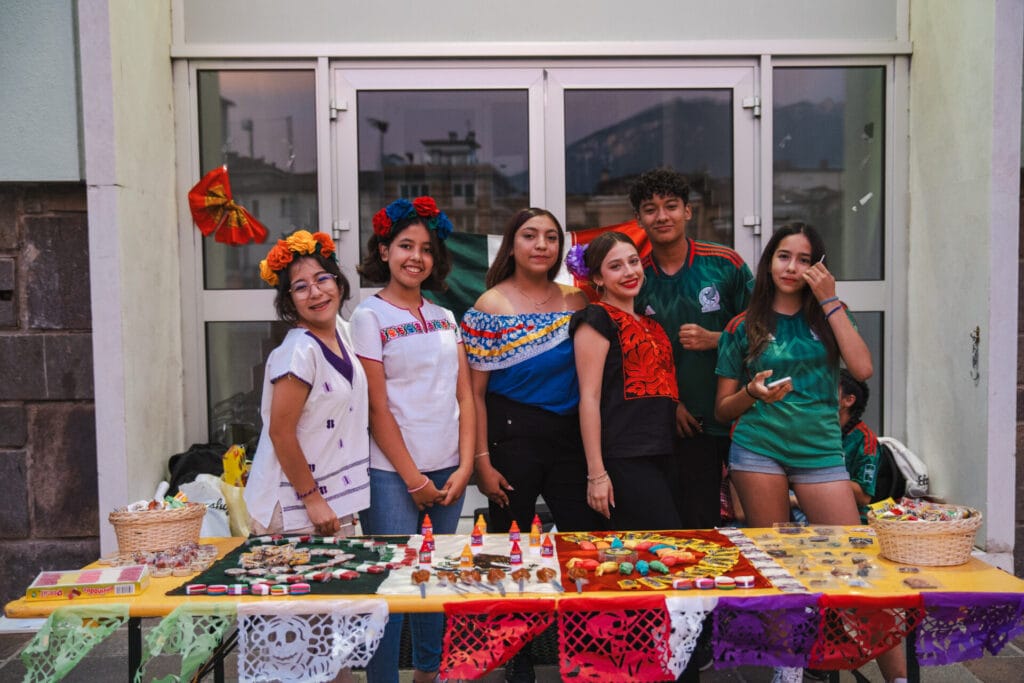

Julia, Brazil: “I take home the immeasurable love of Jesus for me and for everyone, as well as the hope and the feeling of wanting a united world to become a reality. Seeing that Jesus loves each one of us and being able to feel his love at Foco School was one of the most beautiful experiences I have had and I will definitely take it with me. I found hope and faith again. Now the challenge will be to bring the love and unity I felt at school into the “real world,” at home, at school, with my friends. But it is the memories and the love of what I learned in that experience that will push me to not give up and to fight for a united world.”!
Maria Teresa, Italy: “I participated in the Foco School as I felt a desire to know more about the origins of the Focolare movement. From this School I take home the hope for a better future for our generation. My life has improved because I have realized that I have to look at it from a different perspective, make every obstacle a launching pad! Being very insecure, I am always afraid to play the violin in public. In fact, when I was proposed to play at the school I was a little unsettled. Then one day there was a talk about how each of us can give to others our own talent or quality, which Chiara Lubich calls a “pearl.” So I decided to give my pearl to others, and while I was playing with another Gen, a group of boys and girls came up to accompany us with singing, giving us support. I lived Luke’s Gospel passage (Luke 6:38) “Give and it will be given to you.”.
Elena, Italy: “At the end of this school, I take home what I understood during a day dedicated to Jesus in his pain, abandoned on the Cross. It also affected me deeply because, thanks to the testimonies of the Gen, I was able to understand how to overcome pain through love.”.
Tomás, Portugal: “I brought home the discovery of Jesus forsaken, the power of prayer, as well as confession. I will carry God’s love wherever I go, I have strengthened my faith, I have learned a lot from this school.”.
Lorenzo Russo

Trieste is a city located in north-eastern Italy, on the border with Slovenia. Historically, it represents a crossroads of cultures, languages and religions. Today it is one of the main entry points to Europe for migrants following the Balkan route. They come with a burden of suffering, wars and persecutions.
In Trieste, the Focolare Movement community collaborates with other institutions to welcome migrants.
Claudia, from the local community told us, “The biggest problem is the perception of the problem itself. It is not an emergency, an unmanageable invasion as it is often portrayed but it is a structural phenomenon that is the reality of our historical present. A continuous flow of incoming people who, if properly welcomed, can enrich our city and our country. If the migratory phenomenon is not understood and addressed in appropriate ways, it will inevitably generate distrust, fear, impatience, rejection”.
Last autumn, in anticipation of the cold weather, the Bishop of Trieste, Archbishop Enrico Trevisi, expressed a wish to open a shelter as a concrete response to the reception of migrants. Together with other Catholic associations and individual citizens, some Focolare members responded to the Bishop’s appeal by volunteering. Claudia said, “For us it is not just a charitable service but an opportunity to meet a brother or a sister who needs to be loved in many details: by giving a smile, offering a meal or exchanging a few words. Often these brothers and sisters tell us pieces of their story, their sorrows and their hopes. They show us photos of their children but we also have a laugh and simply spend time together. Some of us have also looked after some migrants more closely for example by accompanying them to a hospital appointment or helping them prepare a CV for a job application”.
Sandra from the Focolare community added: “We try to get to know the migrants, their stories and their needs. This gives rise to experiences that have seen us involved in helping beyond our shift at the shelter and these experiences encourage us to continue. The shifts allow us to work with the other volunteers and to discover that even though many of them are not part of any associations or involved in parish life, they were happy to respond to the Bishop’s appeal”.
Claudia said, “Relationships grow slowly and are a sign of unity for the local Church. This experience, combined with the recent Italian Catholics’ Social Week[1], which took place in Trieste and was attended by Pope Francis, will bring great life to this border city of ours”.
A guest of the diocesan shelter said, “In Trieste I met the best volunteers, people who do not stop at distributing food. Satisfying the hunger of the needy and treating the wounds of the sick are noble tasks because they are the most urgent and essential. However, human beings have other extremely important needs, for example their emotional and spiritual health, which are symptoms of the state of their soul. This is not an individual or minor issue, it is what makes the difference between actions that have a momentary impact and those that persist and permeate the entire society. The best volunteers are so because they are aware that the needy are not just recipients of charity, we are people with stories worth listening to. They know every migrant mourns their lost roots, while also harbouring a hope that crashes against the walls of the system and an incessant struggle for survival. The best volunteers are moved by this suffering humanity and are encouraged to listen to our stories, despite the language barrier. They teach Italian or learn Spanish, use technology, give up their personal time, invest their energy in the common good and dream of a community in which we can all offer the best of ourselves”.
Lorenzo Russo
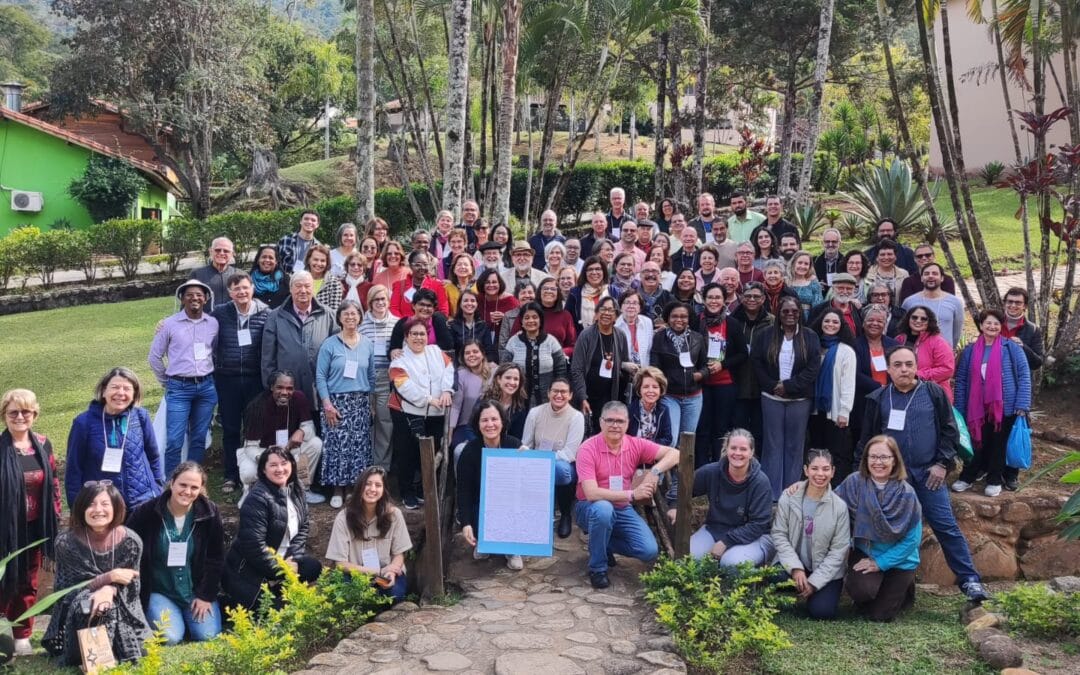
The Pedrinhas (SP, Brazil) headquarters of the Fazenda da Esperança welcomes young people and adults who are going through different stages of recovery from drug addiction and various forms of addiction and social distress. There could not have been a better place to host the conference of UNIRedes, the platform of NGOs, social and humanitarian projects and cultural agencies inspired by Chiara Lubich’s spirituality of unity in Latin America. In attendance were 140 people from 37 of the 74 partner organisations of UNIRedes, active in 12 countries of Latin America and the Caribbean.
The aim of the conference was to present the work of these years to Margaret Karram and Jesús Morán, who were present at the meeting; to define the next steps common to all the partner organisations and to strengthen the link with the Focolare Movement in order to share the experience gained beyond the Latin American continent.
UNIRedes: a network of networks
Maria Celeste Mancuso, Argentinian, international co-responsible of the New Humanity Movement, explains that UNIRedes is not only a solidarity super-project: “It is also a space that generates a cultural reflection to identify the anthropological and epistemological categories necessary to generate a new culture of care for the person and societies in Latin America”. This is why cultural agencies inspired by the charism of unity such as the Sophia University Institute (Loppiano, Italy), its local branch, Sophia Latin America and the Caribbean (ALC), and the ASCES UNITA University Centre in Caruaru (PE) are also fully part of it.
Virginia Osorio, Uruguayan, one of the initiators of the project, explains its origins: “The constant political and economic changes in our countries made our organisations increasingly fragile and isolated. With UNIRedes we found a place where we could strengthen each other and share our sufferings and hopes. Our most recent project was for Genfest: hundreds of young people volunteered with many of our organisations, experiencing first-hand fraternity and closeness to the poorest”.
The common root: “dying for one’s people”
The first root of UNIRedes is not based on geopolitical or economic analyses: we need to go back to the early 1970s when the Gen, the young people of the Focolare, like many of their peers in many countries, wanted to change the world and bring equality, justice, and dignity.
Chiara Lubich, who met with them frequently, supported and confirmed the need to make a peaceful social revolution, especially in Latin America, a continent she saw as having this special vocation. She told the young people of the Focolare that: “Each one must feel that we must die, yes, for humanity, but we must find our local Jesus Forsaken to die for our own people”[1].
“That’s how many people went to the peripheries of the cities, to the slums, wherever poverty took away people’s dignity,” says Gilvan David, a Brazilian from the Latin American articulation group of UNIRedes. “The first NGOs were established, and in the meantime we were trying to structure ourselves, but it was not enough: ‘You come to us,’ the poor told us, ‘but then go away and leave us alone’. To respond to this cry, we started to network with local public policies and at the same time, several priests who lived the spirituality of unity also founded social projects: Frei Hans with the Fazenda da Esperança, Father Renato Chiera with the Casa do Menor and others”.
One “single” Latin America
“Then the first groups of organisations were created,” continues Gilvan David, ‘Sumá Fraternidad’, which brought together projects from a number of Spanish-speaking countries; the civil association ‘Promocion Integral de la Persona’ (PIP) in Mexico; and the Brazilian social organisations continued to grow, finding their own identity and space for service. These were not easy years, but we started various paths in different territories in Latin America to support their social commitment, which then merged into UNIRedes. We met several times, but the founding meeting was in 2014, also attended by Emmaus Maria Voce and Giancarlo Faletti, then President and Co-President of the Focolare Movement. Emmaus on that occasion said: ‘You give the Movement a new visibilitỳ, a new meaning to its action, you are a testimony for those who look at you from the outside; you give complete visibility to the Charism through concrete actions’. I would say that it was then that we recognised ourselves as a unique reality for the whole of Latin America: we found ourselves embraced by the Charism of unity”.
There were many substantial contributions that built this conference, along with the presentation of the different partner organisations.
Juan Esteban Belderrain: from inequality to hope
The Argentinean political scientist Juan Esteban Balderrain analysed the wound of inequality of which Latin America holds the world record. “It is a matter of building a vision of this continent that starts from hope and this is possible because if we look at the deepest root of the problem of inequality, we find that we have lost the reference to that God who is love and who helps us understand that we are brothers and sisters of one another and with nature, which is also an expression of his Love. Referring to the 20th century, Paul VI said that it was a blessed time because it demanded holiness from everyone. I think these words also apply to ours.”
Padre Vilson Groh: the “open-eye mysticism”
For over 40 years, Father Vilson has lived in the “morro”, a slum in Florianopolis (Santa Catarina, Brazil), carrying out social projects especially for young people. He spoke of the “open-eye mysticism”: “We must take our organisations to the dark cellars of our peripheries; be a hope there. Genfest brought the perspective of “togetherness”, which Pope Francis promotes. This requires a patient, resilient journey; it demands being steadfast in the pursuit of the common good. Unity is superior to conflict, the Pope always says, and unity is plurality. Let us bring diversity into our organisations: the charism of unity is a door for the wounded Christ to open spaces”.
Vera Araujo: Latin America builder of fraternity
The Brazilian sociologist’s talk focused on a positive vision that recognises the Latin American cultural and human heritage and offers it as a gift to the world.
“UNIRedes originates in Chiara Lubich’s charism and can be transformed into an incredible opportunity for the rest of the world: unity seen not only as a religious value, but also as a force capable of effectively composing the human family, realising an interaction between the multiplicity of people, preserving distinctions in the context of social realities. Here the charism of unity offers a solution that is not easy, but rather a sense, a meaning, a Person: Christ Forsaken on the cross.
‘To love well‘, says Chiara, ‘we must not see in the difficulties and injustices of the world only social evils to be remedied, but discover in them the face of Christ who does not disdain to hide beneath every human misery’[2].
Susana Nuin Núñez: the path of peoples and social movements
The Uruguayan sociologist described the journey and the social, political, economic richness of the continent’s peoples and certain social movements. “These networks with their most varied physiognomies, with their developments in social practices or in the academic world, act in a complementary manner, generating an unquestionable socio-cultural fabric with a multifaceted community character that Latin America is the bearer of”. She then underlines the peculiarity of UNIRedes, which for over ten years has been a social subject that heals, revolutionises, transforms and influences from the Gospel and the word of unity.
Margaret Karram and Jesús Morán: UNIRedes is part of the Focolare Movement
“Those who want to live the Gospel in this region are always in crisis because they see inequalities constantly,” Jesús points out. “Unity cannot fail to take on this reality. How do we achieve unity on this continent, without taking into account those discarded by society? What you do as UNIRedes should inform the whole Movement in this region; its work for unity is not credible if it is not also done through social works. Of course, we will not solve social problems. The only thing we can do is to make people convert to love. If we touch hearts, someone will grasp the spirit and in freedom will understand how to live the Gospel”.
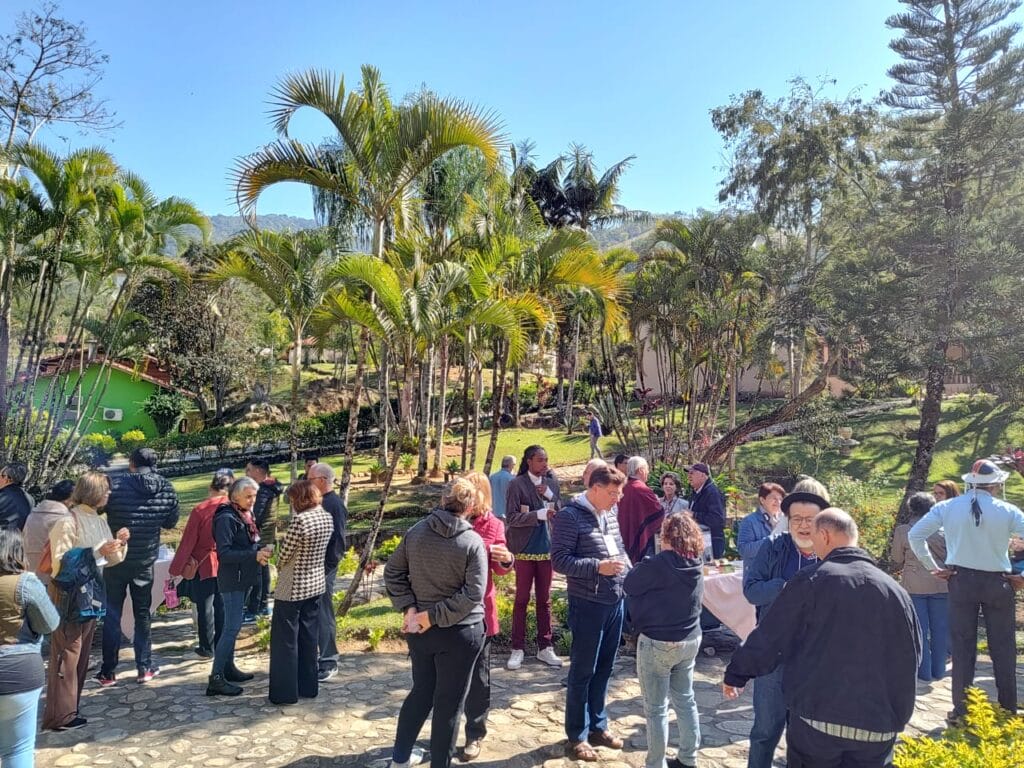
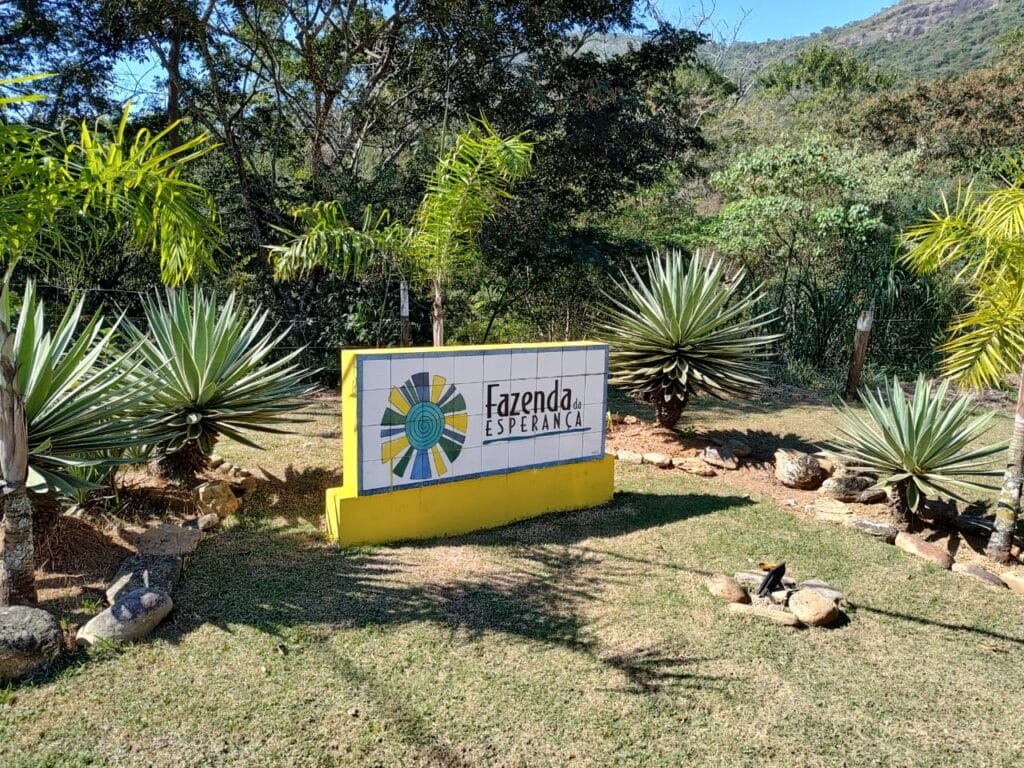
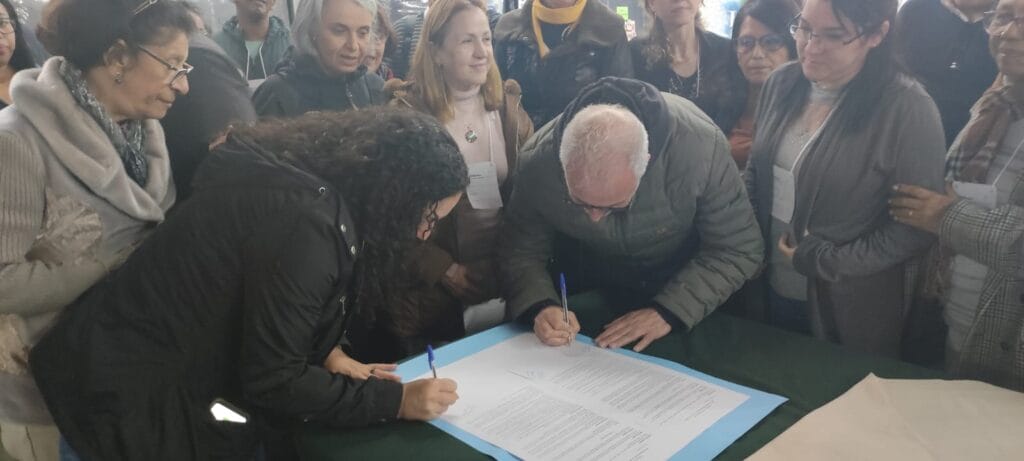
Margaret encouraged UNIRedes to move forward: “Now you have to figure out how to make your life and example reach everyone in the world. Quoting a conversation of Chiara Lubich from 1956, she reiterated that in its social commitment the Movement must not forget that the key to solving the problems that the Charism of Unity offers lies in the novelty of reciprocity rather than in justice. It promotes sharing, the putting in common among everyone the little or the much that is available to create a greater Common Good which, in addition to solving social problems, produces the human and spiritual fulfilment that only happens in fellowship among all. Finally Margaret launches a proposal: “Add a new article in your Charter of Principles and Commitments: a solemn pact of fraternity to be proposed to those who want to be part of UNIRedes: we are here to witness to mutual love and only if we have this love will the world believe”.
“UNIRedes speaks to us of hope,” concludes M. Celeste Mancuso. “It is a transversal and synodal proposal of an organisational network that can inspire similar models for those existential peripheries in other parts of our vast world. In this way we can think of building global networks of fraternity that promote the common good”.
Stefania Tanesini
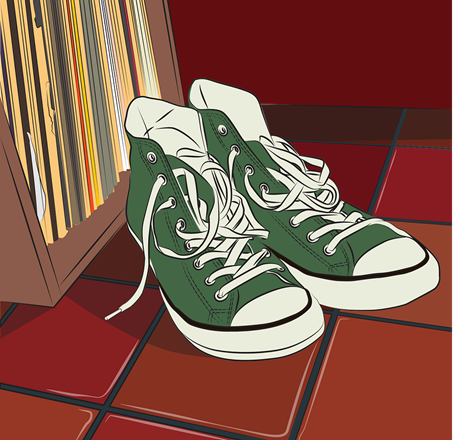
At the right time
One day a co-worker of our center had received a gift of a pair of new sports shoes size 43. But who could have possibly needed them? That same day we learn that a 14-year-old boy we know really needed those shoes and that size! He is the son of a friend who was in the hospital at that time. Her other daughter had also visited our center that day and we had learned that they needed clothes and medicine. She made us understand that she is in need of a cell phone to keep in touch with her mother in the hospital. And…we had received one (a phone) a few days earlier! It is impressive to see how there is always “Someone” who provides us with just those ad hoc things which we can then donate!
A bed in two minutes
We were at the final goodbyes of a Sunday spent “as a family” (so to speak because we were surrounded by hundreds of people) with activities to raise funds for our youth. A Venezuelan friend among the first people I met years ago had introduced me to an 18-year-old young man – Jesús. He had told me some of what he had experienced having left Venezuela alone at the age of 16. Two years of adventures, enough to make an action film, with many moments of suspense. For 15 days he had been in Peru. Talking with him I discovered that he was sleeping on a mat on the floor! Diligently he had planned with his first paycheck (he had in fact found a job in Peru immediately) to solve the problem of documents and then think about the bed. At that time I had no solutions, but we promised to stay in touch. Shortly after saying goodbye to him I met one of our co-workers who, without knowing anything about Jesus’ needs, asked me, “So what do we do with that bed?” “But how? Do you still have it?” I was surprised. “Yes!” he said to me. I immediately called back Jesús who was leaving the Center. He joined us immediately, and upon hearing that there was already a bed for him, very strong was the light I saw in his eyes. It had not been two minutes since I had told him that I would try to find a solution!
Free ultrasound scans
Many of the migrants who arrive at our center need medical care and sometimes even diagnostic tests. Recently, another blessing from Heaven occurred: a medical center near us offered us the possibility of performing ultrasound scans for free. They want to give this opportunity to those who do not have the possibility of paying for these examinations. Truly a gift for so many of our patients.
Silvano R. – Perù
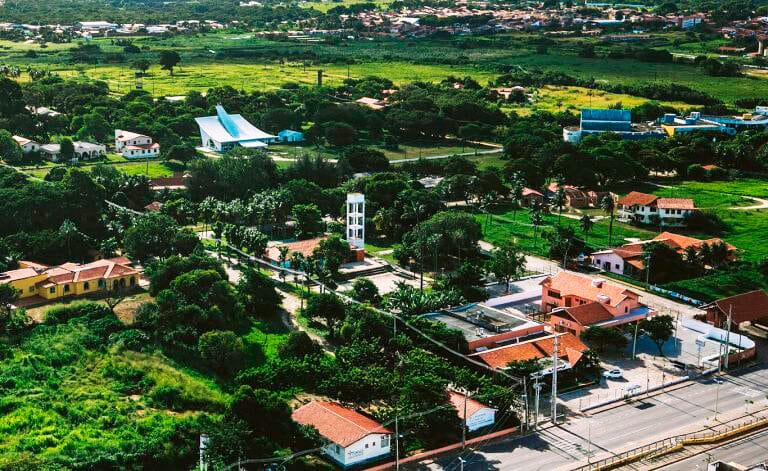
The Condominio Espiritual Uirapuru (CEU) is a reality born in Fortaleza (Brazil) a few years ago, the choice of unity between charisms is the basis of community life. There are 23 realities that coexist and collaborate here for the recovery, protection and enhancement of human dignity.
Ana Clara Giovani
Read also: An original condominium
VIDEO: Activate subtitles in the desired language

At this crossroads of countries where the Iguaçu and Parana rivers meet, there is the busiest border in Latin America; the area is characterised by great cultural diversity and the centuries-old presence of indigenous peoples, such as the great Guaraní people. Tourism is the major economic resource of this region where people mainly come to visit the Iguaçu Falls, which are the largest in the world, with a width of 7.65 km and are considered one of the seven natural wonders of the planet.
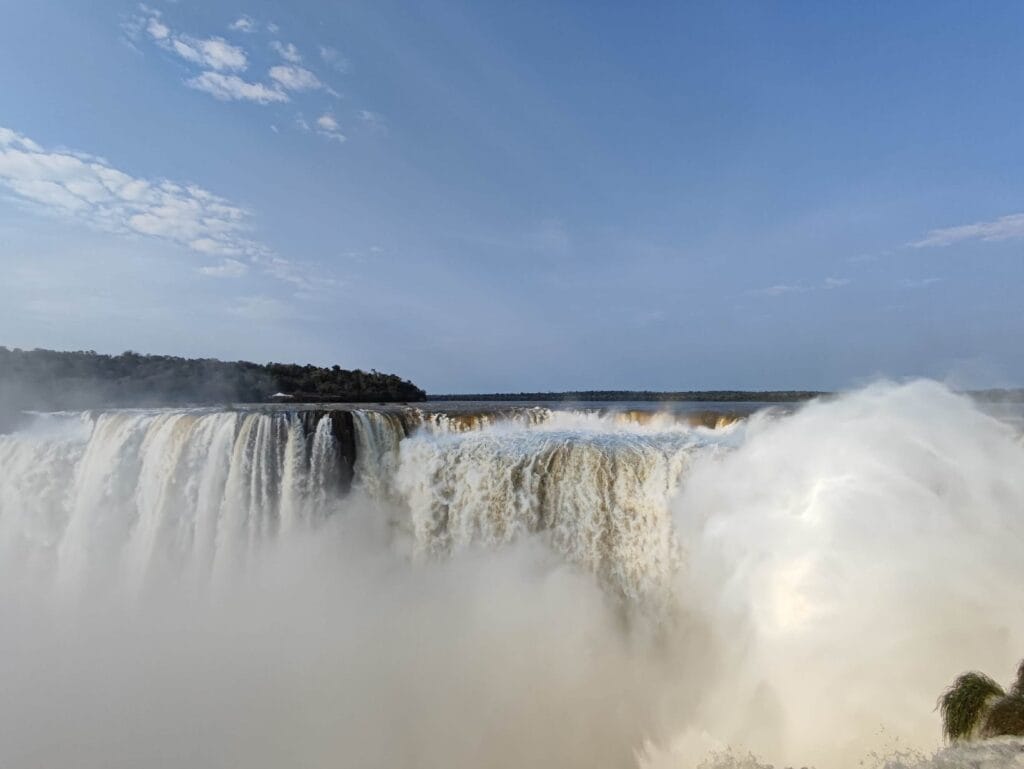


In her welcome message, Tamara Cardoso André, President of the Human Rights and People’s Memory Centre of Foz do Iguaçu (CDHMP-FI), explains that in this place they want to give a different meaning to national borders: “We want our triple frontier to become more and more a place of integration, a land that everyone feels is theirs, as the original peoples who know no barriers understand it.”
Foz do Iguaçu, last stage
This is where Margaret Karram and Jesús Morán’s journey – president and co-president of the Focolare Movement – in Brazil comes to an end. They have travelled it from North to South: from the Brazilian Amazon, passing through Fortaleza, Aparecida, Mariapolis Ginetta in Vargem Grande Paulista, the Fazenda da Esperança in Pedrinhas and Guaratinguetà (SP), up to Foz do Iguaçu. Here the “extended” family of the tri-national Focolare community celebrates its young history and recounts the contribution of unity that it offers to this place: the embrace of three peoples that the spirituality of unity brings together into one, overcoming national borders, while each one maintains its own distinct cultural identity. Also present for the occasion are Card. Adalberto Martinez, Archbishop of Asuncion (Paraguay), local Bishop Sérgio de Deus Borges, Bishop Mario Spaki, Bishop of Paranavaí, and Bishop Anuar Battisti, Bishop Emeritus of Maringá. Also present was a group from the Islamic community of Foz, with whom there have been long-standing relations of fraternal friendship.
Peoples with common roots
Arami Ojeda Aveiro, a student of Cultural Mediation at the Federal University of Latin American Integration (UNILA) illustrates the historical journey of these peoples and the serious wounds that have accumulated over the centuries. The conflict between Paraguay on the one hand, and Argentina, Brazil and Uruguay on the other (1864-1870) was one of the bloodiest in South America in terms of human lives, with social and political consequences for the entire region. However, there are also many cultural factors in common, such as music, gastronomy, popular traditions derived from the same indigenous cultural root, such as the Yerba Mate Guaranì, a typical drink of the three peoples.
The Guaranì culture is one of the richest and most representative of South America; it is a living testimony of the resilience and adaptability of a people that has been able to preserve its identity over the centuries with a unique cosmogony, where the connection with nature and respect for traditions are fundamental and can be a great wealth for all humanity.
“This is why,” concludes Arami Ojeda Aveiro, “the Triple Frontier region is not just a geographical border, but a multicultural and cooperative space that strengthens the whole area”.
The “tri-national” community of the Focolare Movement
Among all the Focolare communities in the world, this one has a unique character: “It would be impossible to feel that we are one family if we only looked at our national histories,” says a young woman from Argentina. Monica, from Paraguay, one of the pioneers of the community together with Fatima Langbeck, from Brazil, recounts that it all began with a daily prayer of hers: “Lord, open the way for us so that we can establish a more solid presence of the Focolare and that Your charism of unity may flourish among us. Since 2013 we are one community and we want to write another history for this land, which witnesses that fraternity is stronger than prejudices and secular wounds. We are united by Chiara Lubich’s word of unity, when she said that true sociality goes beyond integration, because it is mutual love in action, as proclaimed in the Gospel. Our specificities and differences make us more attentive to one another, and the wounds of our national histories have taught us to forgive one another’.
The artistic contributions speak of the vitality and relevance of the cultural roots of the peoples who inhabit this area. There are the songs of the Argentinian community coming from the “litoral“, from the coast; then “El Sapukai”, the very rhythmic Paraguayan dance that is danced with (up to) three bottles on one’s head; the representation of the Guaraní people intone a song in their own language praising the “great mother”, the forest, which must be protected, produces good fruit and gives life to all creatures.
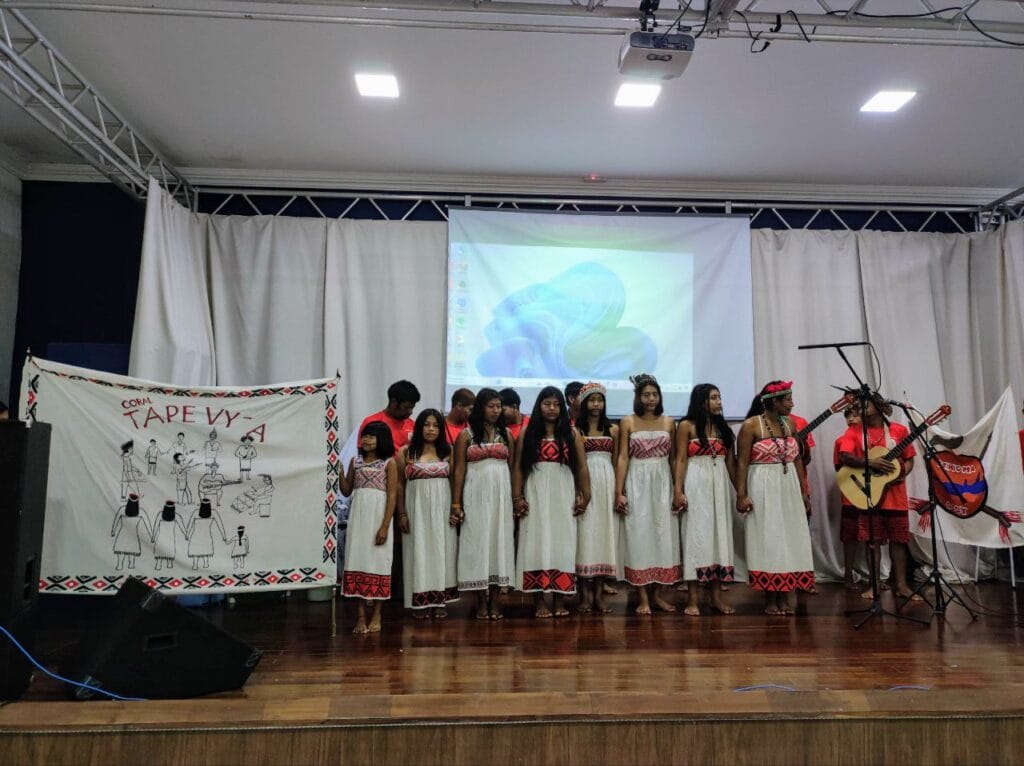
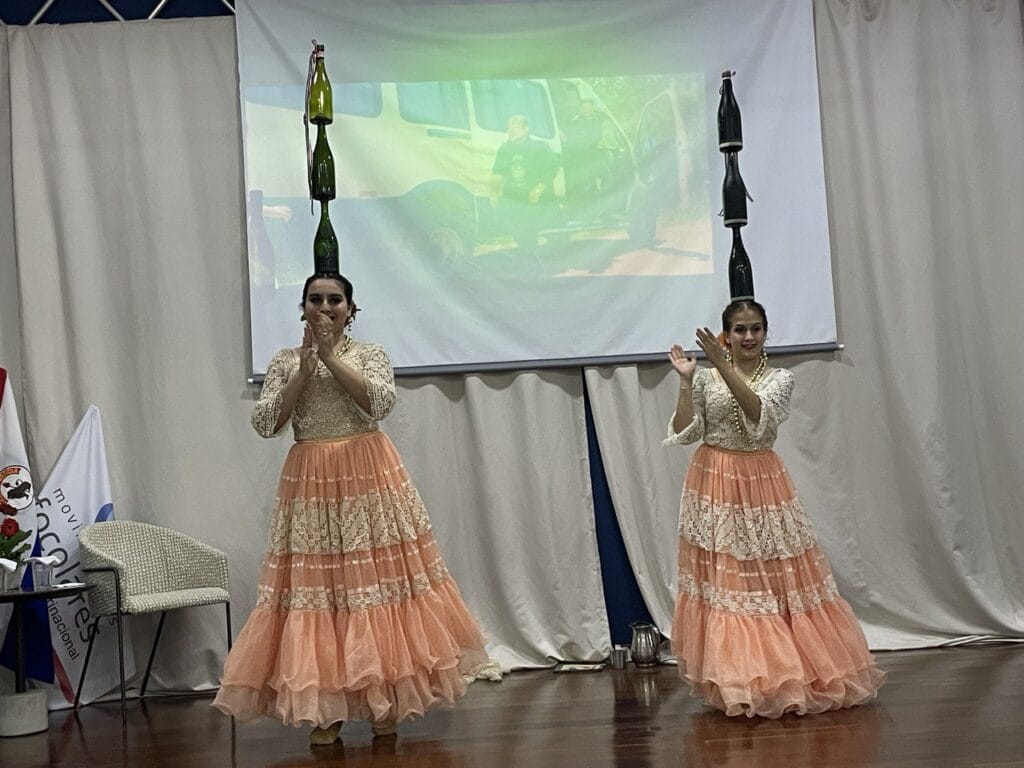
Father Valdir Antônio Riboldi, a priest from the diocese of Foz, who got to know the focolares in 1976, continues the story by writing: “The focolares of Curitiba in Brazil and Asuncion in Paraguay began to promote events involving people from the three neighbouring countries, an experience we called the ‘Tri-national Focolare’. Ecclesial life here is also moving in the direction of communion, promoting joint initiatives between the different dioceses’.
It is clear that the life of this region and of the local Focolare community does not only speak to Latin America, but to the whole world. And it says that it is possible to walk together, being different: it is the spirituality of unity that comes into contact with the deepest part of the identity of people and peoples, making the common humanity and fraternity flourish.
A few words from Margaret Karram and Jesús Morán
“I felt embraced not by one, but by three peoples,” Margaret Karram said. “Throughout my life I have dreamed of living in a world without borders. Here I have felt that my deepest wish has come true, that is why I feel part of you. You are the confirmation that only love removes all obstacles and eliminates borders”.
“I have lived in Latin America for 27 years,” continued Jesús Morán, “but I have never come to this area. You have experienced so much pain: the Guaraní people have been dispossessed of their land and dispersed. What you are doing today is important even if it is small: we cannot rewrite history, but we can move forward and heal the wounds, accepting the cry of Jesus forsaken. Wounds are healed by creating inter-regional relationships also with the original peoples because they are in fact the only truly ‘tri-national’ people. They too have received the light of Christ; let us not forget the work of evangelisation and human promotion that the Jesuits did in this region with “the Reductions” from the 1600s to the 1700s. Today we are connected to this history, to all that the Church does, and we know that unity is the answer in this world that needs a soul and limbs to achieve true globalisation at the height of human dignity”.
At the end, Margaret shared what she had experienced this month: “This trip has increased faith, hope and charity in me. In Amazonia, at the edge of the world, ‘faith’ emerged powerfully: I met people who strongly believe that everything is possible, even the most difficult things. They dream and they achieve! I wish I had even a pinch of their faith, as the Gospel says: “If you have faith the size of a mustard seed, you will say to this mountain, ‘Move from here to there’, and it will move, and nothing will be impossible for you” (Mt 17:20). From there I take this faith that moves mountains and the courage to dream great things. Then, the word of the Genfest can only be ‘hope’: we lived this experience together: the whole Movement was committed with young people and for young people. It was also an ecumenical and interreligious event that gave a lot of hope.
And lastly, ‘charity’, which I have seen here among you today and which we have touched with our own hands in the many social organisations we have come into contact with this month: the Fazenda da Esperança; the many movements and new ecclesial communities we met with in Fortaleza; the UniRedes meeting that brings together all the social organisations and cultural agencies of Latin America that are inspired by the charism of unity (which we will write about separately). All this says ‘charity’, because every social reality stems from loving one’s neighbour, from wanting to give one’s life for one’s people.
From this frontier starts a hope for all the Focolare communities in the world and beyond. Last December I suggested the “Mediterranean of fraternity” project, where we could gather all the actions already underway and those that will emerge, to build peace in that region that suffers so much from war. A “fraternity for Latin America” project could also start from here and be extended to all its countries, let us entrust it to Mary!”.
Stefania Tanesini
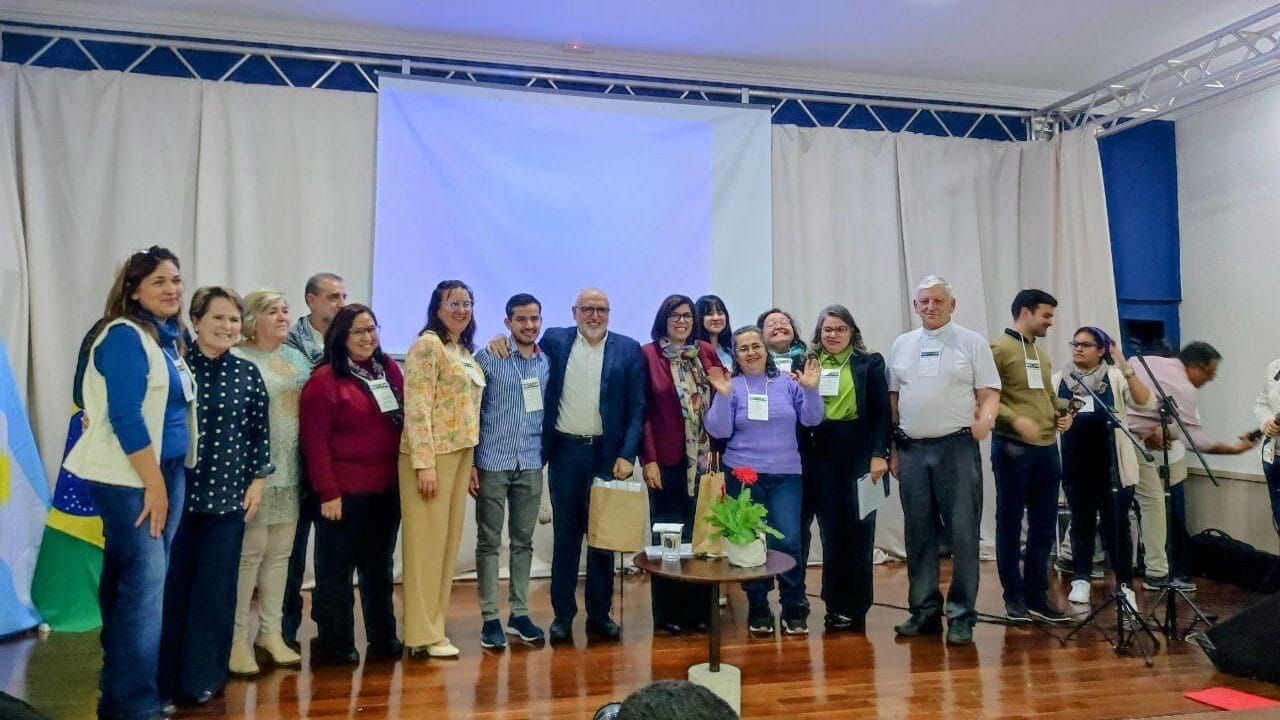
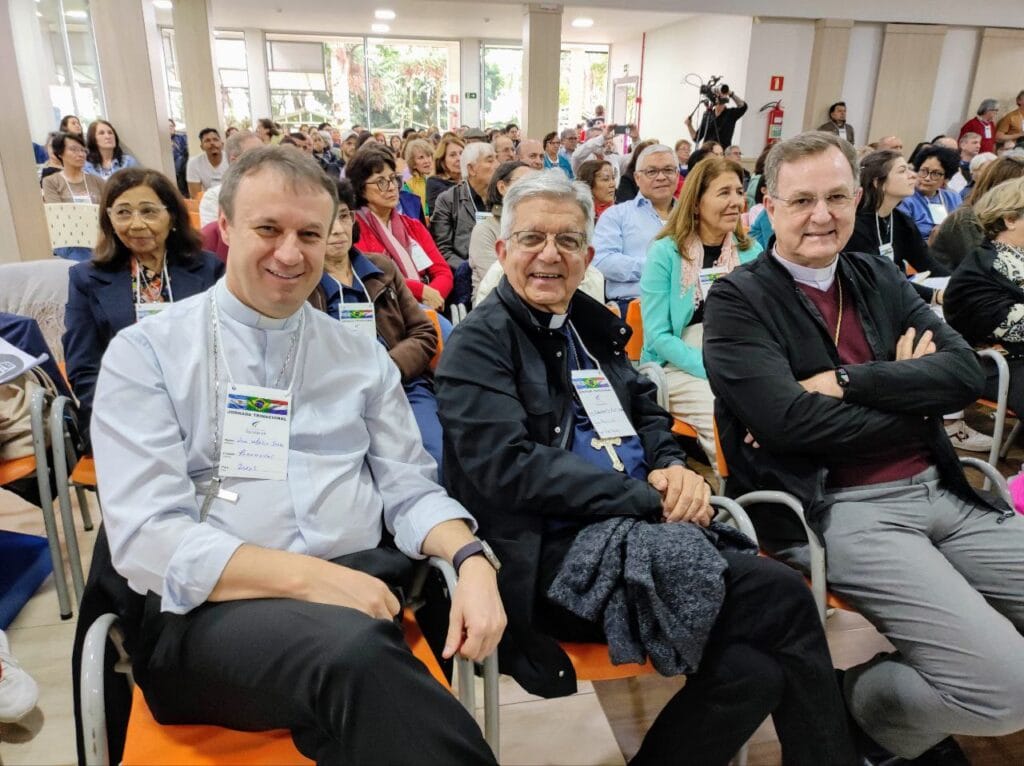
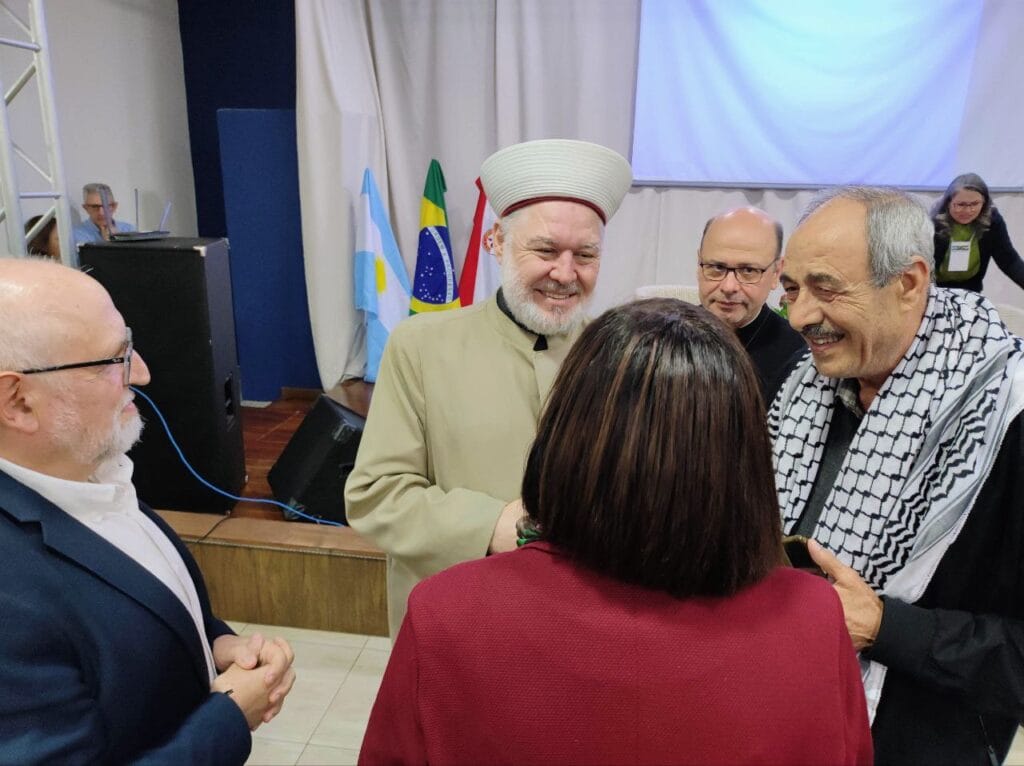
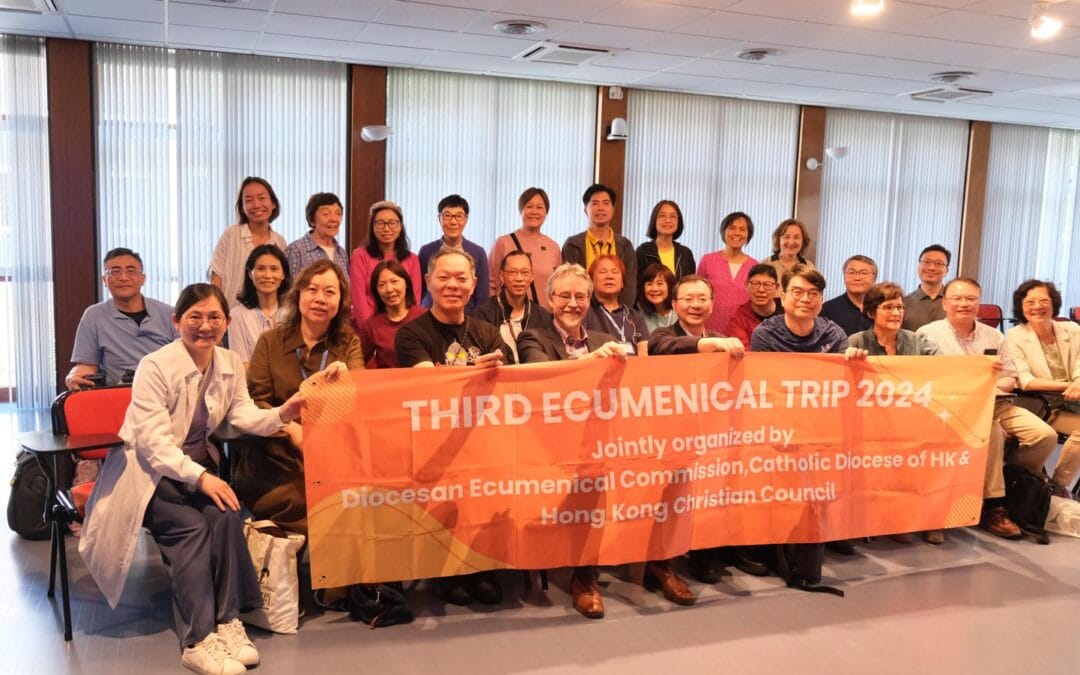
A long journey to celebrate 70 years since the creation of the General Council of Christians in Hong Kong, where just a little over 10% of the 7.5 million inhabitants profess to be Christians.
A delegation of 24 people from different Christian traditions: Catholic, Anglican, Lutheran, Methodist, and Pentecostal, embarked on an ecumenical pilgrimage making stops in Germany, Switzerland, and Italy, visiting cities such as Wittenberg, Augsburg, Ottmaring, Geneva, Trent, and finally Rome to review the past without prejudice and establish a new relationship among all members.“An opportunity to learn more about each other’s Church. There was so much sharing, so much love for each other, and we felt like brothers and sisters in Christ, His one Church!” ”, Theresa Kung affirms.
Welcomed at the Ecumenical Citadel in Ottmaring (Germany), at the Mariapolis “Chiara Lubich” Center in Trent (Italy) and at the International Center of the Focolare Movement in Rocca di Papa (Italy), the group got to know the charism of unity that animates the Focolare Movement and appreciate the work of dialogue between various Churches that has been taking place for years within the Movement, a “dialogue of life” in the sense that, as Rev. Hoi Hung Lin of Tsung Tsin Mission had this to say:“Respect other people’s differences in values, prioritize dialogue and always seek to establish fraternal relationships among people, among ethnic groups and in different cultural situations”.
In Rome, the group was received at the Dicastery for the Promotion of Christian Unity in an exchange meeting on their work worldwide.
As their last event, they were received by Pope Francis in a private audience on May 22, 2024. After greetings and introductions by Cardinal Stephen Chow SJ, Catholic Bishop of Hong Kong, and Rev. Ray Wong, President of the Hong Kong Christian Council, the Holy Father addressed those present, stressing the importance of “working together, because we all believe in Jesus Christ; praying together, praying for unity.” The Pope also recalled the Christian friendship that comes from common Baptism. “We have the same Baptism and that makes us Christians. Enemies, we have many outside. We are friends! Enemies, outside; here, friends.”[1].
”[1].
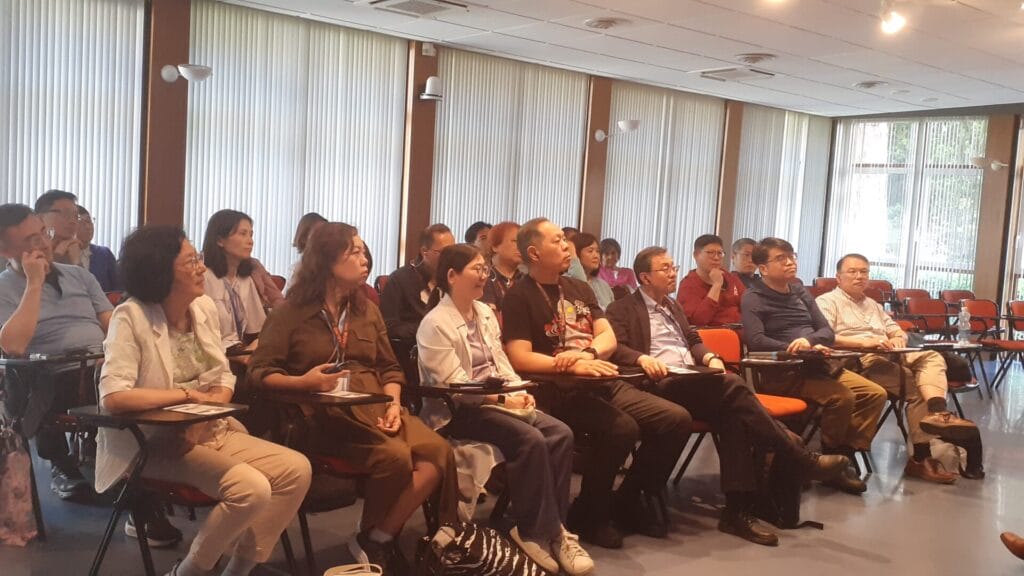
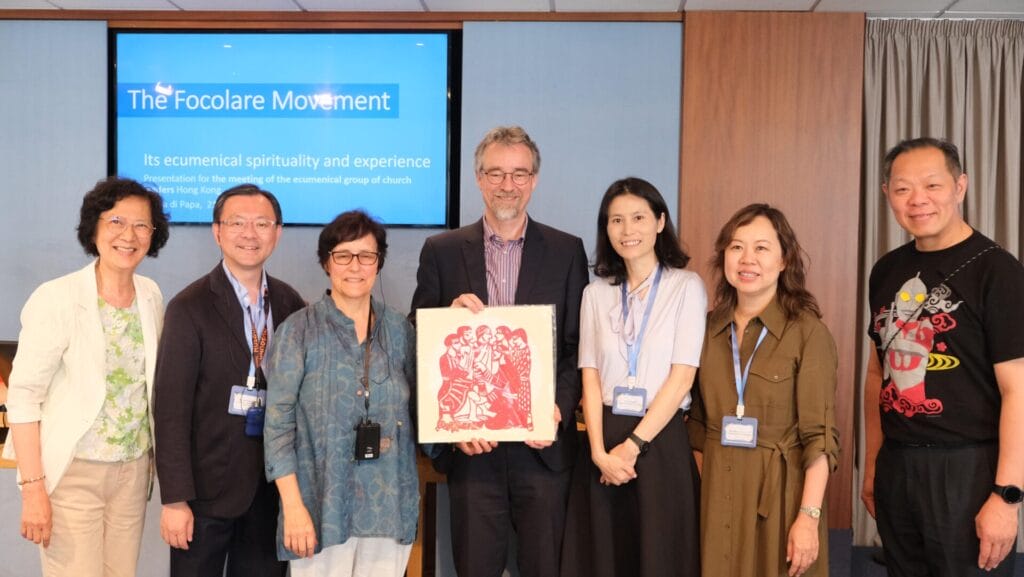
Edited by Carlos Mana
[1] Cfr. http://www.christianunity.va/content/unitacristiani/it/news/2024/2024-05-24-conseil-chretien-de-hong-kong.html
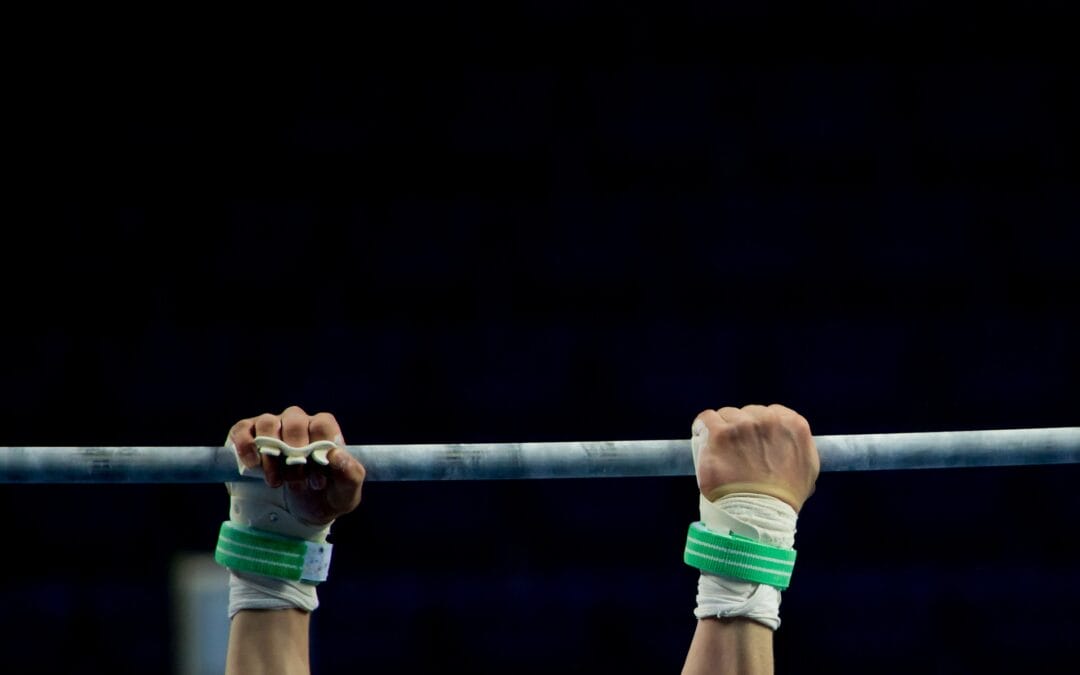
In these past few days, I was watching on television some very young athletes, mostly from Eastern Europe, performing amazing routines of artistic gymnastics. It was really magnificent to see the way they repeatedly performed somersaults and spins and other movements! What perfection! What harmony and grace! They were in perfect command of their bodies, so much so that the most difficult exercises seemed to come naturally. They are the world champions.
Several times, while I was admiring them, I felt an urgent invitation within me (perhaps from the Holy Spirit). It was as if someone were telling me: “You, too, all of you have to become world champions.” Champions in what? Champions in loving God. But do you know how much training these young gymnasts have had to do? Do you know that day after day, for hours and hours, they repeat the same exercises, without ever giving up? You, too, all of you must do the same. When? In the present moment. Always, without ever stopping. And I felt a great desire welling up in my heart to work, moment by moment, so as to become perfect.
Saint Francis de Sales says that no one is so good that through repeated acts of vice they cannot acquire that vice. And so, we may say that no one is so bad that he or she cannot become virtuous through repeated acts of virtue. So, take courage! If we continue to practice, moment by moment, we will become world champions in loving God.
(…)
What is the Word that God has spoken to our Movement? We know it – “unity.” And so, we have to become champions of unity, of unity with God, with his will in each present moment, and of unity with our neighbour, with every neighbour we meet during the day.
So let’s start training, without wasting precious minutes. What awaits us is not the gold medal, but Paradise.
Chiara Lubich
(from Conference Calls, New City, UK 2022 page 69)
Foto: © Ania Klara – Pixabay

Change can be frightening especially when the past has been filled with deep and rewarding experiences. However, change happens at all different stages and areas of life – study, work and in all political, social and organizational realities. We may find it especially difficult if we have had a role of responsibility that we do not want to lose.
We would like certain experiences to continue forever. But this is not reality. Remaining lost in “true and beautiful experiences” does not make us live life now, because life itself is change and that is the dynamic that makes it fascinating even when it is difficult and painful.
This was well explained by Dame Cicely Saunders, founder of the first modern hospice. She was an extraordinary woman who as a nurse, social worker and physician “invented” a new way of caring for people during the most difficult periods of their lives. According to her, real experience depends on depth rather than duration. “The hours of real relationships seem to pass in a moment, while the boring days seem to last forever. But years later, the genuine times remain forever imprinted in our hearts whereas the meaningless days fade into nothing.” (1)
Sometimes, there is a sense of awe and excitement in realising that these “true and genuine” moments – even when they are filled with pain and darkness – can be transformed into opportunities for peace and light. During times of passage in life, deep relationships with others can give us the strength to face the difficulties, trials, sufferings and stress we encounter on the way. They encourage us to start anew without fear and boldly face what lies ahead. They enable us to reach out to others and embrace the pains of humanity around us: they even enable us to bring the light and peace we know to others who do not experience it.
Dietrich Bonhoeffer said, “Time lost is when we have not loved and lived a fully human life.”(2)
What happens when these true experiences finish and seem to disappear? Does this take away the value of the experience at its very roots? Absolutely not! Memory has a great worth of its own and is the very foundation of human progress. Moreover, as philosopher, George Santayana, says, “Those who do not remember the past are condemned to repeat it.”
People before us have given their lives for our freedom and happiness. We need to return to the experiences that lie at the foundation of our personal lives and the groups to which we belong in order to have the strength to always begin again, even in times of doubt, fragility and weariness.
Phot by Sasin Tipchai – Pixabay
——————————–
L’IDEA DEL MESE è attualmente prodotta dal “Centro del Dialogo con persone di convinzioni non religiose” del Movimento dei Focolari. Si tratta di un’iniziativa nata nel 2014 in Uruguay per condividere con gli amici non credenti i valori della Parola di Vita, cioè la frase della Scrittura che i membri del Movimento si impegnano a mettere in atto nella vita quotidiana. Attualmente L’IDEA DEL MESE viene tradotta in 12 lingue e distribuita in più di 25 paesi, con adattamenti del testo alle diverse sensibilità culturali. www. dialogue4unity.focolare.org1
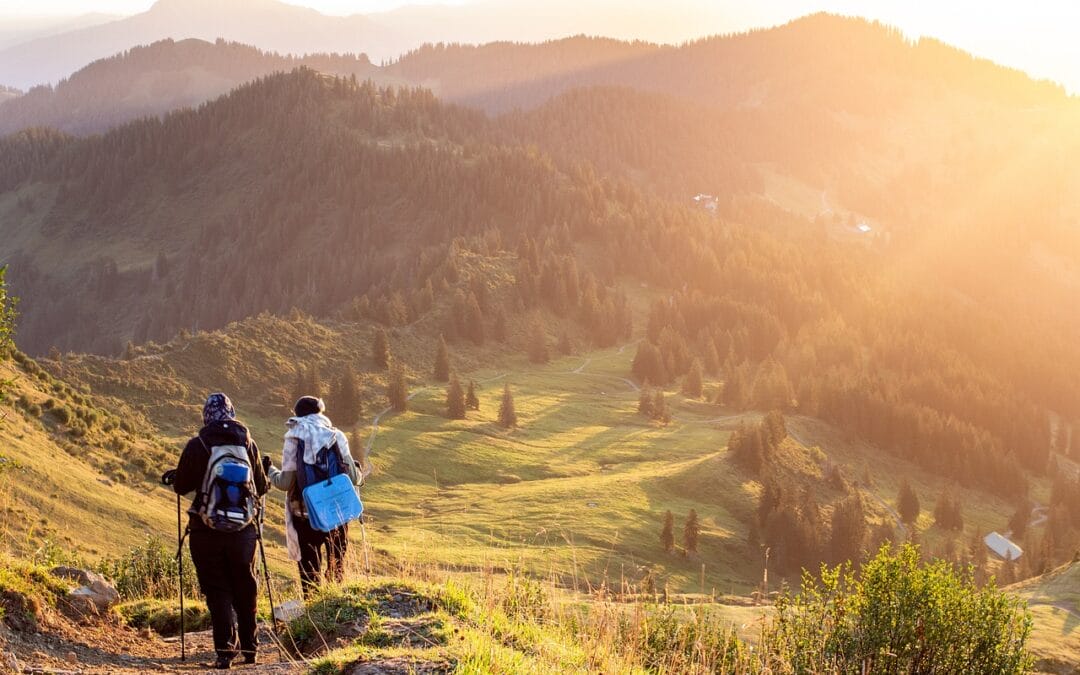
Lord, it is good for us to be here. (Mt 17:4)
Jesus and his disciples are making their way to Jerusalem. When he announces that it is the place where he will suffer, die and rise again, Peter rebels and expresses a general sense of dismay and incomprehension. The Master then takes him and James and John and he climbs ‘a high mountain’ from where he appears to the three bathed in a new and extraordinary light. Jesus’ face ‘shines like the sun’ and Moses and the prophet Elijah converse with him. The voice of the Father is heard coming from a bright cloud and invites them to listen to Jesus, his beloved Son. When Peter witnesses this extraordinary event, he does not want to leave, and exclaims:
«Lord, it is good for us to be here.».
Jesus invited his closest friends to have an unforgettable experience that they would always be able to remember.
Jesus invited his closest friends to have an unforgettable experience that they would always be able to remember.
Perhaps we too have felt wonder and emotion when we were aware of the presence and work of God in our lives. We may have had a sense of joy, peace and light and have wished that such moments would never end. We often have such experiences when we are with other people or thanks to what they do. Indeed, mutual love attracts God’s presence because, as Jesus promised: ‘Where two or three are gathered in my name, there am I in the midst of them’ (Mt 18:20). Sometimes, during these moments of intimacy with him, God makes us see ourselves and understand events as he does. It is as if we see through his eyes.
Such experiences are given to us so we will have the strength to make the effort and face the difficulties and challenges we encounter on our journey through life. They help us be sure that God has looked upon us and called us to be part of salvation history.
In fact, once the disciples have come down from the mountain, they will go together to Jerusalem where crowds of people full of hope await them but they will also meet with pitfalls, opposition, aversion and suffering. There ‘they will be scattered and sent to the ends of the earth to be witnesses that our final dwelling is the Kingdom of God.’(i)
They will be able to start building God’s house among men and women on earth because they have been ‘at home’ with Jesus on the mountain.
«Lord, it is good for us to be here.».
At the end of this mysterious experience, Jesus speaks to the apostles with the words, ‘Arise and do not be afraid’ (Mt. 17:7). He addresses the same words to us. May we face whatever awaits us with the same courage as the disciples had.
This was what Chiara Lubich did. After a holiday period so full light that it was described as ‘the paradise of 1949’ because of extraordinary contemplation of the mysteries of faith and deep awareness of God’s presence in the small community with whom she was resting, she too did not want to return to everyday life. However, she did so with a new impetus because she realised that it was precisely because of that experience of enlightenment that she had to ‘come down from the mountain’ and set to work as an instrument of Jesus in the building of his Kingdom. This meant injecting his love and light into the very situations where it was lacking and even facing hardship and suffering.
«Lord, it is good for us to be here.».
When it seems that darkness is falling around us, let us remember the times when the Lord has enlightened us. If we have already not experienced his nearness to us, let us seek it now. Let us make the effort to ‘go up the mountain’ to meet him in our neighbourhoods, to worship him in our churches, and also to contemplate him in the beauty of nature.
Perché per noi, Lui c’è sempre: basta che camminiamo con Lui e, facendo silenzio, ci mettiamo umilmente in ascolto, come Pietro, Giovanni e Giacomo (2).
Edited by Silvano Malini and the Word of Life team
1 T. Radcliffe, OP, seconda meditazione ai partecipanti all’assemblea generale del Sinodo dei Vescovi, Sacrofano, 1° ottobre 2023: https://www.vaticannews.va/it/vaticano/news/2023-10/testi-meditazioni-padre-radclifferitiro-sacrofano-sinodo.html.
2 Cf. Mt 17, 6.
Foto: © Steven Weirather – Pixabay
—Download the Word of life Children—
THE IDEA OF THE MONTH is currently produced by the Focolare Movement’s “Centre for Dialogue with People of Non-religious Beliefs”. It is an initiative that began in 2014 in Uruguay to share the values found in the Word of Lifeis a phrase from Scripture that members of the Movement strive to put into practice in their daily lives. Currently, THE IDEA OF THE MONTH is translated into 12 languages and distributed in more than 25 countries, with adaptations of the text according to different cultural sensitivities.
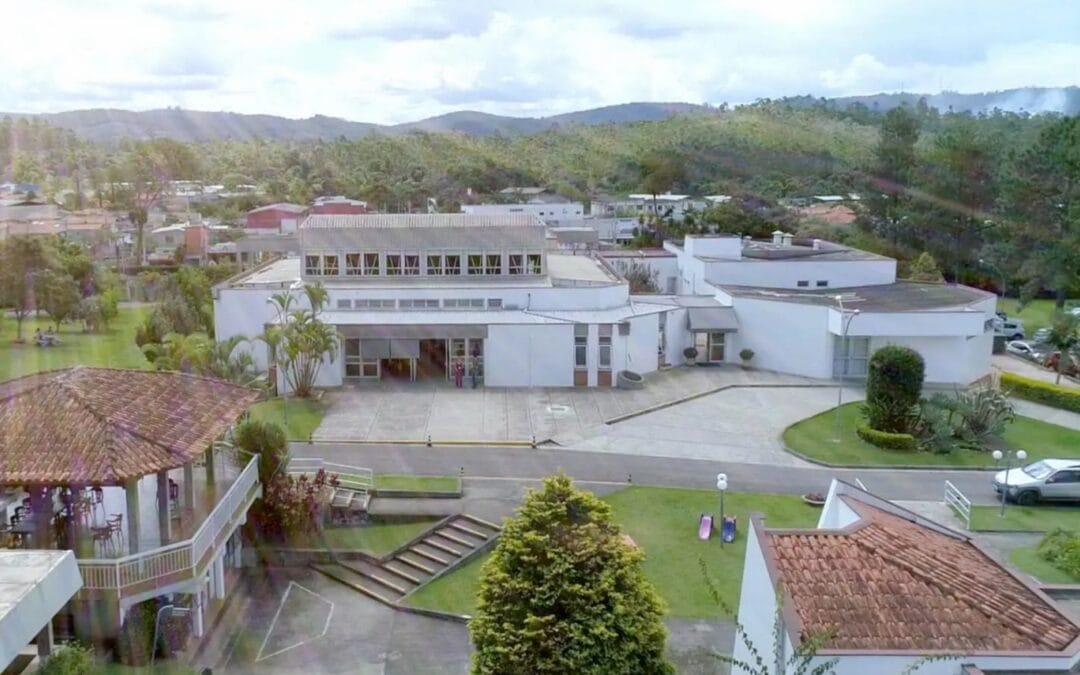
“The charism of unity is one of these graces for our time, which experiences an epoch change and invokes a simple and radical spiritual and pastoral reform, to restore the Church to the ever-new and current wellspring of Jesus’ Gospel.” [1]
[1]29th January 2020, Message of the Holy Father Francis for the opening of the international conference “A charism at the service of the Church and humanity” on the occasion of the centenary of the birth of the servant of God Chiara Lubich
This sentence of Pope Francis appears on the web site of the “Mariapolis Ginetta“, the most developed of the three little towns of the Focolare in Brazil. It highlights the recent years’ focus: a journey towards organizational change to better witness to everyday fraternity and to meet the needs and questions of visitors and the surrounding environment.
This has taken shape through the initiation of an updating process and a more participatory and less centralized management of the different realities within it. Today, each part has its own council or management committee, composed of Mariapolis residents and professionals, working in synergy with the town council. “Co-responsibility” is a key word at Mariapolis Ginetta, alongside a forward-looking approach and the ongoing quest to update the town’s mission: “to welcome, educate, testify, and radiate.”
In 2022 Mariapolis Ginetta celebrated its 50th anniversary, having grown from the first group of Focolarine who came to a small house without electricity or gas, today it has a total of 454 inhabitants living on its grounds and nearby.
Over the years, tens of thousands of people have visited including families, priests, religious and occasional visitors. Many young people have spent time there learning to live fraternity in everyday life or to discern their way to follow God in the Focolare Movement.
The Mariapolis Ginetta is part of the municipality of Vargem Grande Paulista that is just an hour from the bustling megalopolis of São Paulo and the change of scene when you arrive is dramatic: greenery, houses, no skyscrapers, parks and playgrounds for children; the atmosphere of a small town, compared to a metropolis is the added value of this place. In recent years, fourteen families have moved from different cities to raise their children. A very young couple with three children say, “We moved from Sao Paulo 6 years ago to this place where people treat one another with love, where there is room to live a balanced, and person centred lifestyle”. This, together with a school for young people that started eight years ago, is signs of a renewed social vitality of the little town.
Co-responsibility and participatory management
Iris Perguer and Ronaldo Marques, co-managers of Mariapolis Ginetta explain, “Today in the little town there are many of the elements of urban coexistence, there are houses, a town centre represented by the Mariapolis Centre and the church dedicated to “Jesus Eucharist”, the publishing house “Editrice Cidade Nova”, an audio-visual centre, medical clinics, various workshops, the well-known bakery and cafeteria “Espiga Dourada”, social projects at the service of the most disadvantaged population, the “Polo Spartaco”, a commercial and manufacturing area where companies operate according to the principles of the Economy of Communion, the Brazilian section of the “Sophia ALC “University Institute (Latin America and the Caribbean)”.
Margaret Karram commented, “This new mode of participatory management that you are implementing is an extraordinary opportunity to open the little town to others who want to help build it, to learn about and to have an experience of unity. I must say that after attending the Genfest a great hope was born in my heart; I had the strong impression that in these days God has knocked again on the door of Brazil, asking for a response to and support for what began for the young people there. This little town, together with Mariapolis Gloria and Mariapolis Santa Maria, now has a new opportunity and responsibility to understand how to respond; to offer a witness of evangelical life lived in a social community.” ”.
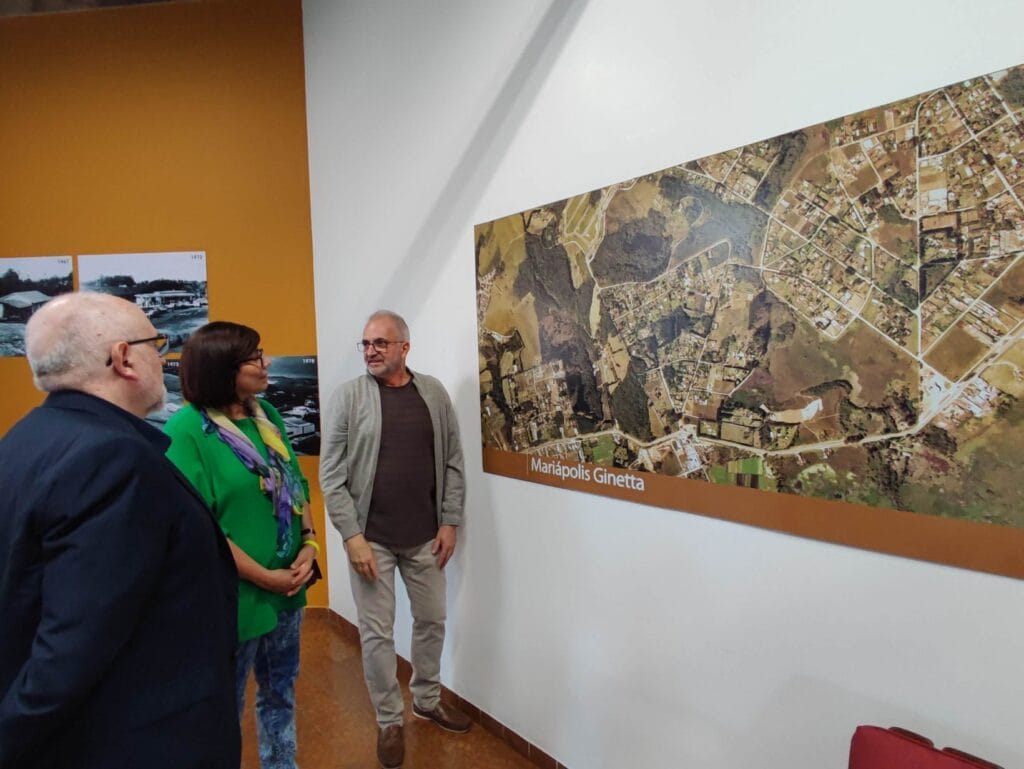
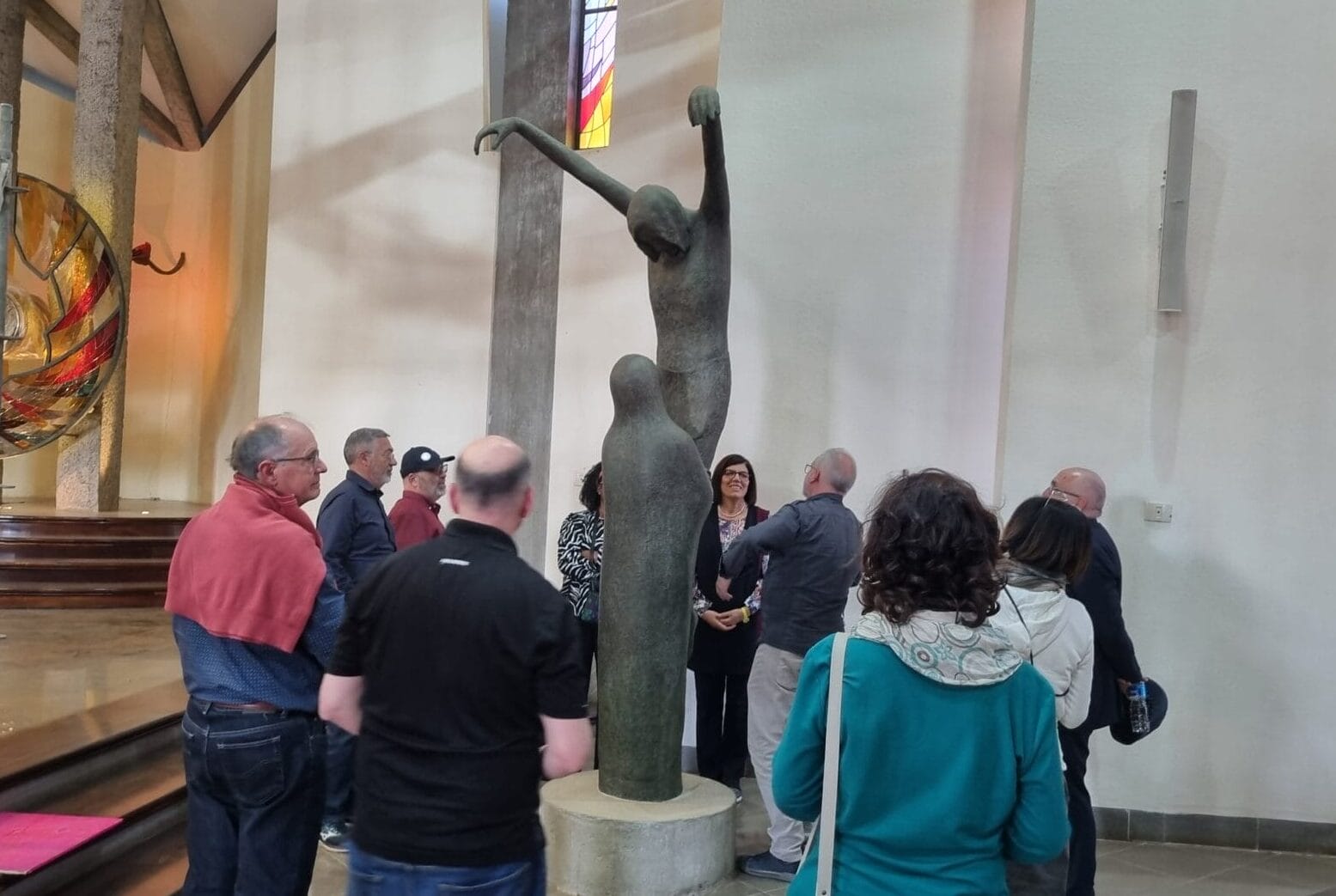
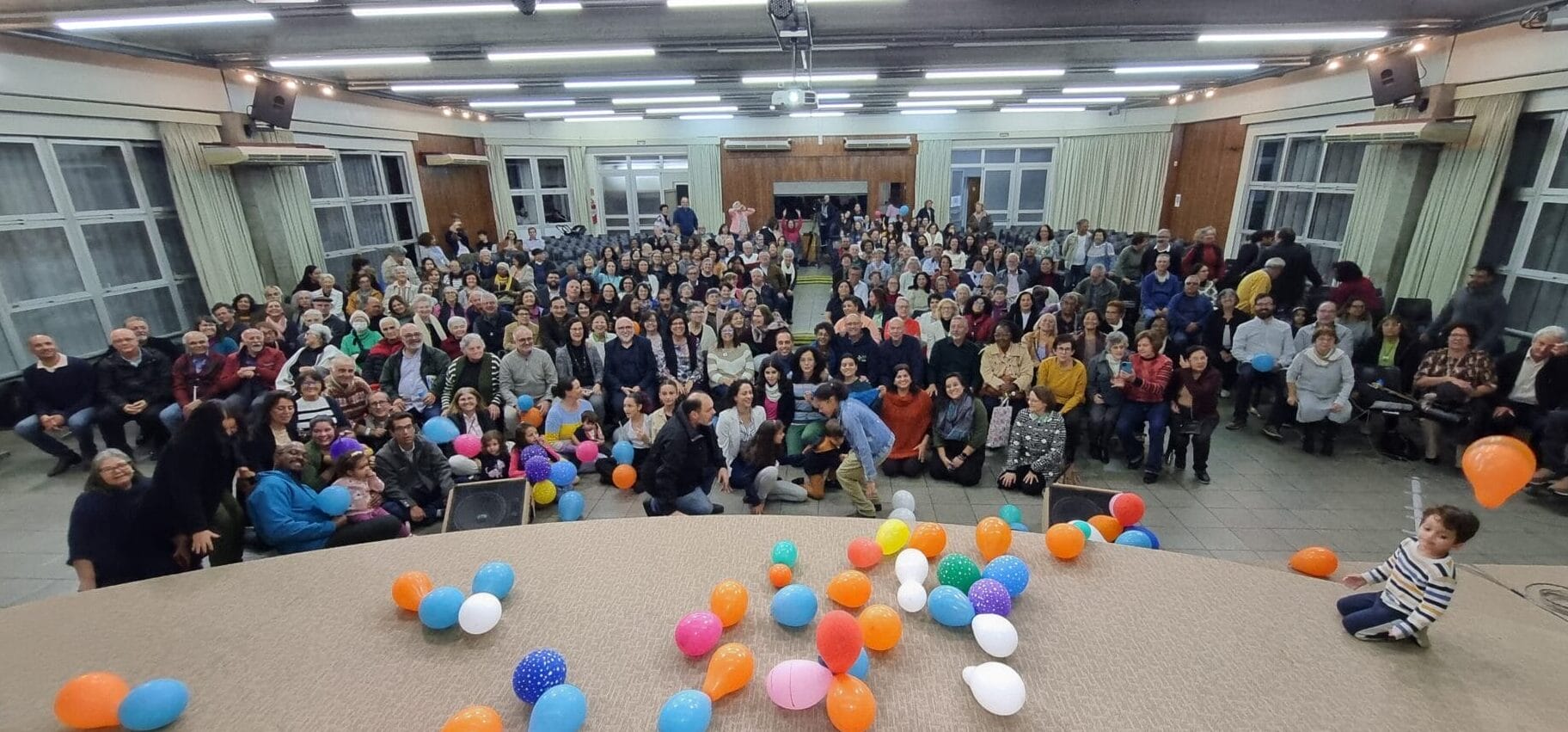
The second generation of the “Polo Spartaco” Business Park
Mariza Preto told us that the Entrepreneurial Hub has also embarked on a courageous path of development and openness.
““In 2016, a debt accumulated over the years due to unpaid bills, clearly indicated that the economic sustainability of the Park was at risk. The entrepreneurs lacked motivation and were worried because there didn’t seem to be anyone interested in starting a new business. These have been difficult years, in which many things have been attempted, including building relationships with local entrepreneurs that has led to the common events and moments of dialogue and encounter. But the turning point came in 2019 when, during an exhibition we organised at the Park, most of the exhibitors were external to our reality. In that period “Espri”, our management company, had many vacant warehouses and a growing financial fragility. It was then that the Council decided to admit companies and entrepreneurs who were not involved in the Economy of Communion but who wanted to act according to its principles. Thus, a “rebirth” took place: every company that wishes to come today undergoes a process of induction about the business life that we live here and adheres to the lines of management of an Economy of Communion company “. ”.
Thirty years after its foundation, Polo Spartaco now consists of 9 buildings housing 10 companies with a total of 90 employees.
Jésus Morán said, “The economy of communion is alive here. In addition to the charismatic aspect, you can see that of manufacturing and a generational turnover of entrepreneurs is underway. All this tells us that we have entered a new phase in which the prophecy of Chiara Lubich is alive. We thank all the pioneers, those who started and believed in it and allowed us to reach this point”. ”.
SMFocolari
It is through the SMF, “Sociedade Movimento dos Focolari” that the little town engages in various social works in the area. SMF promotes community building, access to rights and protection guarantees, especially for children, youth and women in situations of social vulnerability. The three Social Assistance Projects, in which the inhabitants of Mariapolis Ginetta are involved, operate in the field of prevention for young people in vulnerable conditions, providing support networks for their families and welcoming homeless people. This is a drop in the ocean of the need for dignity, work and justice of many people and as Sérgio Previdi, vice president of SMF explained “It is just one piece of the cultural project based on fraternity that we want to develop in our area and in our town”.
Stefania Tanesini
[1]29th January 2020, Message of the Holy Father Francis for the opening of the international conference “A charism at the service of the Church and humanity” on the occasion of the centenary of the birth of the servant of God Chiara Lubich
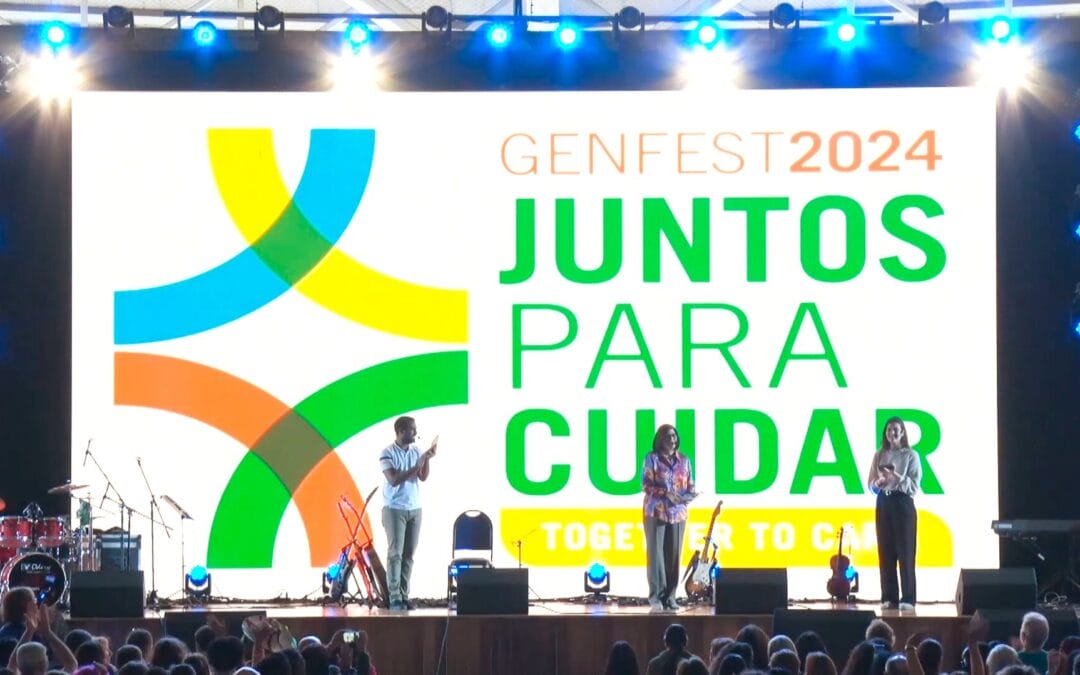
Video in Italian. Activate subtitles for other languages
The whole Genfest experience – from ‘Phase 1’ to ‘Phase 3’ – is a tangible witness that you young people believe in, and indeed you are already working, to build a united world.
These were days of extraordinary graces for all of us; we put ”care” into practice in various ways:
– in Phase 1, through service to the poor, the marginalised, those who suffer most, and we have done this by living reciprocity, the typical way of living communion of the charism of the Focolare Movement;
– in Phase 2, in sharing life, experiences and cultural riches;
– and then, in Phase 3, we have experienced the extraordinary generativity of communities, which are also an intergenerational space for formation and projects.
Someone told me about the creativity that each community has developed and the interesting workshops in which you have participated (which you just told me about).
“From Genfest I take my community home with me,” one of you said, “it is something practical that continues. A chance to live the Genfest experience on a daily basis’.
You felt that you were protagonists in the construction of these communities, and you want to continue to “generate” ideas and projects. It has given me joy to know that some of you have said that you have rediscovered the meaning of your profession, and that you now want to live it in the name of a united world.
We have walked together during these days, with a style that Pope Francis would call ‘synodal’ and not only among you, young people, but with adults; with people from other movements and communities; with people from different Churches and Religions and people who do not identify with a religious belief. This network greatly enriched the Genfest!
The presence of some bishops who experienced Genfest together with us was also very beautiful.
Now Genfest does not end! But it continues in the United World Communities where we will remain connected both globally and locally
I am sure that when you arrive in your countries and cities, you will understand where you would like to get involved, according to your interests and your studies or your professions: in economics, intercultural dialogue, peace, health, in politics etc.
In these days you have had the experience of living these “communities” in “unity”; a reality that will continue. This will be your training ground in which you will learn and you will train to live fraternity.
When I was your age, I was very struck by an invitation Chiara Lubich made to everyone:
“If we are one, many will be one and the world will one day be able to see unity. And so? Establish cells of unity everywhere” (1) – perhaps Chiara, if she were alive today, would call these cells of unity, “United world communities” – she invited us to concentrate all our efforts in this.
That is why now, I would like to ask you something important: please, please do not miss this unique opportunity, it’s a unique opportunity that we have lived here. God has knocked on the door of the heart of each one of us, and is now calling you all to be protagonists and bearers of unity in the various spheres in which you are engaged.
Yesterday as I was leaving, someone stopped me, one of you who was here in the hall, and said I have to tell you something, please can I tell you something important. She said it was the first time she had participated in a Genfest and she didn’t know the Focolare Movement, and she said: “I want to tell you, you should do much more because this movement isn’t well known, you should do more but not as you have been doing up to now, you need to do more because this Movement, this idea of fraternity, needs to be known by many more young people.” So I asked her if she could help us and she wants to commit herself. But now I hope that all of us are committing ourselves to doing this.
Of course, as you heard before, it will not all be easy and we cannot deceive ourselves that difficulties will not come… but in this Genfest you yourselves have announced: ‘a God who is different, abandoned on the cross, you have said abandoned on the cross, all divine and all human, asking questions without answers’ and for this, a God who is close to all of us. It will be by embracing every suffering, our own or that of others, that we will find the strength to continue on this path.
So let us go forward together with a new hope, convinced more than ever that a path has now been mapped out.
And, something beautiful that the Chinese writer, Yutang Lin, says: “Hope is like a road through a field; there has never been a road, but when many people walk there, the road comes into existence”.
I think that in this Genfest, this road has begun to exist, So, let’s walk, and this road will be there in front of us.
So I greet everyone, have a wonderful time to those of you who will be attending the post-Genfest and safe travels to those returning home!
Ciao to everyone.
Margaret Karram
(1) Chiara Lubich, Conversazioni in collegamento telefonico, Città Nuova, 2019, p. 64.
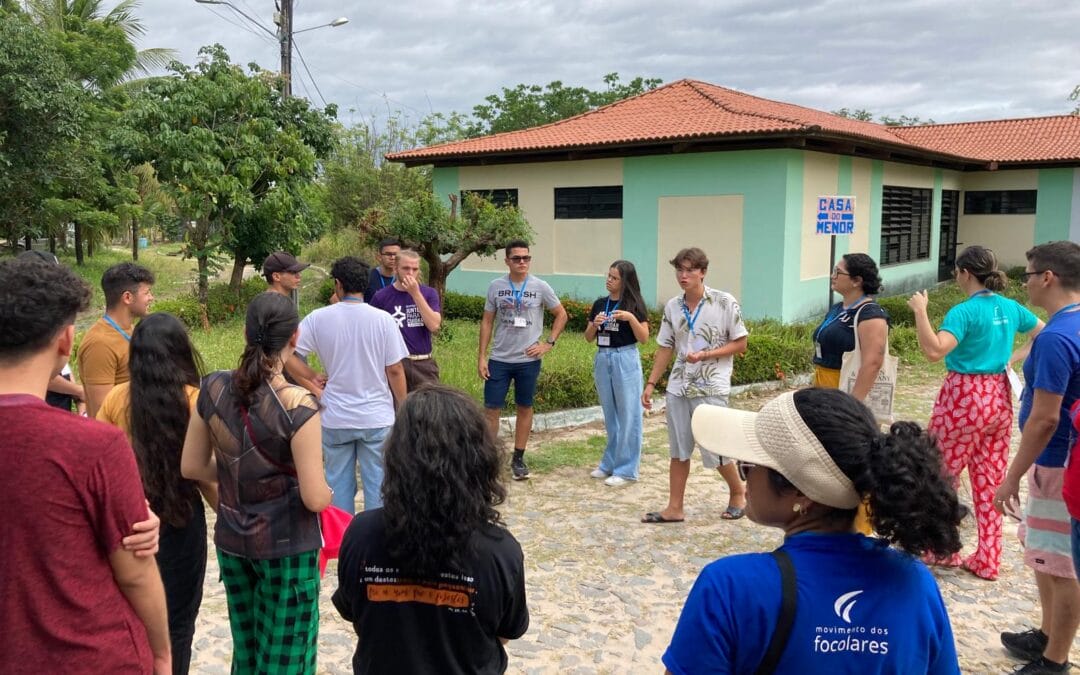
Twenty-three organisations – Catholic communities and institutes – spread out across Across 112 hectares of land, have chosen to live an experience of communion between charisms. This experience in Fortaleza (Brazil) has been known for 24 years as Condominio Espiritual Uirapuru (Spiritual Condominium Uirapuru) or CEU, an acronym which means ‘heaven’ in Portuguese.
Margaret Karram and Jesús Morán, President and Co-President of the Focolare Movement, stopped off at Fortaleza during their trip to Brazil to meet the Focolare communities. There they were able to take part in various meetings with different charismatic realities in the Church. At the CEU they met leaders of other communities, including Nelson Giovanelli and Brother Hans from the Fazenda da Esperança, Moysés Azevedo from the Shalom Community and Daniela Martucci from Nuovi Orizzonti.
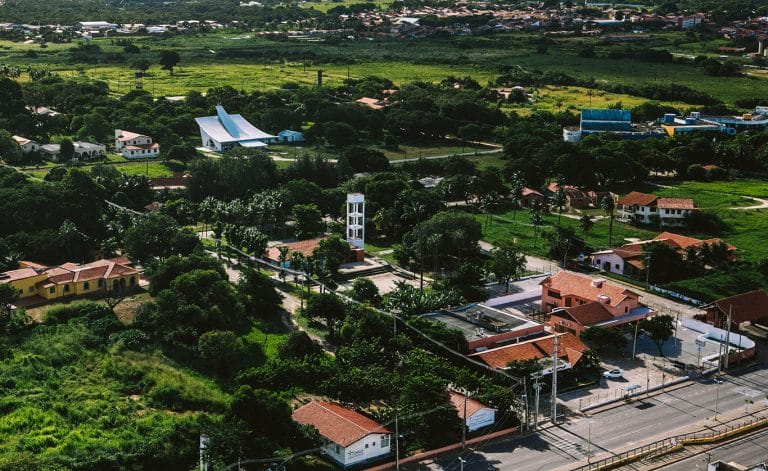
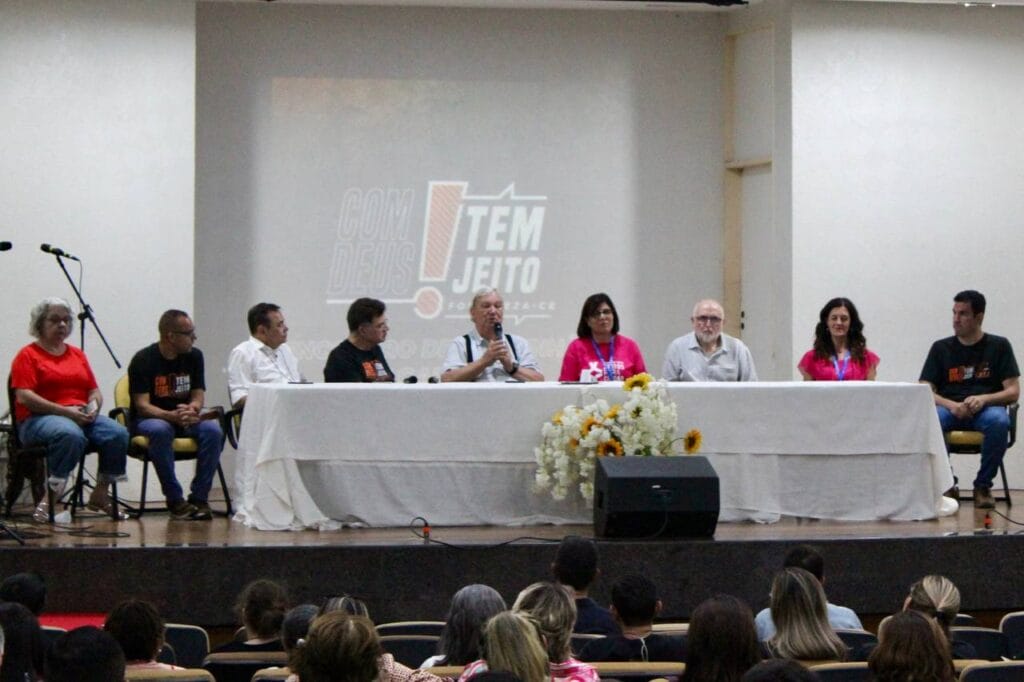
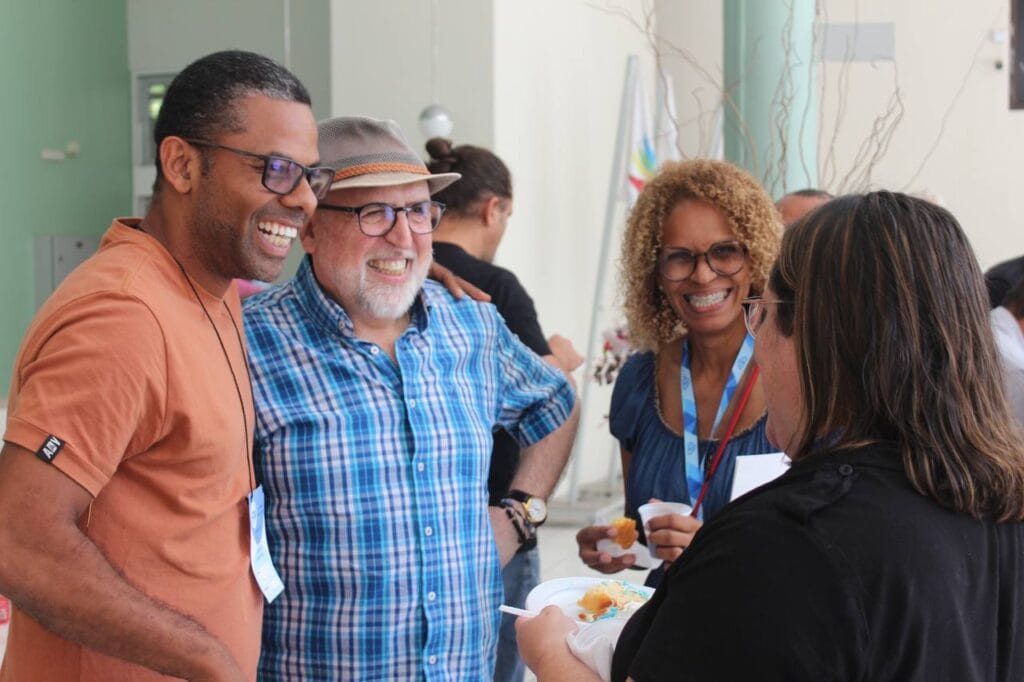
Through the organisations that form the CEU, it carries out various activities to support and protect the individual, from vulnerable children who have suffered abuse and sexual exploitation to young people and adults living on the streets or suffering from addictions. The union of the charisms present is an expression of the love that makes it possible to develop activities to restore and enhance human dignity, particularly for those who are most in need.
‘The CEU is the realisation of a dream that Chiara Lubich promised Pope John Paul II in 1998, to work for the unity of Movements and the new communities,’ said Nelson Giovanelli, founder of the Fazenda da Esperança and newly elected president of the condominium. The charism of unity, spread by Chiara Lubich, is the inspiration for fulfilling the mission for the different communities present. Jesús Morán added: ‘If there is one place where an experience of the Church can be understood, it is here at the CEU. This is the Church – many charisms, both large and small, all walking together to make the Kingdom of God a reality”.
There are 230 people who live in the CEU, including children and adolescents, young people and adults in recovery, and over 500 volunteers. Last weekend, the Obra Lumen community organised a meeting entitled ‘Com Deus Tem Jeito’ (With God there is a way), which has taken 250 drug addicts off the streets and sent them for therapeutic treatment in various partner communities, such as the Fazenda da Esperança. The area also provides a stage for cultural activities aimed at social reintegration through art, such as the Halleluya Festival of the Shalom Community, which brings together more than 400,000 people each year.
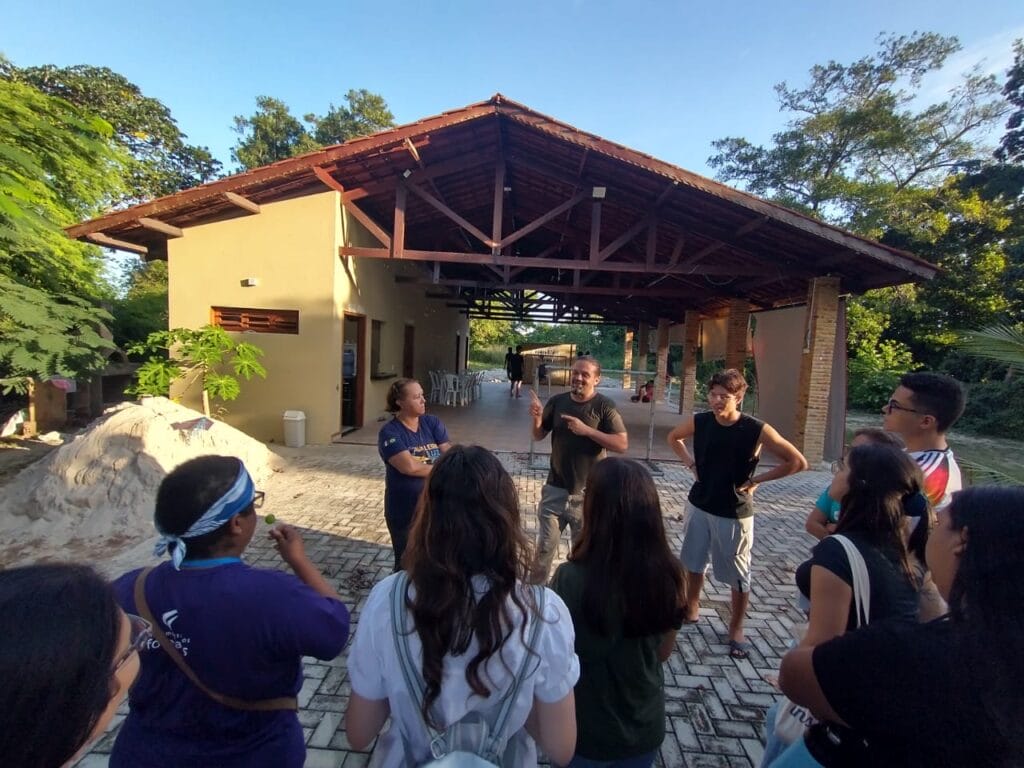
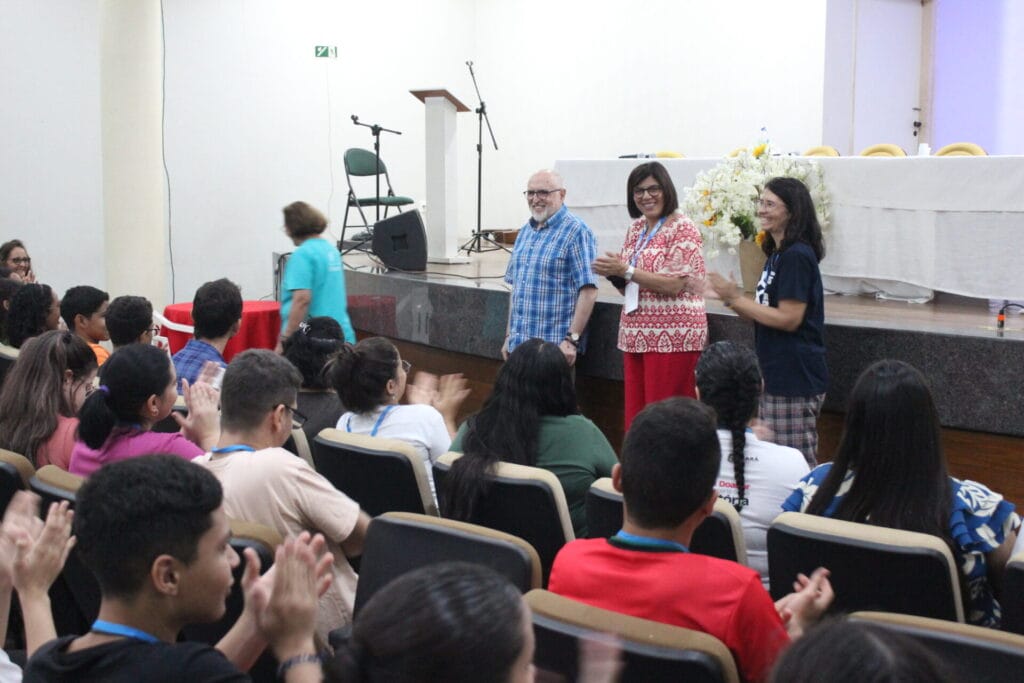
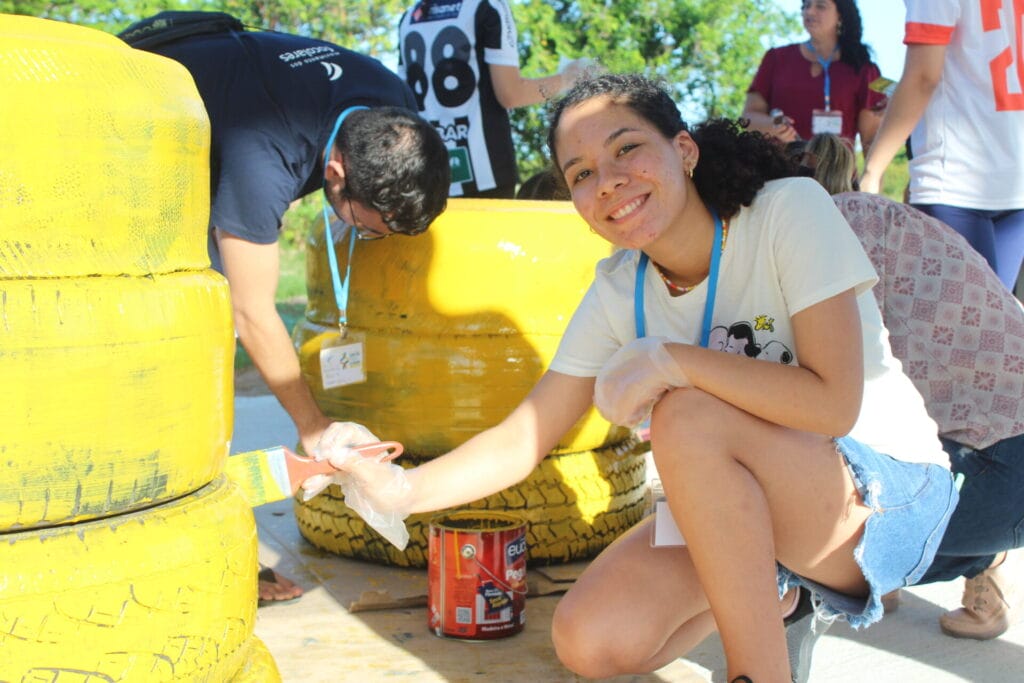
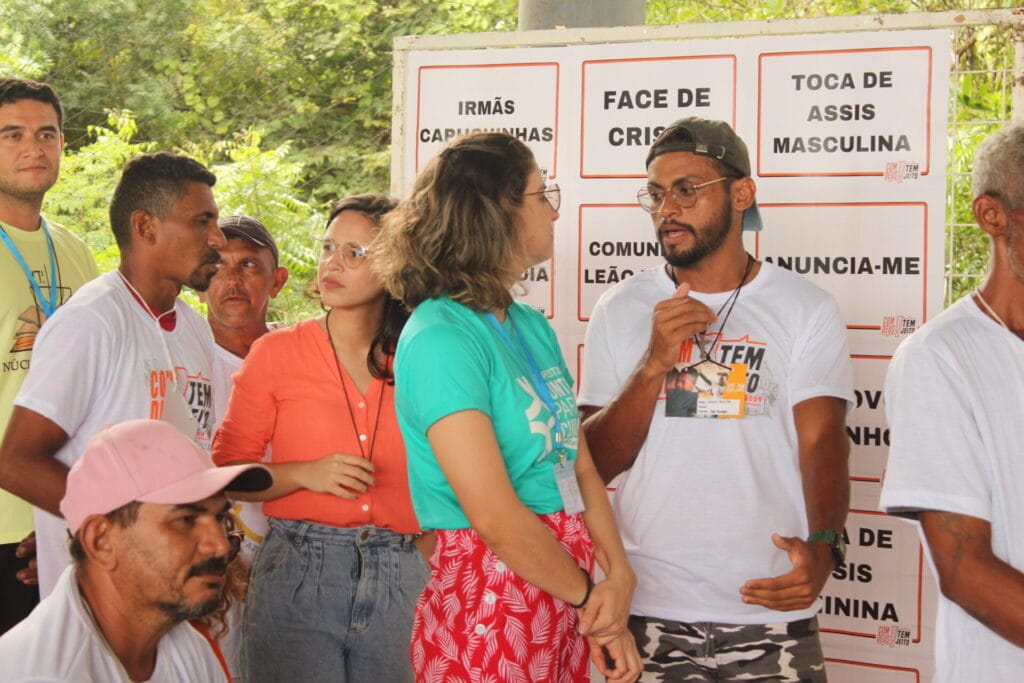
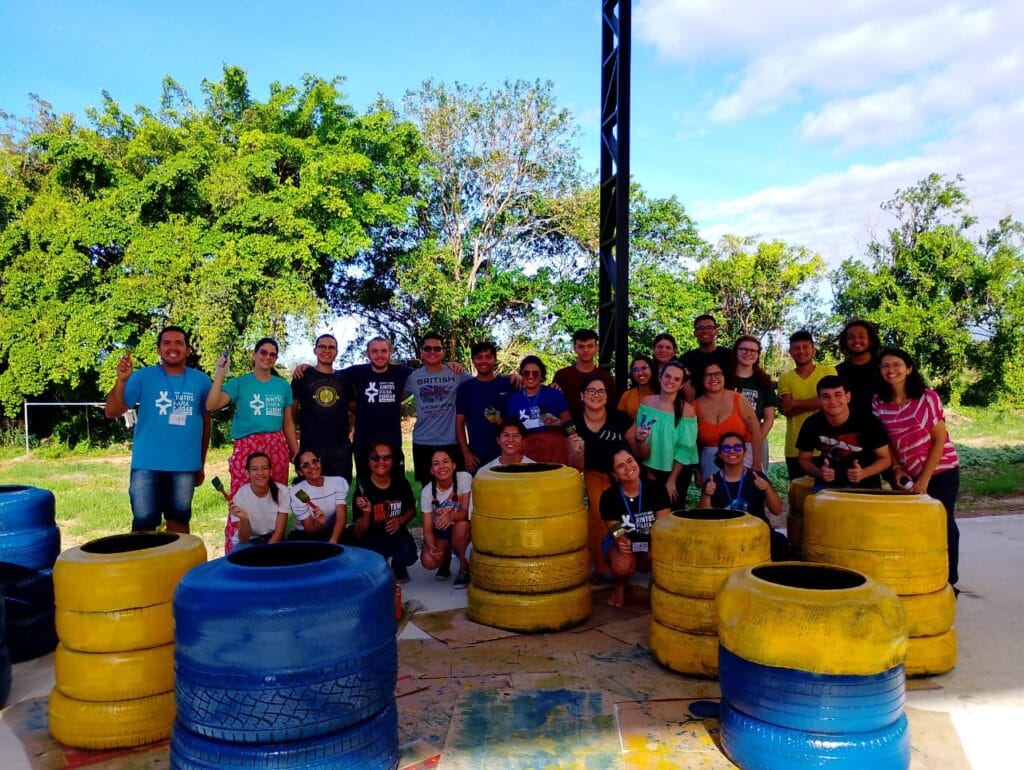
The Genfest, an event organised by the young people of the Focolare Movement, is also currently taking place in Brazil. ‘Together to Care’ is the motto for the Genfest which comprises an international event in Brazil and over 40 local Genfests in various countries around the world. Each one will begin with an initial phase in which the young people will be able to have an experience of volunteering in and solidarity with various social initiatives, including the CEU. Between 12 and 18 July, a group of 60 young people participating in the GenFest were able to get to know the different communities and get involved with different activities. ‘All these communities are already involved with caring for marginalised and vulnerable people. Our proposal was to join them, as a bond of unity. The more we gave of ourselves, the more we were open to others, the more we discovered our essence, who we were,’ said Pedro Ícaro, a GenFest participant who stayed at the CEU for four months with young people from different countries.
‘When this communion of charisms inflames the hearts of our young people, they will be able to transform the world. This is the aim of the events we organise at the CEU, like GenFest,’ said Moysés Azevedo, founder of the Shalom Community.
Ana Clara Giovani
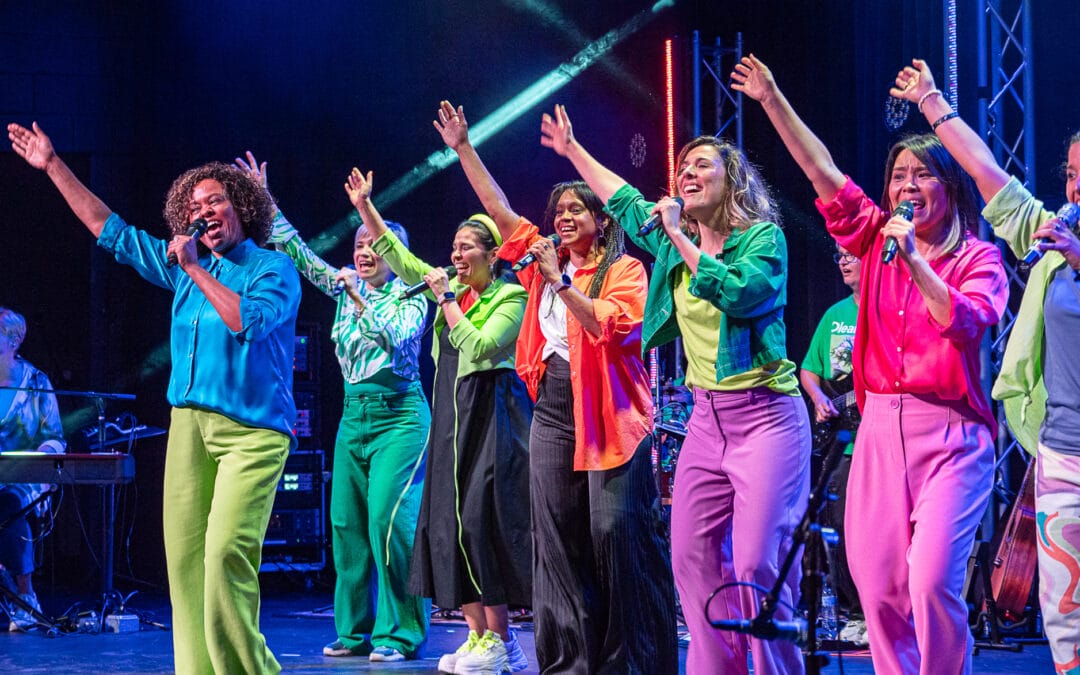
‘Start Here and Now’ is the latest single from international band Gen Verde. A hymn of unity, strength, courage and joy featuring two youth music groups: Banda Unità (Brazil) and AsOne (Italy). ‘All of us, together with our diversity, are invited to go beyond borders to build a world where care, love, justice and inclusion are the answer to pain, the horror of wars and divisions,’ explains the band.
What is behind the song?
‘The new song is in itself a ‘beyond borders’ experience because of the way it was produced,’ the band continues. The vocals were recorded in three different parts of the world and the video was also shot in three different locations: Loppiano and Verona (Italy) and Recife (Brazil).
The project includes the participation of two youth music groups that share Gen Verde values. Banda Unità is a Brazilian band and AsOne is a band from Verona, Italy. These groups also want to share, through music, the values of peace, dialogue and universal brotherhood.
‘Start Here and Now’ has an intergenerational and intercultural mix,’ continues Gen Verde. “This single stands out for its highly engaging rhythm and powerful lyrics, sung in different languages, to bring out the creative process inspired by interculturality and the commitment to universal brotherhood that is emphasised in the international Genfest event”.
Gen Verde played this song for the first time in Aparecida, Brazil, together with the musical groups Banda Unità and AsOne on 20 July 2024 during Genfest, the Focolare Movement’s global youth event. This edition was entitled: ‘Juntos para Cuidar – Together to Care’.
Lorenzo Russo
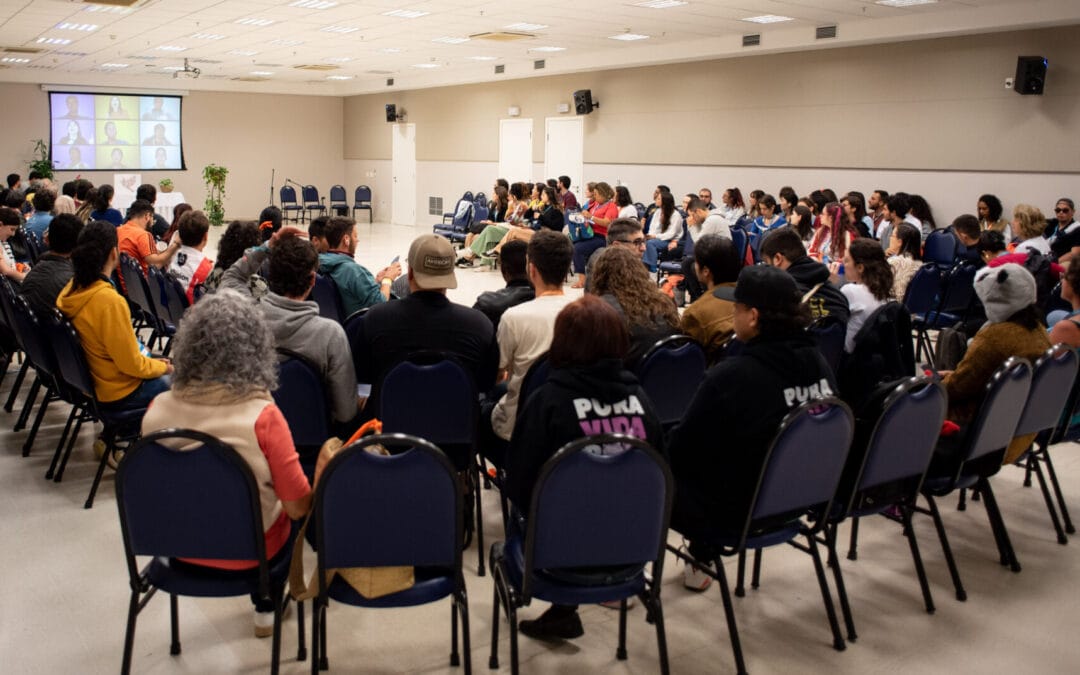
The third phase of Genfest 2024, held in Aparecida, Brazil, included workshops organized by so-called United World Communities – meeting places where young people can share their talents and passions. These communities offer the opportunity to discover talented people, concrete forms of commitment and initiate actions and projects aimed at building a more united world, which seek to respond to the local and global challenges of today’s world; to activate processes of personal and collective change; and to grow fraternity and reciprocity in all dimensions of human life. An important feature of these communitites is that they are the fruits of work between people of different generations.
Continuing the experiences of the previous phases of Genfest, in this third phase the youth were able to participate in workshops in different areas, whose methodology was based on fraternity and dialogue, as a proof for projects and actions that can now be developed in the “glocal” sphere (local projects with a global perspective). Activities were held in the areas of economics and work, cross-culture and dialogue, spirituality and human rights, health and ecology, art and social engagement, education and research, communication and media, and active citizenship and politics. The teams responsible for running the workshops were composed of young people and professionals who worked intensively for months to organize these activities.
From now on, Communities will have a working method that consists of three steps: Learning, Acting, and Sharing. The first (to Learn) is an in-depth exploration and analysis of the most current themes and issues in each community, with the goal of identifying problems and presenting solutions. The next phase (Take Action) is the implementation of actions with primarily local impact, but with a global perspective. Finally, in the third phase (Sharing), it is proposed that the community promote spaces for ongoing exchange and dialogue between initiatives, with the aim of strengthening the global collaboration network. An application-the United World Communities WebApp, -has been created as a tool for sharing ideas, experiences and news, as well as promoting collaborative projects.
“God has visited everyone’s heart.”
Al termine della terza fase del Genfest, le Communities hanno presentato in modo creativo le loro impressioni e alcuni dei risultati delle attività svolte nei giorni precedenti. Da questo lavoro è nato il documento “The United World Community: One Family, One Common Home”, che sarà il contributo dei partecipanti del Genfest 2024 al “Summit of the Future” delle Nazioni Unite del prossimo settembre. Secondo i giovani che hanno presentato il testo, esso non è un documento conclusivo, ma vuole essere un “programma di vita e di lavoro” per le varie United World Communities, oltre che una testimonianza da presentare al “Summit of the Future”.
“With our communities we don’t want to make demands, formulate slogans or complain about political leaders,” the young people said. “Instead, we seek to name our common dreams, dreams of a united world. Personal and communal dreams, which will guide us in our activities in the coming years.” They concluded, “We hope that by living them, ‘together’ and step by step, they will become signs of hope for others.”
Margaret Karram and Jesús Morán, President and Co-President of the Focolare Movement, also spoke at the conclusion of Genfest 2024. Jesús Morán said that although the experience of care has been the most lived experience in human history, it is not the one that has been reflected on the most.
This has begun to change, as was demonstrated at the Genfest, in which care emerged as a response to the need for human dignity. In this sense, he concluded, it is important that young people remain connected to this global network of generative communities.
Margaret Karram, for her part, said she has seen throughout the Genfest experience that young people have given tangible witness to their faith and are already in action to build a united world. Regarding Phase 3 in particular, she emphasized the richness of this experience because of its creativity, intergenerational and intercultural imprint, and the fact that, through the communities, there is a concrete possibility of living the same Genfest experience in one’s daily life. She concluded by calling on the young people to be the protagonists of these communities, the foundation of which is unity. “Please do not miss this unique opportunity that we are experiencing here: God has visited the heart of each of us and is now calling everyone to be protagonists and bearers of unity in the various areas in which they are involved”.
Luís Henrique Marques
WATCH VIDEO – Activating English subtitles
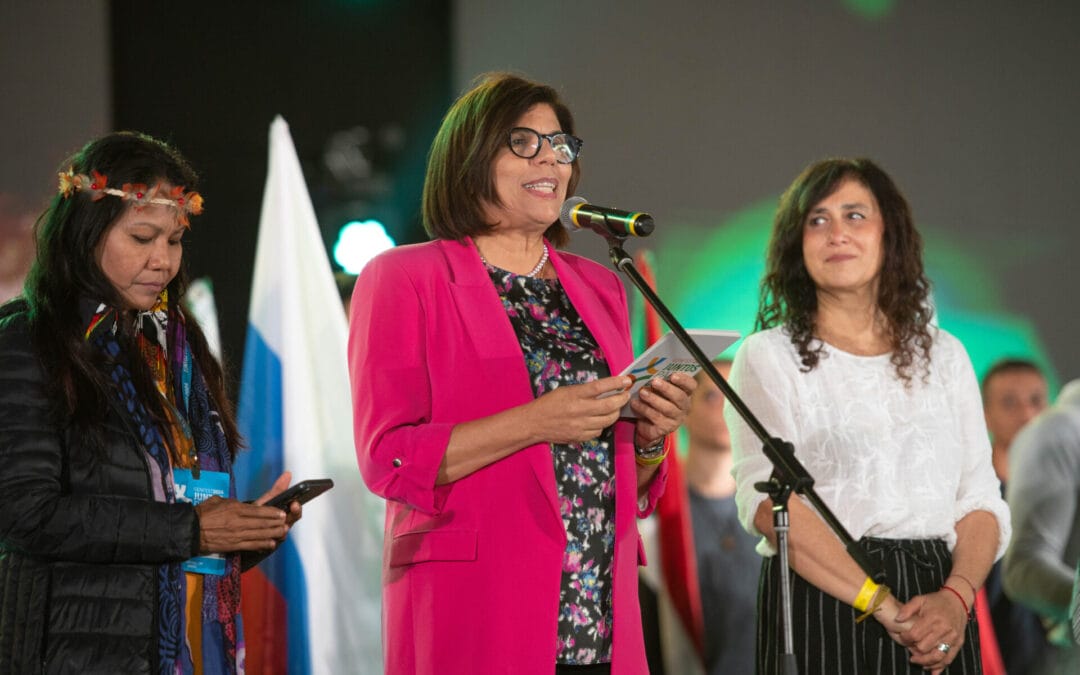
We have just heard stories of peace that were expressed in the most varied forms: songs, prayers, experiences, real projects.
All this strengthens in us the confidence and hope that it is possible to be peacemakers. Pope Francis says that we must be ‘artisans of peace’ every day. And to do this we need perseverance and patience to be able to look with love at all the brothers and sisters we meet on our path.
From this Genfest we have learnt that peace begins with me, with small gestures of care for others, for our peoples and for creation.
So where can we start?
We have said it several times in these days: by breaking down all the barriers that divide us, so as to live for fraternity. And this we can do:
And as we did in the first phase of Genfest, let us continue, even when we return home, to be artisans of peace in our relationships, taking the first step towards others. Love will inspire us what to do, and to whom we should go.
Let us forgive without waiting for the other person to ask for forgiveness.
May this Genfest be the moment of our YES TO PEACE.
We must never feel alone again. In these days we have seen and certainly we have experienced the power of ‘togetherness’, Juntos.
Let us be united with all those who are living and working for peace. The communities we are going to build in Phase Three are already a possible way forward.
‘Peace is Built’I want to conclude with a very beautiful poem called “A paz deve ser construída”.
Open your eyes to visions of peace!
Speak a language of peace!
Make gestures of peace!
For the practice of peace leads to peace.
Peace reveals itself and offers itself to those who achieve,
day after day,
all the forms of peace of which they are capable.(*)
Open, speak and act.
So: let us not be at peace until we bring about peace!
Margaret Karram
(*) Poem by John Paul II
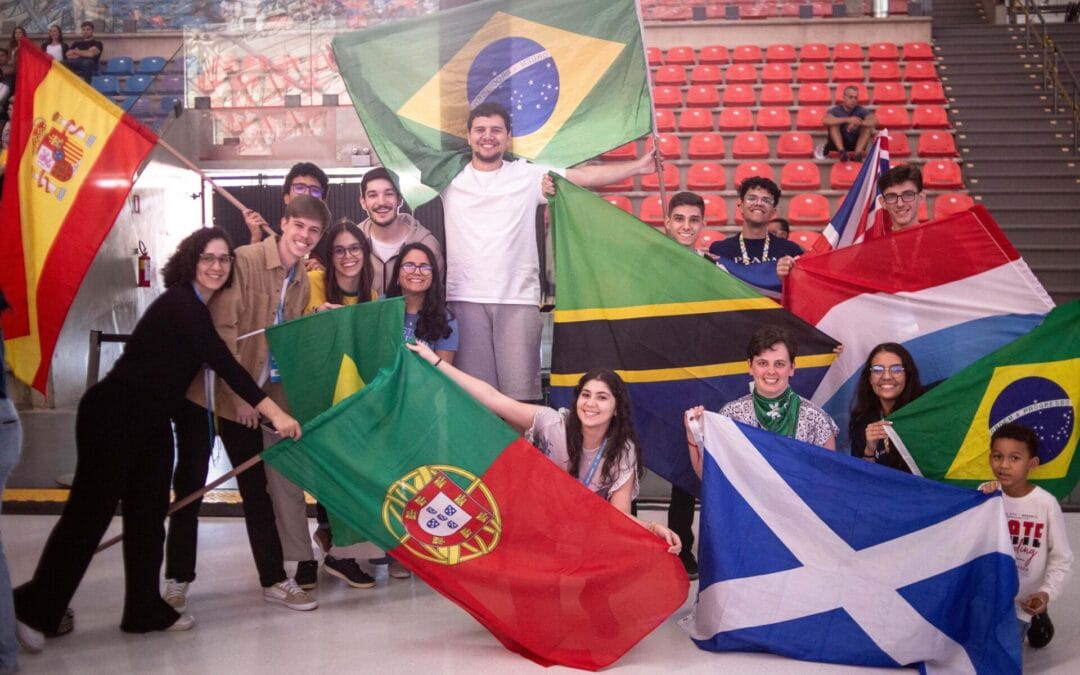
Beginning on July 19, 2024, the second phase of Genfest 2024, the event and the youth of the Focolare Movement, concluded its program on July 21, 2024 with the celebration of the Holy Mass in the Basilica of the National Shrine of Aparecida, in Aparecida (São Paulo), Brazil. The central event of Genfest, which for the first time had its international version on the Latin American continent, brought together about 4,000 participants from more than 50 countries and, from the beginning, was marked by contagious joy. In addition, thousands of people around the world followed part of the program via streaming.
With the theme “Together to Care,” the young people gathered at the “Father Vítor Coelho de Almeida Event Center” promoted an intense program that combined celebration, art, creativity and testimony, an expression of the conviction that building universal fraternity requires concrete initiatives to take care of life on the planet, especially in terms of caring for people in different conditions of vulnerability and nature, as Pope Francis insistently requested.
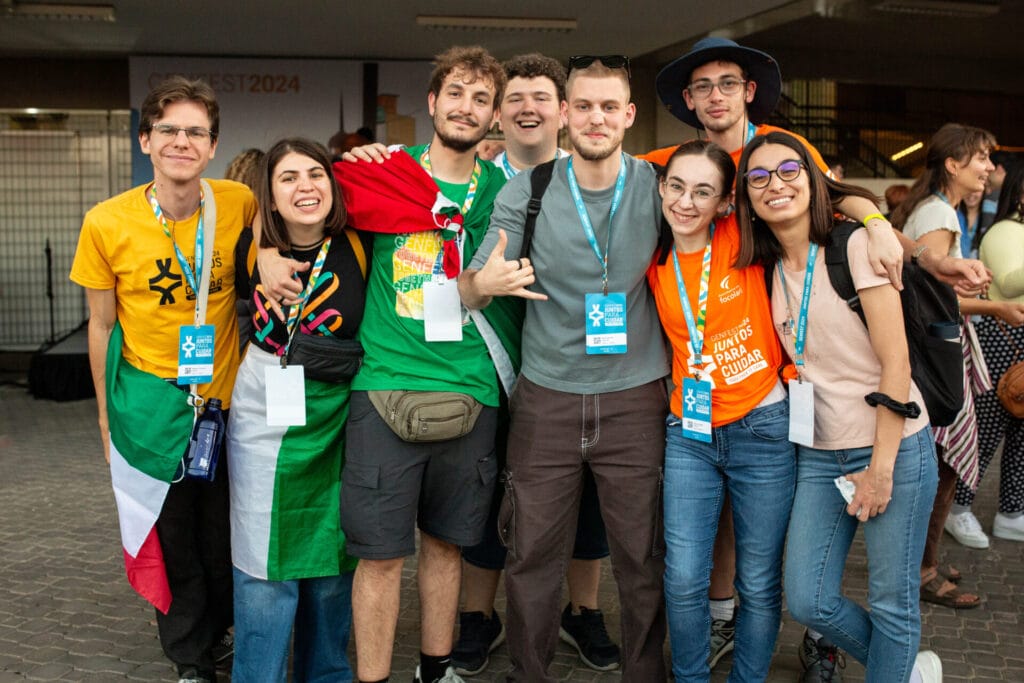
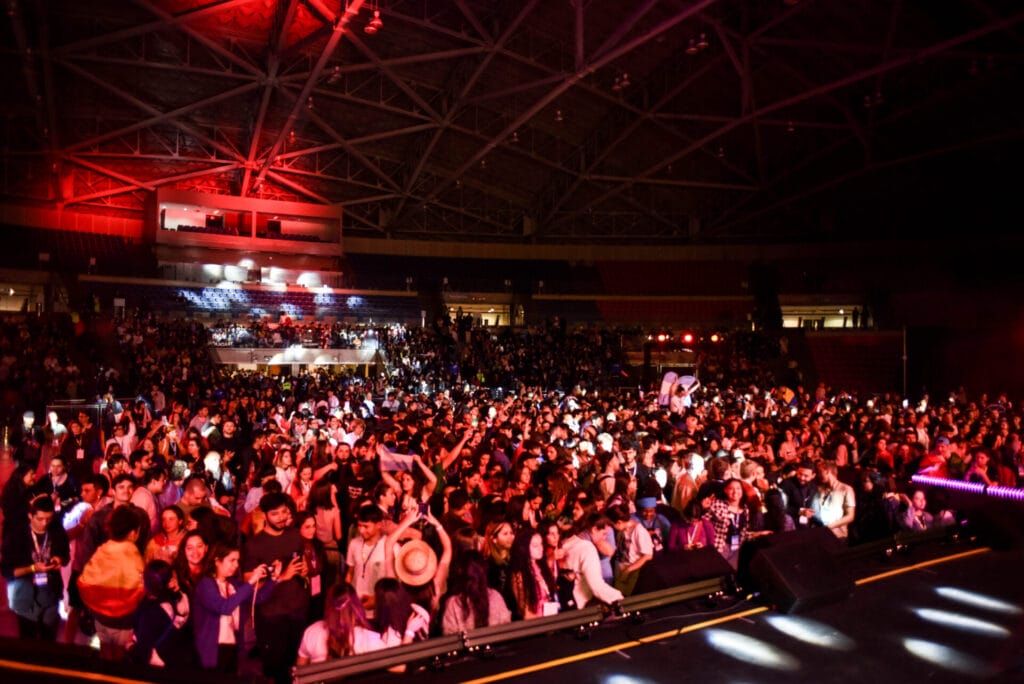
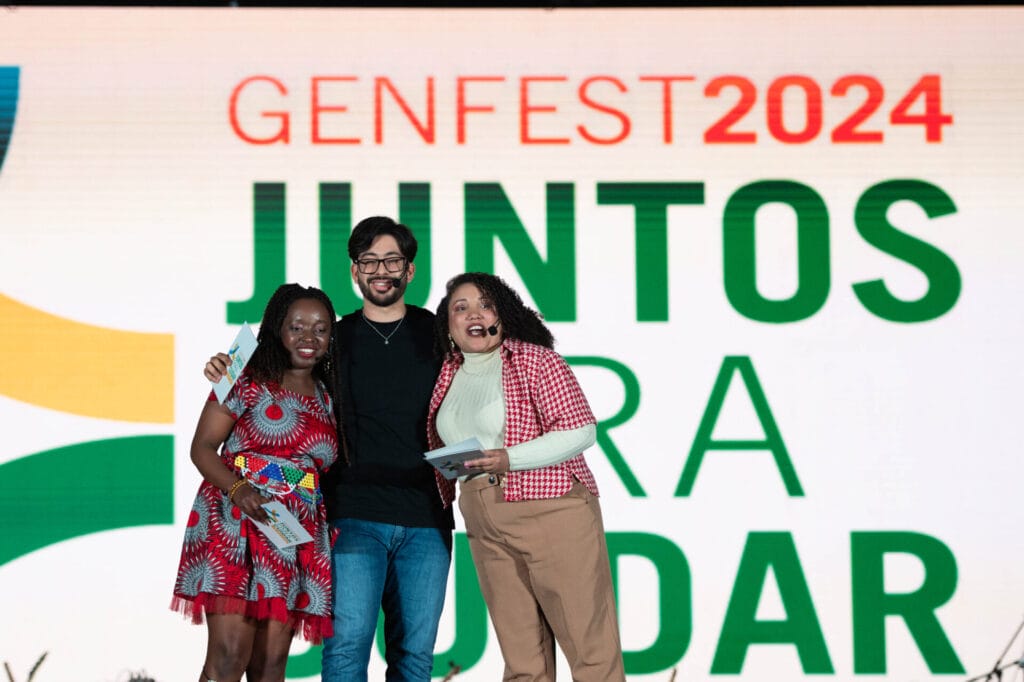
Opening Ceremony
At the inauguration, the young people were welcomed by the Archbishop of Aparecida, Msgr. Orlando Brandes; the apostolic nuncio to Brazil, Msgr. Giambattista Diquattro; the rector of the Aparecida Shrine, Father Eduardo Catalfo; and the president of the Focolare Movement, Margaret Karram, among the dignitaries present. Bishop Orlando Brandes read a message sent by Cardinal Piero Parolin, Vatican Secretary of State, on behalf of Pope Francis. “We know how to react with a new dream of fraternity and social friendship that is not limited to words,” was the message read. In her words of greeting to the youth, Margaret Karram emphasized that “together, our dreams will come true.” Afterwards, the youth were treated to a “Latin American party” with artistic performances typical of different countries. It was an explosion of joy that involved everyone.
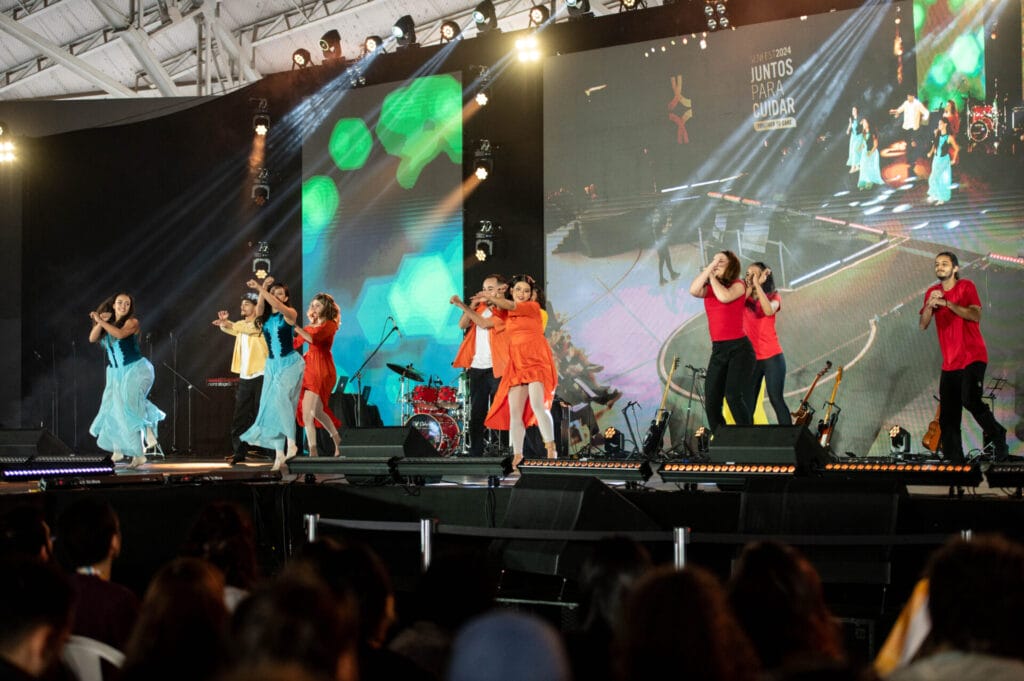
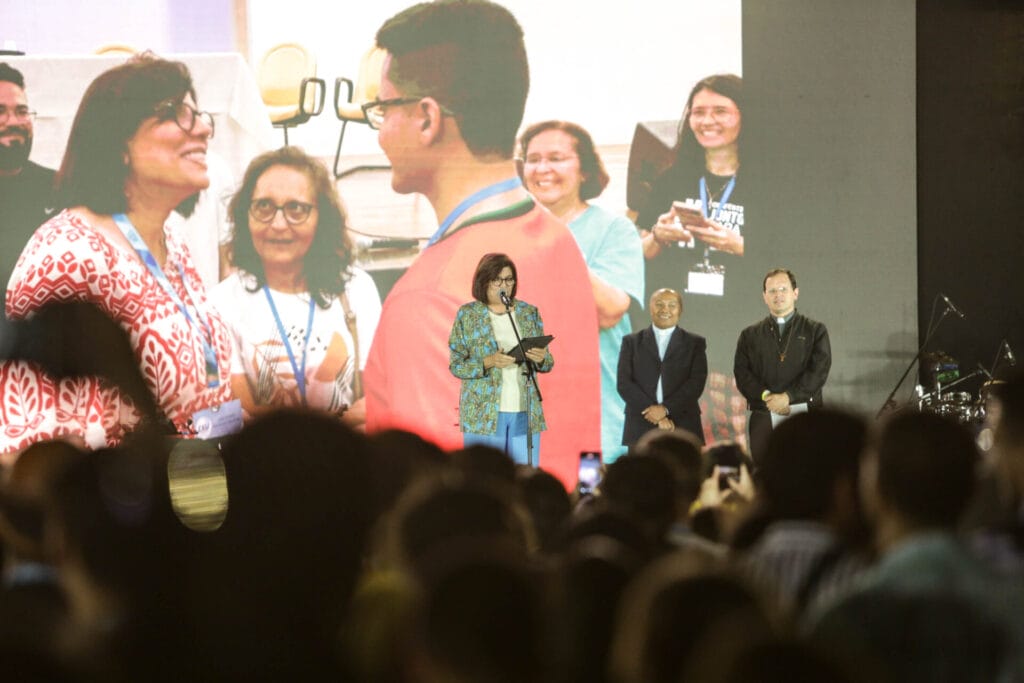
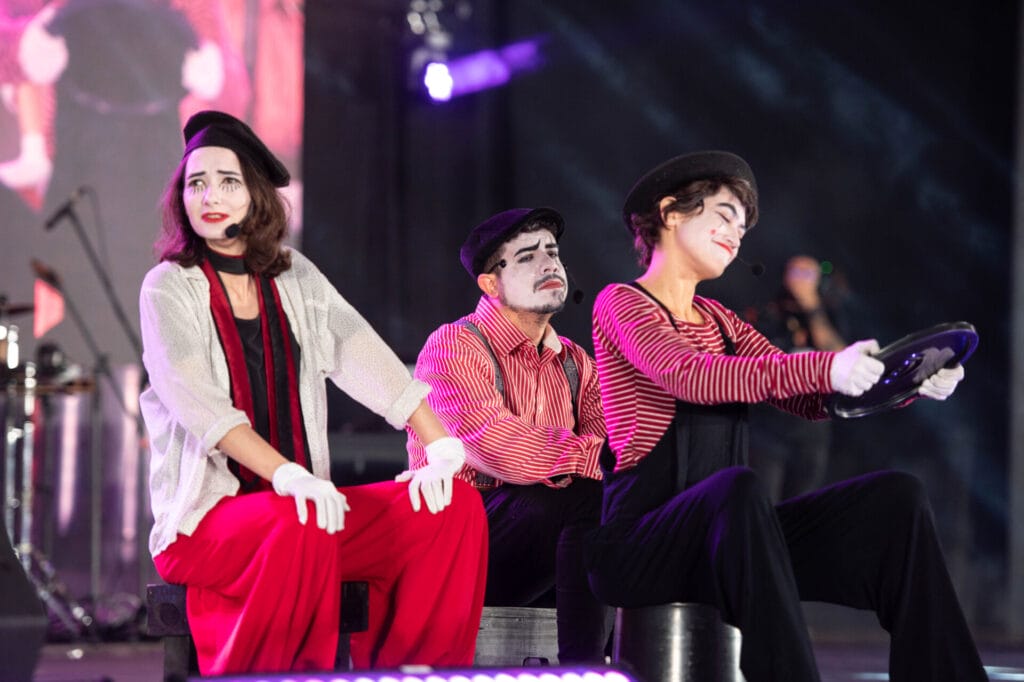
Day 2
A time to find directions, or more precisely, paths, for a united world. This is how the second day of the second phase of Genfest 2024 began. On the one hand, young people from around the world told how they tried to build fraternal relationships in their environments. This was the case, for example, of Adelina, from Rio Grande do Sul, Brazil, who had to deal with the tragedy caused by the rains that hit her city in May 2024, and Joseph, from Sierra Leone, who was separated from his family as a child and recruited by militiamen fighting the African country’s government troops with acts of violence. Artistic moments drew attention to some major issues in the world today, such as ecology and citizenship, while so-called spark changers, specialists in different areas, offered the audience some brief reflections that could bring about change in the world.
Saturday’s program also included a “preview” of Genfest Phase 3: workshops were held on different themes, always with a view to “caring” for life in its different expressions. Finally, a journey around the world with stories of personal resilience or social action, but all that had fraternity as their motivation to “embrace humanity and initiate change.” The second day’s program was concluded on the Genfest stage which saw a number of young people from Turkey, Australia, Zimbabwe, Bolivia, Italy and Colombia telling how they have faced or helped others cope with grief when it seems to take away the meaning of life. The presentations, however, were not limited to personal stories. A wide variety of social initiatives were also presented on stage, such as Rimarishun, a cross-cultural project in Ecuador. Also presenting from Brazil were the Amazon Project, Quilombo Rio dos Macacos di Salvador (Afro-descendant communities) and La Casa do Menor, whose choreography received a standing ovation.
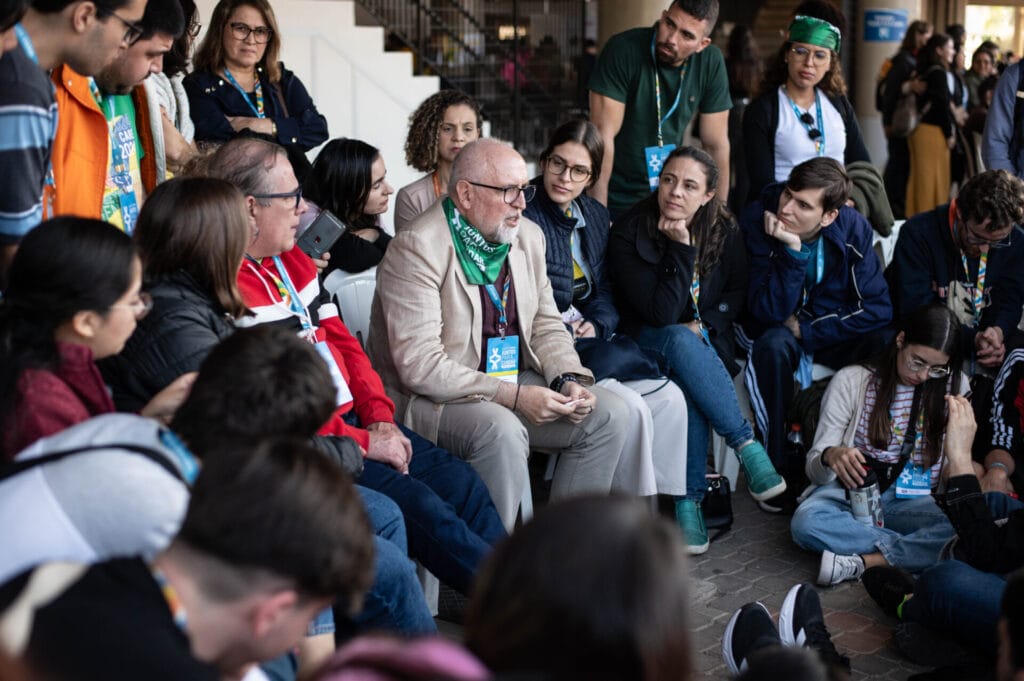
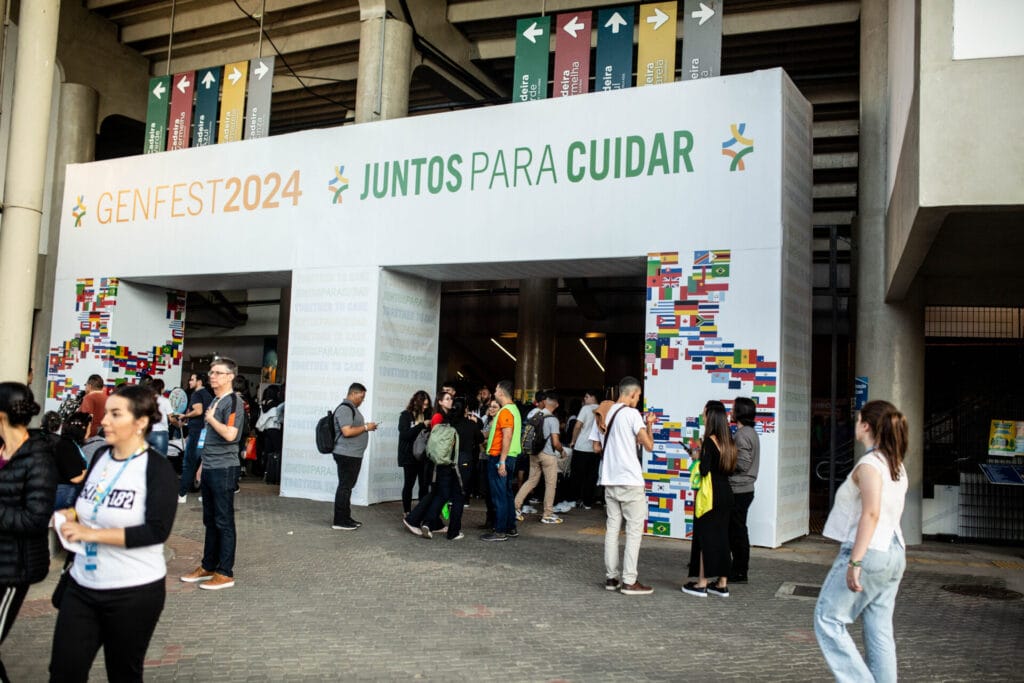
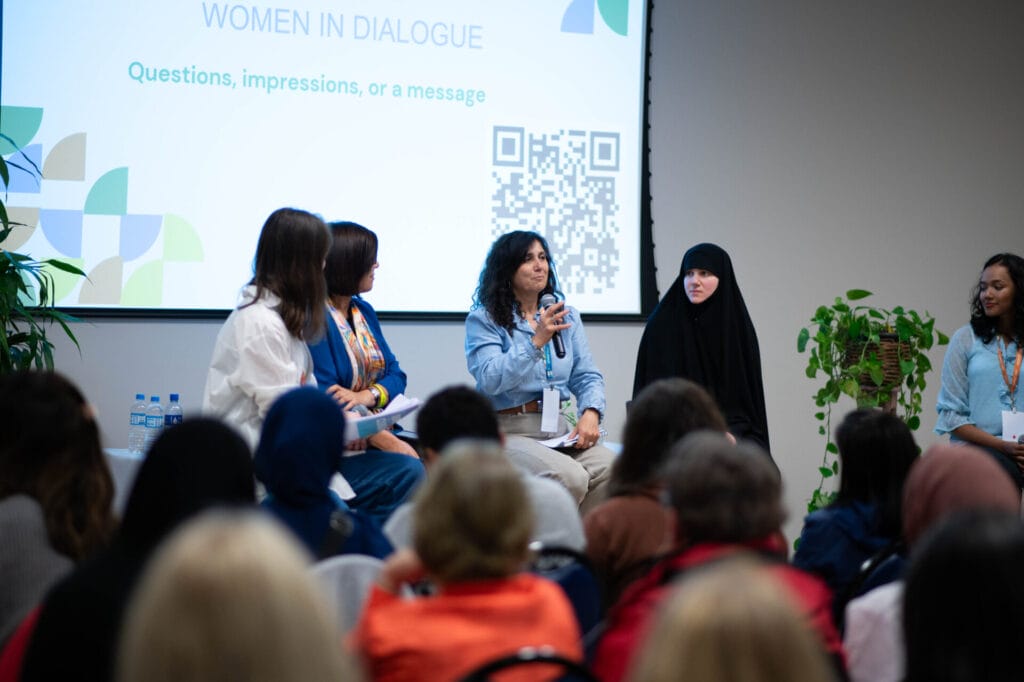
Closing Ceremony
The program for the final day of the second phase of Genfest 2024 began by looking to the past to think about the future. Some of the projects launched at the last Genfest in 2018 were recalled and have already begun to bear fruit, even in the real sense, as in the case of planting trees in areas prone to degradation. Following the example of what was done in the last Genfest in Manila, Philippines, some projects were presented to be continued after these days.
The first project will start with the third phase of Genfest. These are the “United World Communities,” which will bring together young people-including those who could not attend the event in Aparecida-in groups by areas of knowledge, from economics to work, from politics to citizenship. Young people interested in the various areas will be able to sign up for these communities based on their “passion,” as the organizers put it.
An important tool for implementing these communities is the United World Project. Launched in 2012 at Genfest in Budapest, Hungary, it is in fact a program to spread fraternity on a large scale and bring together actions in this direction, making it possible to share experiences with many young people around the world.
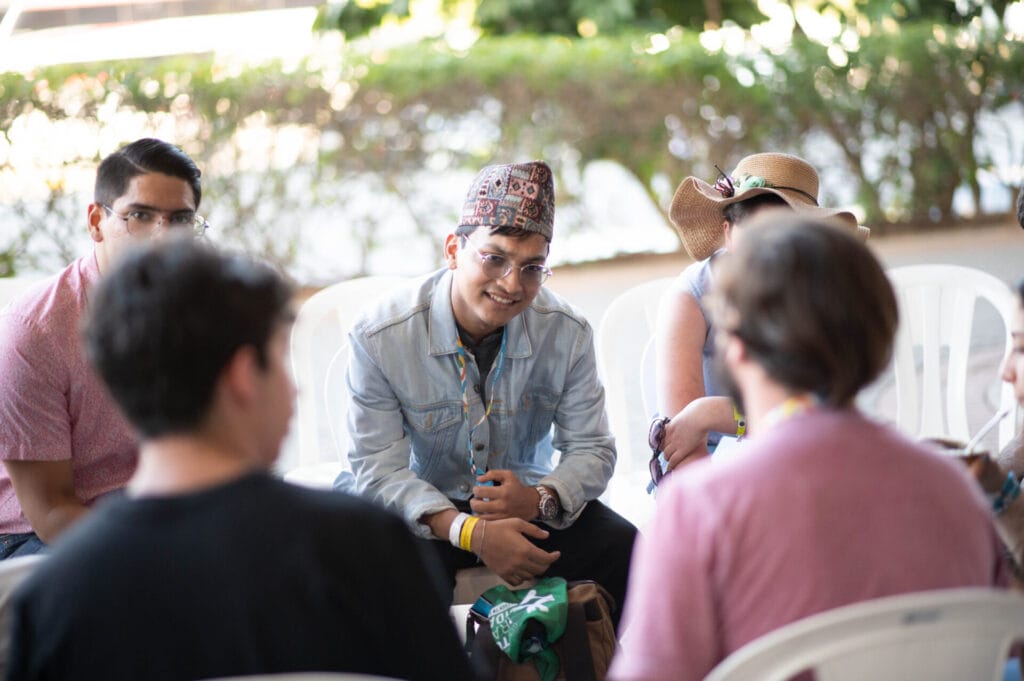
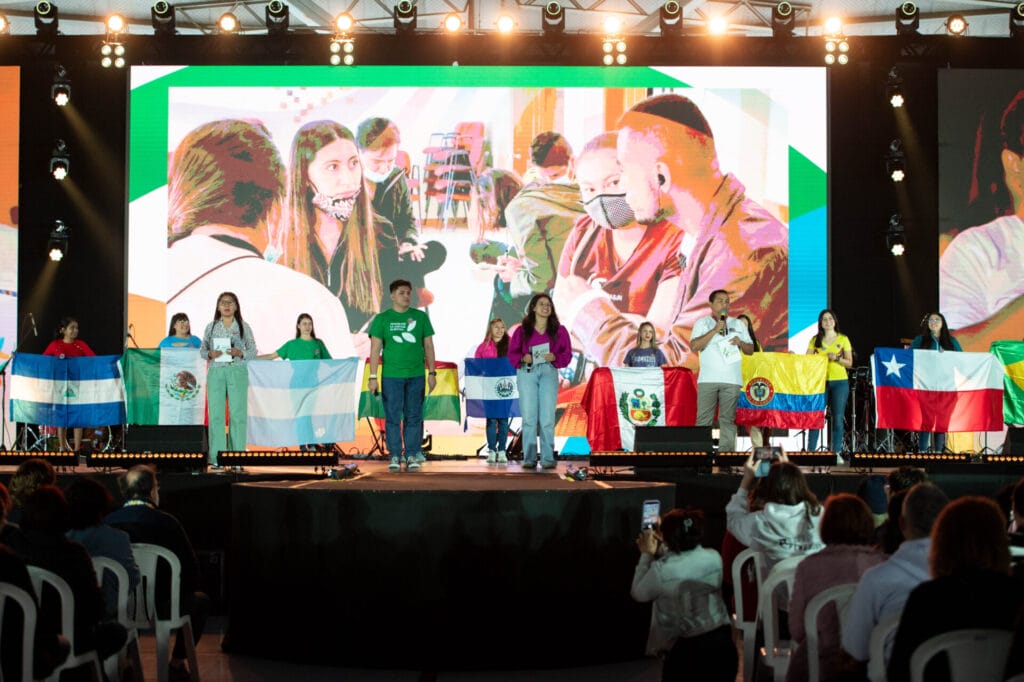
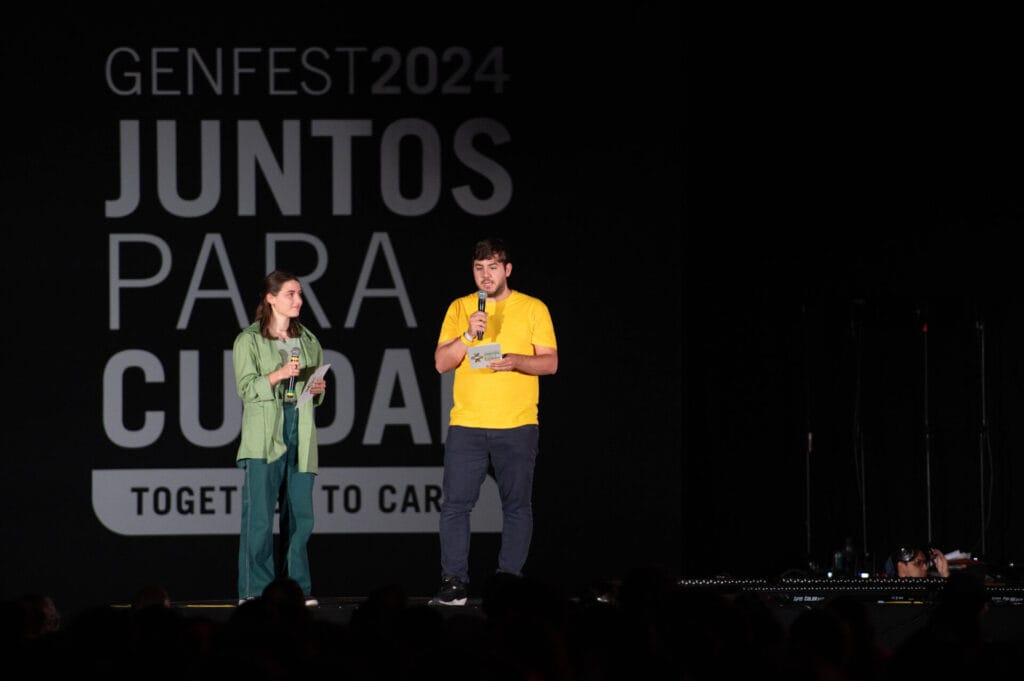
Another action born of this Genfest, which was more immediate, is the launch of a questionnaire to collect proposals from young people for the “ Pact for the Future,” a manifesto that will be presented at the Summit of the Future, an international summit to be organized by the UN in September 2024.
Building international communities requires dialogue. Much of the session was devoted to this theme. Rabbi Silvina Chemen and a young Muslim leader, Israa Safieddine, shared how they try to build dialogue.
Fourteen young Latin Americans from six Christian churches presented Ikuméni, a workshop of ecumenical and interreligious best practices. These are all initiatives whose ultimate goal is peacebuilding, the theme to which the entire last part of the program was devoted.
Carlos Palma from Uruguay presented the Living Peace project. A video of Chiara Lubich reminded how peace can be built today: by living mutual love.
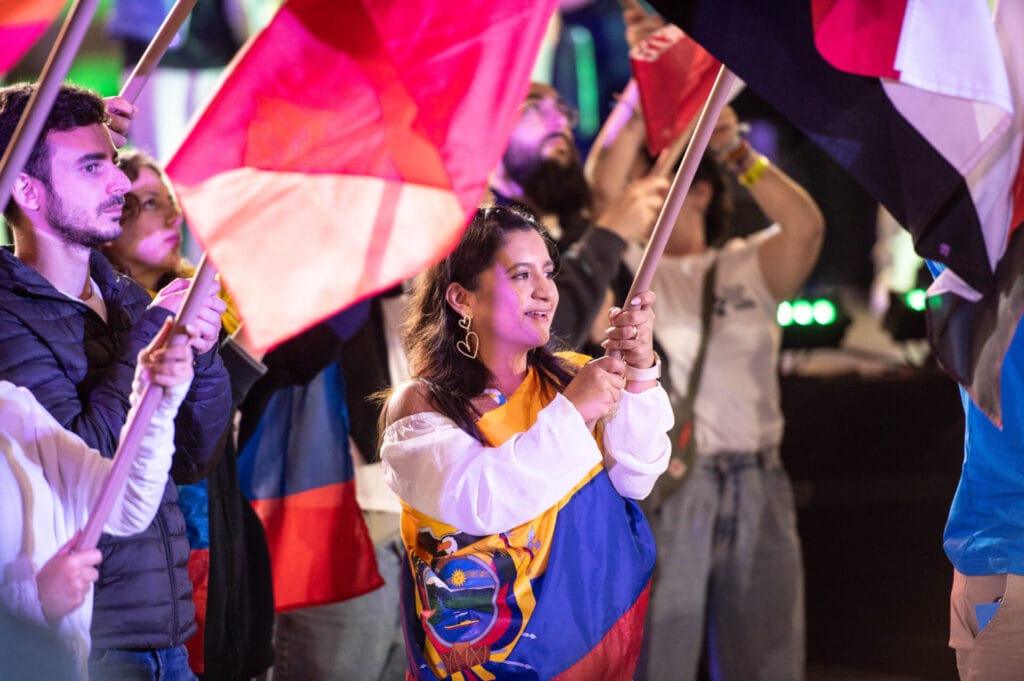
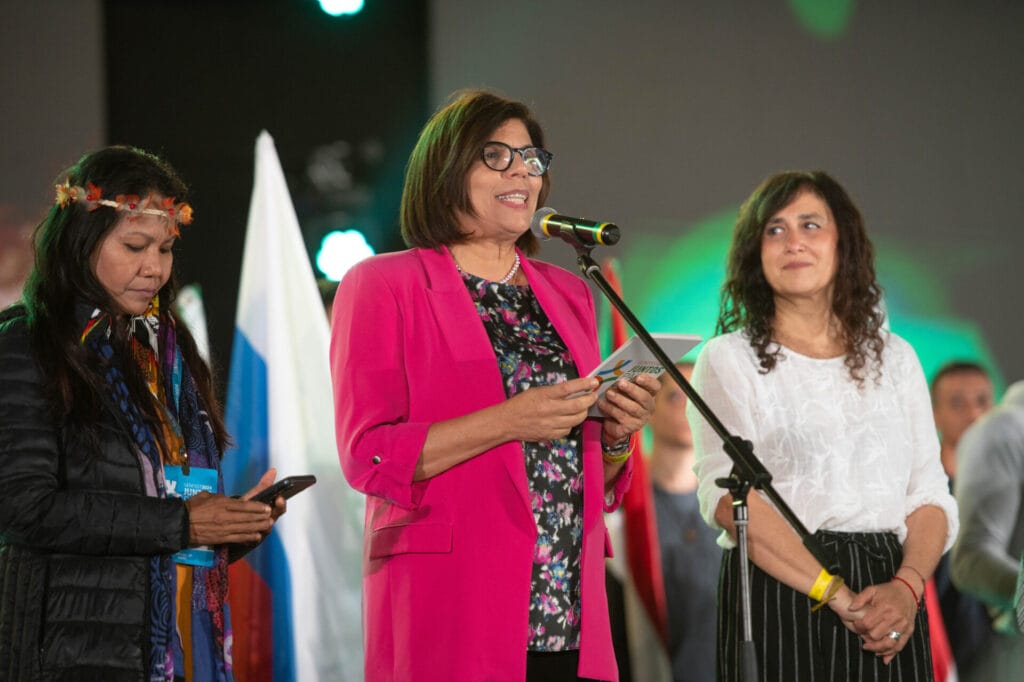
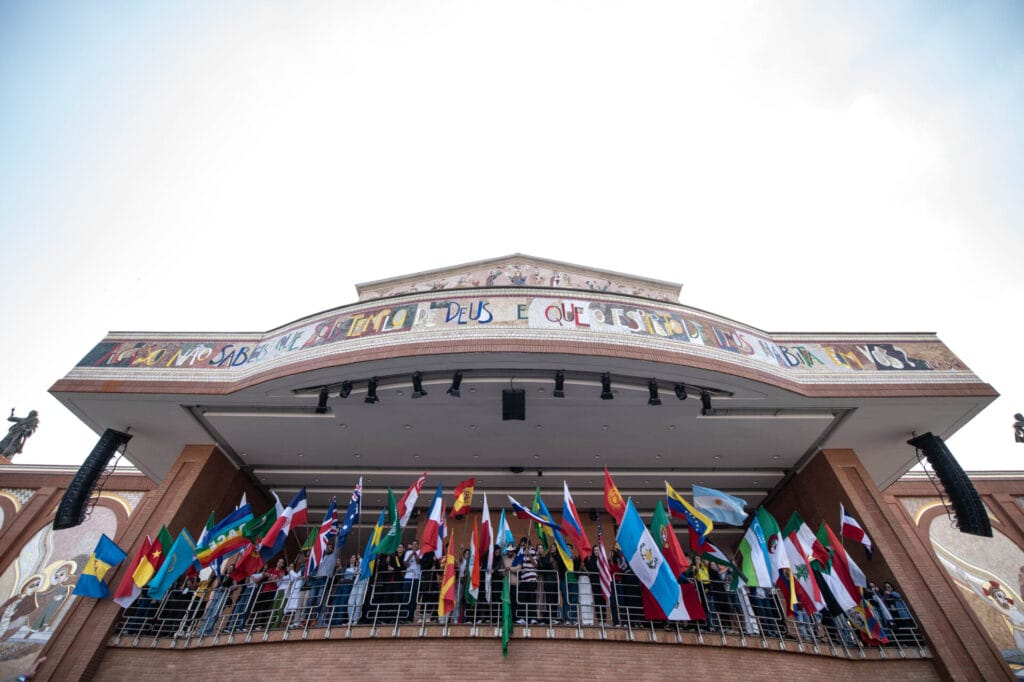
The young Genfest participants with flags from all countries finally paraded, calling for peace in every nation. At the end, Focolare Movement President Margaret Karram called on everyone to be peacemakers, breaking down barriers that divide people and taking the initiative to forgive: “Let this Genfest be a time to say yes to peace,” she concluded.
Luís Henrique Marques e Airam Lima Jr.
Foto: © Imprensa Genfest 2004 – CSC Audiovisivi
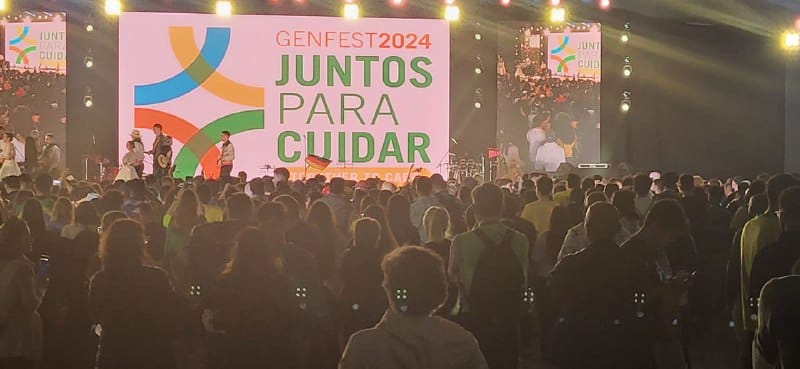
It is possible to follow Genfest 2024 from Aparecida, Brazil live.
To access the Youtube channel click on the image and choose the language (Italian, English, Spanish, Portuguese, French)
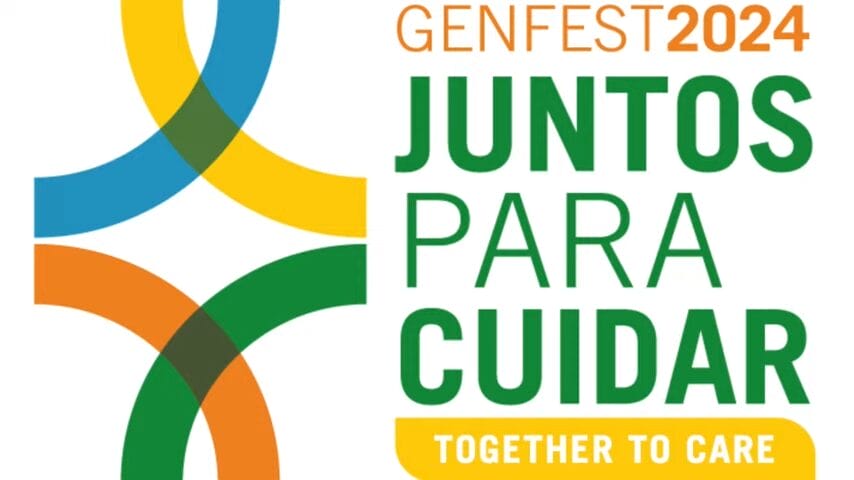
Timetable (Italy)
Saturday 20: from 1:45 p.m. to 3:45 p.m.
22:00 to 24:00
Sunday 21: 1:45 pm to 3:45 pm
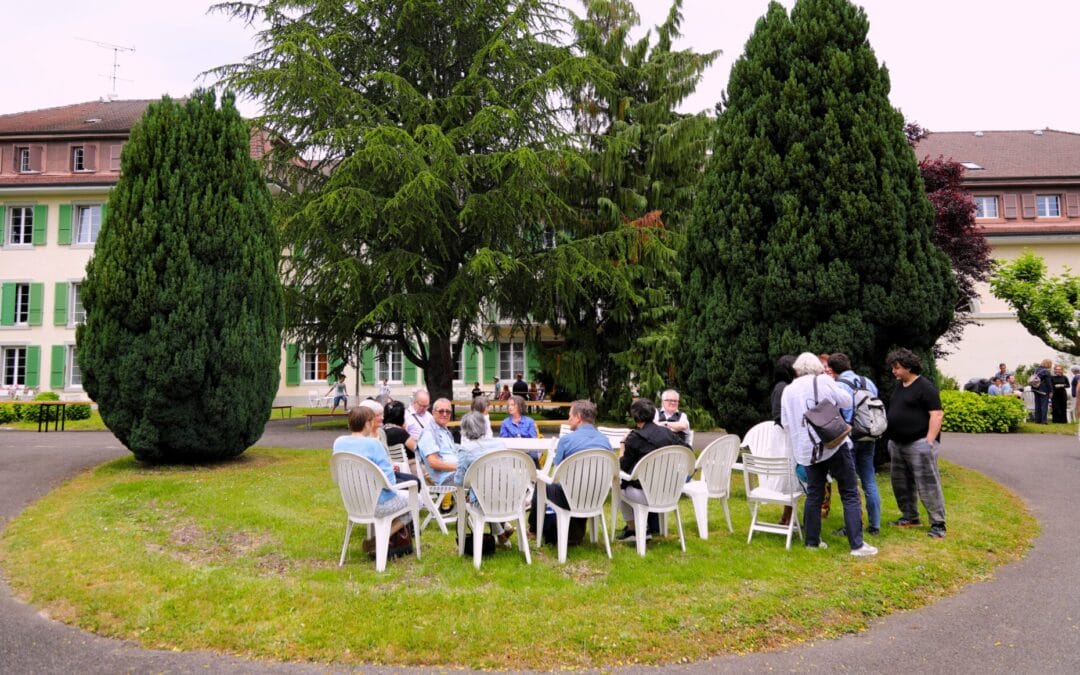
On a sunny day in June 2024, more than 400 guests from all over the world came to Montet, Switzerland, to greet the multicolored and international Focolare community. The Movement’s formation center will indeed be closed and the community will focus its efforts on other formation centers. During the second half of the year 2024, most residents will leave the small town in French-speaking Switzerland to join other communities.
The people in charge of the “Mariapolis Foco,” as this citadel is called, Maria Regina Piazza and Markus Näf explained the path that led to this step: “To understand this decision, one has to look at the path that the Focolare Movement has made considering the decline in vocations to consecrated life and the challenges of today’s society around the world.” It is about “redistributing forces and reducing structures to promote proximity to people where it is most needed.”
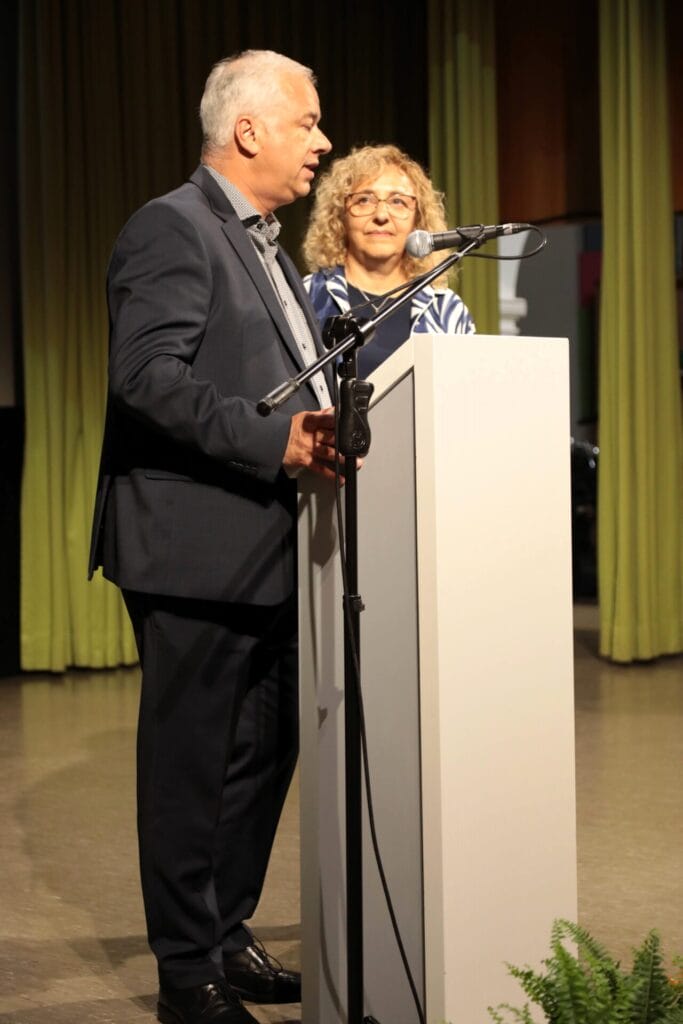
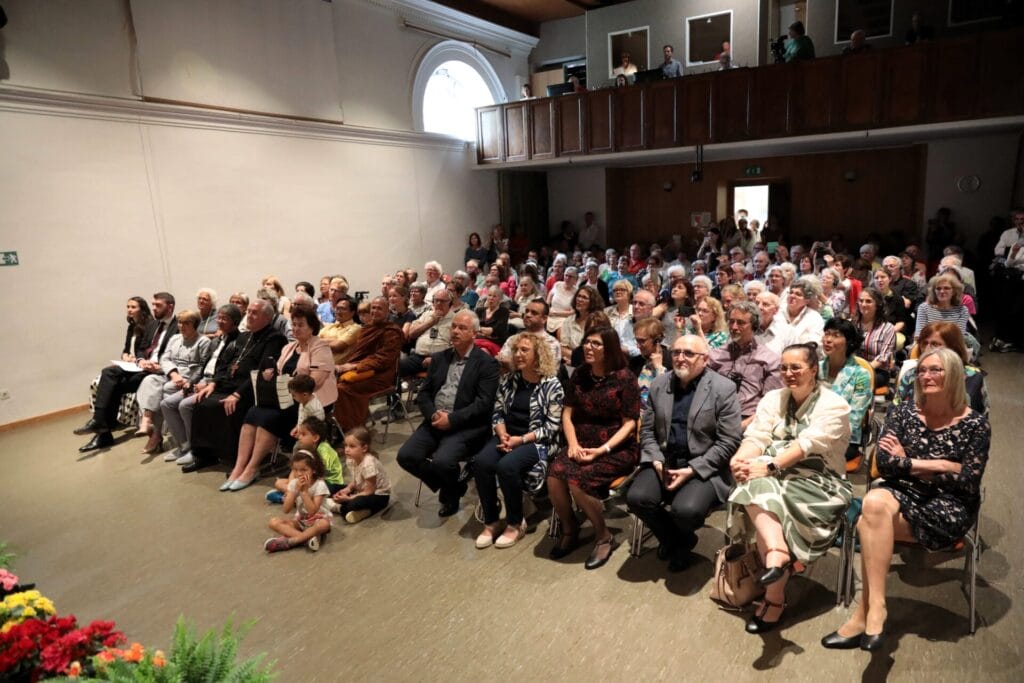
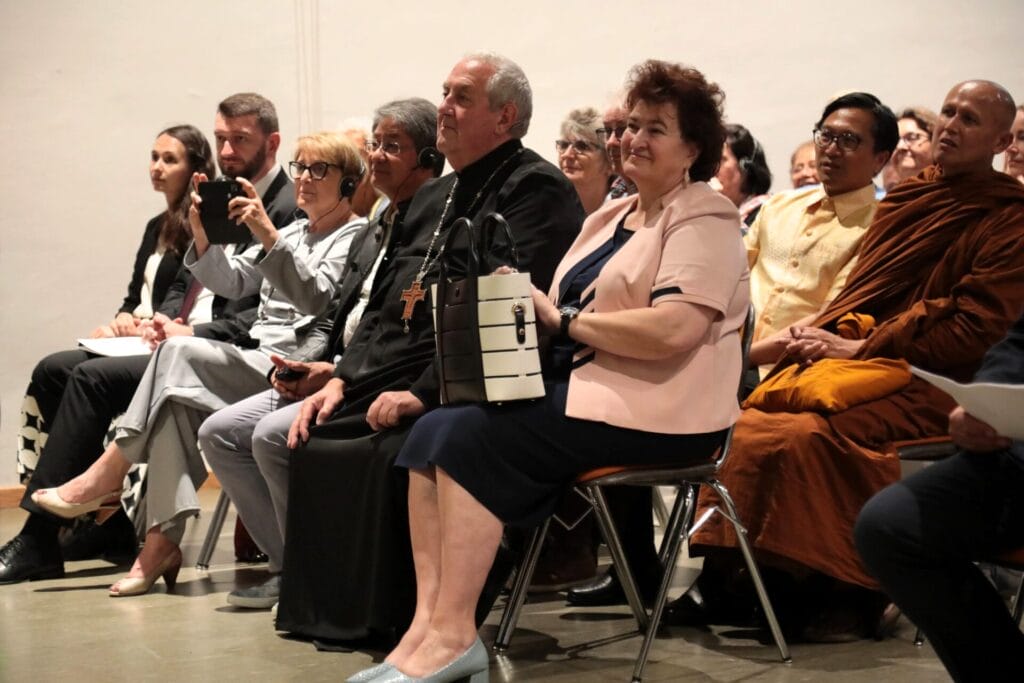
Guests in attendance from the worlds of politics, society and churches emphasized how much the citadel has shaped and positively influenced the surrounding area: peace, a sense of community, a spirit of unity and fraternity were spread, and a testimony of mutual love was given. In total, nearly 3,800 people lived here over the course of 43 years, most of them teenagers and young adults.
In a greeting statement, the Secretary General of the World Council of Churches in Geneva, Rev. Prof. Dr. Jerry Pillay, expressed gratitude for the rich ecumenical experiences shared and lived together during the students’ annual visits to Geneva and emphasized that “the real legacy of the Montet Center is not its physical structure, but rather the fellowship, relationships, and Gospel values promoted.”
Cédric Péclard, longtime mayor of Les Montets, to whose municipality the village of Montet belongs, greatly regretted this closure. However, he was pleased that the “ Cube of Peace” from the Focolare Center park was donated to the municipality. This interactive sculpture embodies and conveys values that are important to the Focolare Movement and in fact originated in the village: a group of focolarine had created it to work with children during their stay in Montet, then “the cube” spread around the world. A large mobile model of it can be found today in a playground in the center of Les Montets.
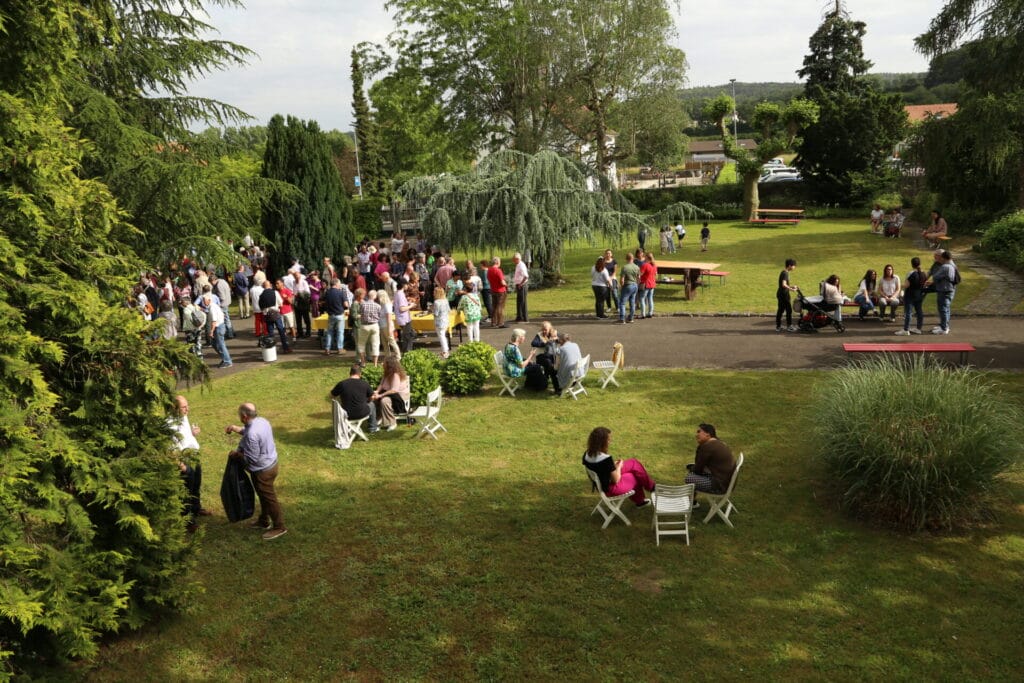
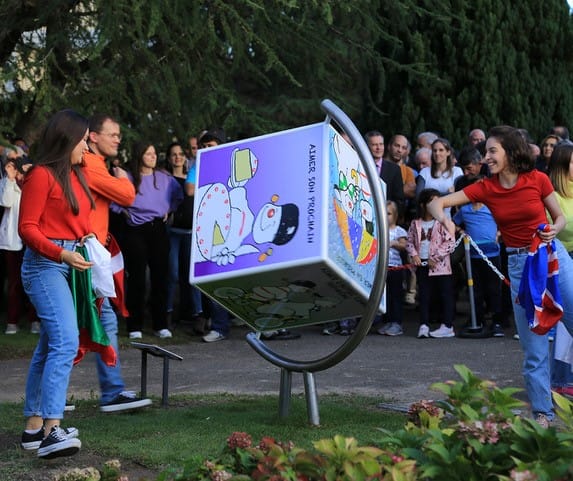
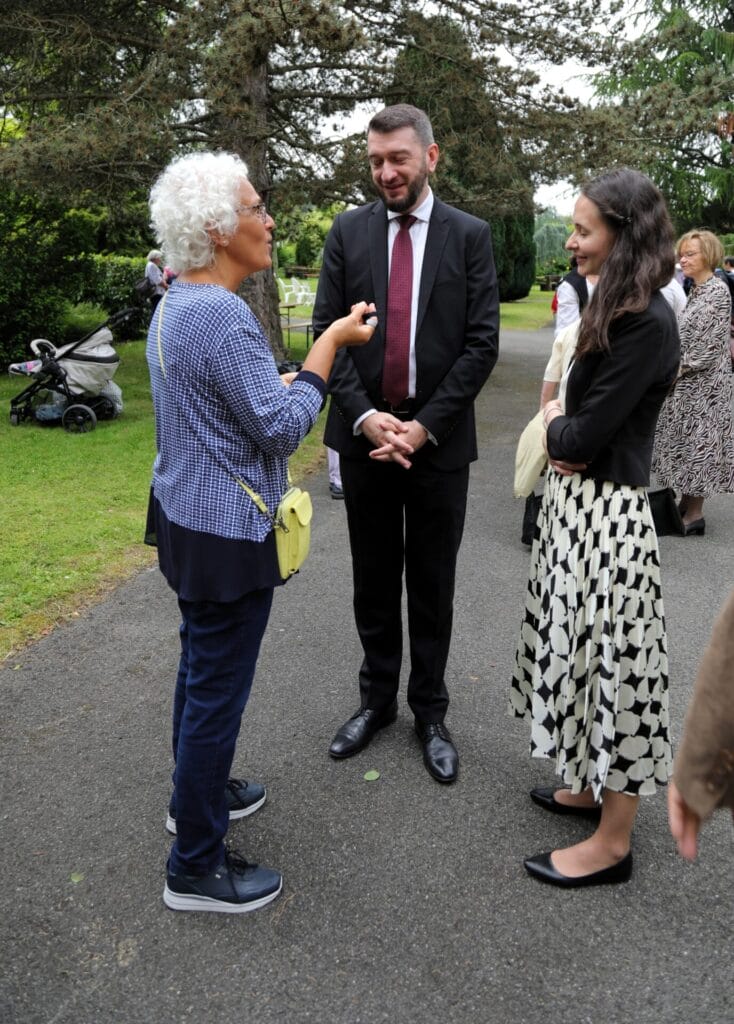
In her speech, Focolare President Margaret Karram, who was present together with Co-President Jesús Morán in Montet, did not hide how painful it was for the international community to close this center. “We feel very clearly that we must look to humanity that awaits the gift of peace, of unity, and that we must be able to grasp, even through circumstances, God’s desire for us and for our activities and structures.” The decision to close the Focolare Citadel in Montet was not taken lightly. “It is like witnessing the pruning of a tree that has borne so much good fruit for many years,” she said. “But we know that nothing happens by chance, but Divine Providence is always behind everything.” And she encouraged everyone – guests and residents – to take the experience gained in Montet to the world: “Many of you will be destined for other cities, other countries, other communities or you will return to your own country and you will take wherever you go the valuable experience that you have had here, and that therefore, will not only continue but will bring you an even greater dimension of love that will amaze you because it will be new.”
The future involves the sale of the 5-hectare estate. A committee headed by Hugo Fasel, former director of Caritas Switzerland, will oversee the sale and ensure that the future use of the property is in line with the values of the Focolare Movement.
Andrea Fleming
Font: Fokolar-Bewegung
https://fokolar-bewegung.de/nachrichten/fokolar-zentrum-der-franzoesischen-schweiz-schliesst
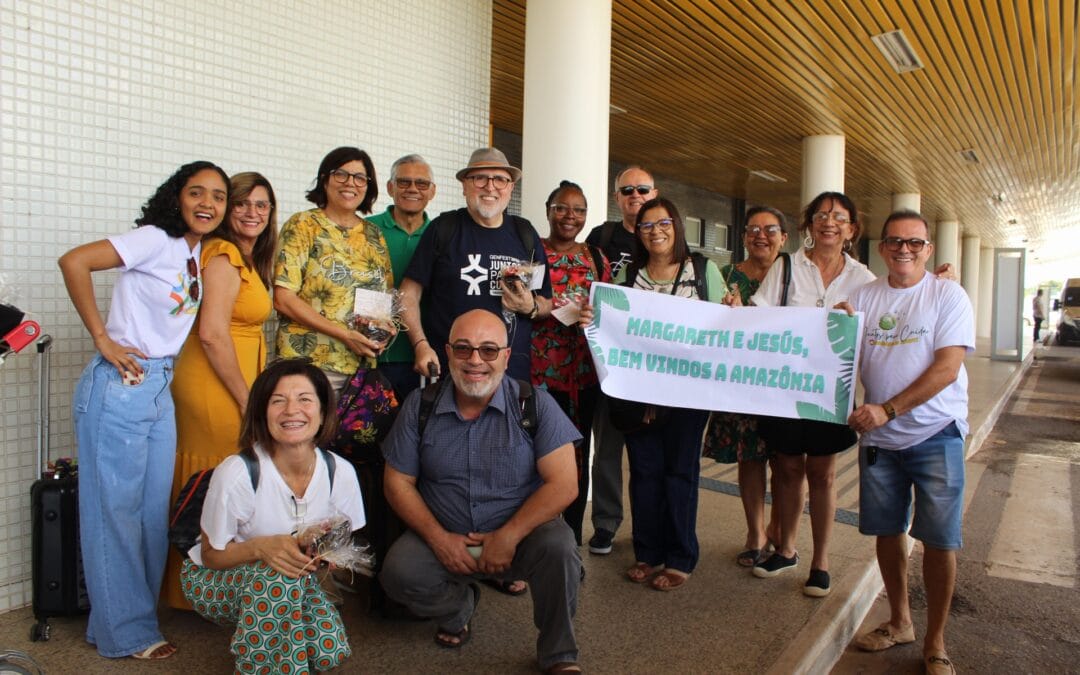
Juruti, in the State of Parà, is reached after seven hours by motorboat, the fastest means of transport, from Santarém. Its inhabitants say proudly that this area is the heart of the lower Brazilian Amazon, where the only connecting “road” is the Amazon River, the “river-sea”, as the local people call it. It is the first river in the world in terms of volume of water and the second by length. It marks time, social life, trade and the relationships between the approximately 23 million inhabitants of this vast region, where 55.9% of the Brazil’s indigenous population lives. It is one of the most precious ecosystems on the planet and yet political and economic interests are the cause of conflicts and violence that continue to multiply daily. Here the disruptive beauty of nature is directly proportional to the problems of quality of life and survival.
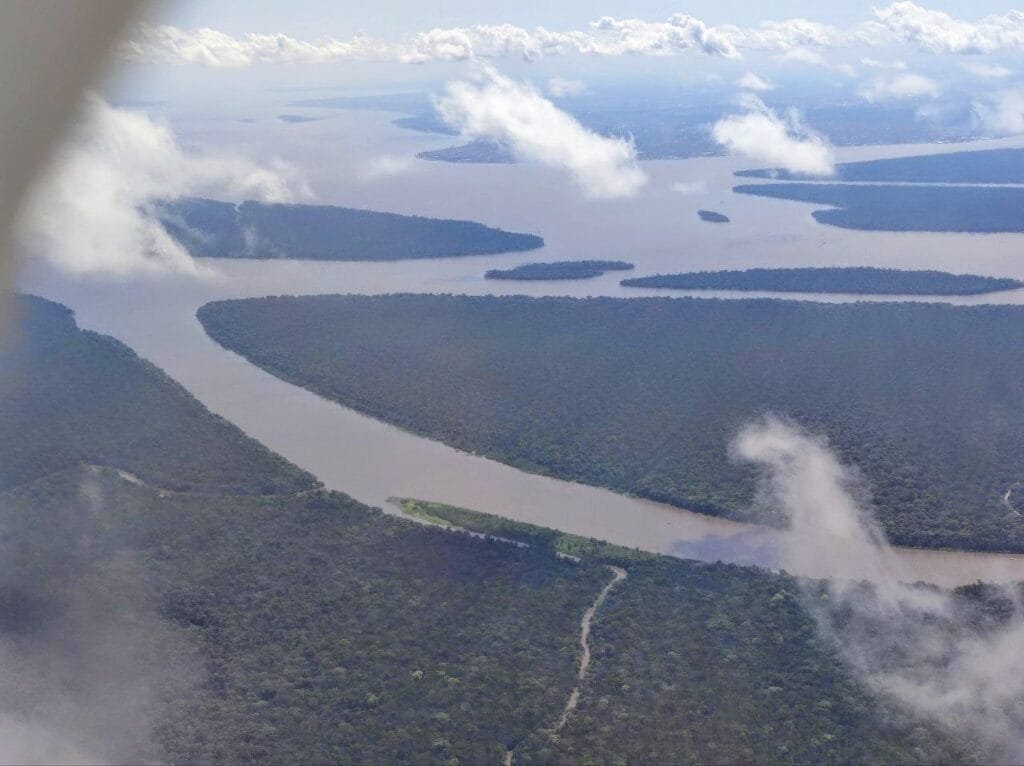

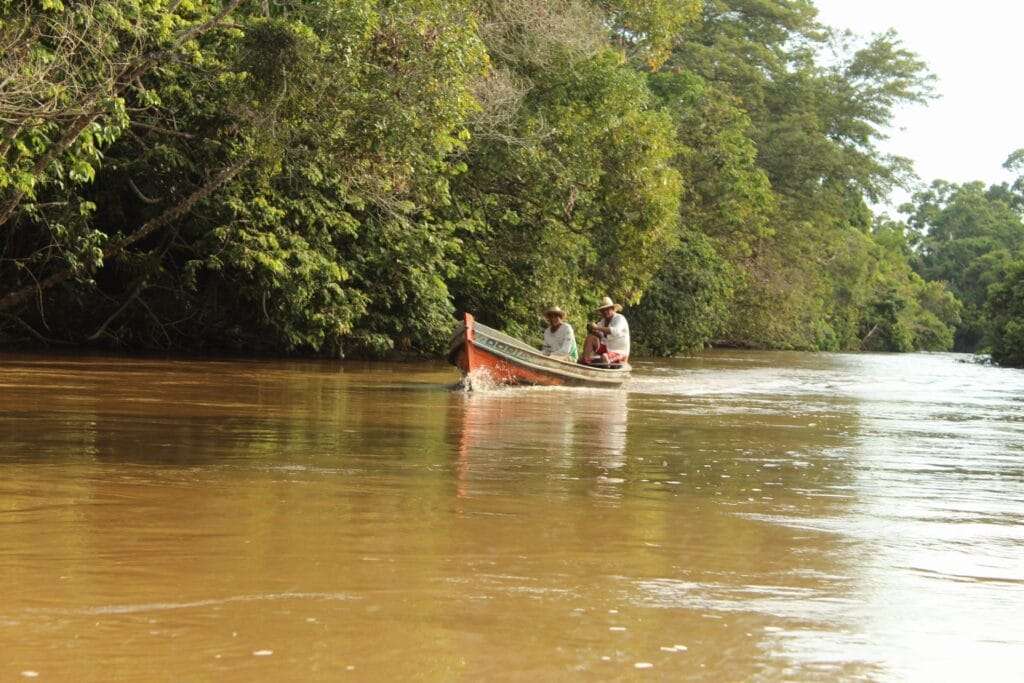
Care, the key word for the Amazon
Margaret Karram and Jesús Morán, President and Co-President of the Focolare, Bernadette Ngabo and Ángel Bartol of the Movement’s International Centre and Marvia Vieira and Aurélio Martins de Oliveira Júnior, national co-directors of the Movement came to meet and spend a few days with the Focolare communities of the region. They were welcomed by Msgr. Bernardo Bahlmann O.F.M., Bishop of Óbidos. He said, “Observing and listening is the first thing we can learn in the Amazon”.
He spoke of the differentiated culture of this land, where indigenous characteristics coexist with aspects of the Western world. Social coexistence presents many challenges: poverty, lack of respect for human rights, exploitation of women and destruction of the forest heritage. He said, “All this is a question of rethinking what it means to take care of the riches of this land, of its original traditions, of creation, of the uniqueness of each person, to find, together, a new path towards a more integrated culture”.

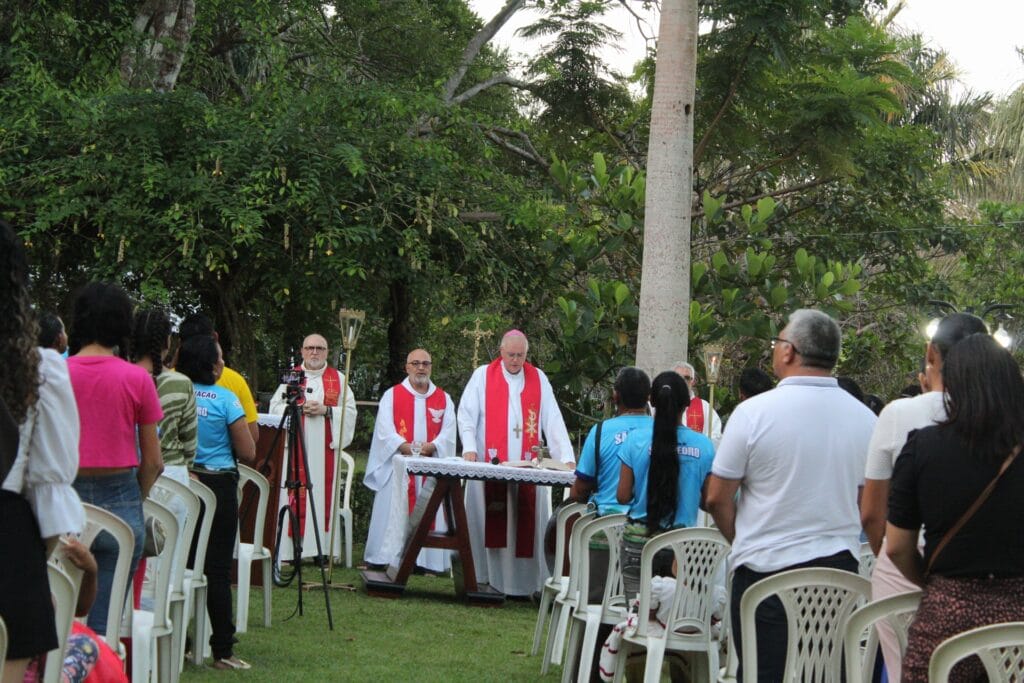
Santarém, where the Church is secular
Msgr. Ireneu Roman, Bishop of the Archdiocese of Santarém continued the commentary, saying that this would be, “An impossible task without the involvement of the laity. They are the true strength of the Amazon Church”. There are about a thousand catechists in its parish communities. They support Christian formation, the liturgy of the Word and social projects. Msgr. Roman asked the Focolare community in the Amazon to bring its specific contribution: “unity in ecclesial structures and in society, because what this land needs most is to relearn communion”.
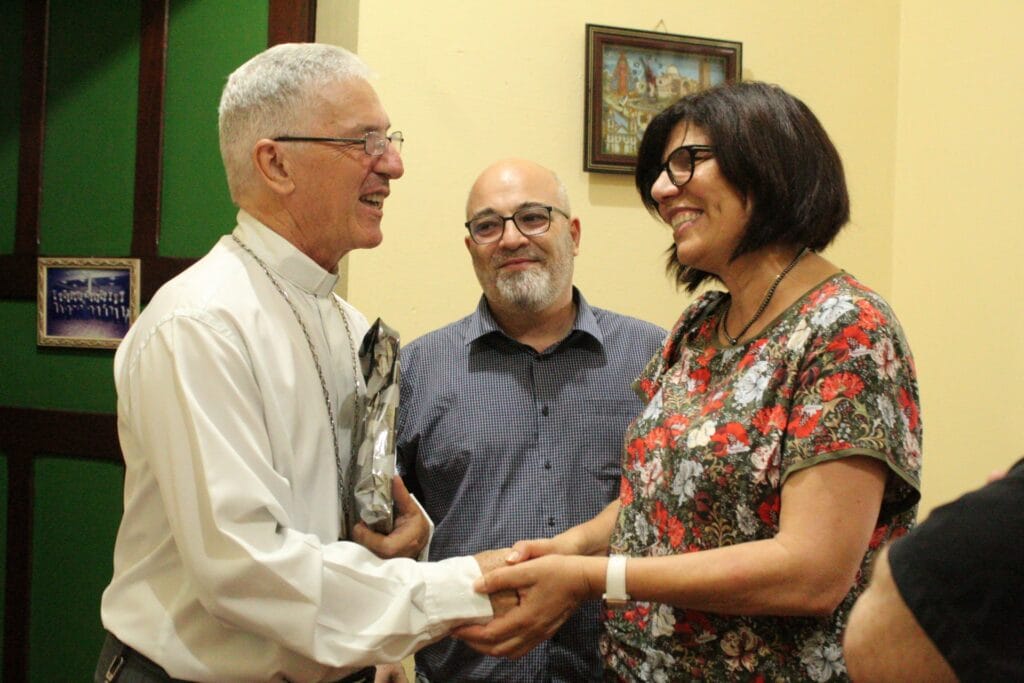
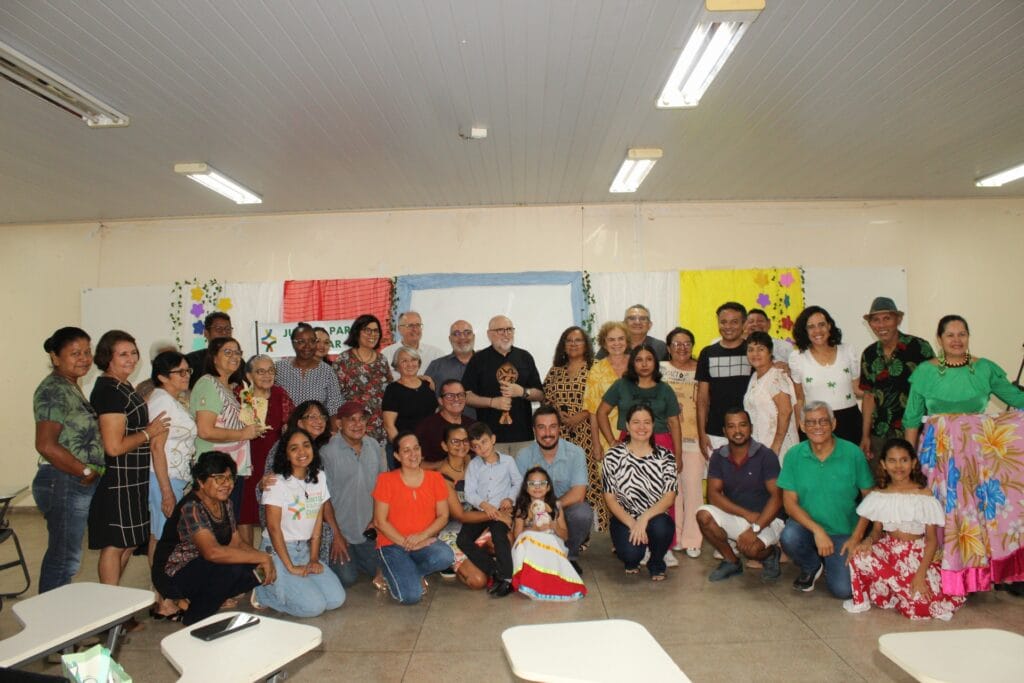
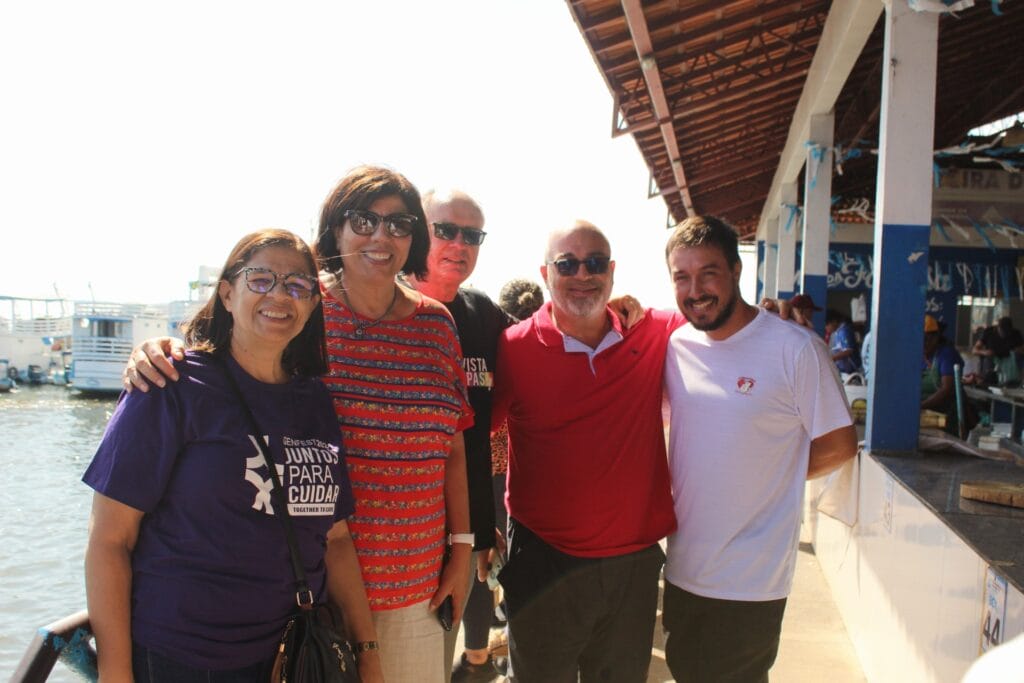
The presence of the Focolare and the Amazon Project
The first men’s’ community of the Focolare arrived in Óbidos in 2020 at the request of Msgr. Bahlmann and six months ago a women’s’ one opened in Juruti. Today in the Amazon there are seven focolarini, including a doctor, two priests, a psychologist and an economist.
Marvia Vieira and Aurélio Martins de Oliveira Júnior explained, “We are in the Amazon to support the great missionary work that the Church carries out with indigenous peoples. In 2003, one of the guidelines of the Brazilian Bishops’ Conference was to increase the presence of the Church in the Amazon region, because the vastness of the territory and the lack of priests made it difficult to provide adequate spiritual and human assistance.”

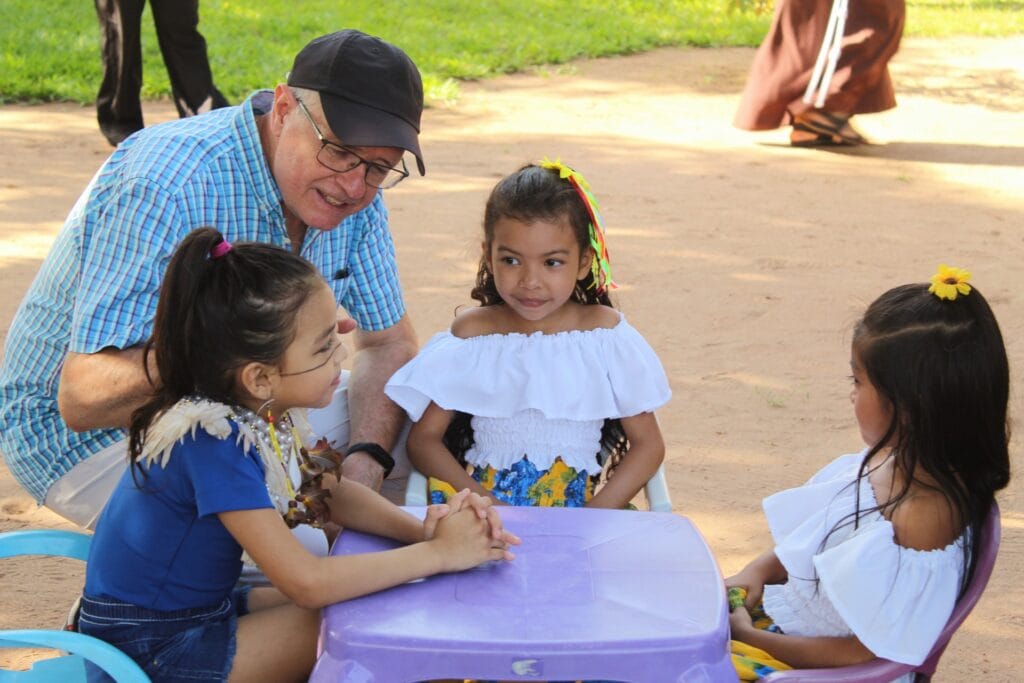
Thus, 20 years ago, the “Amazon Project” was born where members of the Focolare Movement from all over Brazil went for a period to places chosen in agreement with the Dioceses, to carry out evangelization actions, training courses for families, young people, adolescents and children, medical and psychological visits, dental care and more.
Edson Gallego, a focolarino priest of Óbidos and the parish priest told us, “Perhaps we will not be able to solve the many problems of these people but we can be close to them, share joys and sorrows. This is what we have been trying to do since we arrived, in communion with the different ecclesial realities of the city.”
The women focolarine explained that it is not always easy to change one’s mental categories: “We often delude ourselves to give answers, but it is we who come out enriched by every encounter, by the strong presence of God that emerges everywhere: in nature, but above all in people”.
Building up people and society
In Juruti the focolarine collaborate with the agencies of the Church that work for development. The “Bom Pastor” “casulo” is one of the 24 kindergartens in the city, which follows a specific pedagogical line that educates children to be aware of their own culture and traditions, to have a sense of community and to be aware of themselves and of others. This is an important choice for an integral and person centred education. The “9 de Abril na Providência de Deus” Hospital is managed by the “São Francisco de Assis na Provincia de Deus” Fraternity. It serves the population of the city (approximately 51,000 inhabitants), nearby towns and river communities, focussing on those who cannot afford to pay for care. The Apostles of the Sacred Heart of Jesus, on the other hand, animate the “Mother Clelia” Coexistence Centre where they welcome a hundred young people annually, creating alternatives for professional training and contributing to personal development, in particular of young people at risk.
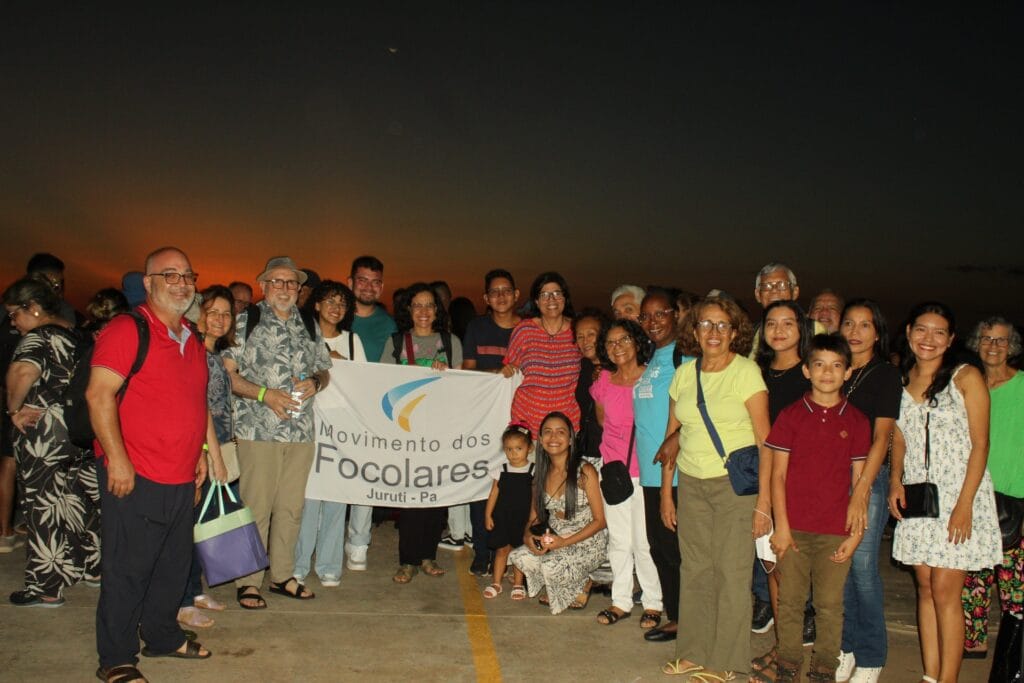
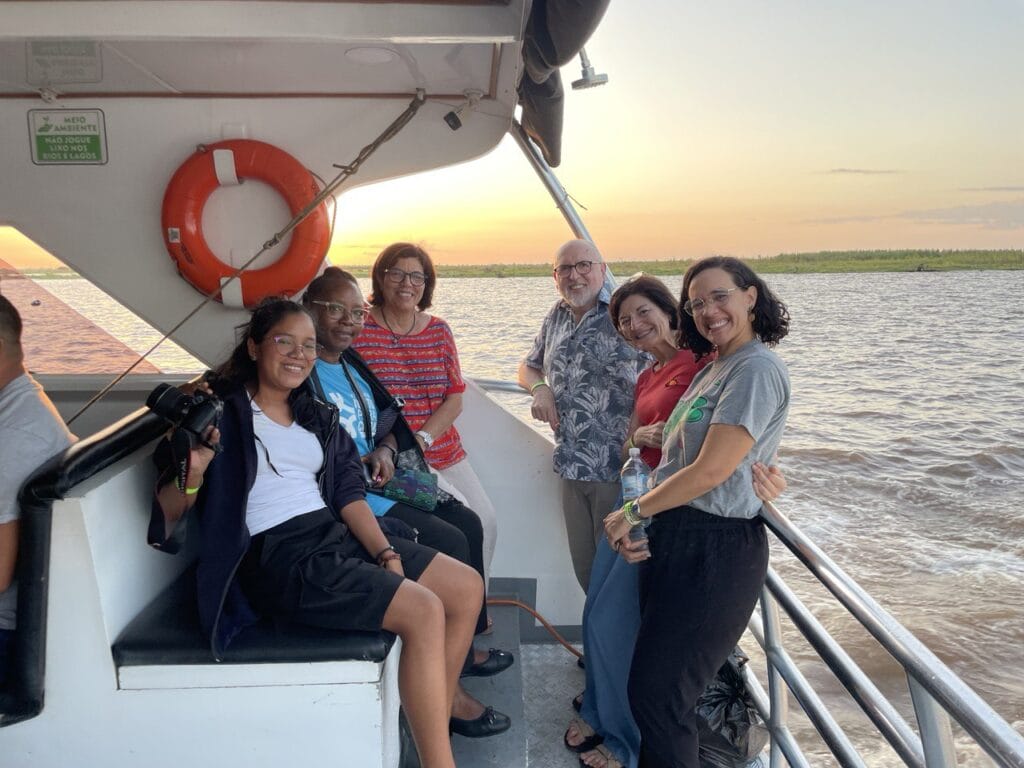
The Focolare community has also been working in synergy with parishes and ecclesial organizations for years. When Margaret Karram met it and other communities from around, she thanked the people for their generosity, evangelical concreteness and welcome: “You have reinforced in all of us the sense of being one world family and even if we live far apart, we are united by the same gift and mission: to bring fraternity where we live and throughout the world”.
Promoting human dignity
A one hour boat trip from Óbidos, through a network of canals that wind through the Amazon forest brings you to the Quilombo Pauxi Mocambo, an indigenous community of a thousand Afro-descendants. It is linked to Edson’s parish. He tries to go at least once a month to celebrate Mass and, together with the focolarini, share, listen and play with the children. The community is made up of about a thousand people who, although immersed in a paradisiacal nature, live in particularly disadvantaged conditions. Isolation, struggle for survival, violence, lack of equal rights, access to education and basic medical care, are the daily challenges these river communities face. Here too, for two years, the diocese of Óbidos has been running a project entitled, “Força para as mulheres e crianças da Amazônia”. It is aimed at women and children and promotes an integral formation of the person in the spiritual, health, educational, psychological, and economic sustenance fields. A young mother proudly recounted her progress in the home economics course: “I learned a lot and discovered that I have skills and ideas”.
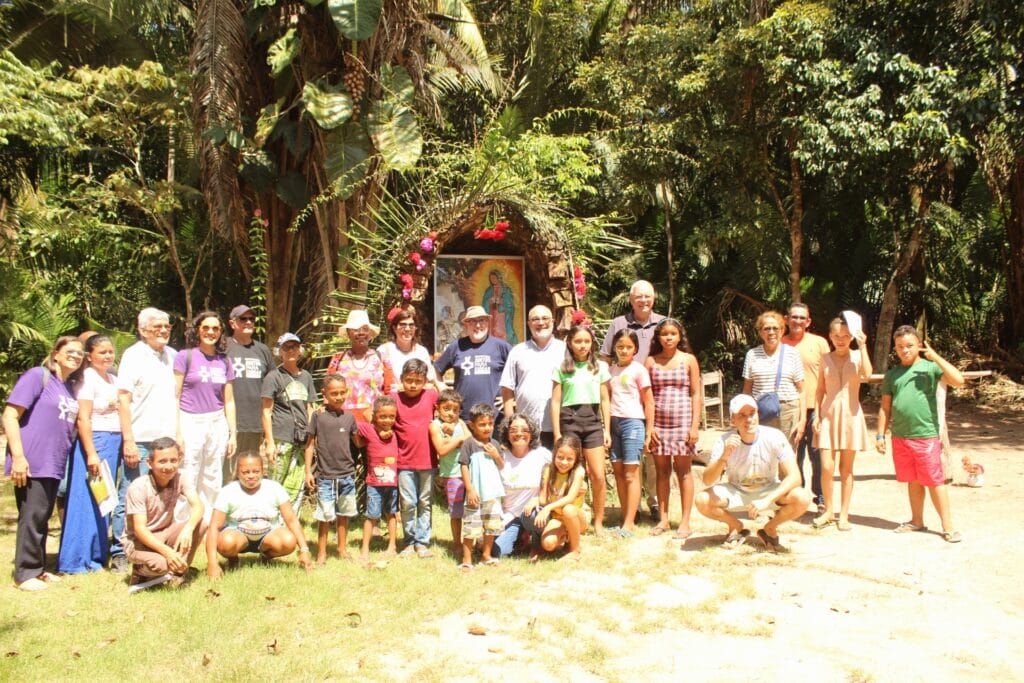
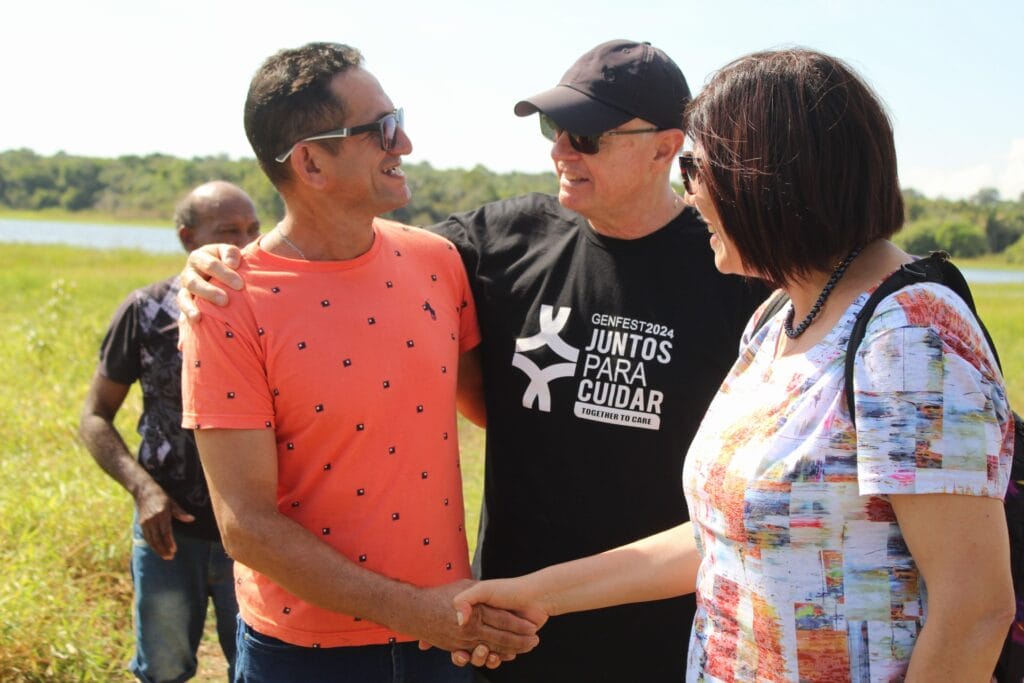
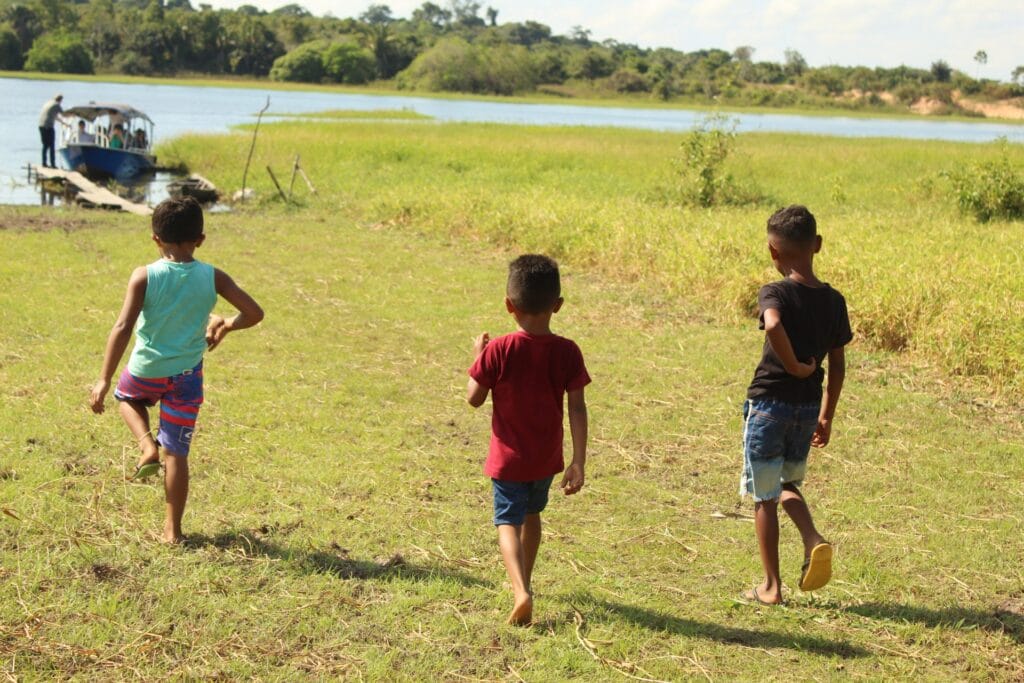
Certainly it is a drop in the great sea of the needs of these peoples. Jesús Morán said, “It is true that alone, we will never solve the many social problems. Our mission, also here in the Amazon, is to change hearts and bring unity in the Church and in society. What we do makes sense if people focus their lives on the good. And that’s the real change.”
Listening to the focolarini in the Amazon highlights the fact that welcoming, sharing and learning is the “evangelical dynamic” that emerges, where each and every one feels personally called by God to be his instrument to “listen to the cry of the Amazon” (47-52), as Pope Francis wrote in his extraordinary post-synodal exhortation Querida Amazonia and to contribute to the growth of a “culture of encounter towards a ‘multifaceted harmony’” (61).
Stefania Tanesini
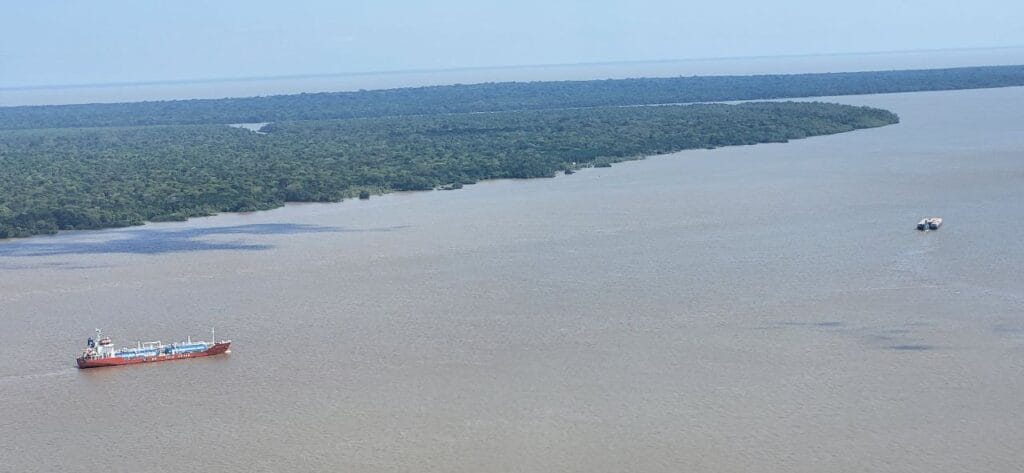
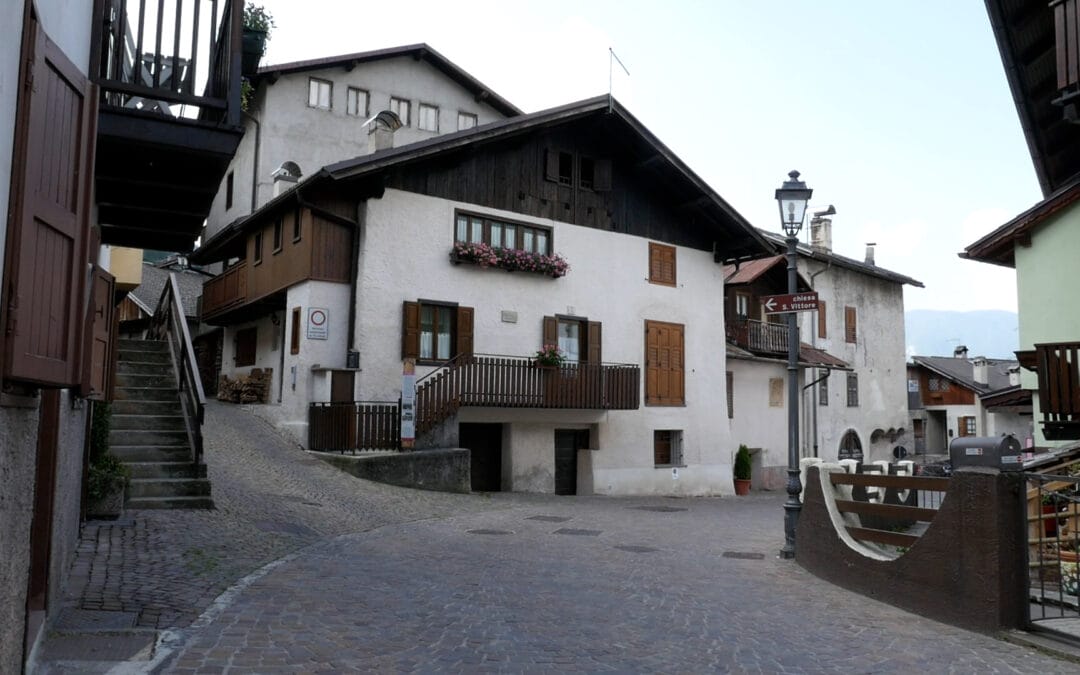
On July 16th, 1949, Chiara Lubich and Igino Giordani made a “Pact of Unity.” It was a spiritual experience that heralded in a period of light and special union with God.
It had an effect on the life of the first Focolare community back then, but also impacted the history of the Movement together with its commitment to working toward a more fraternal and united world.
Seventy-five years after that day, here is a brief look at what that Pact meant then, and what it can mean today as we continue to live by it.
Click to watch the video
